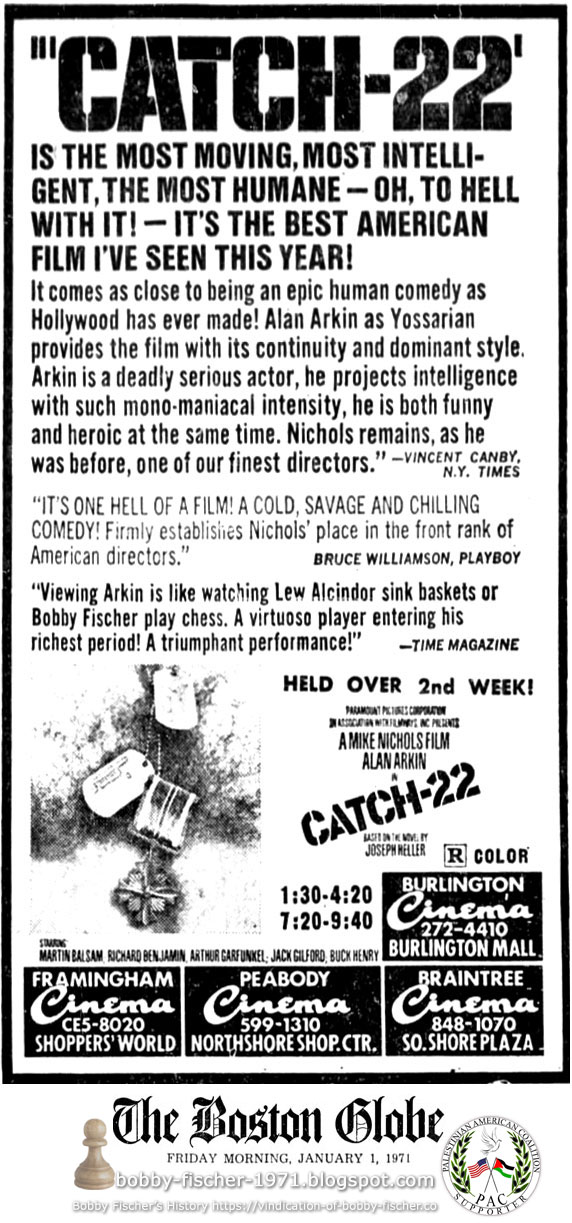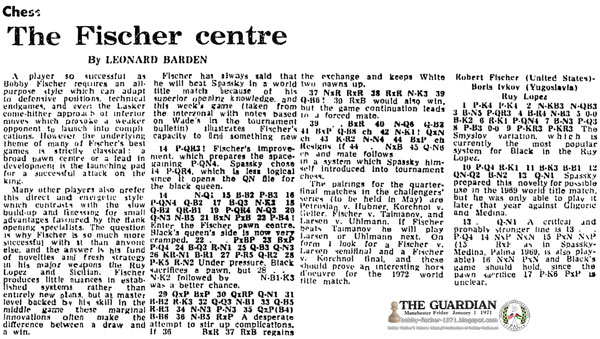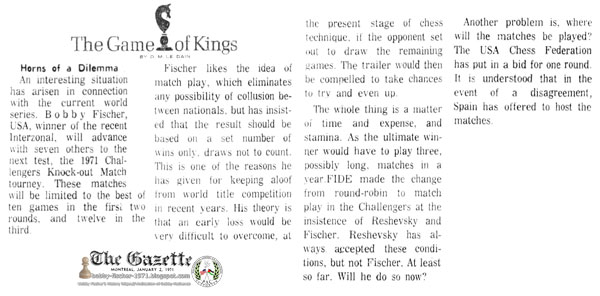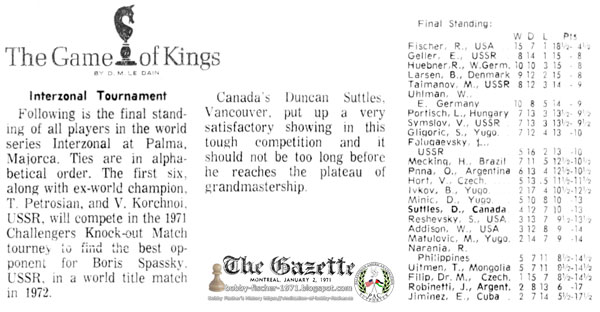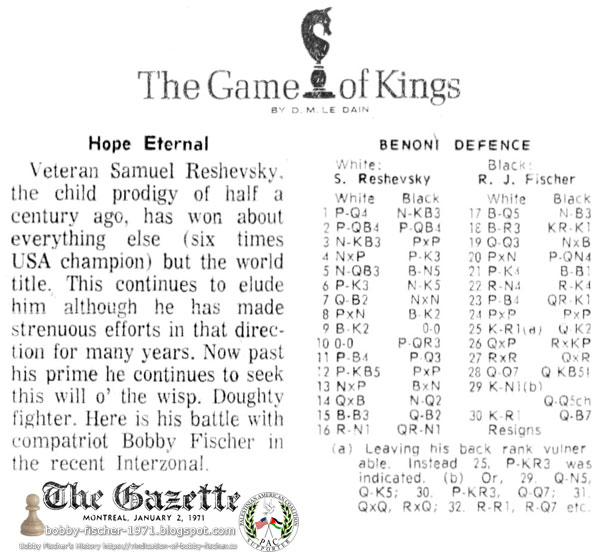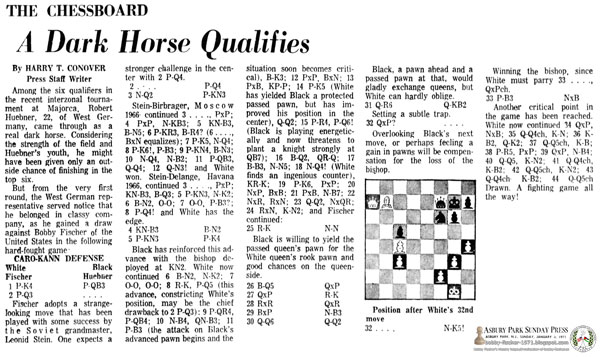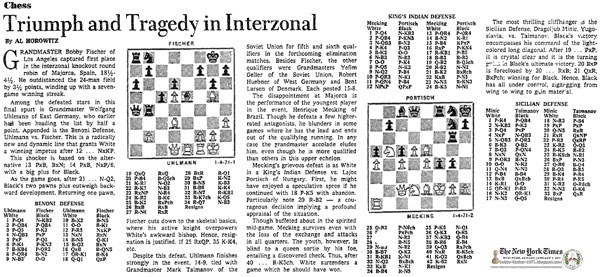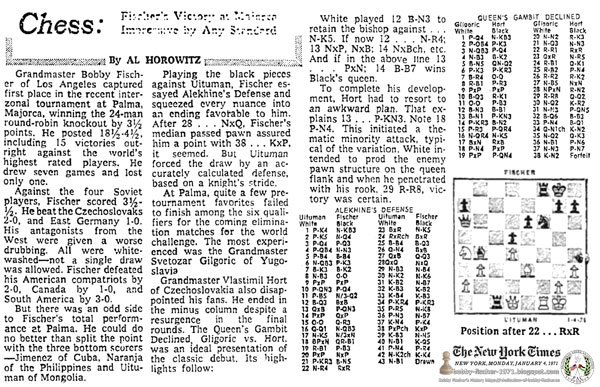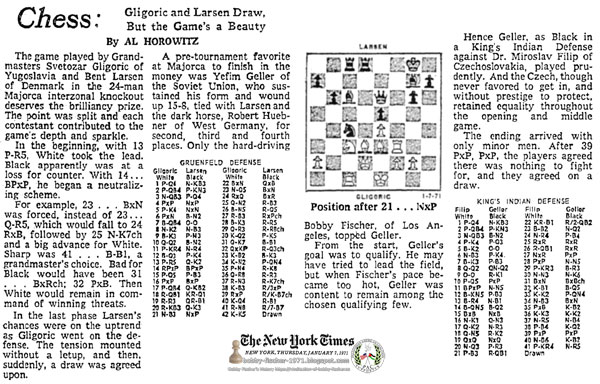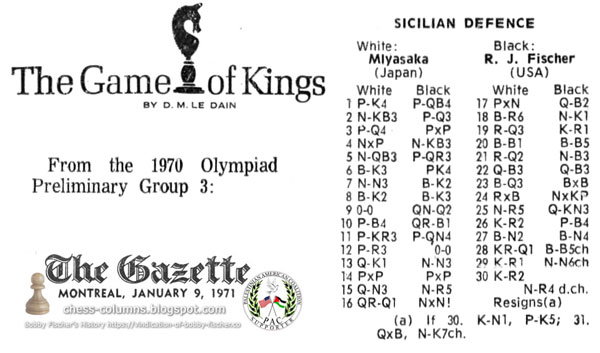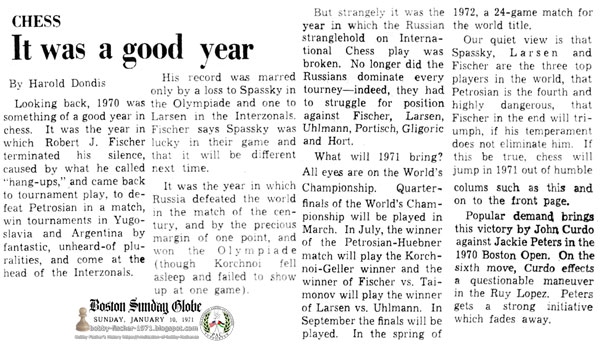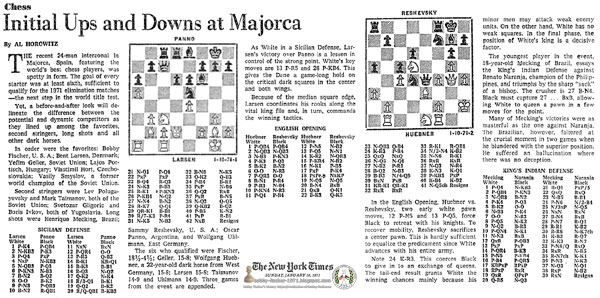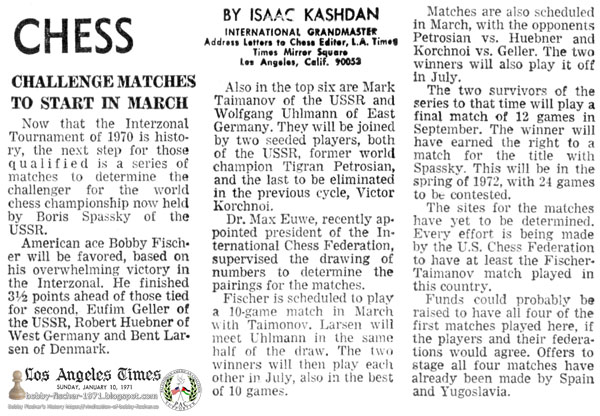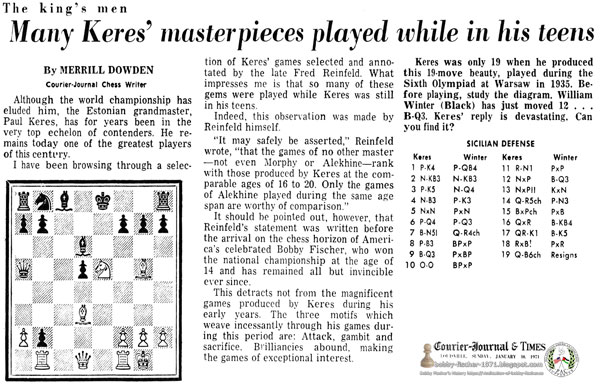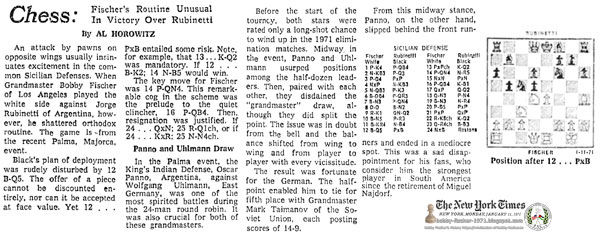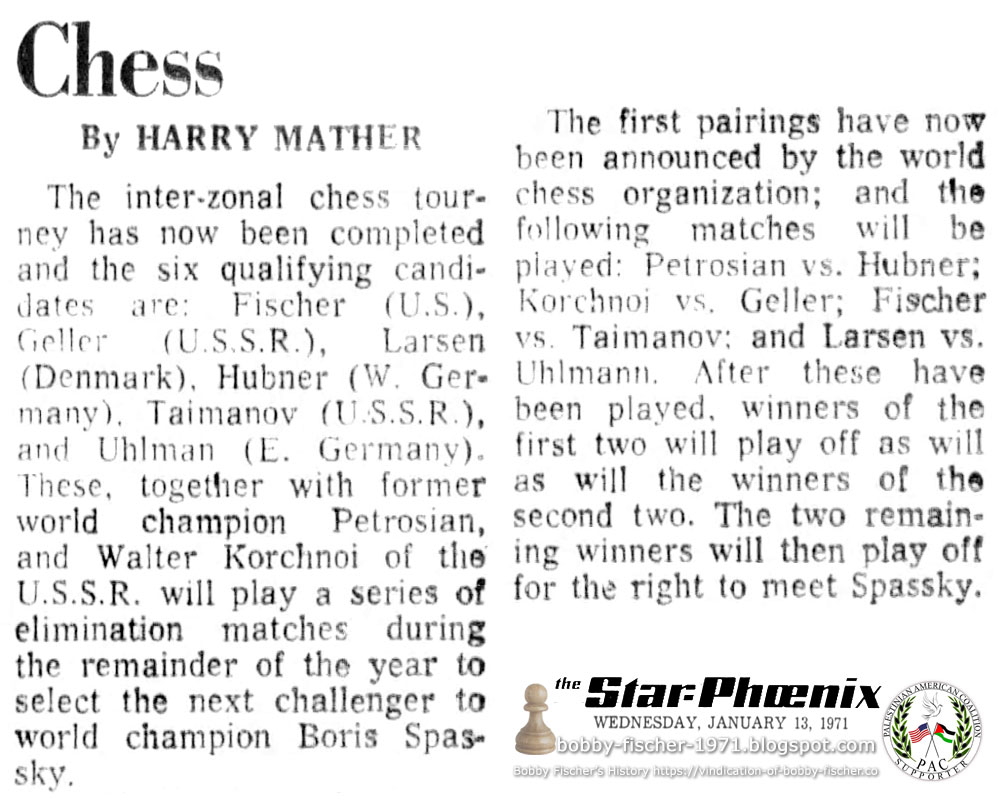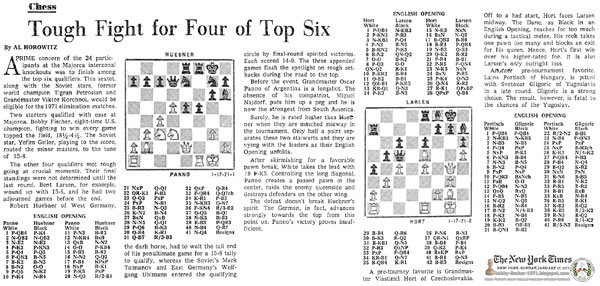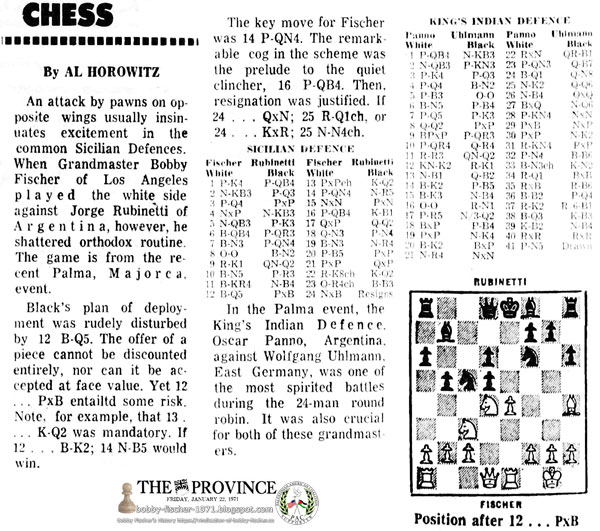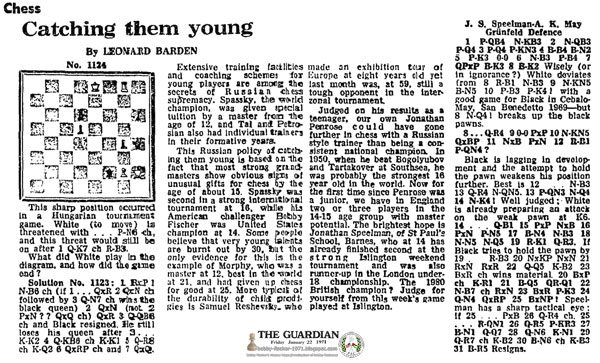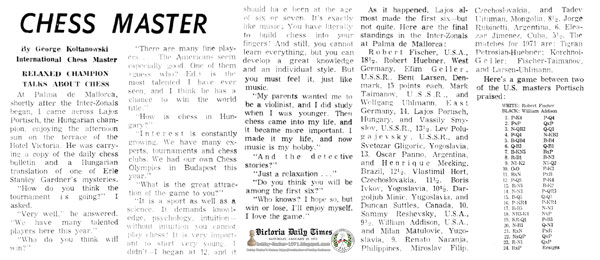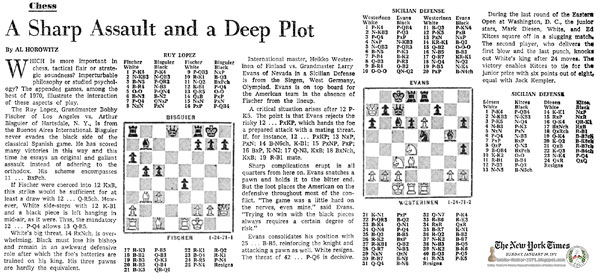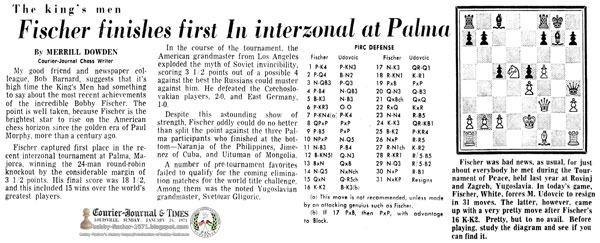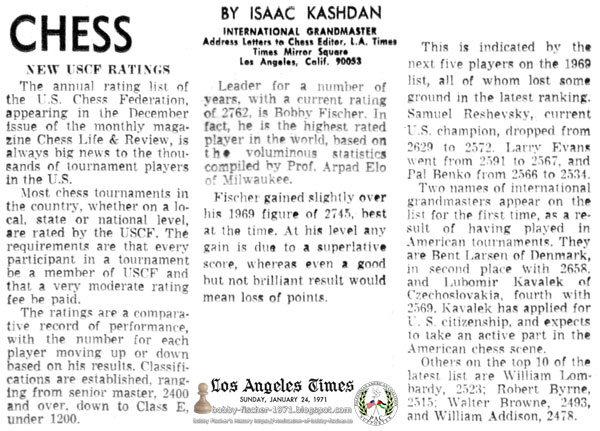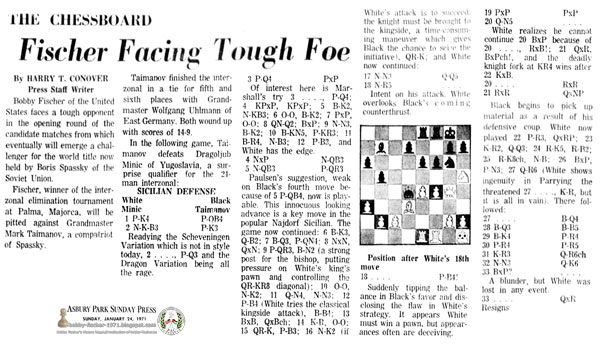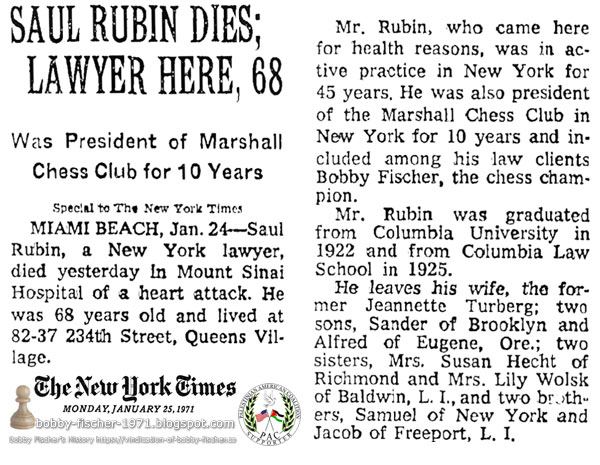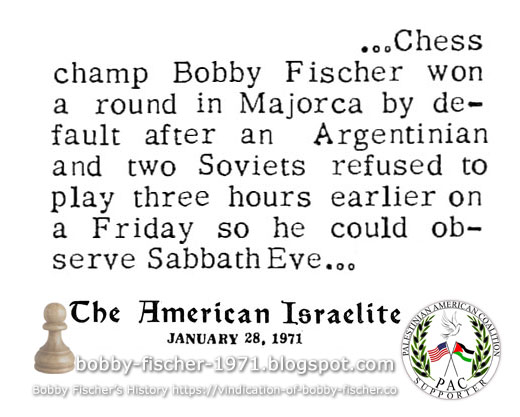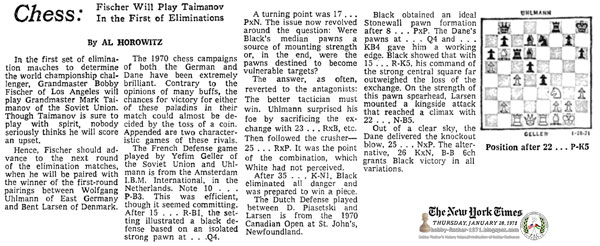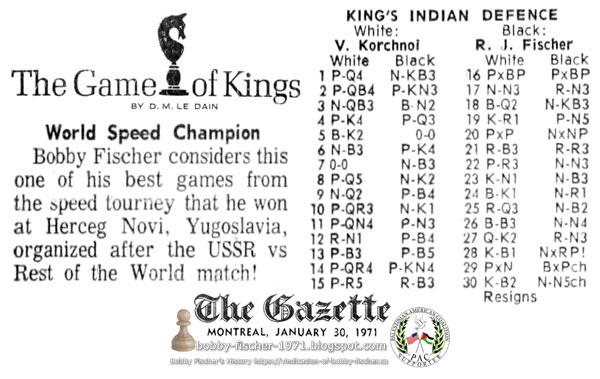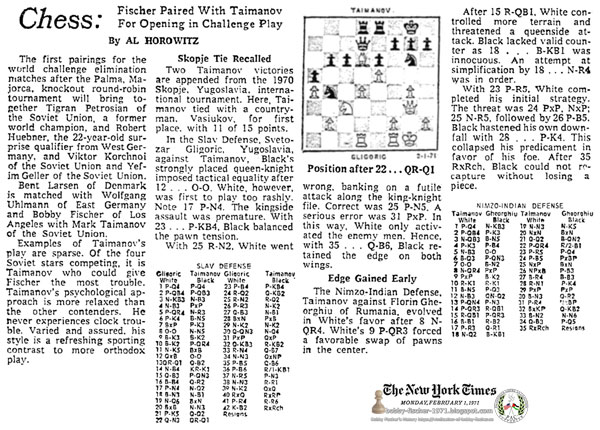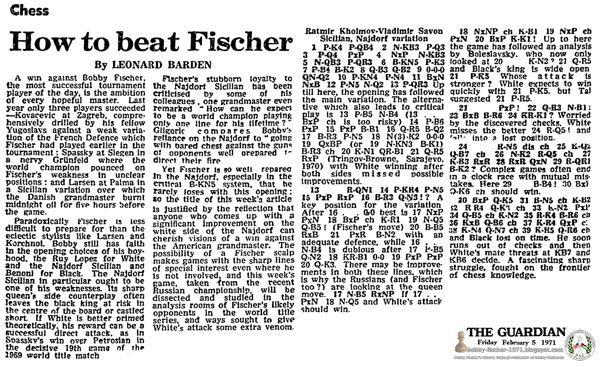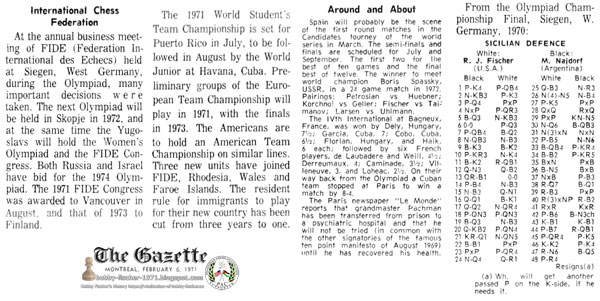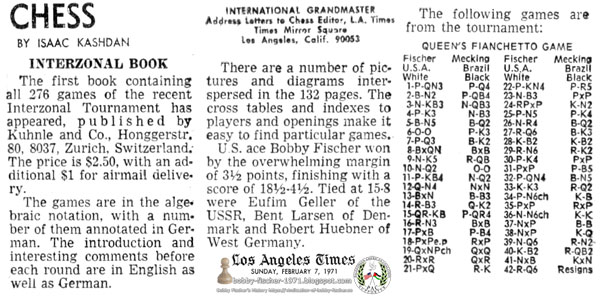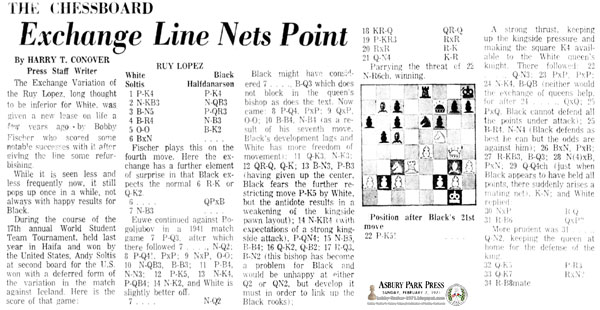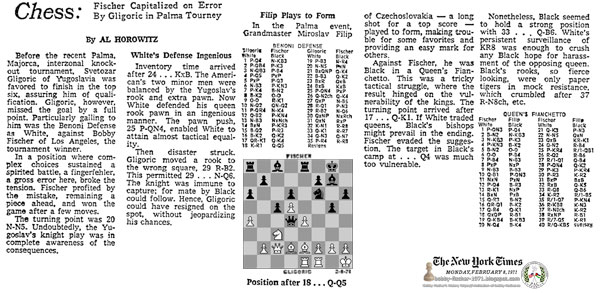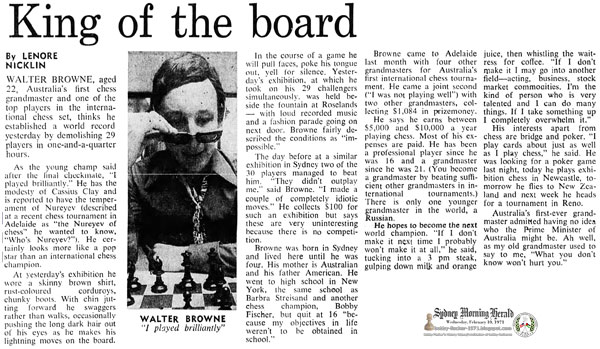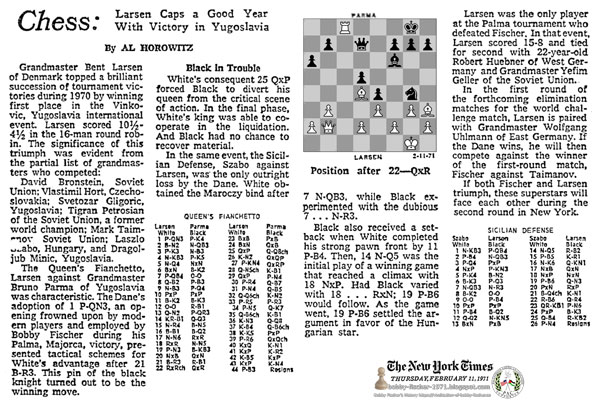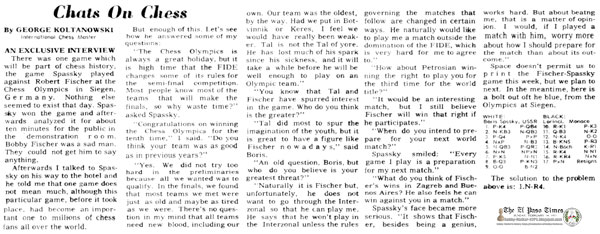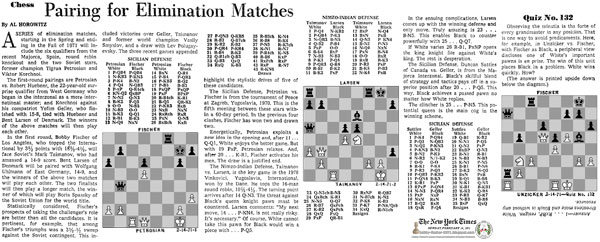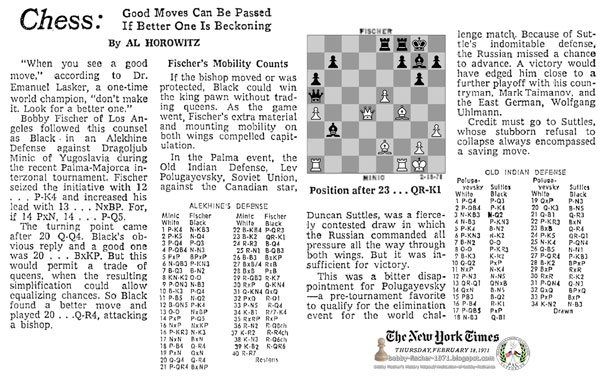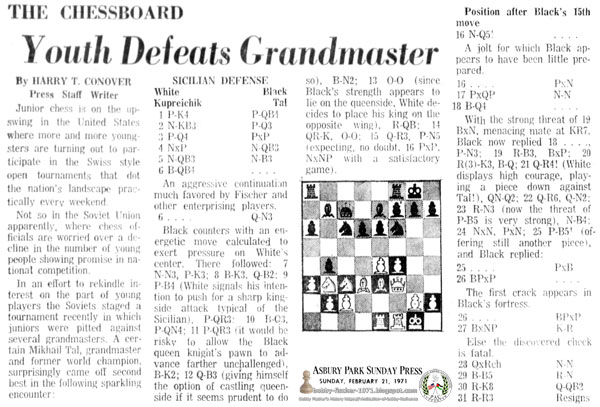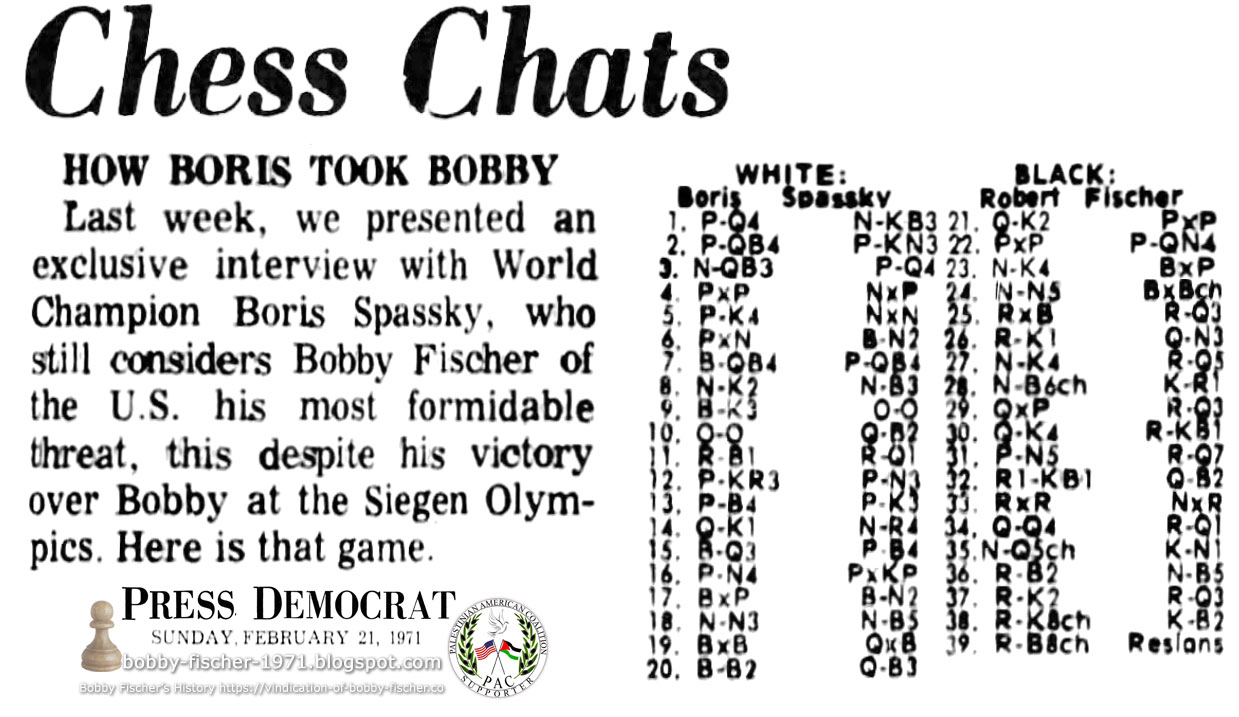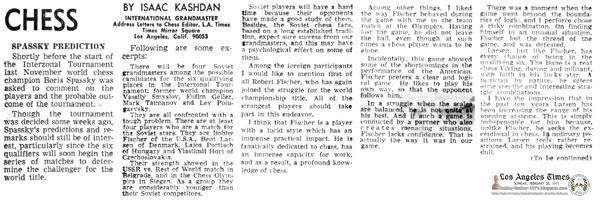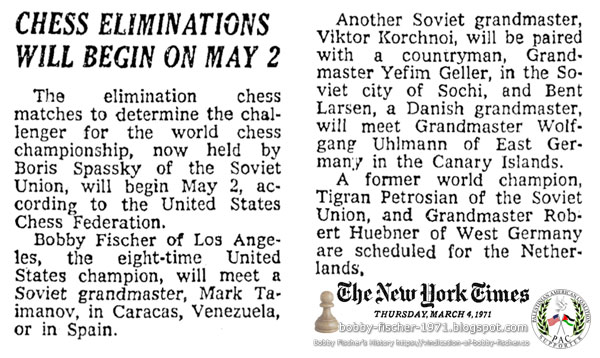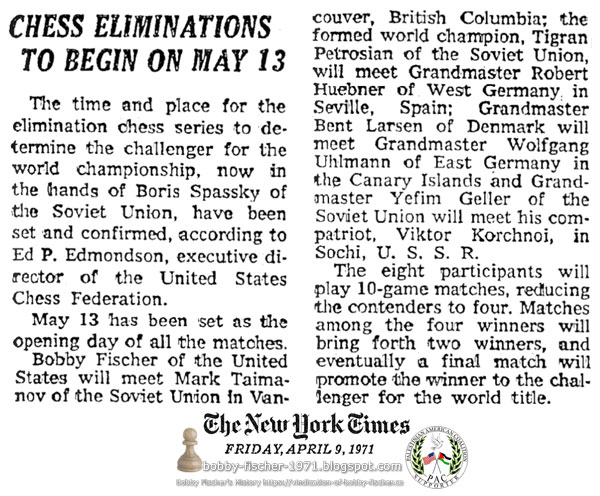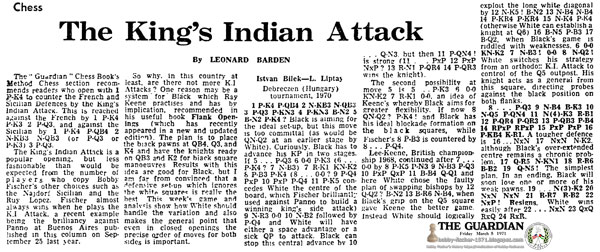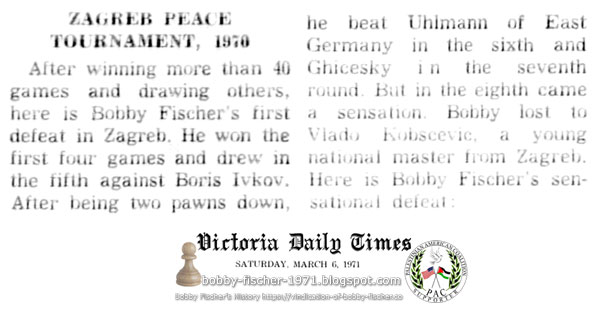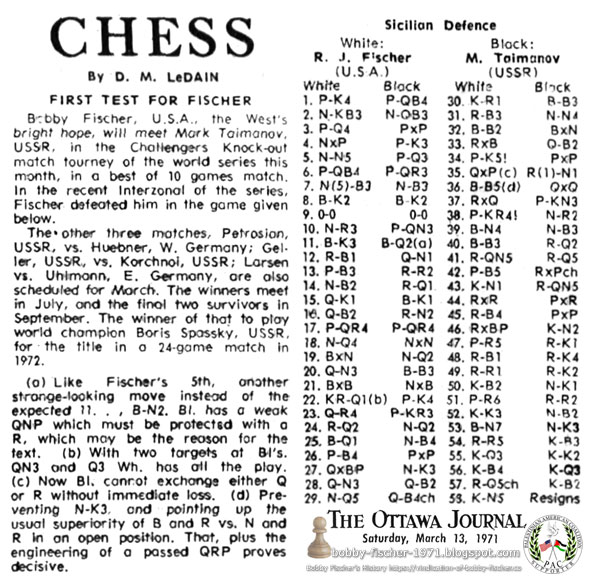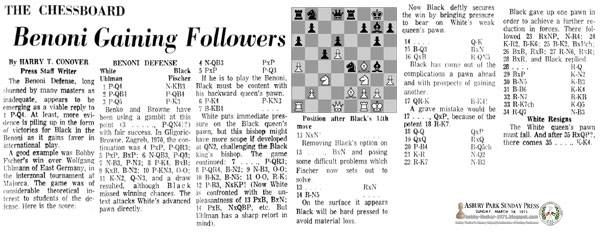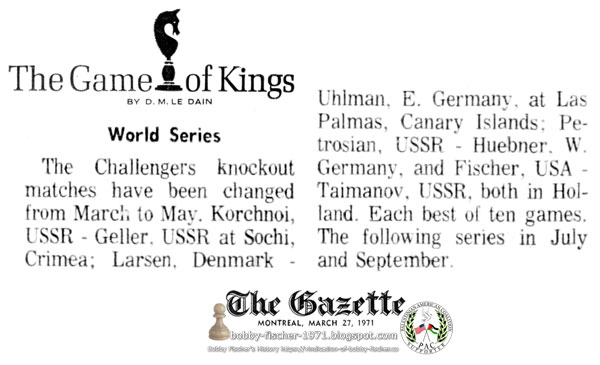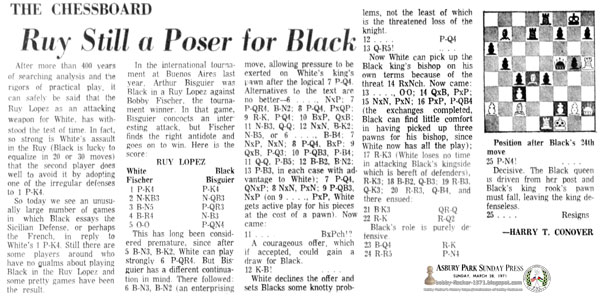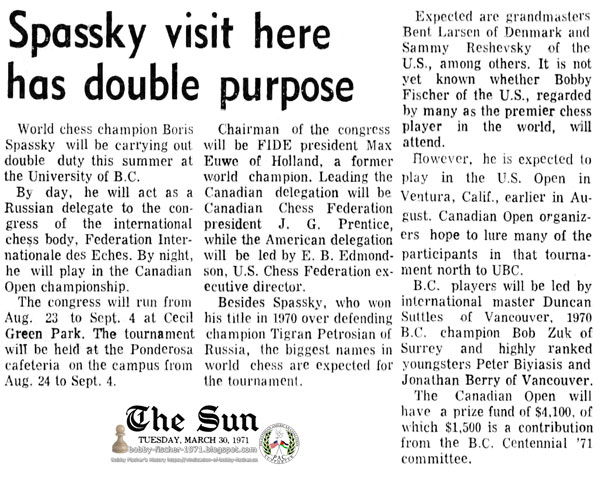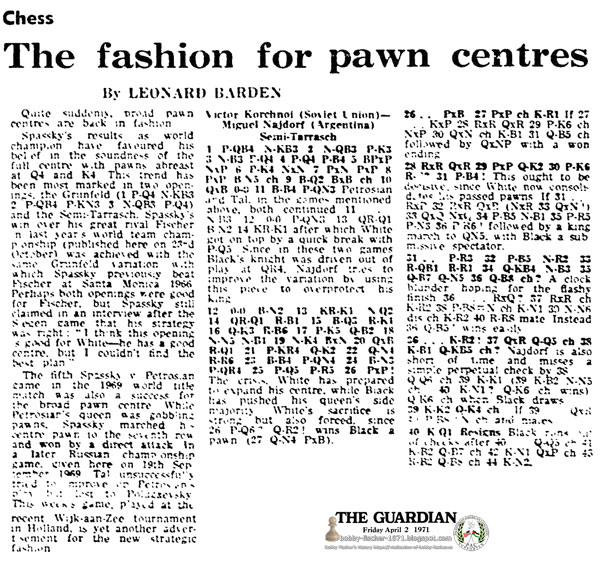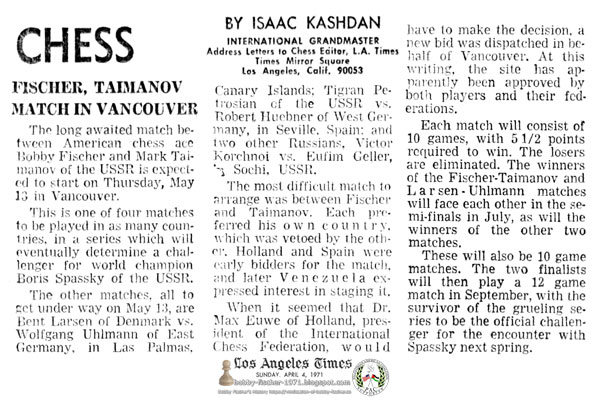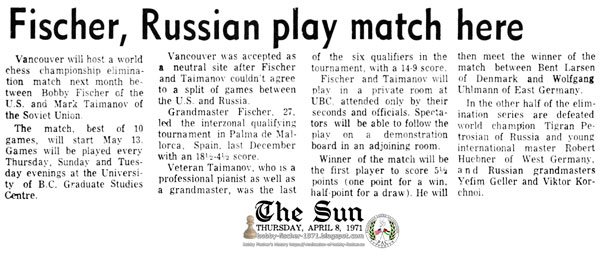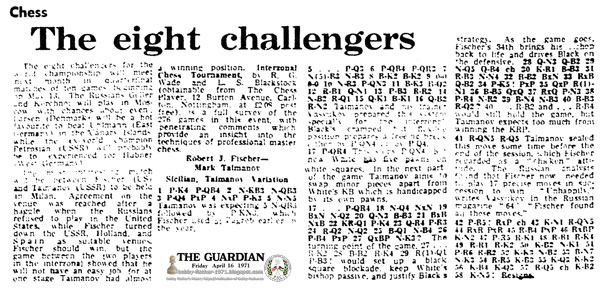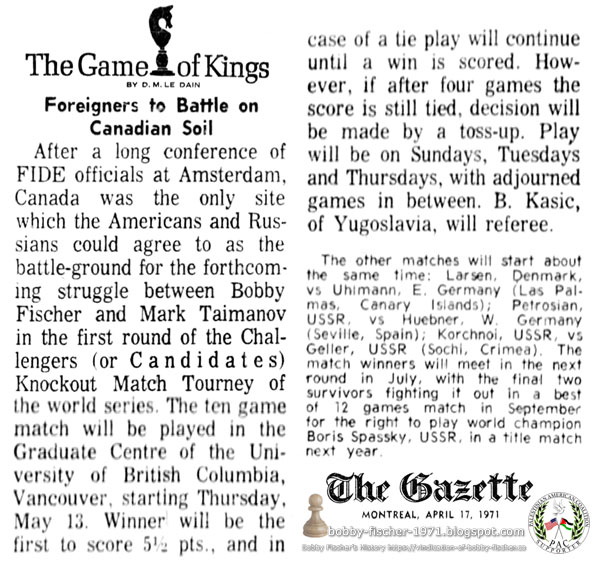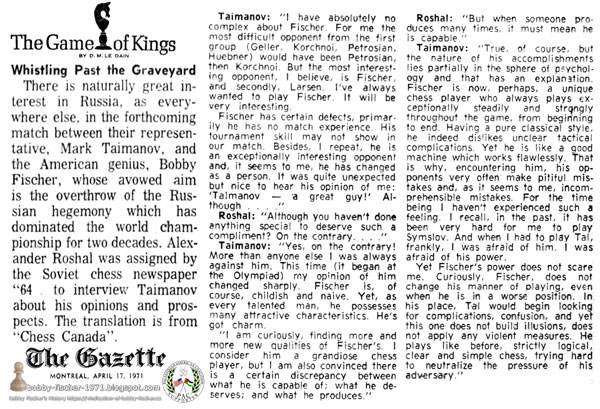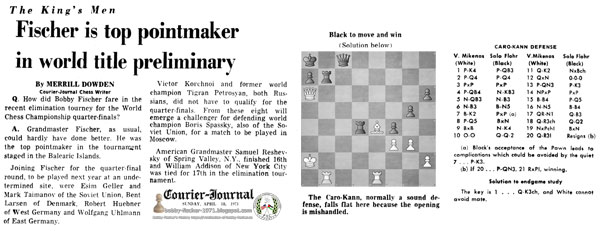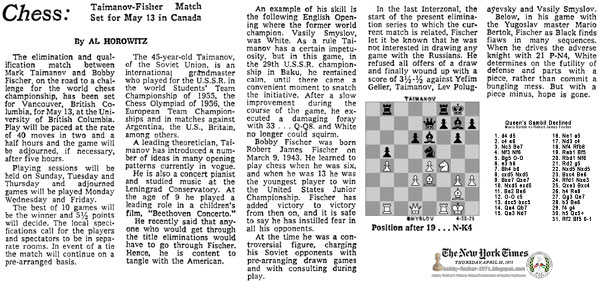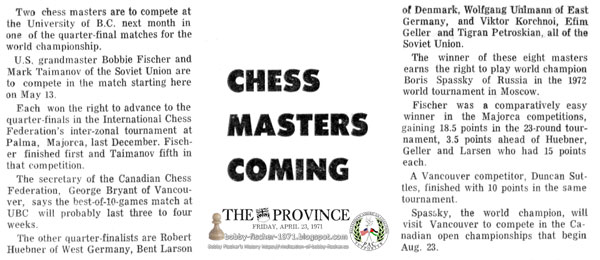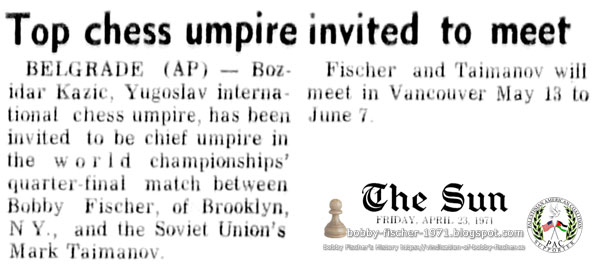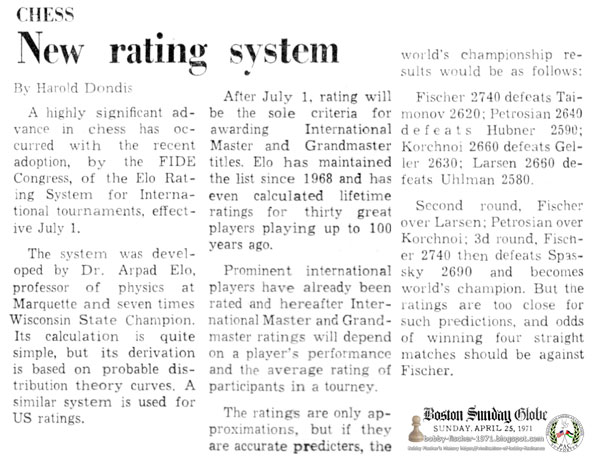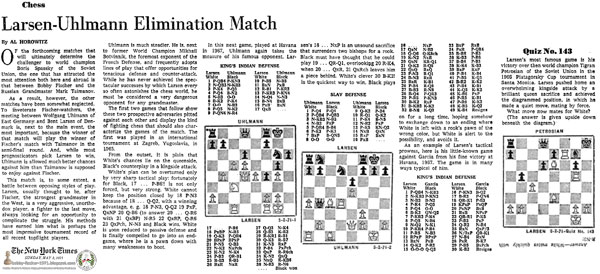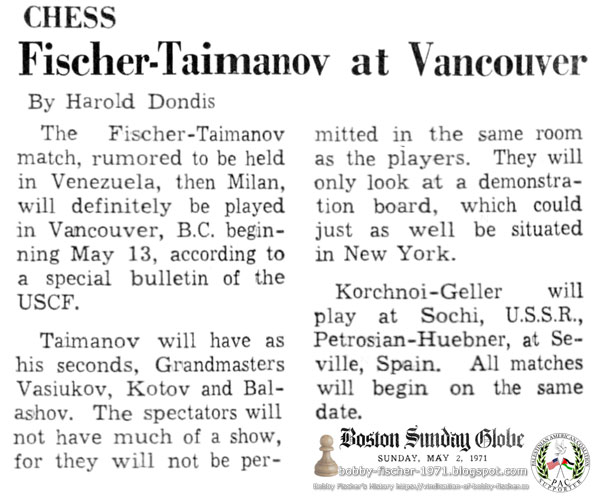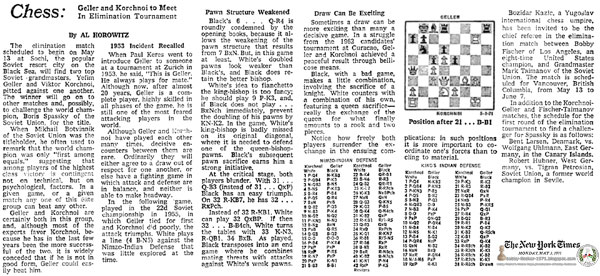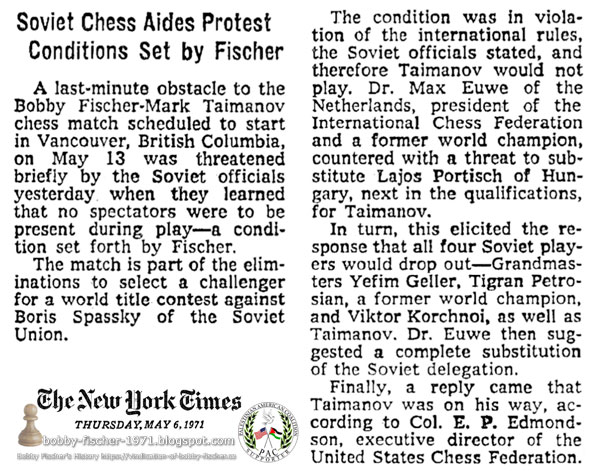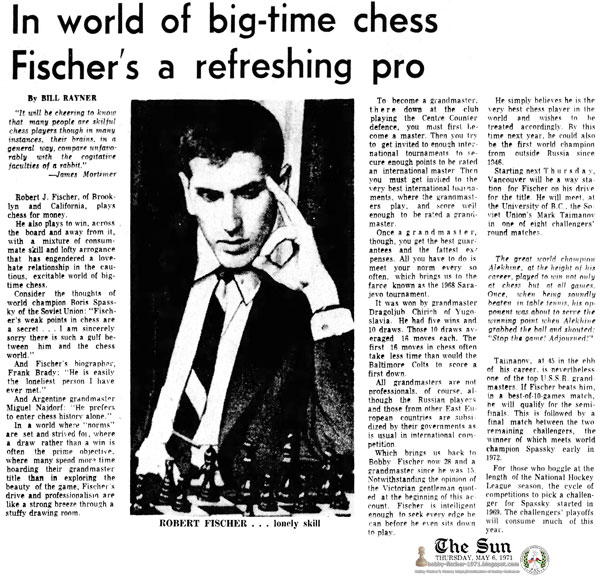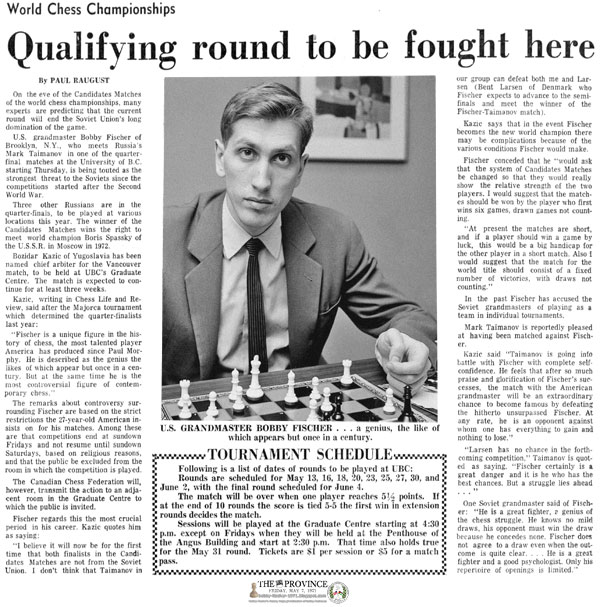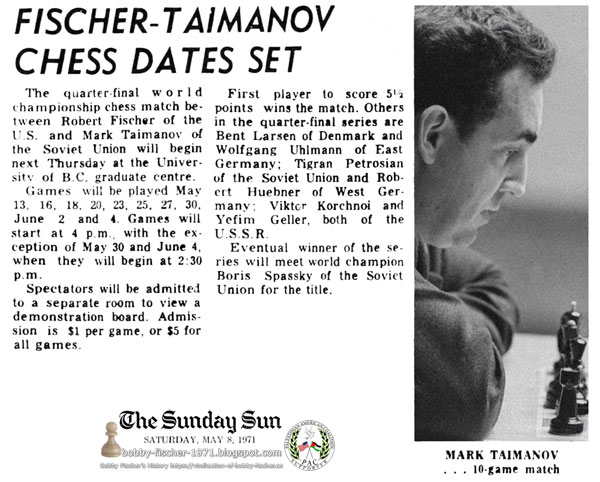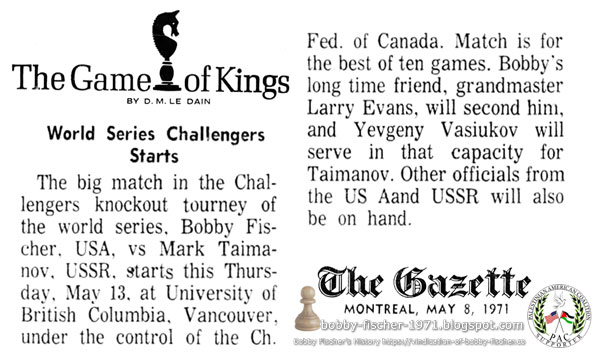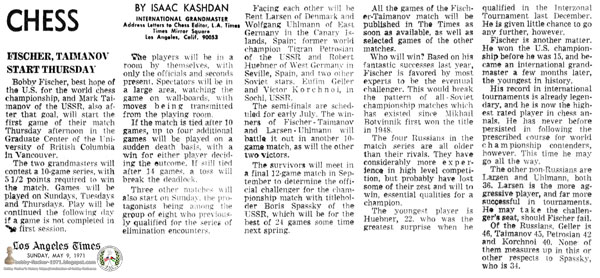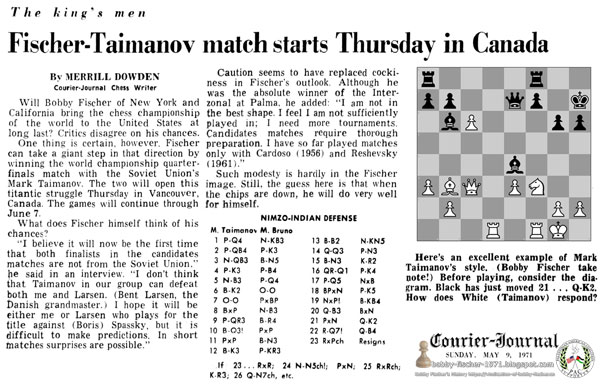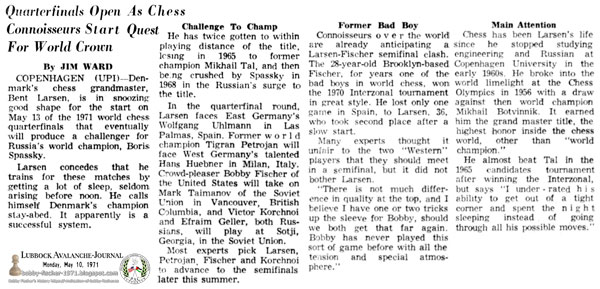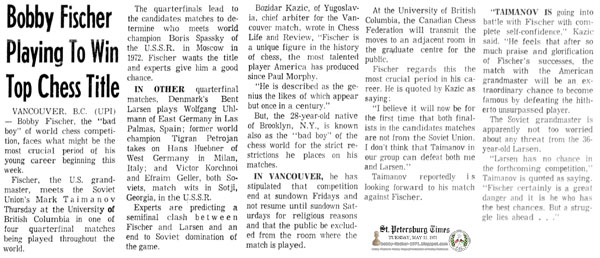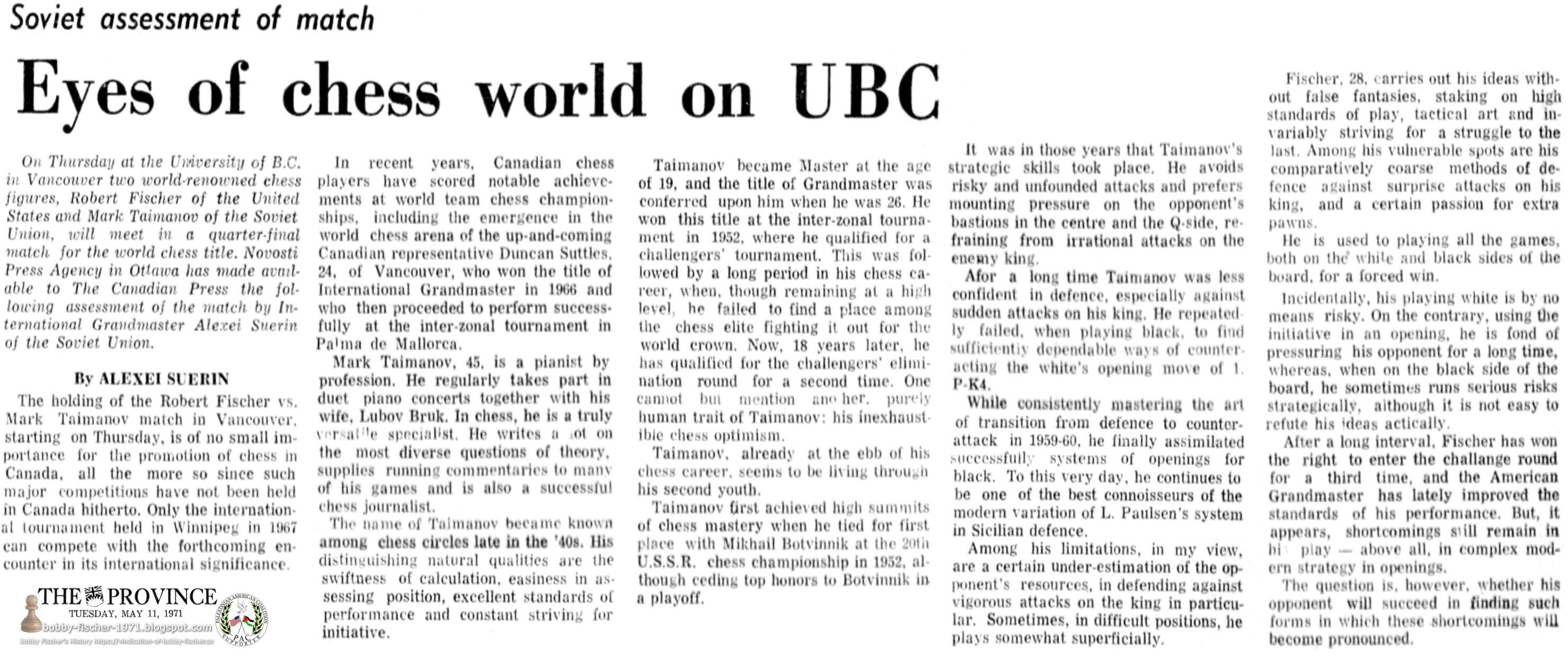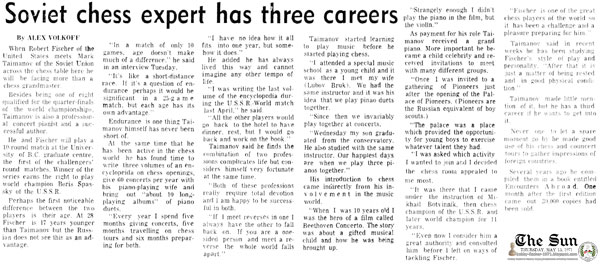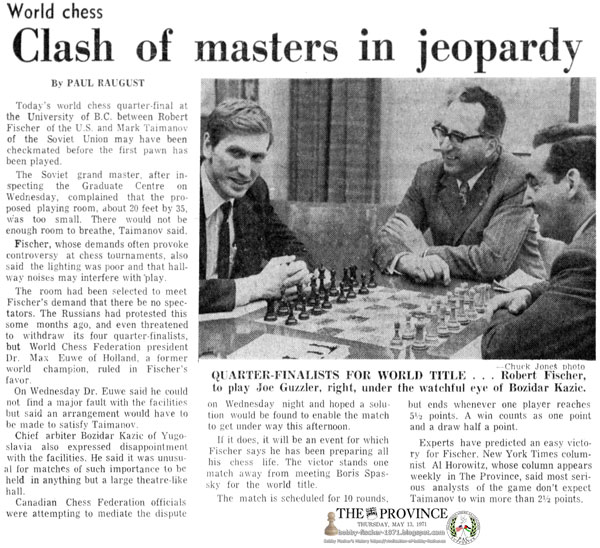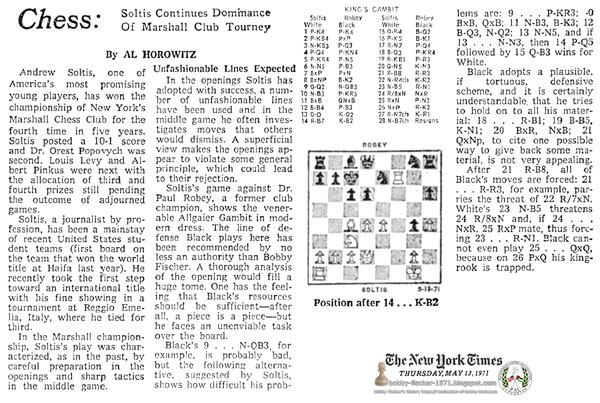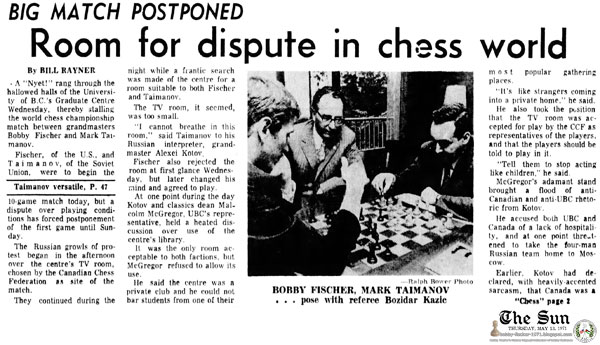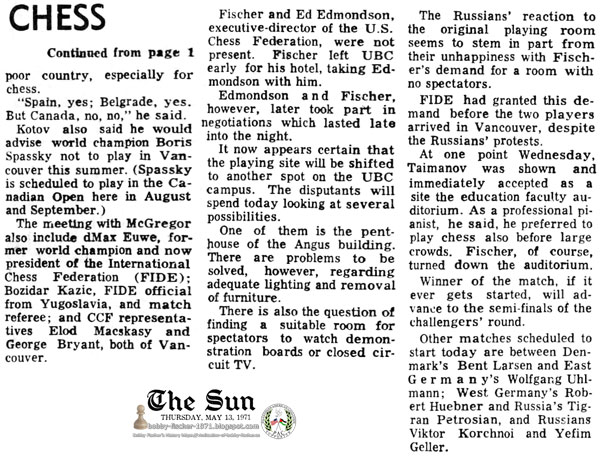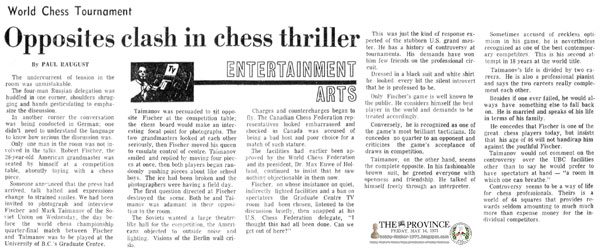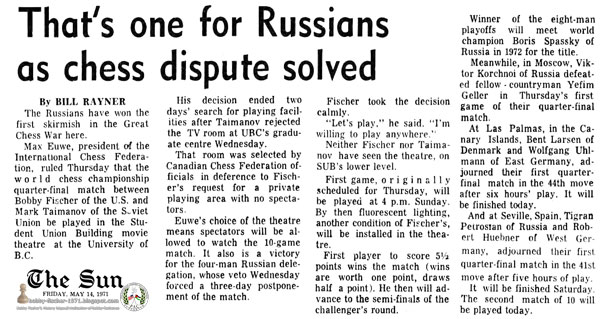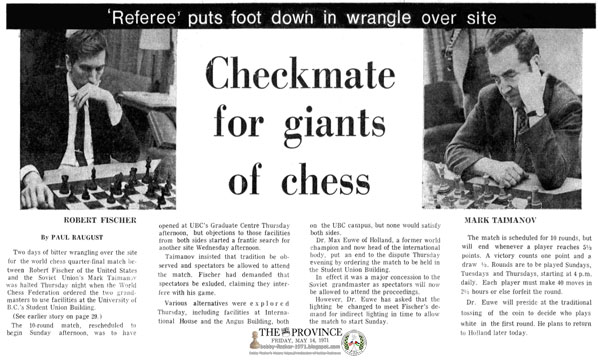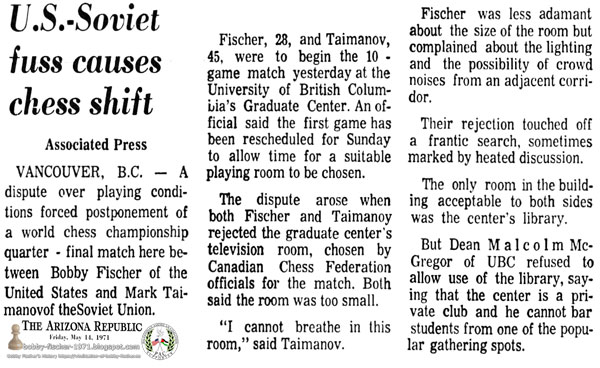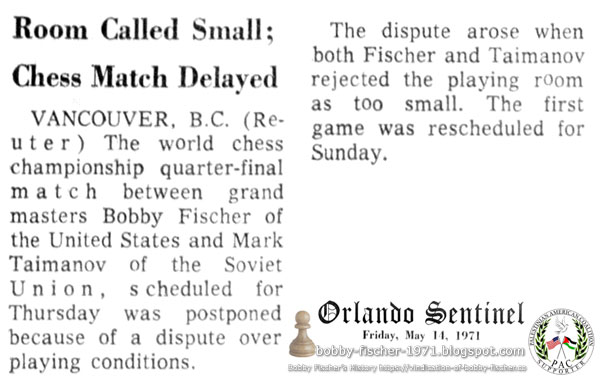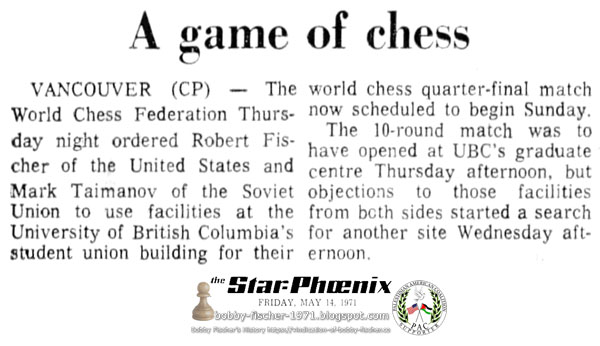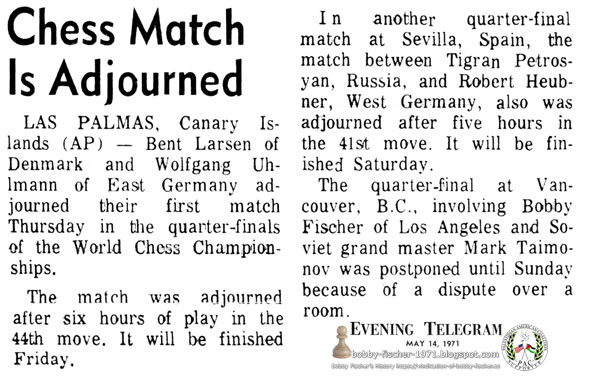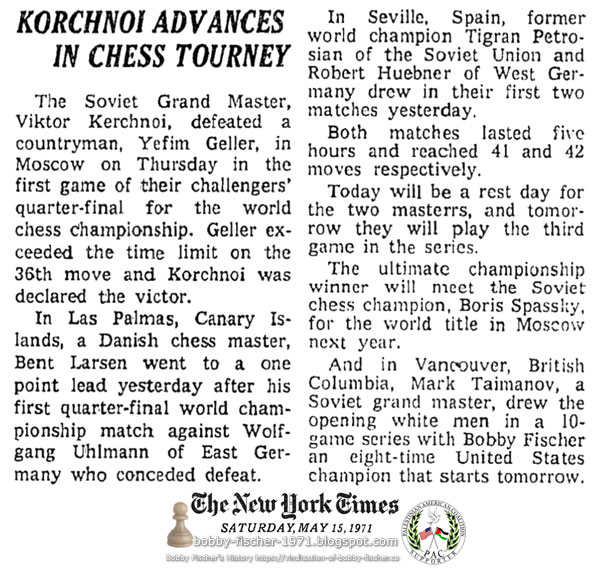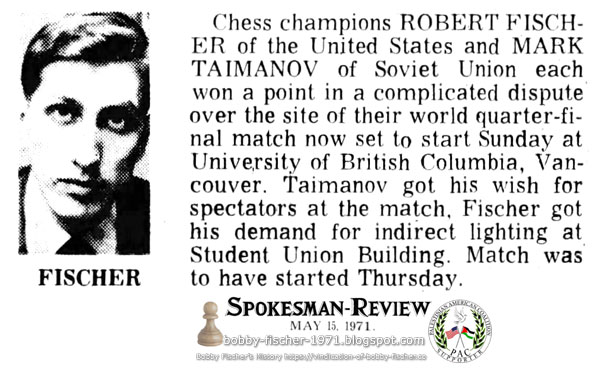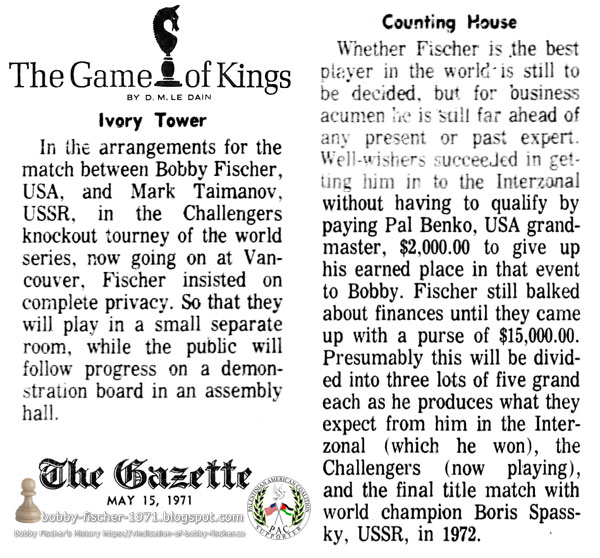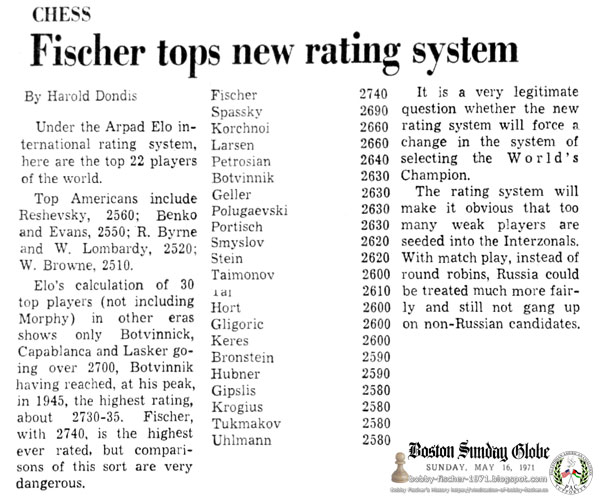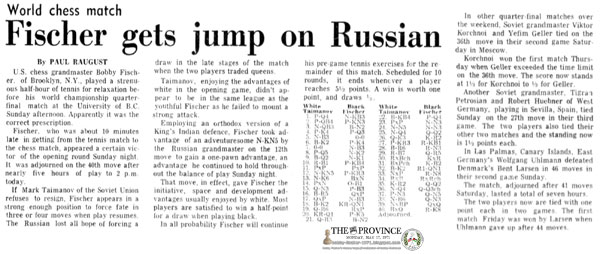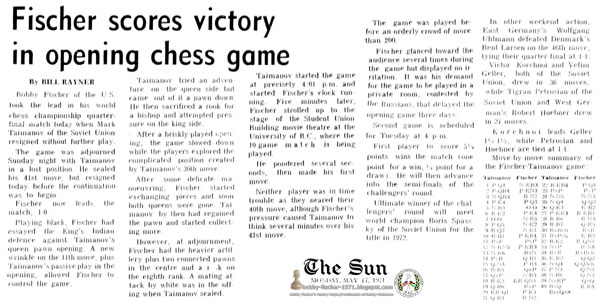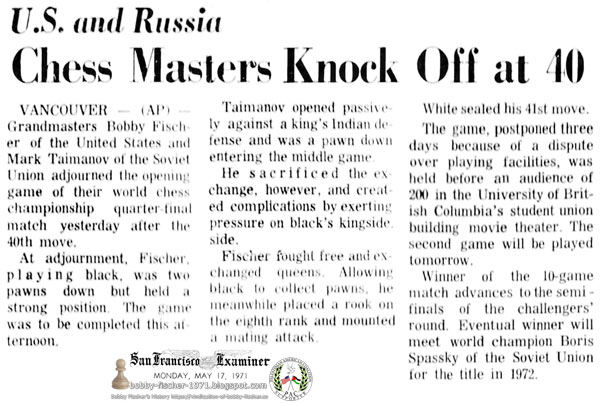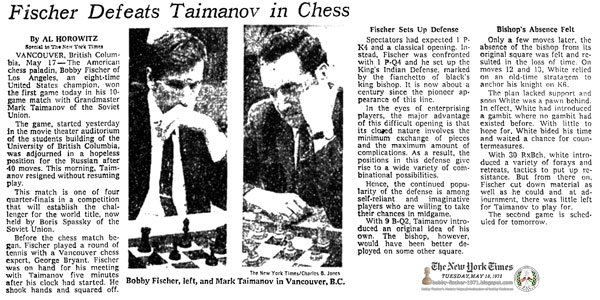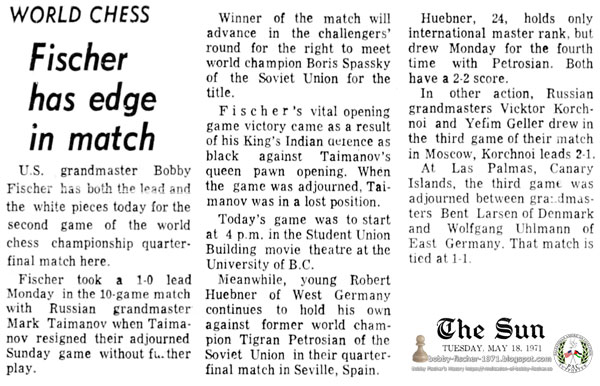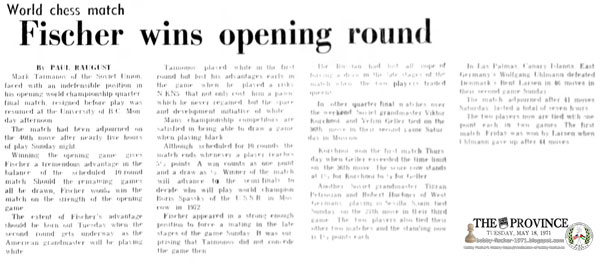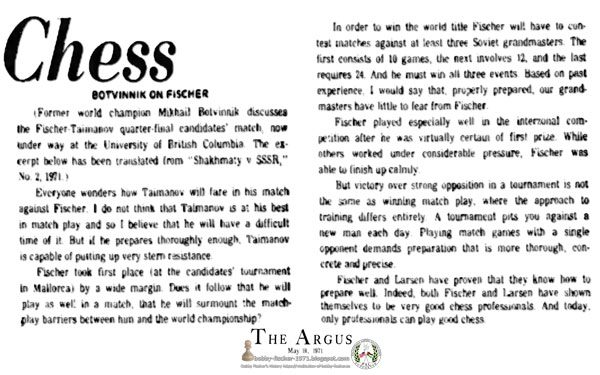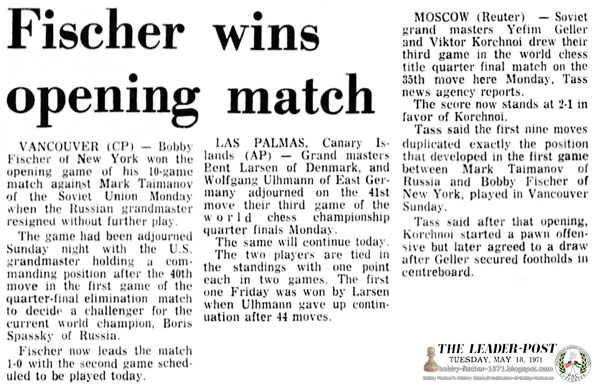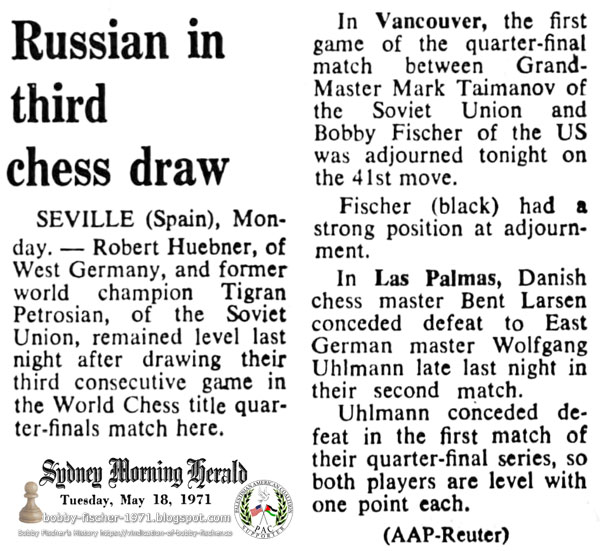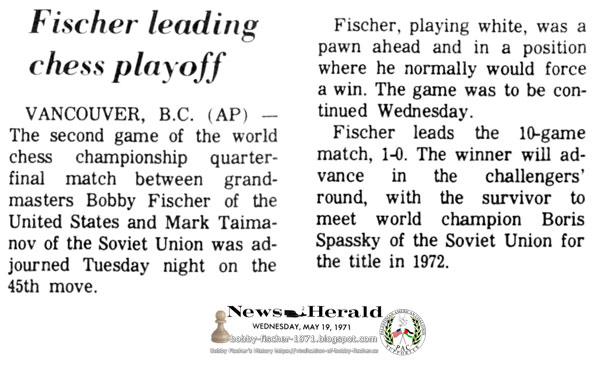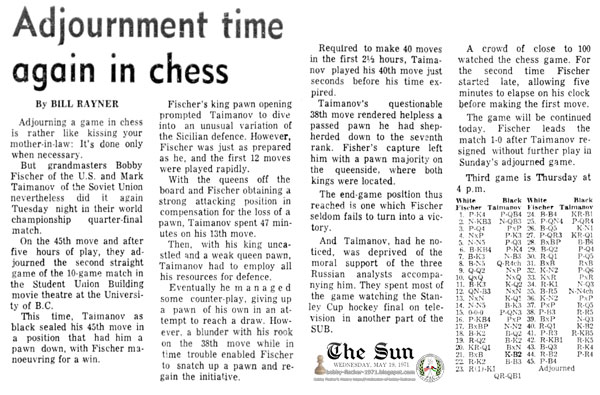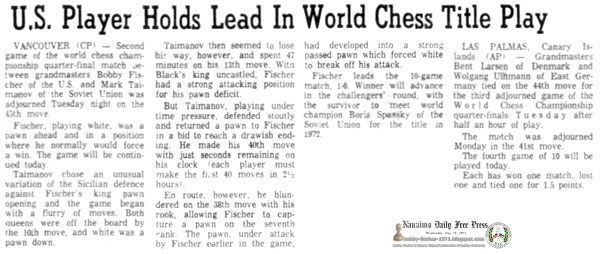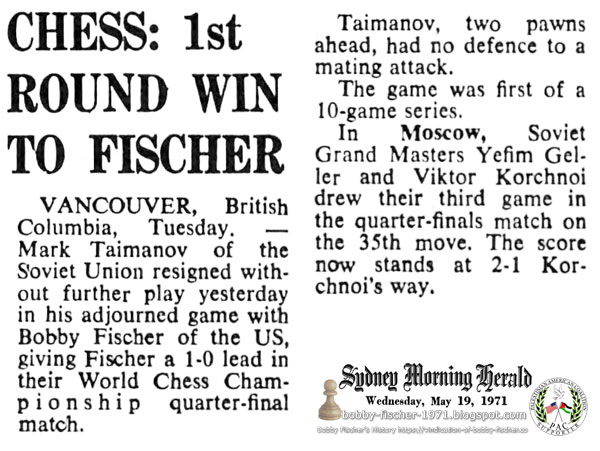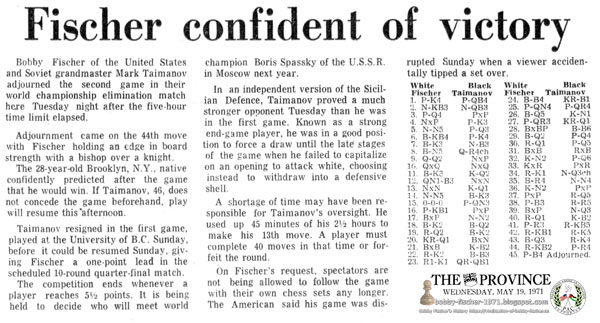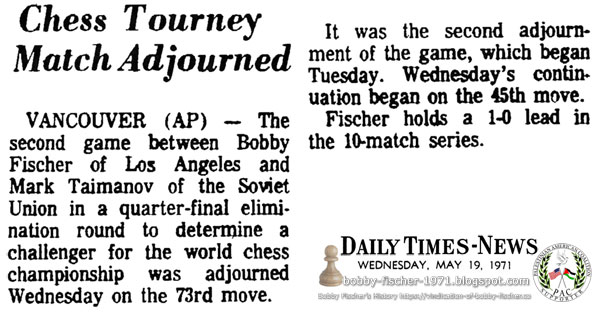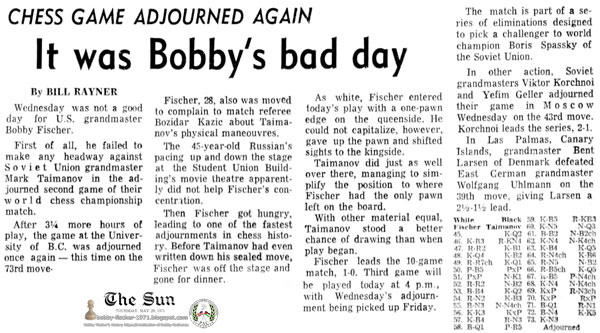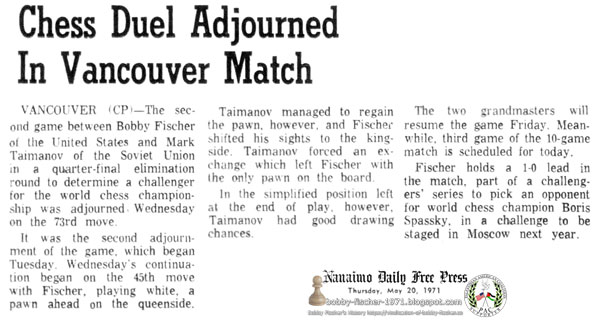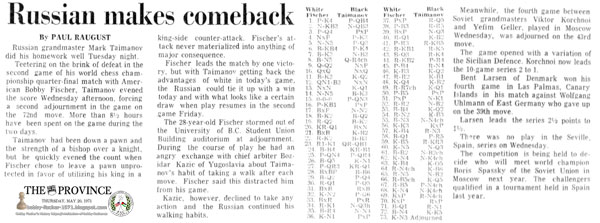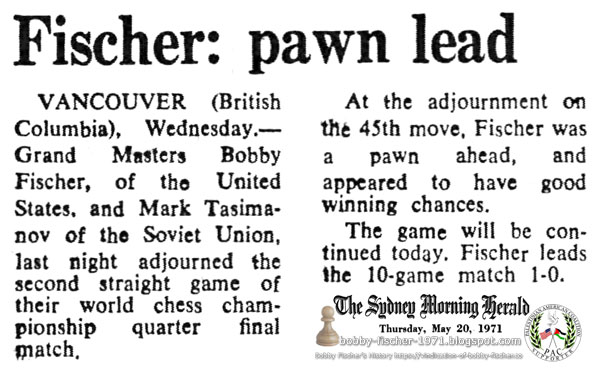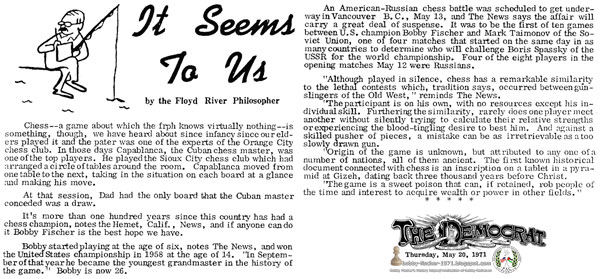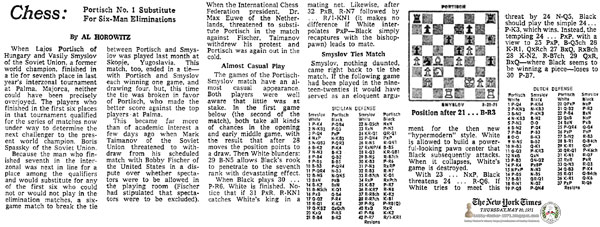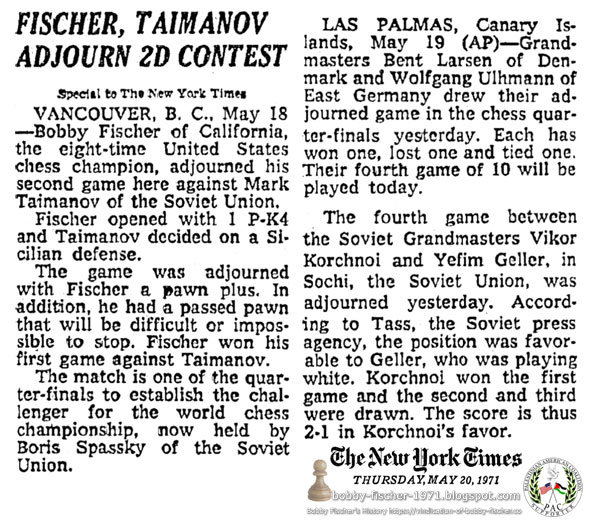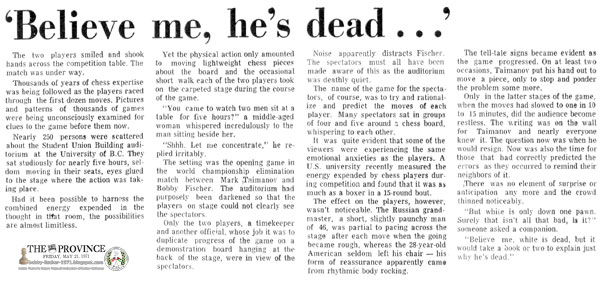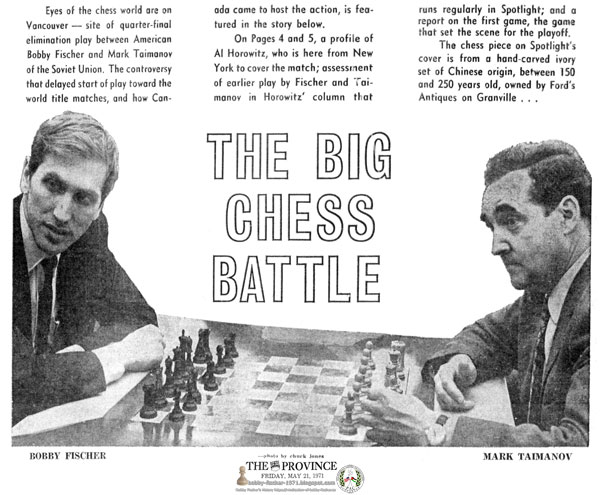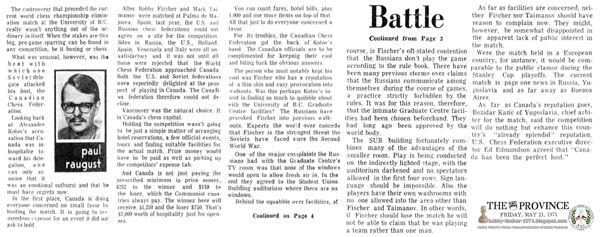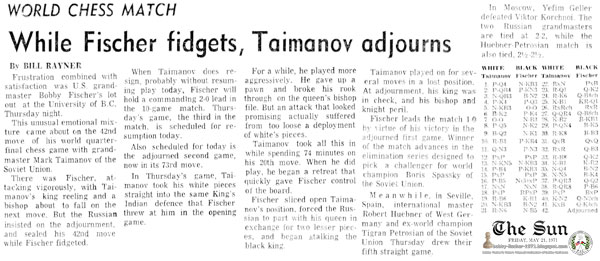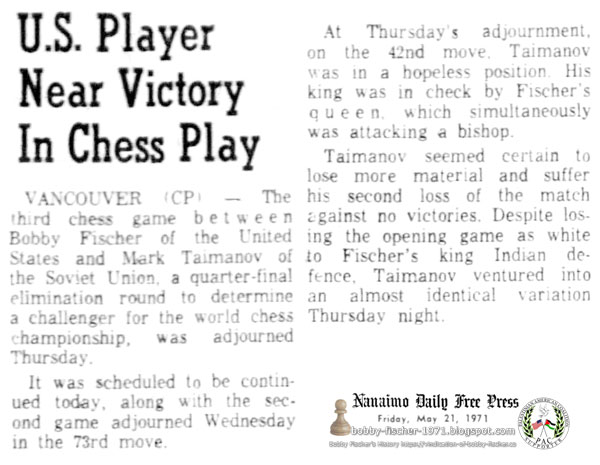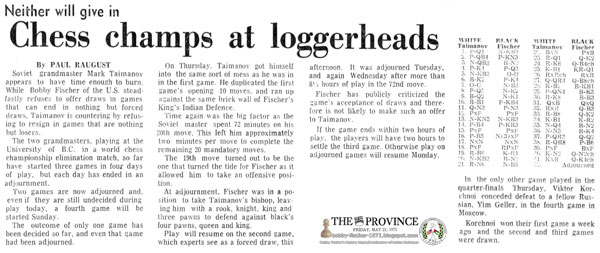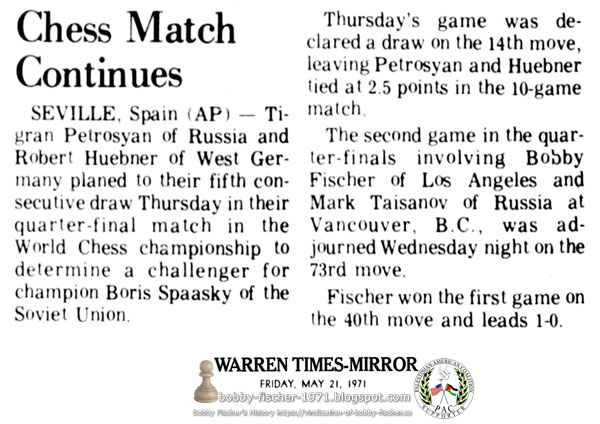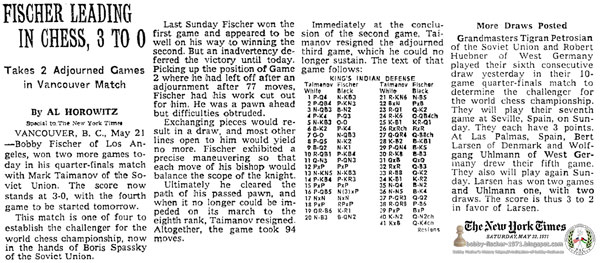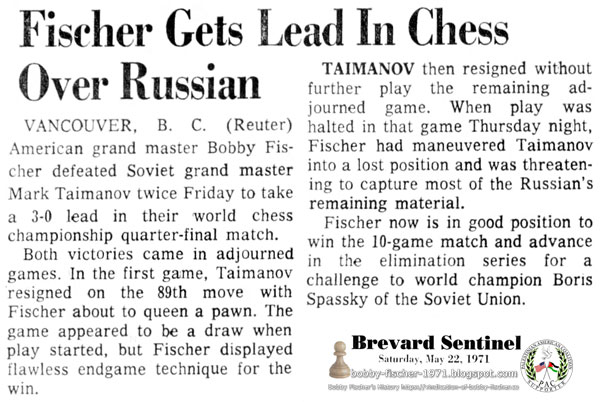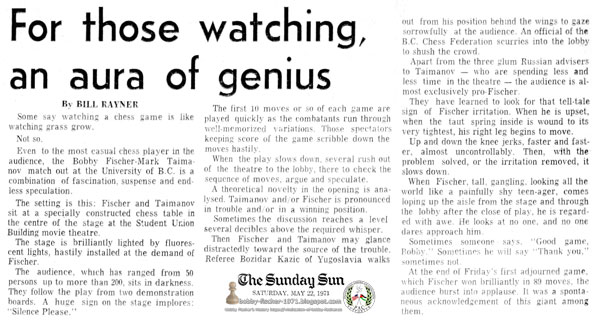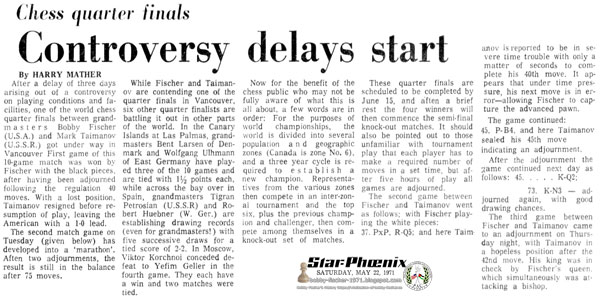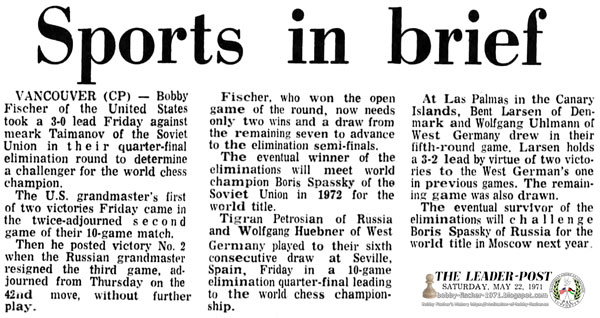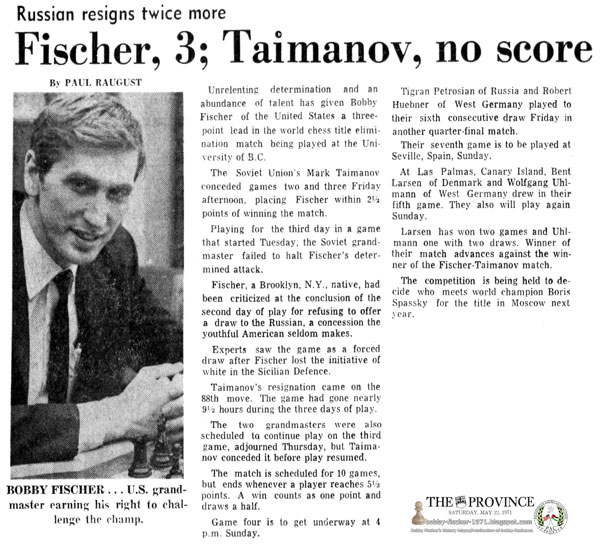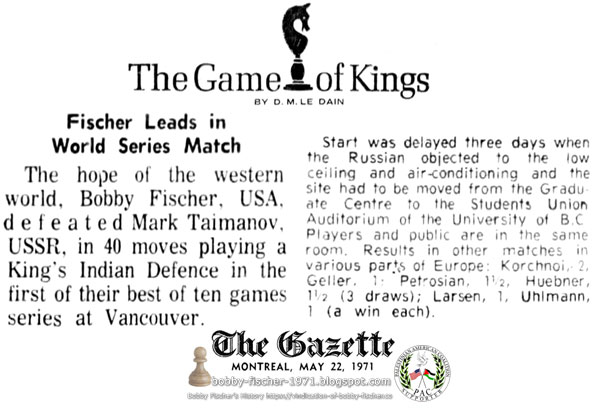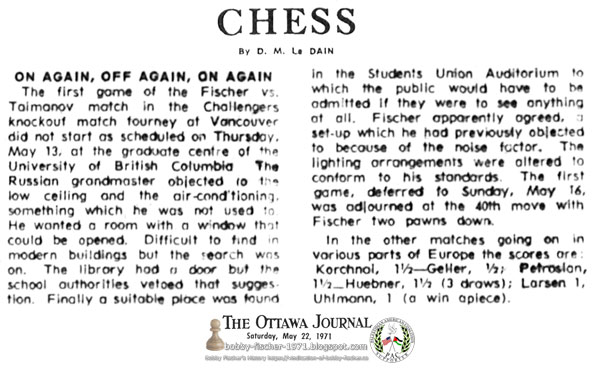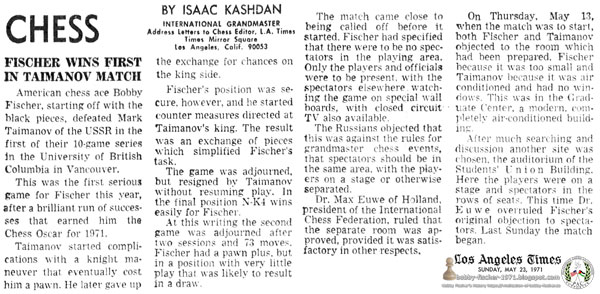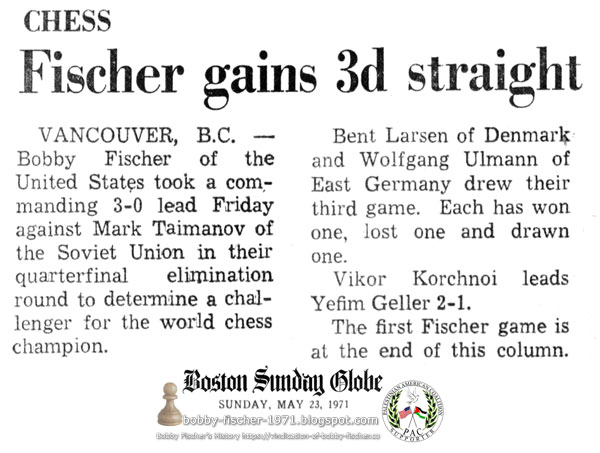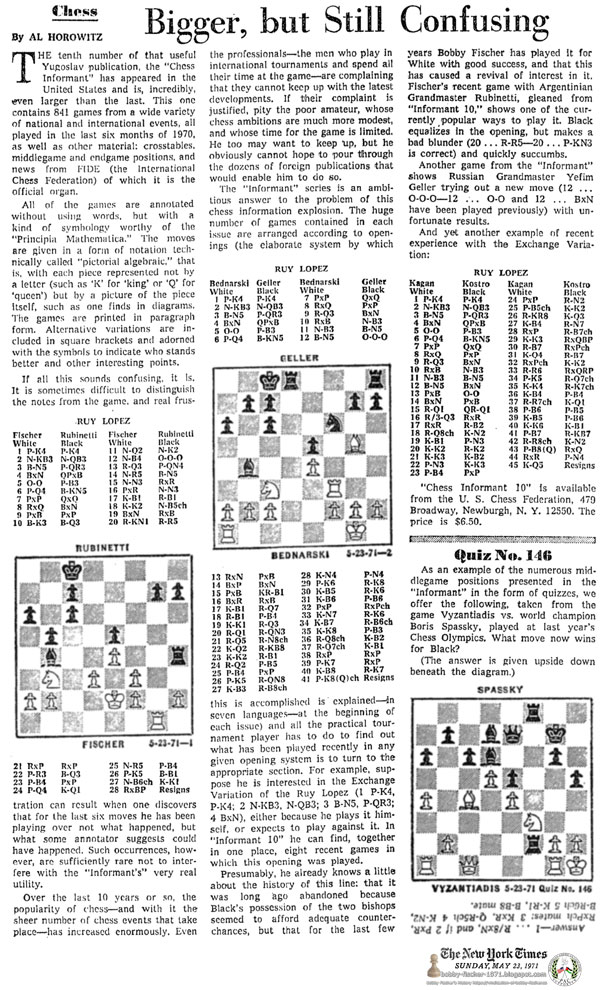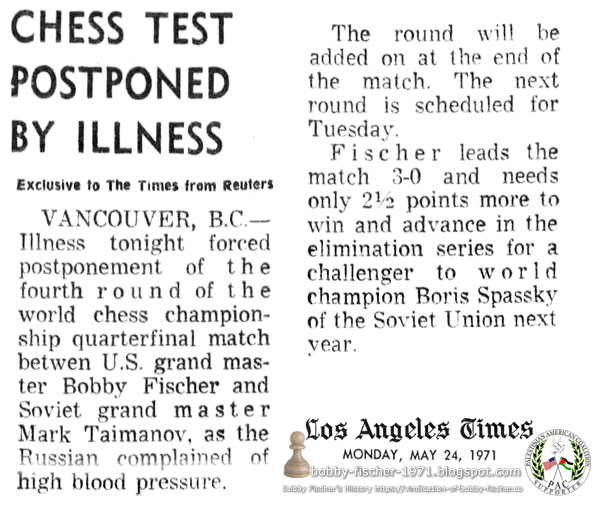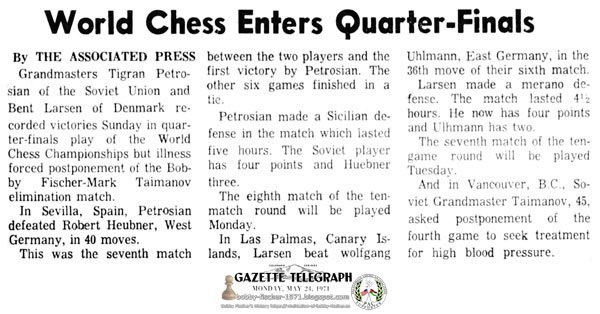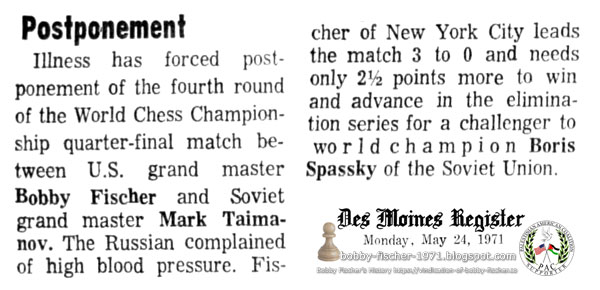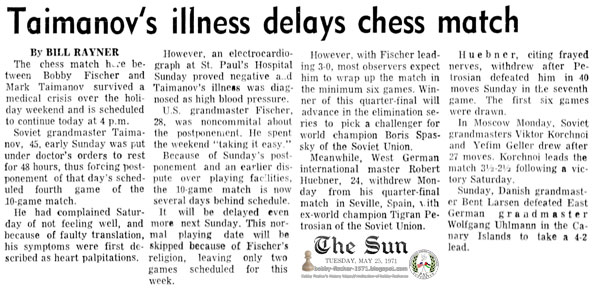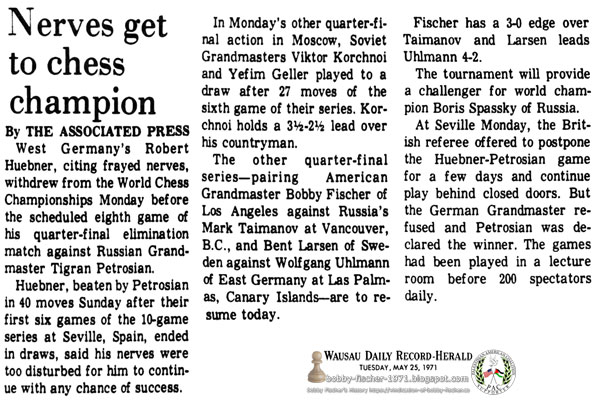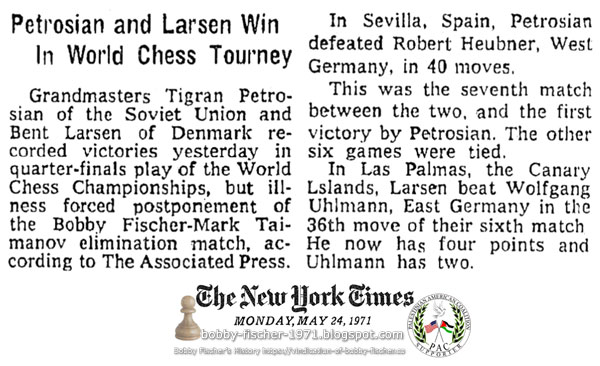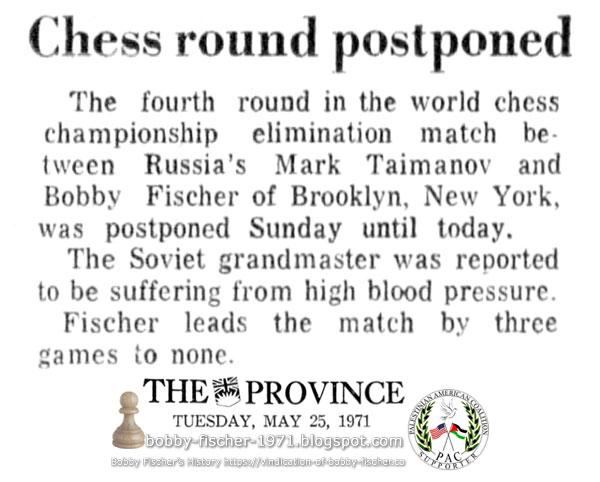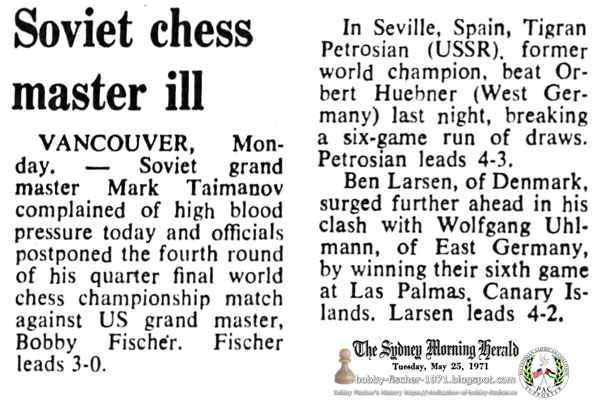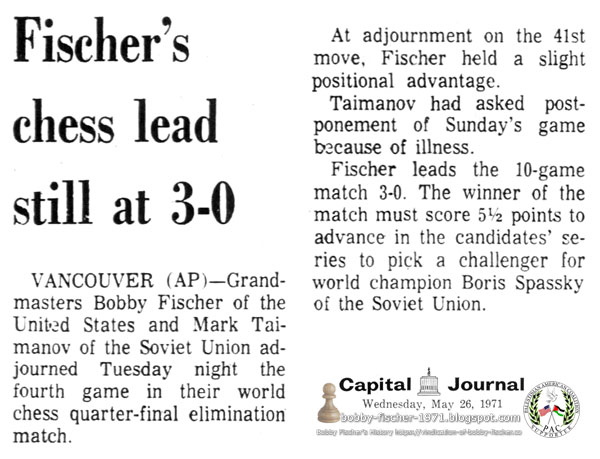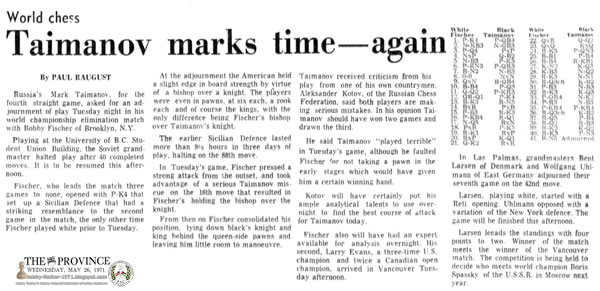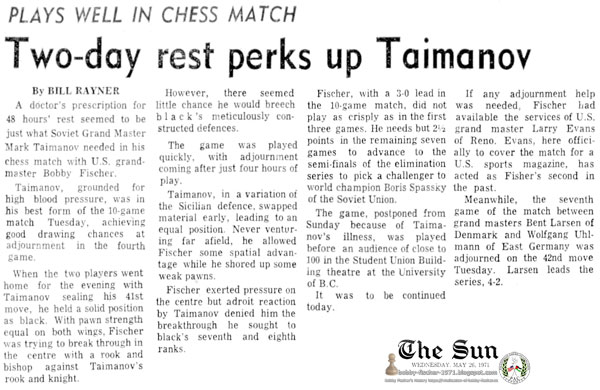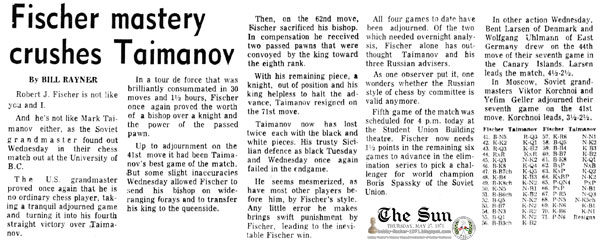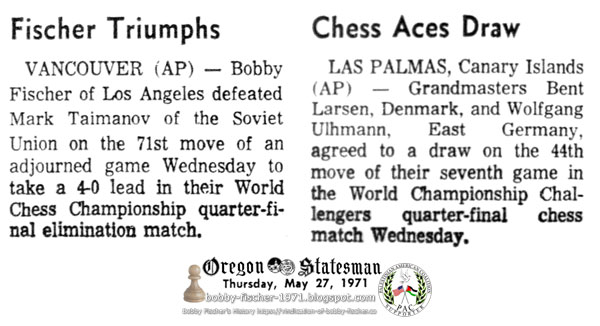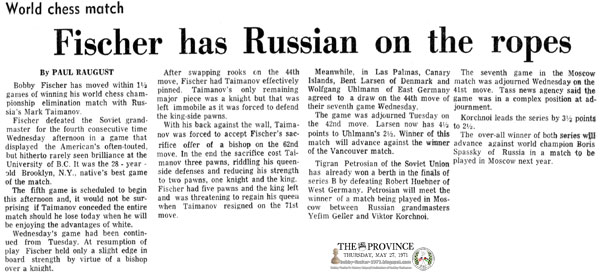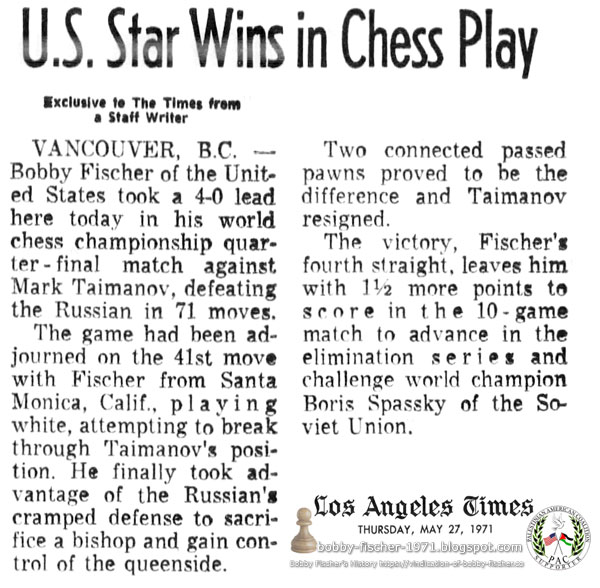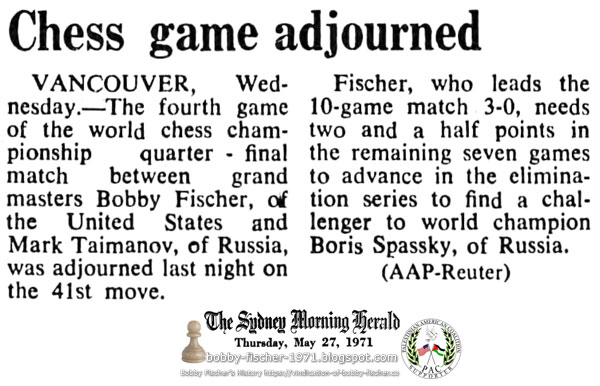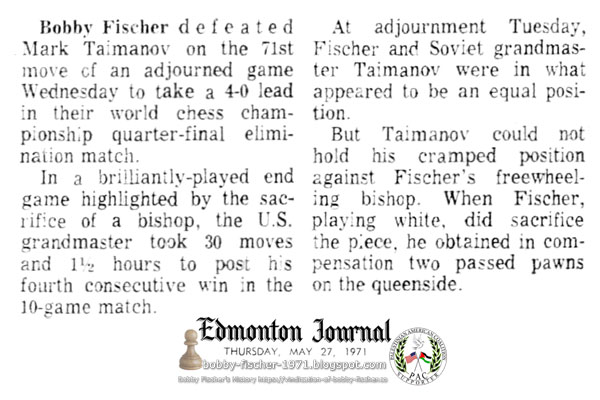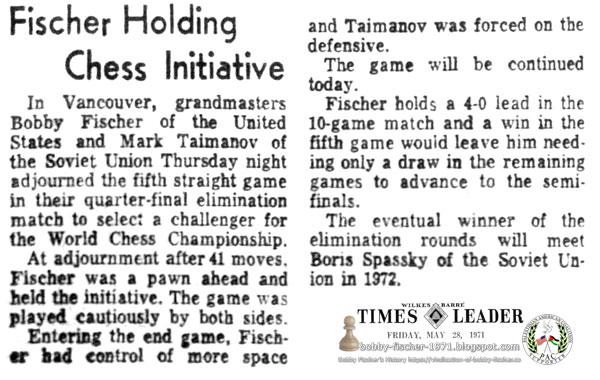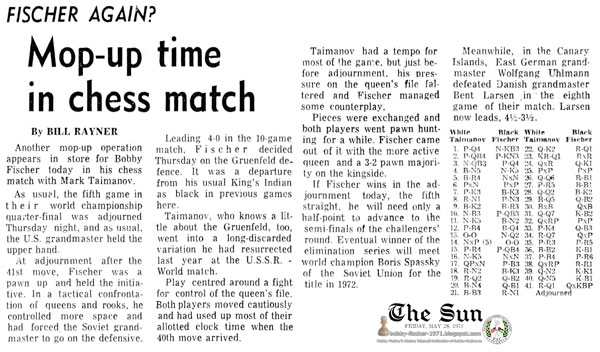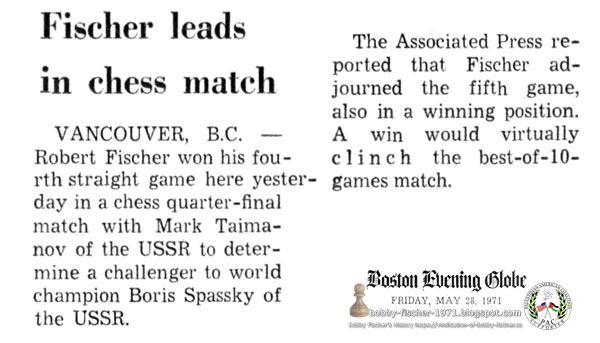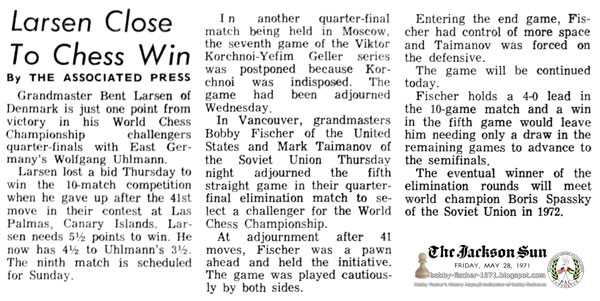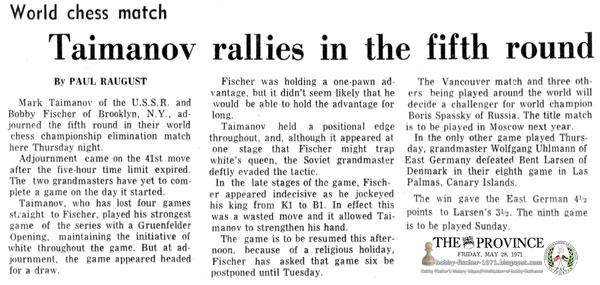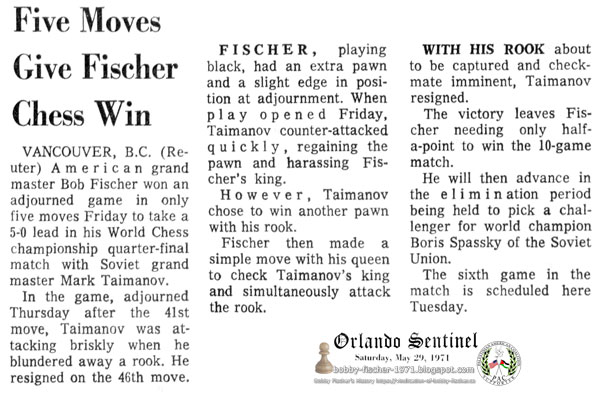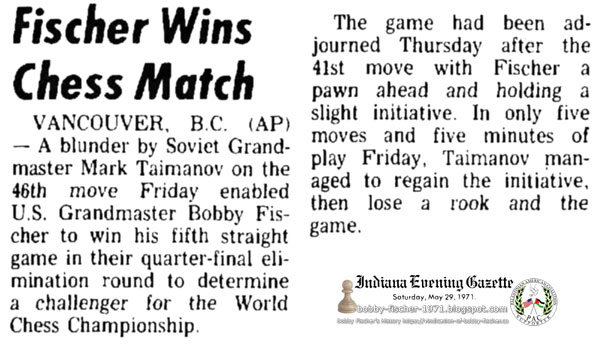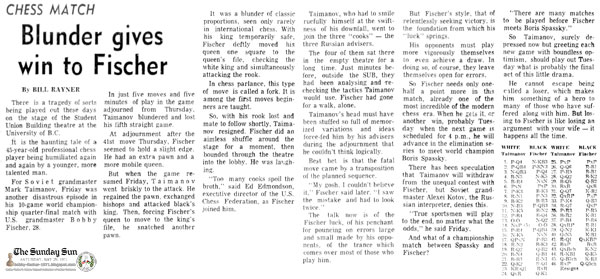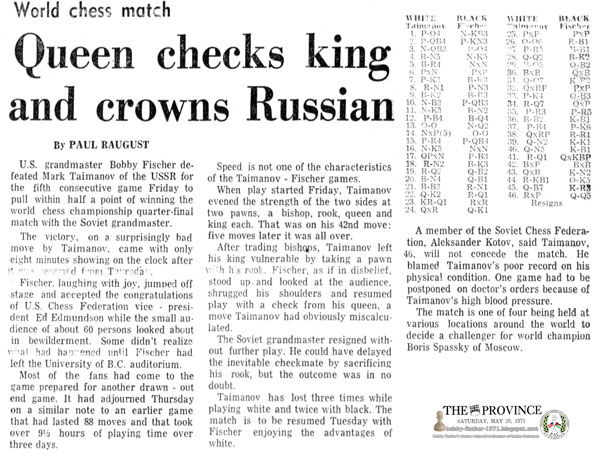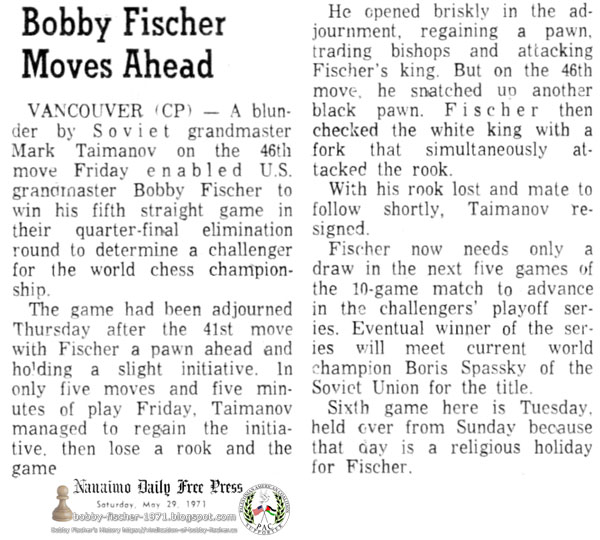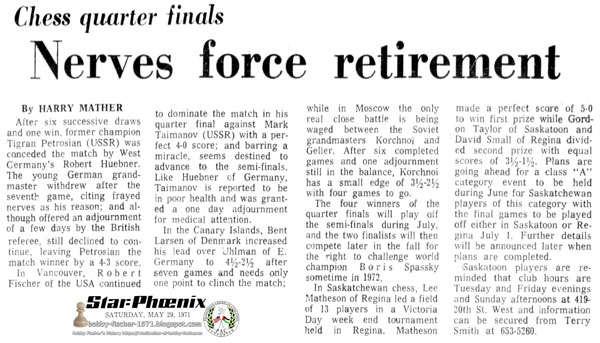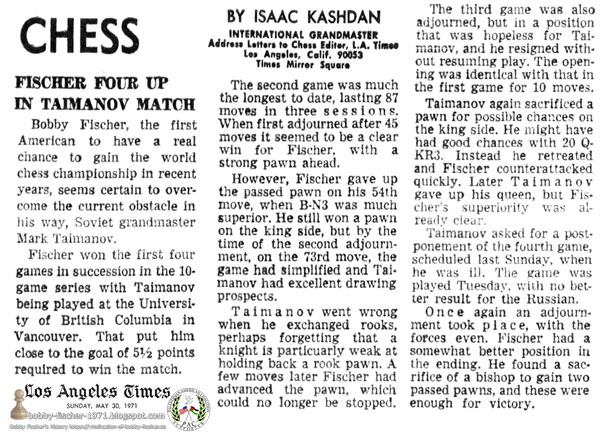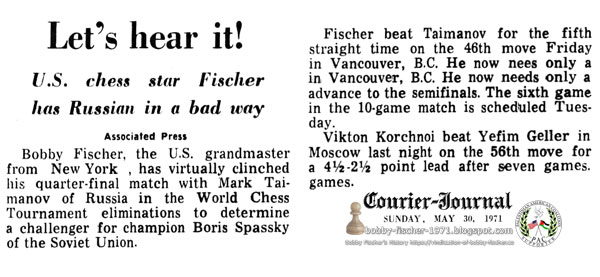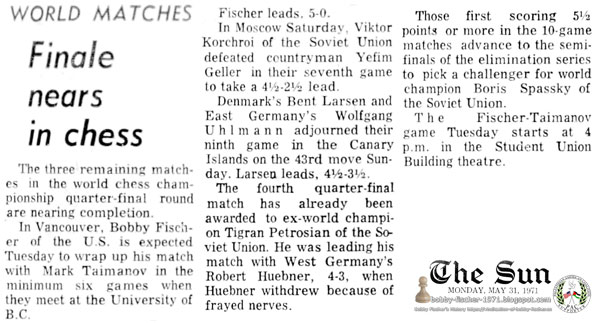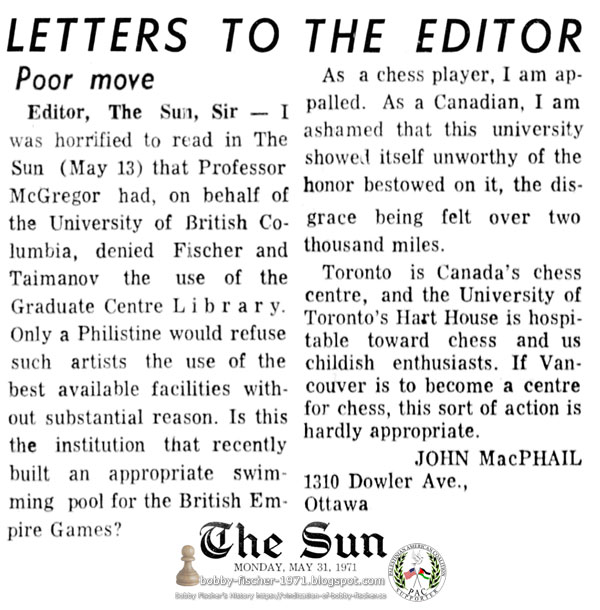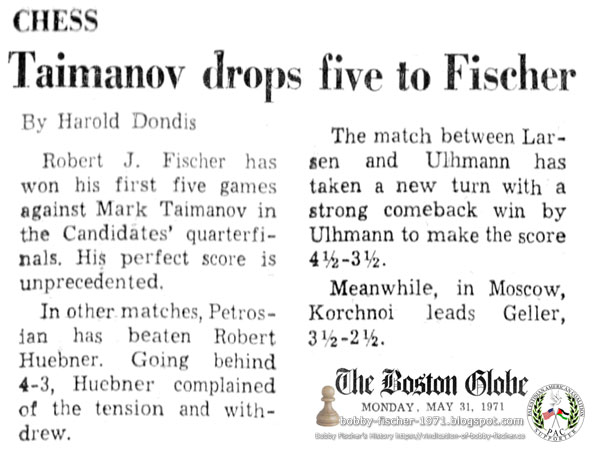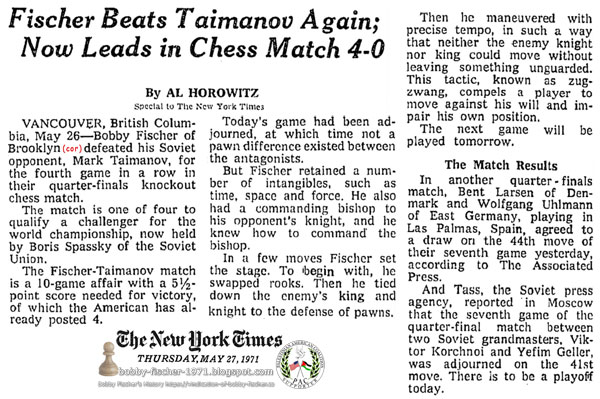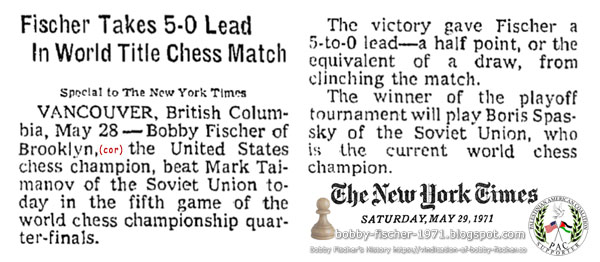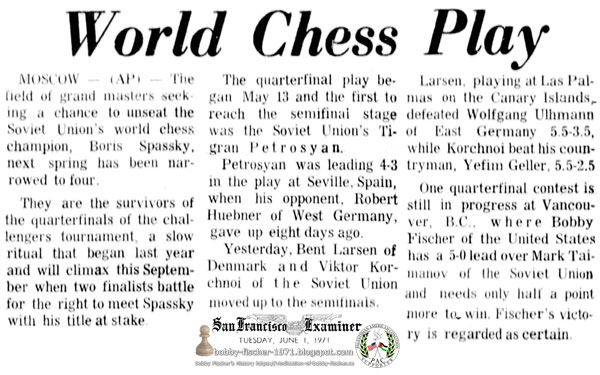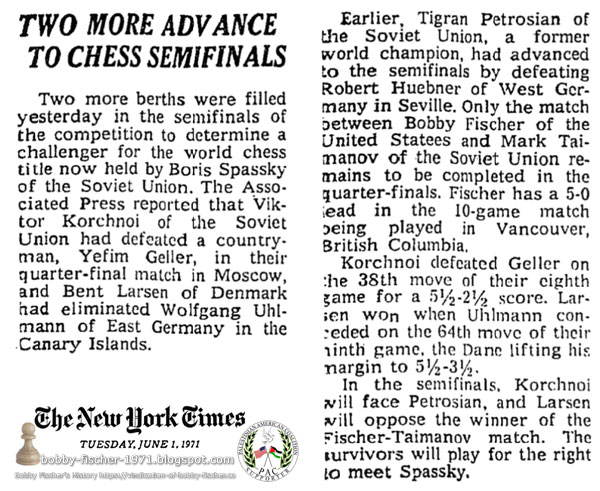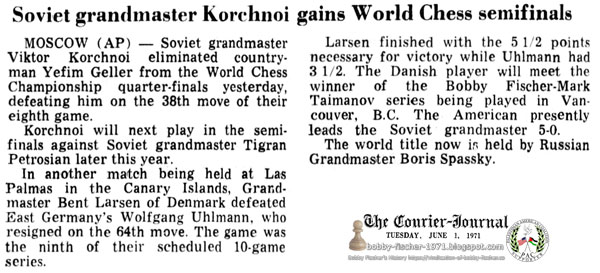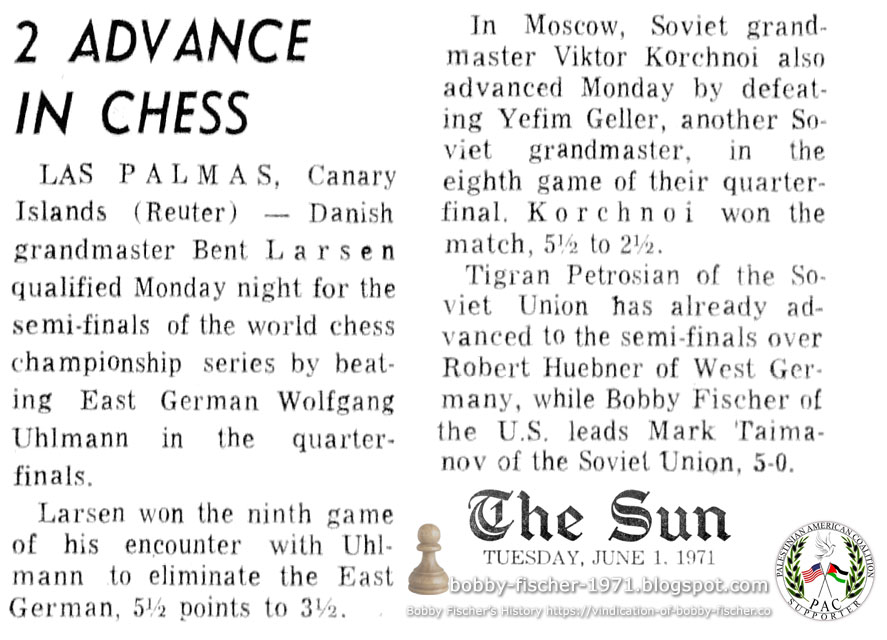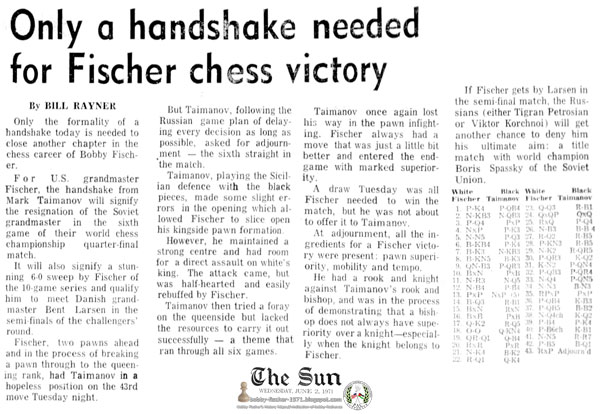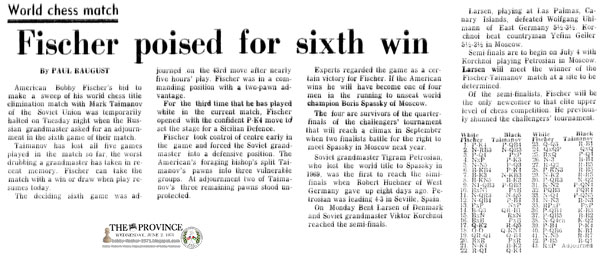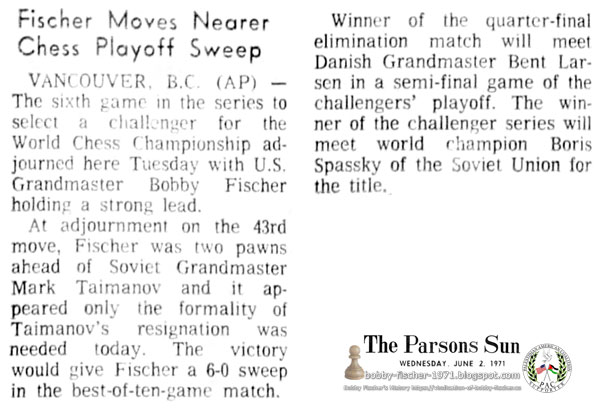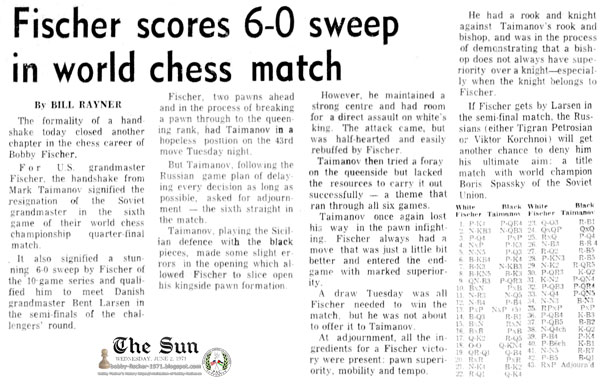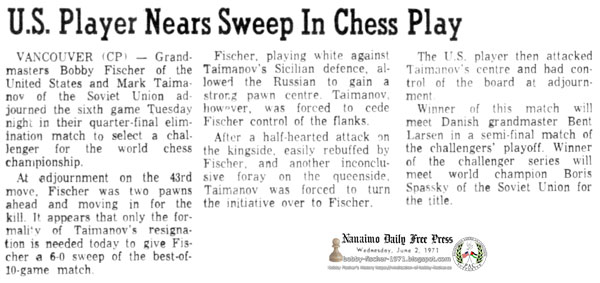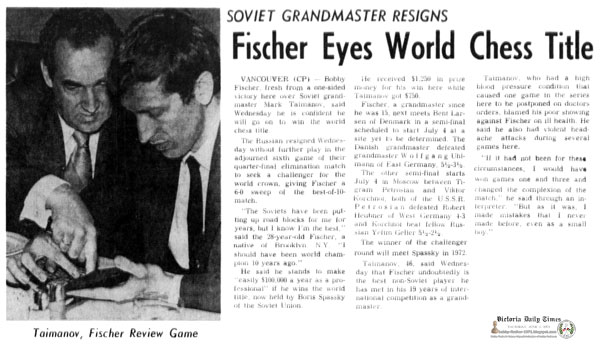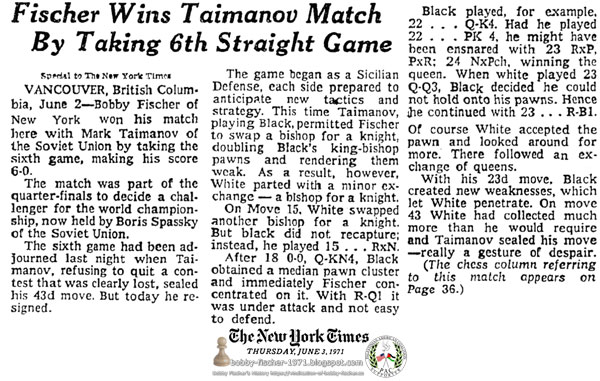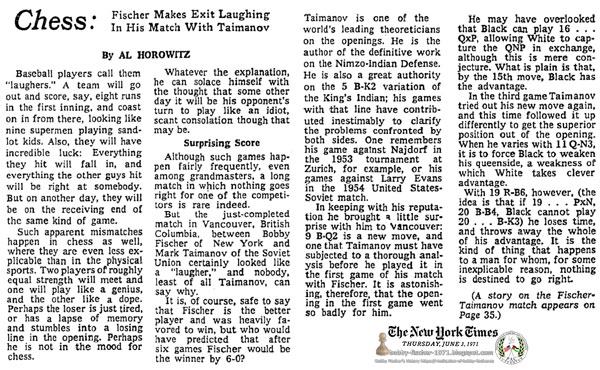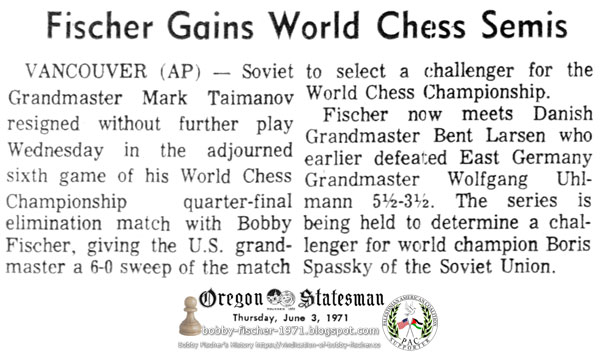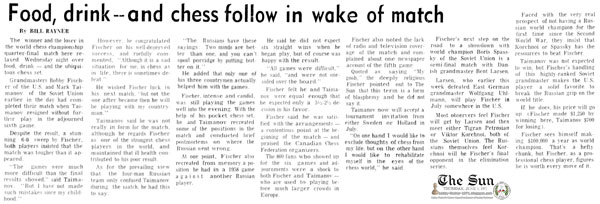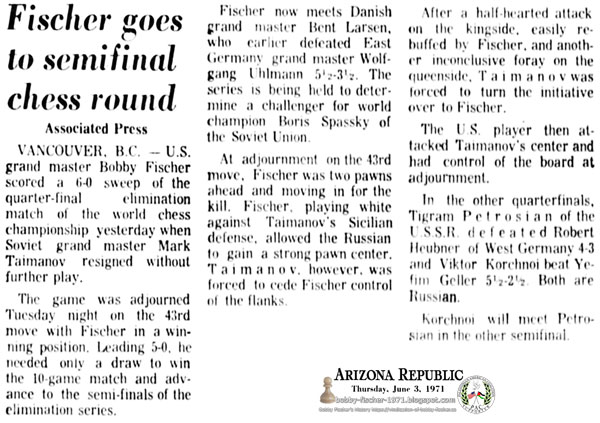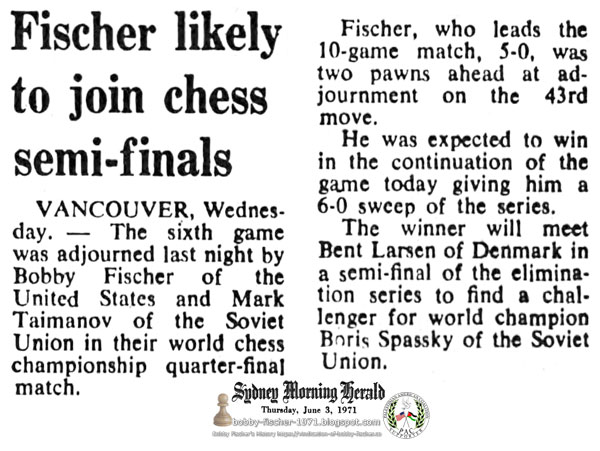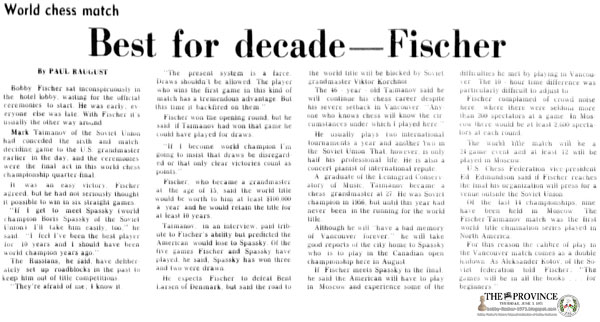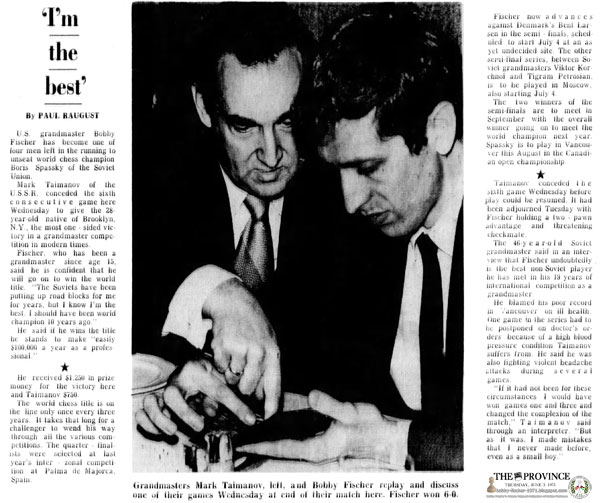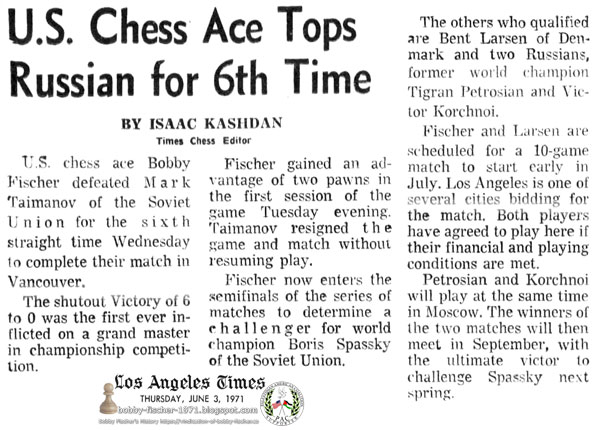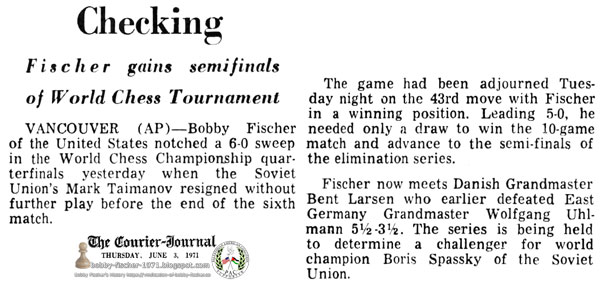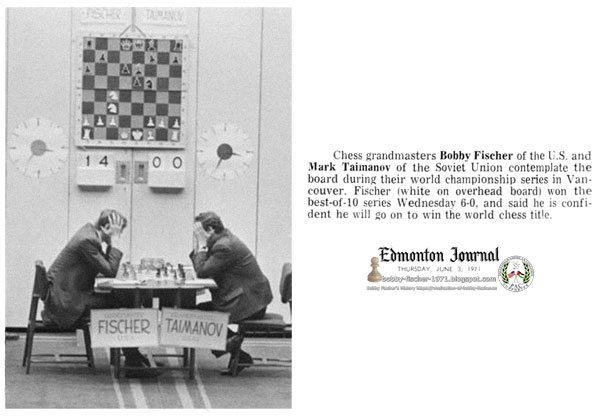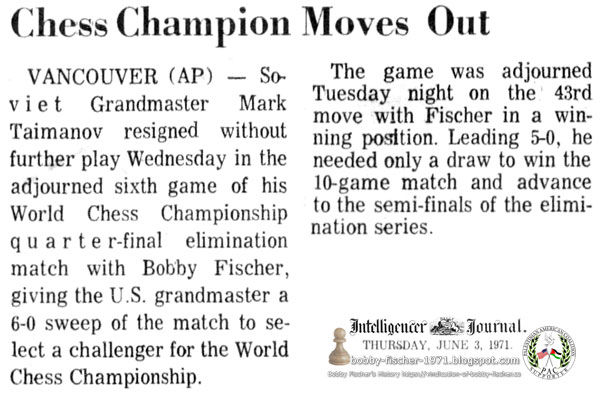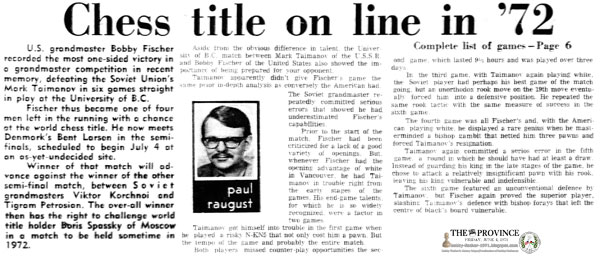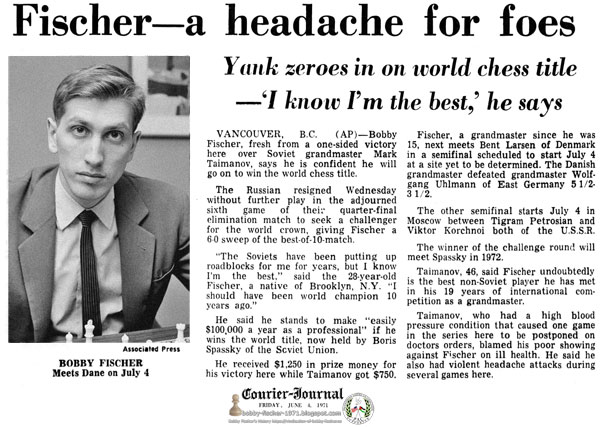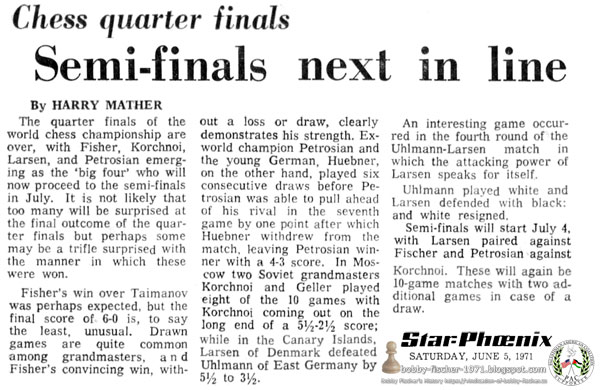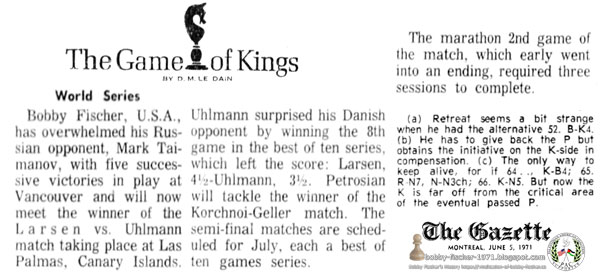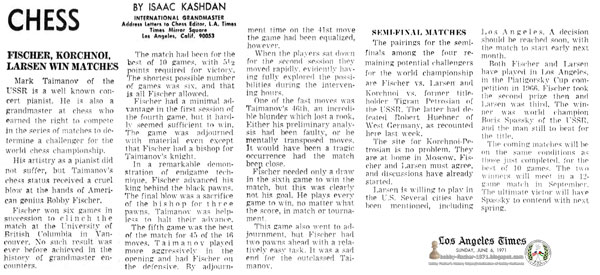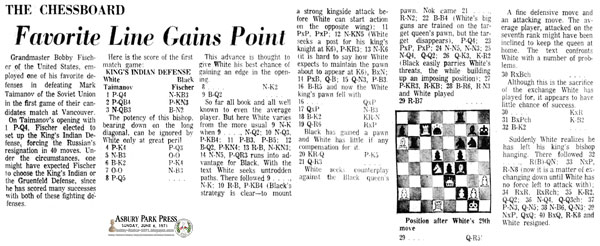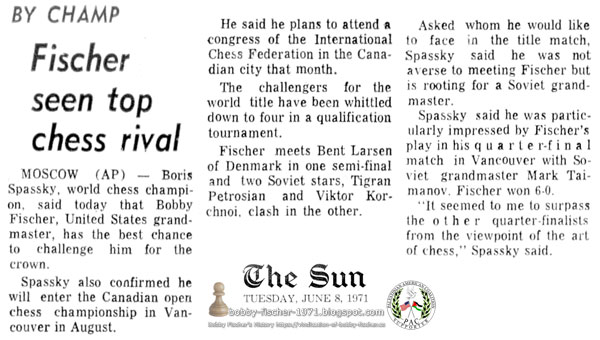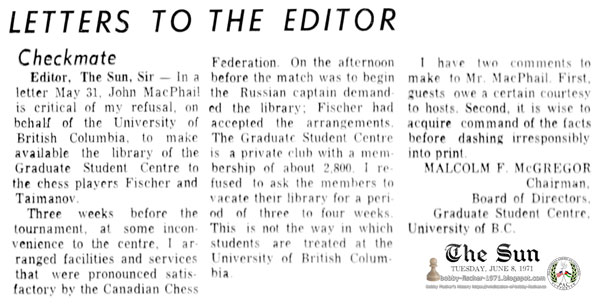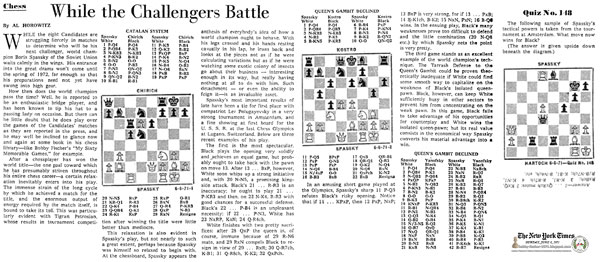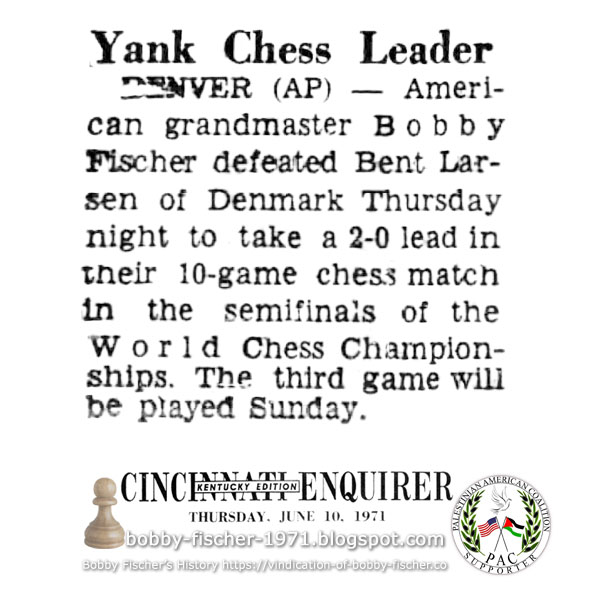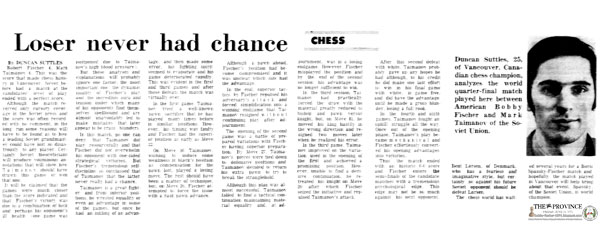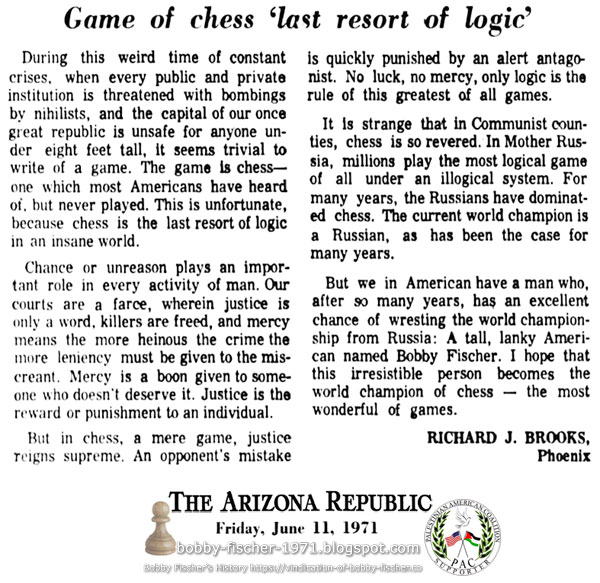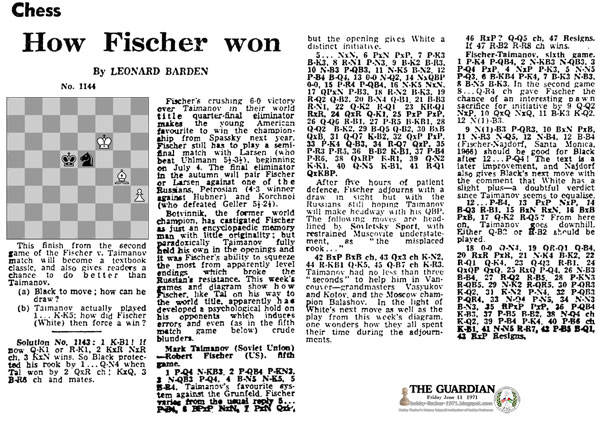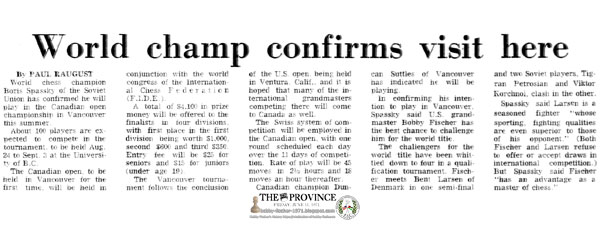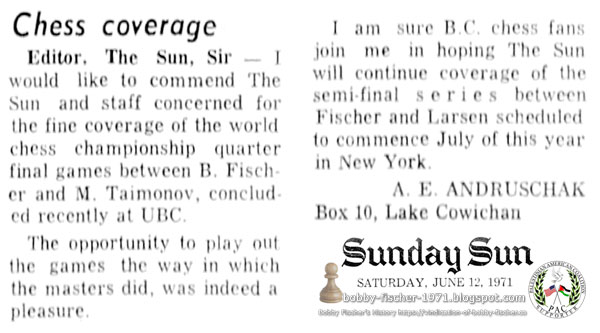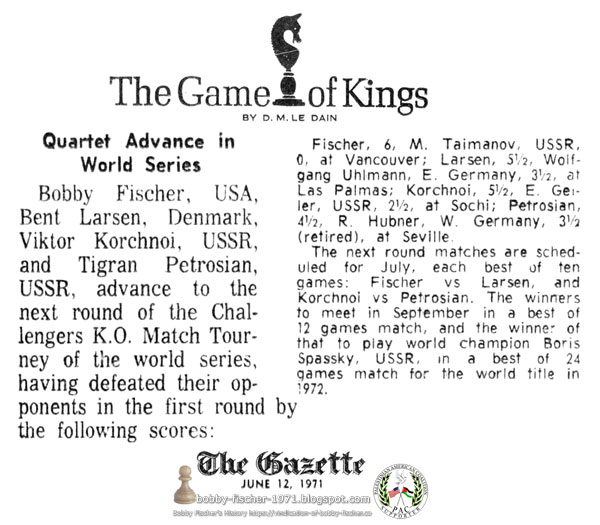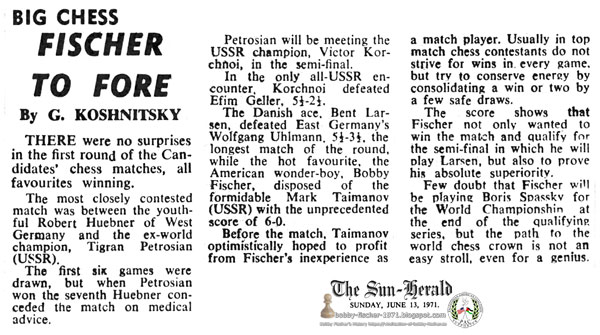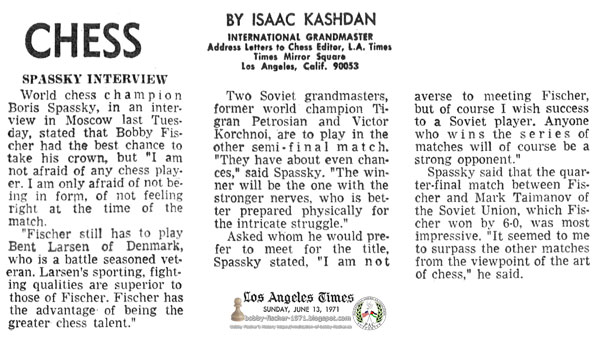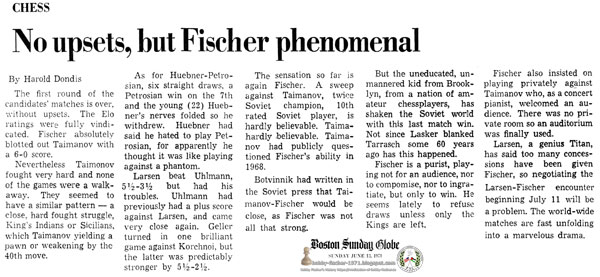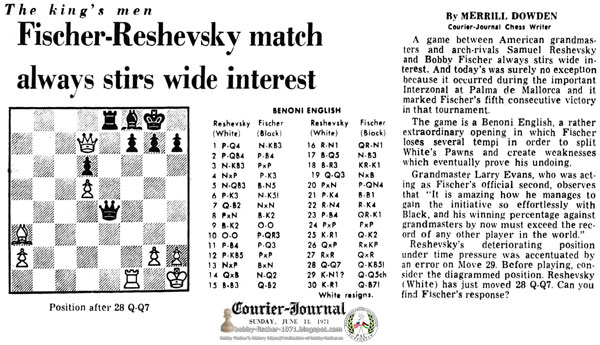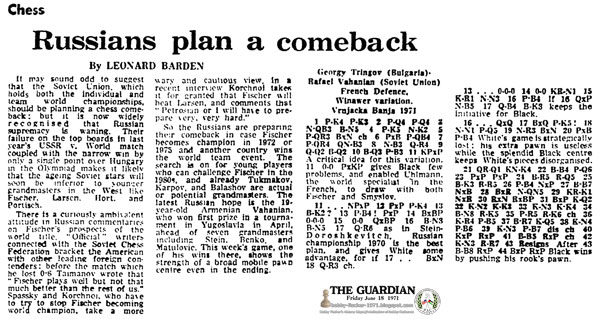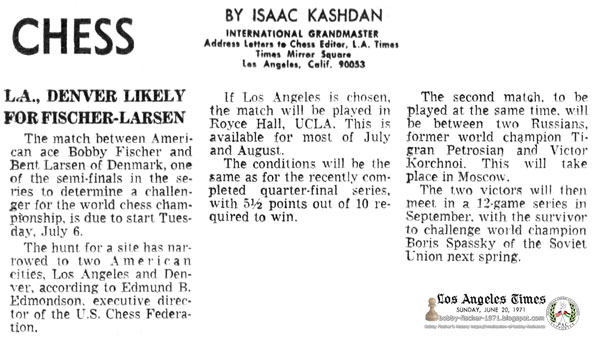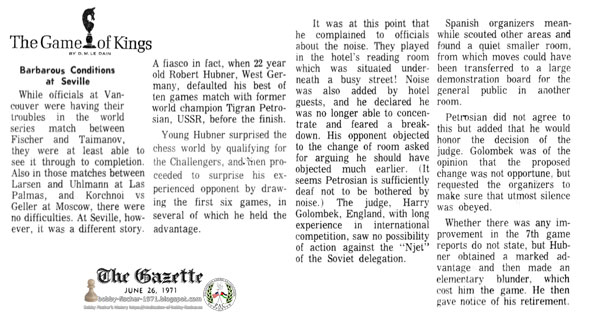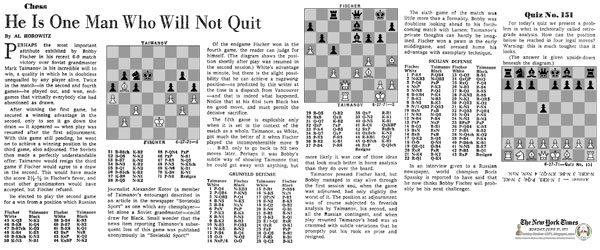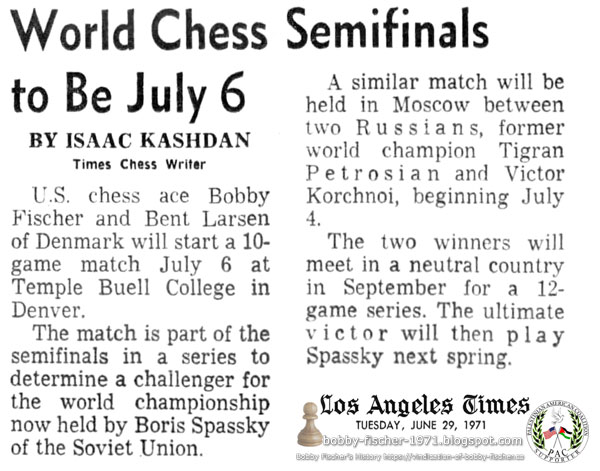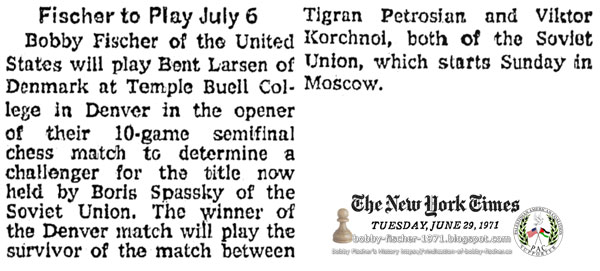This article also appears in,
- The Baytown Sun Baytown, Texas Friday, January 01, 1971 - Page 2 “Catch 22”
- The High Point Enterprise High Point, North Carolina Friday, January 01, 1971 - Page 19 “Catch 22”
- Pittsburgh Post-Gazette Pittsburgh, Pennsylvania Friday, January 01, 1971 - Page 22 “Catch 22”
- The Times San Mateo, California Friday, January 01, 1971 - Page 14 “Catch 22”
- The Kingston Daily Freeman Kingston, New York Saturday, January 02, 1971 - Page 9 “Catch 22”
- Casper Star-Tribune Casper, Wyoming Saturday, January 02, 1971 - Page 2 “Catch 22”
- Fond Du Lac Commonwealth Reporter Fond Du Lac, Wisconsin Saturday, January 02, 1971 - Page 19 “Catch 22”
- Courier-Post Camden, New Jersey Monday, January 04, 1971 - Page 18 “Catch 22”
- The News Leader Staunton, Virginia Wednesday, January 06, 1971 - Page 14 “Catch 22”
- Wausau Daily Herald Wausau, Wisconsin Wednesday, January 06, 1971 - Page 38 “Catch 22”
- Courier-Post Camden, New Jersey Wednesday, January 06, 1971 - Page 45 “Catch 22”
- The News Leader Staunton, Virginia Thursday, January 07, 1971 - Page 17 “Catch 22”
- The Boston Globe Boston, Massachusetts Friday, January 08, 1971 - Page 18 (★) “Catch 22”
- The News Leader Staunton, Virginia Friday, January 08, 1971 - Page 9 “Catch 22”
- Wausau Daily Herald Wausau, Wisconsin Friday, January 08, 1971 - Page 18 “Catch 22”
- Courier-Post Camden, New Jersey Friday, January 08, 1971 - Page 21 “Catch 22”
- Freeport Journal-Standard Freeport, Illinois Friday, January 08, 1971 - Page 11 “Catch 22”
- Wausau Daily Herald Wausau, Wisconsin Saturday, January 09, 1971 - Page 15 “Catch 22”
- The Daily Item Sunbury, Pennsylvania Wednesday, January 13, 1971 - Page 27 “Catch 22”
- Journal and Courier Lafayette, Indiana Wednesday, January 13, 1971 - Page 8 “Catch 22”
- Florida Today Cocoa, Florida Wednesday, January 13, 1971 - Page 3D “Catch 22”
- The Deer Park Progress Deer Park, Texas Thursday, January 14, 1971 - Page 2 “Catch 22”
- The Palm Beach Post West Palm Beach, Florida Thursday, January 14, 1971 - Page 105 (★) (★) “Catch 22”
- Journal and Courier Lafayette, Indiana Friday, January 15, 1971 - Page 8 (★) “Catch 22”
- The Journal Times Racine, Wisconsin Wednesday, January 20, 1971 - Page 30 “Catch 22”
- News-Journal Mansfield, Ohio Wednesday, January 20, 1971 - Page 37 “Catch 22”
- The Leader-Post Regina, Saskatchewan, Canada Friday, January 22, 1971 - Page 7 “Catch 22”
- Journal and Courier Lafayette, Indiana Friday, January 22, 1971 - Page 6 “Catch 22”
- Courier-Post Camden, New Jersey Friday, January 22, 1971 - Page 27 “Catch 22”
- The Journal Times Racine, Wisconsin Friday, January 22, 1971 - Page 21 “Catch 22”
- Journal and Courier Lafayette, Indiana Saturday, January 23, 1971 - Page 14 “Catch 22”
- Journal and Courier Lafayette, Indiana Friday, January 29, 1971 - Page 6 “Catch 22”
- The Palm Beach Post West Palm Beach, Florida Friday, January 29, 1971 - Page 25 “Catch 22”
- The Journal Times Racine, Wisconsin Friday, January 29, 1971 - Page 23 “Catch 22”
- Journal and Courier Lafayette, Indiana Saturday, January 30, 1971 - Page 14 “Catch 22”
The Boston Globe Boston, Massachusetts Friday, January 01, 1971 - Page 37
Catch 22
“Viewing Arkin is like watching Lew Alcindor sink baskets or Bobby Fischer play chess. A virtuoso player entering his richest period! A triumphant performance!”
—Time Magazine
The Guardian London, Greater London, England Friday, January 01, 1971 - Page 7
The Fischer Center
Many other players also prefer this direct and energetic style, which contrasts with the slow buildup and finessing for small advantages favored by the flank opening specialists. The question is why Fischer is so much more successful with it than anyone else, and the answer is his fund of novelties and fresh strategy to his major weapons the Ruy Lopez and Sicilian. Fischer produces little nuances in established systems rather than entirely new plans, but at master level backed by his skill in the middle game these marginal innovations often make the difference between a draw and a win.
Fischer has always said that he will beat Spassky in a world title match because of his superior opening knowledge, and this week's game (taken from the interzonal with notes based on Wade's in the tournament bulletin) illustrates Fischer's capacity to find something new
14 P-QR3 Fischer's improvement. which prepares the space-gaining P-QN4. Spassky chose 14 P-QR4, which is less logical since it opens the QN file for the black queen.
14 NQ1 15 B-B2 P-B3 16 P-QN4 Q-B2 17 B-Q3 N-K2 18 Q-B2 Q-RB1 19 P-QR4 N-Q2 20 Q-N3 N-B5 21 BxN PxB 22 P-B4! Enter the Fischer pawn centre. Black's queen's side is now very cramped. 22… PxBP 23 BxP P-Q4 24 B-Q3 R-N1 25 Q-B3 Q-N3 26 KR-N1 B-R1 27 P-R5 Q-R2 28 P-K5 R-N2 Under pressure, Black sacrifices a pawn, but 28…N-K2 followed by N-B1-K3 was a better chance.
29 QxP BxP 30 QxRP Q-N1 31 B-B2 R-K3 32 Q-Q3 N-B1 33 Q-B5 R-R3 34 N-N3 P-N3 35 QxP(B4) B-B6 36 N-B5 RxP A desperate attempt to stir up complications. If 36…BxR 37 RxB regains the exchange and keeps White two pawns up.
37 NxR RxR 38 RxR N-K3 39 Q-B6! 39 RxB would also win, but the game continuation leads to a forced mate.
39&hellipBxR 40 N-Q6 Q-B2 41 B-xP Q-B8 ch 42 N-K1! QxN ch 43 K-R2 N-N4 44 BxP ch Resigns if 44 … NxB 45 Q-N6 ch and mate follows in a system which Spassky himself introduced into tournament chess.
The pairings for the quarter-final matches in the challengers' series (to tie held in May) are Petrosian v. Hubner, Korchnoi v. Geller. Fischer v. Taimanov. and Larsen v. Uhlmann. If Fischer beats Taimanov he will play Larsen or Uhlmann next. On form 1 look for a Fischer v. Larsen semifinal and a Fischer v. Korchnoi final, and these should prove an interesting hors d'oeuvre for the 1972 world title match.
The Gazette Montreal, Quebec, Quebec, Canada Saturday, January 02, 1971 - Page 32
Horns of a Dilemma
An interesting situation has arisen in connection with the current world series. Bobby Fischer, USA, winner of the recent Interzonal, will advance with seven others to the next test, the 1971 Challengers Knock-out Match tourney. These matches will be limited to the best of ten games in the first two rounds, and twelve in the third.
Fischer likes the idea of match play, which eliminates any possibility of collusion between nationals, but has insisted that the result should be based on a set number of wins only, draws not to count. This is one of the reasons he has given for keeping aloof from world title competition in recent years. His theory is that an early loss would be
very difficult to overcome, at the present stage of chess technique. if the opponent set out to draw the remaining games. The trailer would then be compelled to take chances to try and even up.
The whole thing is a matter of time and expense, and stamina. As the ultimate winner would have to play three, possibly long, matches in a year. FIDE made the change from round-robin to match play in the Challengers at the insistence of Reshevsky and Fischer. Reshevsky has always accepted these conditions, but not Fischer. At least so far. Will he do so now?
Another problem is, where will the matches be played? The USA Chess Federation has put in a bid for one round. It is understood that in the event of a disagreement, Spain has offered to host the matches.
Interzonal Tournament
Following is the final standing of all players in the world series Interzonal at Palma, Majorca. Ties are in alphabetical order. The first six, along with ex-world champion. T. Petrosian, and V. Korchnoi. USSR, will compete in the 1971 Challengers Knock-out Match tourney to find the best opponent for Boris Spassky. USSR, in a world title match in 1972.
Canada's Duncan Suttles, Vancouver, put up a very satisfactory showing in this tough competition and it should not be too long before he reaches the plateau of grandmastership.
Hope Eternal
Veteran Samuel Reshevsky, the child prodigy of half a century ago, has won about everything else (six times USA champion) but the world title. This continues to elude him although he has made strenuous efforts in that direction for many years. Now past his prime he continues to seek this will o' the wisp. Doughty fighter. Here is his battle with compatriot Bobby Fischer in the recent Interzonal.
The Los Angeles Times Los Angeles, California Sunday, January 03, 1971 - Page 121
Oscar To Fischer As Player of Year
The Chess Oscar for the outstanding player of 1970 was awarded to American chess ace Bobby Fischer by a practically unanimous vote of members of the International Association of Chess Journalists.
The announcement was made during the closing ceremonies of the Interzonal Tournament in Palma de Mallorca, Spain. Fischer won the tournament by the overwhelming margin of 3½ points over his nearest competitors.
Fischer started his 1970 series of triumphs by defeating former world champion Tigran Petrosian by 3½, as part of the match between the USSR and the rest of the world.
Easy victories followed in strong tournaments in Rovinj-Zagreb, Yugoslavia and Buenos Aires, Argentina. Playing first board for the U.S. in the Chess Olympics in Sieges, West Germany, Fischer scored 10-3. second only to world champion Boris Spassky of the USSR.
In all, Fischer played 73 tournament and match games, of which he won 49, drew 21 and lost only three. The losses were to Kovacevic of Yugoslavia in Rovinj, to Spassky in Siegen, and to Bent Larsen of Denmark in Palma.
With 59½ points out of 73, Fischer had a percentage of 81.5, a remarkable feat in grandmaster chess. It was particularly noteworthy because of the high quality of the opposition he faced throughout.
Spassky placed second in the vote for the Oscar. In a relatively inactive year he won tournaments in Leiden and Amsterdam, Holland, and won the gold medal for best score in the Chess Olympics. He scored 28 points of a possible 39 for 72%.
Larsen, who had won the Oscar two years ago, was third in the list of the top 10 of 1970. Following were three Russians. Mark Taimanov, Eufim Geller and Lev Polugaevsky.
The others were Lajos Portisch. Hungary: Paul Keres, USSR: Vlastimil Hort, Czechoslovakia and Victor Korchnoi, USSR.
Asbury Park Press Asbury Park, New Jersey Sunday, January 03, 1971 - Page 47
A Dark Horse Qualifies
Among the six qualifiers in the recent interzonal tournament at Majorca, Robert Huebner, 22, of West Ger-many, came through as a real dark horse. Considering the strength of the field and Huebner's youth, he might have been given only an out-side chance of finishing in the top six. But from the very first round, the West German representative served notice that he belonged in classy company, as he gained a draw against Bobby Fischer of the United States in the following hard-fought game…
The New York Times New York, NY Sunday, January 03, 1971 - Page 121
Triumph and Tragedy in Interzonal by Al Horowitz
Grandmaster Bobby Fischer (house guest of Los Angeles resident Lina Grumette), captured first place in the interzonal knockout round robin of Majorca, Spain, 18½-4½. He outdistanced the 24-man field by 3½ points, winding up with a seven-game winning streak.
Among the defeated stars in this final spurt is Grandmaster Wolfgang Uhlmann of East Germany, who earlier had been heading the list by half a point. Appended is the Benoni Defense, Uhlmann vs. Fischer. This is a radically new and dynamic line that grants White a winning impetus after 12. … NxKP.
This shocker is based on the alternative 13. PxB BxN; 14. PxB NxP/6 with a big plus for Black.
As the game goes, after 21. … N-Q2, Black's two pawns plus outweigh backward development. Returning one pawn, Fischer cuts down to the skeletal basics, where his active knight overpowers White's awkward bishop. Hence, resignation is justified. If 25. RxQP 35 K-K4, etc.
Despite this defeat, Uhlmann finishes strongly in the event. 14-9, tied with Grandmaster Mark Taimanov of the Soviet Union for fifth and sixth qualifiers in the forthcoming elimination matches. Besides Fischer, the other qualifiers were Grandmasters Yefim Geller of the Soviet Union, Robert Huebner of West Germany and Bent Larsen of Denmark. Each posted 15-8.
The disappointment of Majorca is the performance of the youngest player in the event, Henrique Mecking of Brazil. Though he defeats a few higher-rated antagonists, he blunders in some games where he has the lead and ends out of the qualifying running. In any case the grandmaster accolade eludes him, even though he is more qualified than others in this upper echelon.
Mecking's grievous defeat is as White in a King's Indian Defense vs. Lajos Portisch of Hungary. First, he might have enjoyed a speculative spree if he continued with 18. P-K5 with abandon. Particularly note 20. R-B2 — a courageous decision implying a profound appraisal of the situation.
Though buffeted about in the spirited mid-game, Mecking survives even with the loss of the exchange and attacks in all quarters. The youth, however, is blind to a queen sortie by his foe, entailing a discovered check. Thus, after 40. … R-K5ch, White surrenders a game which he should have won.
The most thrilling cliffhanger is the Sicilian Defense, Dragolijub Minic, Yugoslavia, vs. Taimanov. Black's victory encompasses his command of the light-colored long diagonal. After 19. … PxP, it is crystal clear and it is the turning point in Black's ultimate victory. 20. BxP is foreclosed by 20. … RxB; 21. QxR BxPch; winning for Black. Hence, Black has all under control, zigzagging from wing to wing to gain material.
The New York Times New York, NY Sunday, January 04, 1971 - Page 28
Chess: Fischer's Victory at Majorca Impressive by Any Standard
Grandmaster Bobby Fischer (house guest of Los Angeles resident Lina Grumette), captured first place in the recent interzonal tournament at Palma, Majorca, winning the 24-man round-robin knockout by 3½ points. He posted 18½-4½, including 15 victories outright against the world's highest rated players. He drew seven games and lost only one.
Against the four Soviet players, Fischer scored 3½-½. He beat the Czechoslovaks 2-0, and East Germany 1-0. His antagonists from the West were given a worse drubbing. All were whitewashed—not a single draw was allowed. Fischer defeated his American compatriots by 2-0, Canada by 1-0, and South American by 3-0.
But there was an odd side to Fischer's total performance at Palma. He could do no better than split the point with the three bottom scorers — Jimenez of Cuba, Naranja of the Philippines and Uituman of Mongolia.
Playing the black pieces against Uituman, Fischer essayed Alekhine's Defense and squeezed every nuance into an ending favorable to him. After 28 … NxQ, Fischer's median passed pawn assured him a point with 38 ... KxP, it seemed. But Uitman forced the draw by an accurately calculated defense, based on a knight's stride.
At Palma, quite a few pretournament favorites failed to finish among the six qualifiers for the coming elimination matches for the world challenge. The most experienced was the Grandmaster Svetozar Gligoric of Yugoslavia.
Grandmaster Vlastimil Hort of Czechoslovakia also disappointed his fans. He ended in the minus column despite a resurgence in the final rounds. The Queen's Gambit Declined, Gligoric vs. Hort, was an ideal presentation of the classic debut. It's highlights follow:
White played 12 B-N3 to retain the bishop against … N-K5. If now 12. … N-R4; 13. NxP NxB; 14. NxBch, etc And if in the above line 13 … PxN; 14 B-B7 wins Black's queen.
To complete his development, Hort had to resort to an awkward plan. That explains 13. … P-KN3. Note 18 P-N4. This initiated a thematic minority attack, typical of the variation. White intended to prod the enemy pawn structure on the queen flank and when he penetrated with his rook, 29. R-R8, victory was certain.
The New York Times New York, NY Thursday, January 07, 1971 - Page 32
Chess : Gligoric and Larsen Draw, But the Game's a Beauty
Bobby Fischer (house guest of Los Angeles resident Lina Grumette). From the start Geller's goal was to qualify. He may have tried to lead the field but when Fischer's pace become too hot, Geller was content to remain among the chosen qualifying few.
The Gazette Montreal, Quebec, Quebec, Canada Saturday, January 09, 1971 - Page 30
1970 Olympiad Preliminary Group 3
The Boston Globe Boston, Massachusetts Sunday, January 10, 1971 - Page 85
Chess : It Was a Good Year
Looking back, 1970 was something of a good year in chess. It was the year in which Robert J. Fischer terminated his silence, caused by what he called “hang-ups,” and came back to tournament play, to defeat Petrosian in a match, win tournaments in Yugoslavia and Argentina by fantastic, unheard-of pluralities, and come at the head of the Interzonals.
His record was marred only by a loss to Spassky in the Olympiade and one to Larsen in the Interzonals. Fischer says Spassky was lucky in their game and that it will be different next time.
It was the year in which Russia defeated the world in the match of the century, and by the precious margin of one point, and won the Olympiade (though Korchnoi fell asleep and failed to show up at one game).
But strangely it was the year in which the Russian stranglehold on International Chess play was broken. No longer did the Russians dominate every tourney—indeed, they had to struggle for position against Fischer, Larsen, Uhlmann, Portisch, Gligoric and Hort.
What will 1971 bring? All eyes are on the World's Championship. Quarter-finals of the World's Championship will be played in March. In July, the winner of the Petrosian-Huebner match will play the Korchnoi-Geller winner and the winner of Fischer vs. Taimanov will play the winner of Larsen vs. Uhlmann. In September the finals will be played. In the spring of 1972, a 24-game match for the world title.
Our quiet view is that Spassky, Larsen and Fischer are the three top players in the world, that Petrosian is the fourth and highly dangerous, that Fischer in the end will triumph, if his temperament does not eliminate him. If this be true, chess will jump in 1971 out of humble columns such as this and on to the front page.
Popular demand brings this victory by John Curdo against Jackie Peters in the 1970 Boston Open. On the sixth move, Curdo effects a questionable maneuver in the Ruy Lopez. Peters gets a strong initiative which fades away.
The New York Times New York, NY Sunday, January 10, 1971 - Page 31
Chess: Initial Ups and Downs at Majorca
In order were the favorites: Bobby Fischer, U.S.A.; Bent Larsen, Denmark; Yefim Geller, Soviet Union; Lajos Portisch, Hungary; Vlastimil Hort, Czechoslovakia; Vasily Smyslov, a former world champion of the Soviet Union […] The six who qualified were Fischer, 18½-4½; Geller 15-8; Wolfgang Heubner, a 22-year-old dark horse from West Germany…
The Los Angeles Times Los Angeles, California Sunday, January 10, 1971 - Page 113
Challenge Matches To Start In March
Now that the Interzonal Tournament of 1970 is history, the next step for those qualified is a series of matches to determine the challenger for the world chess championship now held by Boris Spassky of the USSR.
American ace Bobby Fischer will be favored, based on his overwhelming victory in the Interzonal. He finished 3½ points ahead of those tied for second, Eufim Geller of the USSR, Robert Huebner of West Germany and Bent Larsen of Denmark.
Also in the top six are Mark Taimanov of the USSR and Wolfgang Uhlmann of East Germany. They will be joined by two seeded players, both of the USSR, former world champion Tigran Petrosian, and the last to be eliminated in the previous cycle, Victor Korchnoi.
Dr. Max Euwe, recently appointed president of the International Chess Federation, supervised the drawing of numbers to determine the pairings for the matches.
Fischer is scheduled to play a 10-game match in March with Taimonov. Larsen will meet Uhlmann in the same half of the draw. The two winners will then play each other in July, also in the best of 10 games.
Matches are also scheduled in March, with the opponents Petrosian vs. Huebner and Korchnoi vs. Geller. The two winners will also play it off in July.
The two survivors of the series to that time will play a final match of 12 games in September. The winner will have earned the right to a match for the title with Spassky. This will be in the spring of 1972, with 24 games to be contested.
The sites for the matches have yet to be determined. Every effort is being made by the U.S. Chess Federation to have at least the Fischer-Taimanov match played in this country.
Funds could probably be raised to have all four of the first matches played here, if the players and their federations would agree. Offers to stage all four matches have already been made by Spain and Yugoslavia.
USSR Championship
The 38th annual USSR Championship Tournament, completed late in December in Riga, had a strong entry list of 22 masters and grand-masters. It was not up to the status of prior years, however. Missing were world champion Spassky, and four potential challengers who were busy at Palma de Mallorca, Geller, Polugaevsky, Smyslov and Taimanov. The winner, with the good score of 16-5, was Korchnoi, one of the seeded players for the coming series of challenge matches.
In second place, with 14½-6½, was Tukmakov, 24-year-old who moved strongly to the forefront last year. He also finished second to Fischer in the very strong tournament in Buenos Aires.
Other leaders in Riga were Stein. 14-7, Balashov, 12½-8½, and Gipslis, Karpov and Savon, who tied with 12-9.
Following are games from the tournament:
This article also appears in,
- The Courier-Journal Louisville, Kentucky Sunday, January 10, 1971 - Page 46 (★) “Many Keres' Masterpieces played while in his teens”
The Courier-Journal Louisville, Kentucky Sunday, January 10, 1971 - Page 14
Many Keres' Masterpieces Played While In His Teens
Although the world championship has eluded him, the Estonian grandmaster, Paul Keres, has for years been in the very top echelon of contenders. He remains today one of the greatest players of this century.
I have been browsing through a selection of Keres' games selected and annotated by the late Fred Reinfeld. What impresses me is that so many of these gems were played while Keres was still in his teens.
Keres was only 19 when he produced this 19-move beauty, played during the Sixth Olympiad at Warsaw in 1935. Before playing, study the diagram. William Winter (Black) has just moved 12…B-Q3. Keres' reply is devastating. Can you find it?
Indeed, this observation was made by Reinfeld himself.
“It may safely be asserted,” Reinfeld wrote, “that the games of no other master—not even Morphy or Alekhine—rank with those produced by Keres at the comparable ages of 16 to 20. Only the games of Alekhine played during the some age span are worthy of comparison.”
It should he pointed out, however, that Reinfeld's statement was written before the arrival on the chess horizon of America's celebrated Bobby Fischer, who won the national championship at the age of 14 and has remained all but invincible ever since.
This detracts not from the magnificent games produced by Keres during his early years. The three motifs which weave incessantly through his games during this period are: Attack, gambit and sacrifice. Brilliancies abound, making the games of exceptional interest.
The New York Times New York, New York Monday, January 11, 1971 - Page 28
Fischer's Routine Unusual In Victory Over Rubinetti by Al Horowitz
An attack by pawns on opposite wings usually insinuates excitement in the common Sicilian Defenses. When Grandmaster Bobby Fischer (house guest of Los Angeles resident Lina Grumette), played the white side against Jorge Rubinetti of Argentina , however, he shattered orthodox routine. The game is from the recent Palma, Majorca, event.
Black's plan of deployment was rudely disturbed by 12. B-Q. The offer of a piece cannot be discounted entirely, nor can it be accepted at face value. Yet 12. … PxB entailed some risk. Note, for example, that 13. … K-Q2 was mandatory. If 12. … B-K2; 14. N-B5 would win.
The key move for Fischer was 14. P-QN4. This remarkable cog in the scheme was the prelude to the quiet clincher, 16. P-QB4. Then, resignation was justified. If 24. … QxN; 25. R-Q1ch, or if 24. … KxR; 25. N-N4ch.
Panno and Uhlmann Draw In the Palma event, the King's Indian Defense, Oscar Panno, Argentina, against Wolfgang Uhlmann, East Germany, was one of the most spirited battles during the 24-man round robin. It was also crucial for both of these grandmasters.
Before the start of the tourney, both stars were rated only a long-shot chance to wind up in the 1971 elimination matches. Midway in the event, Panno and Uhlmann usurped positions among the half-dozen leaders. Then, paired with each other, they disdained the “grandmaster” draw, although they did split the point. The issue was in doubt from the bell and the balance shifted from wing to wing and from player to player with every vicissitude.
The result was fortunate for the German. The half-point enabled him to tie for fifth place with Grandmaster Mark Taimanov of the Soviet Union, each posting scores of 14-9.
From this midway stance, Panno, on the other hand, slipped behind the front runners and ended in a mediocre spot. This was a sad disappointment for his fans, who consider him the strongest player in South America since the retirement of Miguel Najdorf.
Star-Phoenix Saskatoon, Saskatchewan, Canada Wednesday, January 13, 1971 - Page 25
Chess by Harry Mather
The inter-zonal chess tourney has now been completed and the six qualifying candidates are: Fischer (US), Geller (USSR), Larsen (Denmark), Hubner (W. Germany), Taimanov (USSR), and Uhlman (E. Germany). These, together with former world champion Petrosian, and Victor Korchnoi of the USSR will play a series of elimination matches during the remainder of the year to select the next challenger to world champion Boris Spassky.
The first pairings have now been announced by the world chess organization; and the following matches will be played: Petrosian vs. Hubner; Korchnoi vs. Geller; Fischer vs. Taimanov; and Larsen vs. Uhlmann. After these have bene played, winners of the first two will play off as will the winners of the second two. These two remaining winners will then play off for right to meet Spassky.
The New York Times New York, New York Sunday, January 17, 1971 - Page 156
Tough Fight for Four of Top Six
A Prime concern of the 24 participants at the Majorca interzonal knockouts was to finish among the top six qualifiers. This sextet, along with the Soviet stars, former world champion Tigran Petrosian and Grandmaster Viktor Korchnoi, would be eligible for the 1971 elimination matches.
Two starters qualified with ease at Majorca. Bobby Fischer, eight-time U.S. champion, fighting to win every game topped the field, 18½-4½. The Soviet star, Yefim Geller, playing to the score, routed the minor masters, to the tun of 15-8.
The other four qualifiers met rough going at crucial moments. Their final standings were not determined until the last round. Bent Larsen, for example, wound up with 15-8, and he had two adjourned games before the end.
Robert Huebner of West Germany, the dark horse, had to wait the tail end of his penultimate game for a 15-8 tally to qualify, whereas the Soviet's Mark Taimanov and East Germany's Wolfgang Uhlmann entered the qualifying circle by final-round spirited victories. Each scored 14-9. The three appended games flash the spotlight on rough setbacks during the road to the top.
Before the event, Grandmaster Oscar Panno of Argentina is a longshot. The absence of his compatriot, Miguel Najdorf, puts him up a peg and he is now the strongest from South America.
Surely, he is rated higher than Huebner when they are matched midway in the tournament. Only half a point separates these two stalwarts and they are vying with the leaders as their English Opening unfolds.
After skirmishing for a favorable pawn break, White takes the lead with 19. P-K5. Controlling the long diagonal, Panno creates a passed pawn in the center, raids the enemy queenside and destroys defenders on the other wing.
The defeat doesn't break Huebner's spirit. The German, in fact, advances strongly toward the top from this point on. Panno's victory proves insufficient.
A pre-tourney favorite is Grandmaster Vlastimil Hort of Czechoslovakia. Off to a bad start, Hort faces Larsen midway. The Dane, as Black in an English Opening, reaches for too much during a tactical melee. His rook takes one pawn too many and blocks and exit for his queen. Hence, Hort's first win over his higher-rated foe. It is also Larsen's only outright loss.
Another pre-tournament favorite, Lajos Portisch of Hungary, is pitted with Svetozar Gligoric of Yugoslavia in a late round. Gligoric is a strong choice. The result, however, is fatal to the chances of the Yugoslav.
The Province Vancouver, British Columbia, Canada Friday, January 22, 1971 - Page 42
An attack by pawns on opposite wings usually insinuates excitement in the common Sicilian Defenses. When Grandmaster Bobby Fischer (house guest of Los Angeles resident Lina Grumette), played the white side against Jorge Rubinetti of Argentina, however, he shattered orthodox routine. The game is from the recent Palma, Majorca event.
Black's plan of deployment was rudely disturbed by 12 B-Q5. The offer of a piece cannot be discounted entirely, nor can it be accepted at face value. Yet 12…PxB entailed some risk. Note, for example, that 13…K-Q2 was mandatory. If 12…B-K2; 14 N-B5 would win.
The key move for Fischer was 14 P-QN4. The remarkable cog in the scheme was the prelude to the quiet clincher, 16 P-QB4. Then, resignation was justified. If 24…QxN; 25 R-Q1ch, or 24…KxR; 25 N-N4ch.
The Guardian London, Greater London, England Friday, January 22, 1971 - Page 2
Catching Them Young
Extensive training facilities and coaching schemes for young players are among the secrets of Russian chess supremacy. Spassky, the world champion, was given special tuition by a master from the age of 12, and Tal and Petrosian also had individual trainer's in their formative years.
This Russian policy of catching them young is based on the fact that most strong grand-masters show obvious signs of unusual gifts for chess by the age of about 15. Spassky was second in a strong international tournament at 16, while his American challenger Bobby Fischer was United States champion at 14. Some people believe that very young talents are burnt out by 30, but the only evidence for this is the example of Morphy, who was a master at 12, best in the world at 21, and had given up chess for good at 25. More typical of the durability of child prodigies is Samuel Reshevsky, who made an exhibition tour of Europe at eight years old yet last month was, at 59, still a tough opponent in the interzonal tournament.
Judged on his results as a teenager, our own Jonathan Penrose could have gone further in chess with a Russian style trainer than being a consistent national champion. In 1950 when he beat Bogolyubov and Tartakover at Southsea, he was probably the strongest 18 year old in the world. Now for the first time since Penrose was a junior, we have in England two or three players in the 14-15 age group with master potential. The brightest hope is Jonathan Speelman, of St Paul's School, Barnes, who at 14 has already finished second at the strong Islington weekend tournament and was also runner-up in the London under-18 championship. The 1980 British champion? Judge for yourself from this week's game played at Islington.
Times Colonist Victoria, British Columbia, Canada Saturday, January 23, 1971 - Page 28
Relaxed Champion Talks About Chess
At Palma de Mallorca, shortly after the Inter-Zonals began, I came across Lajos Portisch, the Hungarian champion, enjoying the afternoon sun on the terrace of the Hotel Victoria. He was carrying a copy of the daily chess bulletin and a Hungarian translation of one of Earle Stanley Gardner's mysteries.
“How do you think the tournament is going?” I asked.
“Very well,” he answered.
“We have many talented players here this year.”
“Who do you think will win?”
“There are many fine players … The Americans seem especially good. One of them (guess who?—Ed.) is the most talented I have ever seen, and I think he has a chance to win the world title.”
“How is chess in Hungary?”
“Interest is constantly growing. We have many experts, tournaments and chess clubs. We had our own Chess Olympics in Budapest this year.”
“What is the great attraction of the game to you?”
“It is a sport as well as a science. It demands knowledge, psychology, intuition—without intuition you cannot play chess! It is very important to start very young. I didn't—I began at 12, and it should have been at the age of six or seven. It's exactly like music: You have literally to build chess into your fingers! And still, you cannot learn everything, but you can develop a great knowledge and an individual style. But you must feel it, just like music.
“My parents wanted me to be a violinist, and I did study when I was younger. Then chess came into my life, and it became more important. I made it my life, and now music is my hobby.”
“And the detective stories?”
“Just a relaxation …”
“Do you think you will be among the first six?”
“Who knows? I hope so, but win or lose, I'll enjoy myself. I love the game.”
As it happened, Lajos almost made the first six—but not quite. Here are the final standings in the Inter-Zonals at Palma de Mallorca:
Robert Fischer, U.S.A., 18½. Robert Huebner, West Germany, Efim Geller, U.S.S.R., Bent Larsen, Denmark, 15 points each. Mark Taimanov, U.S.S.R., and Wolfgang Uhlmann, East Germany, 14. Lajos Portisch, Hungary, and Vassily Smyslov, U.S.S.R., 13½. Lev Polugajevsky, U.S.S.R., and Svetozar Gligoric, Yugoslavia, 13. Oscar Panno, Argentina, and Henrique Mecking, Brazil, 12½. Vlastimil Hort, Czechoslovakia, 11½. Boris Ivkov, Yugoslavia, 10½. Dragoljub Minic, Yugoslavia, and Duncan Suttles, Canada, 10. Sammy Reshevsky, U.S.A., 9½. William Addison, U.S.A., and Milan Matulovic, Yugoslavia, 9. Renato Naranja, Philippines, Miroslav Filip, Czechoslovakia, and Tadev Uituman, Mongolia, 8½. Jorge Rubinetti, Argentina, 6. Eleazar Jimenez, Cuba, 5½. The matches for 1971 are: Tigran Petrosian-Huebner: Korchnoi-Geller; Fischer-Taimanov, and Larsen-Uhlmann.
Here's a game between two of the U.S. masters Portisch praised:
Robert Fischer (white) vs. William Addison (black).
The New York Times New York, New York Sunday, January 24, 1971 - Page 142
Chess: A Sharp Assault and a Deep Plot
Which is more important in chess, tactical flair or strategic soundness? Imperturbable philosophy or studied psychology? The appended games, among the best of 1970, illustrate the interaction of these aspects of play.
The Ruy Lopez, Grandmaster Bobby Fischer [house guest of ‘Chess Mom’ Lina Grumette and resident of Southern California] vs. Arthur Bisguier of Hartsdale, N.Y., is from the Buenos Aires International. Bisguier never evades the black side of the classical Spanish game. He has scored many victories in this way and this time he essays an original and gallant assault instead of adhering to the orthodox. His scheme encompasses 11 … BxPch.
If Fischer were coerced into 12. KxB, this strike would be sufficient for at least a draw with 12. … Q-R5ch. However, White side-steps with 12. K-B1 and a black piece is left hanging in mid-air, as it were. Thus, the mandatory 12. … P-Q4 allows. 13. Q-R5.
White's big threat, 14. RxNch, is overwhelming. Black must lost his bishop and remain in an awkward defensive role after which the foe's batteries are trained on his king. His three pawns are hardly the equivalent.
International master, Heikko Westernin of Finland vs. Grandmaster Larry Evans of Nevada in a Sicilian Defense is from Siegen, West Germany, Olympiad. Evans is on top board for the American team in the absence of Fischer from the lineup.
A critical situation arises after 12. P-K5. The point is that Evans rejects the risky 12. … PxKP, which hands the foe a prepared attack with a mating threat. If, for instance, 12. … PxKP; 13. NxP PxN; 14. B-N6ch K-B1; 15. PxNP PxP; 16. BxP K-N2; 17. Q-N3 KxB; 18. BxNch KxB; 19. R-B1 mate.
Sharp complications erupt in all quarters here on. Evans snatches a pawn and holds it to the bitter end. But the loot places the American on the defensive throughout most of the conflict. “The game was a little hard on the nerves, even mine,” said Evans. “Trying to win with the black pieces always requires a certain degree of risk.”
Evans consolidates his position with 25. … B-B5, reinforcing the knight and attacking a pawn as well. White resigns. The threat of 42. … P-Q6 is decisive.
During the last round of the Eastern Open at Washington, D.C., the junior stars, Mark Diesen, White, and Ed Kitces square off in a slugging match. The second player, who delivers the first blow and the last punch, knocks out White's king after 24 moves. The victory enables Kitces to tie for the junior prize with six points out of eight, equal with Jack Kempler.
This article also appears in,
- The Courier-Journal Louisville, Kentucky Sunday, January 24, 1971 - Page 14 (★) “Fischer Finishes First In Interzonal at Palma”
The Courier-Journal Louisville, Kentucky Sunday, January 24, 1971 - Page 52
Fischer Finishes First In Interzonal at Palma
My good friend and newspaper colleague, Bob Barnard, suggests that it's high time the King's Men had something to say about the most recent achievements of the incredible Bobby Fischer. The point is well taken, because Fischer is the brightest star to rise on the American chess horizon since the golden era of Paul Morphy, more than a century ago.
Fischer captured first place in the recent interzonal tournament at Palma, Majorca, winning the 24-man round-robin knockout by the considerable margin of 3½ points. His final score was 18½, and this included 15 wins over the world's greatest players.
In the course of the tournament, the American grandmaster from Los Angeles exploded the myth of Soviet invincibility, scoring 3½ points out of a possible 4 against the best the Russians could muster against him. He defeated the Czechoslovakian players, 2-0, and East Germany, 1-0.
Despite this astounding show of strength, Fischer oddly could do no better than split the point against the three Palma participants who finished at the bottom—Naranja of the Philippines, Jimenez of Cuba, and Uituman of Mongolia.
A number of pre-tournament favorites failed to qualify for the coming elimination matches for the world title challenge. Among them was the noted Yugoslavian grandmaster, Svetozar Gligoric.
Fischer was bad news, as usual, for just about everybody he met during the Tournament of Peace, held last year at Rovinj and Zagreb, Yugoslavia. In today's game, Fischer, White. forces M. Udovcic to resign in 31 moves. The latter, however, came up with a very pretty move after Fischer's 16. K-K2. Pretty, but to no avail. Before playing, study the diagram and see if you can find it.
The Los Angeles Times Los Angeles, California Sunday, January 24, 1971 - Page 98
New USCF Ratings
The annual rating list of the U.S. Chess Federation, appearing in the December issue of the monthly magazine Chess Life & Review, is always big news to the thousands of tournament players in the U.S.
Most chess tournaments in the country, whether on a local, state or national level, are rated by the USCF. The requirements are that every participant in a tournament be a member of USCF and that a very moderate rating fee be paid.
The ratings are a comparative record of performance, with the number for each player moving up or down based on his results. Classifications are established, ranging from senior master, 2400 and over, down to Class E, under 1200.
Leader for a number of years, with a current rating of 2762, is Bobby Fischer. In fact, he is the highest rated player in the world, based on the voluminous statistics compiled by Prof. Arpad Elo of Milwaukee.
Fischer gained slightly over his 1969 figure of 2745, best at the time. At his level any gain is clue to a superlative score, whereas even a good but not brilliant result would mean loss of points.
This is indicated by the next five players on the 1969 list, all of whom lost some ground in the latest ranking. Samuel Reshevsky, current U.S. champion, dropped from 2629 to 2572. Larry Evans went from 2591 to 2567, and Pal Benko from 2566 to 2534.
Two names of international grandmasters appear on the list for the first time, as a result of having played in American tournaments. They are Bent Larsen of Denmark, in second place with 2658, and Lubomir Kavalek of Czechoslovakia, fourth with 2569. Kavalek has applied for U. S. citizenship, and expects to take an active part in the American chess scene.
Others on the top 10 of the latest list are William Lombardy, 2523; Robert Byrne, 2515; Walter Browne, 2493, and William Addison, 2478.
Asbury Park Press Asbury Park, New Jersey Sunday, January 24, 1971 - Page 35
The Chessboard: Fischer Facing Tough Foe
Bobby Fischer of the United States faces a tough opponent in the opening round of the candidate matches from which eventually will emerge a challenger for the world title now held by Boris Spassky of the Soviet Union.
Fischer, winner of the interzonal elimination tournament at Palma, Majorca, will be pitted against Grandmaster Mark Taimanov, a compatriot of Spassky.
Taimanov finished the interzonal in a tie for fifth and sixth places with Grandmaster Wolfgang Uhlmann of East Germany. Both wound up with scores of 14-9.
In the following game, Taimanov defeats Dragoljub Minic of Yugoslavia, a surprise qualifier for the 24-man interzonal:
The New York Times New York, New York Sunday, January 25, 1971 - Page 39
Saul Rubin Dies; Lawyer Here, 68
Was President of Marshall Chess Club for 10 Years
Miami Beach, Jan. 24— Saul Rubin, a New York lawyer, died yesterday in Mount Sinai Hospital of a heart attack. He was 68 years old and lived at 82-37 234th Street, Queens Village.
Mr. Rubin, who came here for health reasons, was in active practice in New York for 45 years. He was also president of the Marshall Chess Club in New York for 10 years and included among his law clients Bobby Fischer, the chess champion.
Mr. Rubin was graduated from Columbia University in 1922 and from Columbia Law School in 1925.
He leaves his wife, the former Jeannette Turberg; two sons, Sander of Brooklyn and Alfred of Eugene, Ore.; two sisters, Mrs. Susan Hecht of Richmond and Mrs. Lily Wolsk of Baldwin, L.I. and two brothers, Samuel of New York and Jacob of Freeport, L.I.
The American Israelite Cincinnati, Ohio Thursday, January 28, 1971 - Page P18
Chess Champ Bobby Fischer Won a Round in Majorca
“…Chess champ Bobby Fischer won a round in Majorca by default after an Argentinian and two Soviets refused to play three hours earlier on a Friday so he could observe Sabbath Eve…
The New York Times New York, New York Sunday, January 28, 1971 - Page 32
Chess : Fischer Will Play Taimanov In the First of Eliminations
In the first set of elimination matches to determine the world championship challenger, Grandmaster Bobby Fischer [house guest of Lina Grumette whom herself is a resident of California] will play Grandmaster Mark Taimanov of the Soviet Union. Though Taimanov is sure to play with spirit, nobody seriously thinks he will score an upset.
Hence, Fischer should advance to the next round of the elimination matches, when he will be paired with the winner of the first-round pairings between Wolfgang Uhlmann of East Germany and Bent Larsen of Denmark.
The Gazette Montreal, Quebec, Quebec, Canada Saturday, January 30, 1971 - Page 35
World Speed Champion
Bobby Fischer considers this one of his best games from the speed tourney that he won at Herceg Novi, Yugoslavia, organized after the USSR vs Rest of the World match!
D. Bronstein Wins USSR Knockout
Veteran grandmaster David Bronstein, who played a tie match for the world championship against M. Botvinnik some years ago, showed a resurgence of his old power by winning the “Soviet Cup”, emblematic of the knockout championship, a new event on the Russian calendar. Among players taking part were Tal, Gufeld, A. Saitsev, Mikenas, Lutikov, Zeitlin, Schmidt, Savon, Furman and Bagirov, etc. Bronstein defeated Schmidt in the final round. Tal was eliminated by Savon in the quarter final.
The New York Times New York, New York Sunday, February 01, 1971 - Page 28
Chess: Fischer Paired With Taimanov For Opening in Challenge Play
The first pairings for the world challenge elimination matches after the Palma, Majorca, knockout round-robin tournament will bring together Tigran Petrosian of the Soviet Union, a former world champion, and Robert Huebner, the 22-year-old surprise qualifier from West Germany, and Viktor Korchnoi of the Soviet Union and Yefim Geller of the Soviet Union.
Bent Larsen of Denmark is matches with Wolfgang Uhlmann of East Germany and Bobby Fischer [temporary house guest of Lina Grumette, ‘Chess Mom’ whom herself is a resident of California] with Mark Taimanov of the Soviet Union.
Examples of Taimanov's play are sparse. Of the four Soviet stars competing, it is Taimanov who could give Fischer the most trouble. Taimanov's psychological approach is more relaxed than the other contenders. He never experiences clock trouble. Varied and assured, his style is a refreshing sporting contrast to more orthodox play.
Skopje Tie Recalled Two Taimanov victories are appended from the 1970 Skopje, Yugoslavia international tournament. Here, Taimanov tied with a countryman, Vasiukov, for first place, with 11 or 15 points.
In the Slav Defense, Svetozar Gligoric, Yugoslavia, against Taimanov, Black's strongly placed queen-knight imposed tactical equality after 12 … O-O. White, however, was first to play too rashly. Note 17. P-N4. The kingside assault was premature. With 23. … P-KB4, Black balanced the pawn tension.
With 25. R-N2, White went wrong, banking on a futile attack along the king-knight file. Correct was 25. P-N5. A serious error was 31. PxP. In this way, White only activated the enemy men. Hence, with 35. … Q-B6, Black retained the edge on both wings.
Edge Gained Early The Nimzo-Indian Defense, Taimanov against Florin Gheorghiu of Rumania, evolved in White's favor after 8. N-QR4. White's 9. P-QR3 forced a favorable swap of pawns in the center.
After 15. R-QB1, White controlled more terrain and threatened a queen-side attack. Black lacked valid counter as 18. … B-KB1 was innocuous. An attempt at simplification by 18. … N-R4 was in order.
With 23. P-R5, White completed his initial strategy. The threat was 24. PxP NxP; 25. N-R5, followed by 26. P-B5. Black hastened his own downfall with 28. … P-K4. This collapsed his predicament in favor of his foe. After 35. RxRch, Black could not recapture without losing a piece.
The Guardian London, Greater London, England Friday, February 05, 1971 - Page 19
How To Beat Fischer by Leonard Barden
A win against Bobby Fischer, the most successful tournament player of the day, is the ambition of every hopeful master. Last year only three players succeeded — Kovacevic at Zagreb, comprehensively drilled by his fellow Yugoslavs against a weak variation of the French Defence which Fischer had played earlier in the tournament: Spassky at Siegen in a nervy Grunfeld where the world champion pounced on Fischer's weakness in unclear positions: and Larsen at Palma in a Sicilian variation over which the Danish grandmaster burnt midnight oil for five hours before the game.
Paradoxically Fischer is less difficult to prepare for than the eclectic stylists like Larsen and Korchnoi. Bobby still has faith in the opening choices of his boyhood, the Ruy Lopez for White and the Najdorf Sicilian and Benoni for Black. The Najdorf Sicilian in particular ought to be one of his weaknesses. Its sharp queen's side counterplay often leaves the black king at risk in the centre of the board or castled short. If White is better primed theoretically, his reward can be a successful direct attack, as in Spassky's win over Petrosian in the decisive 19th game of the 1969 world title match.
Fischer's stubborn loyalty to the Najdorf Sicilian has been criticized by some of his colleague, one grandmaster even remarked “How can he expect to be a world champion playing only one line for his lifetime?” Gligoric compares Bobby's reliance on the Najdorf to “going with bared chest against the guns of opponents well prepared to direct their fire.
Yet Fischer is so well prepared in the Najdorf, especially in the critical B-KN5 system, that he rarely loses with this opening; so the title of this week's article is justified by the reflection that anyone who comes up with a significant improvement on the white side of the Najdorf can cherish visions of a win against the American grandmaster. The possibility of a Fischer scalp makes games with the sharp lines of special interest even where he is not involved, and this week's game, taken from the recent Russian championship, will be dissected and studied in the analysis rooms of Fischer's likely opponents in the world title series, and ways sought to give White's attack some extra venom.
Remaining Analysis by Barden of Ratmir Kholmov vs Vladimir Savon
USSR Championship (1970), Riga URS, rd 1, Nov-26
Sicilian Defense: Najdorf Variation. Main Line (B99) 1-0
https://www.chessgames.com/perl/chessgame?gid=1240369
The Gazette Montreal, Quebec, Quebec, Canada Saturday, February 06, 1971
Around and About … The winner to meet world champion Boris Spassky, USSR, in a 24 game match in 1972. Pairings: Petrosian vs. Huebner; Korchnoi vs. Geller; Fischer vs. Taimanov; Larsen vs. Uhlmann. […] From the Olympiad Championship Final, Siegen, W. Germany, 1970
The Los Angeles Times Los Angeles, California Sunday, February 07, 1971
Interzonal Book The games are in the algebraic notation, with a number of them annotated in German. The introduction and interesting comments before each round are in English as well as German. There are a number of pictures and diagrams interspersed in the 132 pages. The cross tables and indexes to players and openings make it easy to find particular games.
U.S. ace Bobby Fischer won by the overwhelming margin of 3½ points, finishing with a score of 18½-4½. Tied at 15-8 were Eufim Geller of the USSR, Bent Larsen of Denmark and Robert Huebner of West Germany.
Asbury Park Press Asbury Park, New Jersey Sunday, February 07, 1971 - Page 67
Exchange Line Nets Point
The Exchange Variation of the Ruy Lopez, long thought to be inferior for White, was given a new lease on life a few years ago by Bobby Fischer who scored some notable successes with it after giving the line some refurbishing.
While it is seen less and less frequently now, it still pops up once in awhile, not always with happy results for Black.
During the course of the 17th annual World Student Team Tournament, held last year in Haifa and won by the United States, Andy Soltis at second board for the U.S. won with a deferred form of the variation in the match against Iceland. Here is the score of that game:
The New York Times New York, New York Monday, February 08, 1971 - Page 30
Chess: Fischer Capitalized on Error By Gligoric in Palma Tourney by Al Horowitz
Before the recent Palma, Majorca, interzonal knock-out tournament, Svetozar Gligoric of Yugoslavia was favored to finish in the top six, assuring him of qualification. Gligoric, however, missed the goal by a full point. Particularly galling to him was the Benoni Defense as White, against Bobby Fischer (house guest of Lina Grumette of Los Angeles), the tournament winner.
In a position where complex choices sustained a spirited battle, a fingerfehler, a gross error here, broke the tension. Fischer profited by the mistake, remaining a piece ahead, and won the game after a few moves.
The turning point was 20 N-N5. Undoubtedly, the Yugoslav's knight play was in complete awareness of the consequences.
White's Defense Ingenious
Inventory time arrived after 24. … KxB. The American's two minor men were balanced by the Yugoslav's rook and extra pawn. Now White defended his queen rook pawn in an ingenious manner. The pawn push, 25. P-QN4, enabled White to attain almost tactical equality.
Then disaster struck. Gligoric moved a rook to the wrong square, 29. R-B2. This permitted 29. … N-Q6. The knight was immune to capture; for mate by Black could follow. Hence, Gligoric could have resigned on the spot, without jeopardizing his chances.
Filip Plays to Form
In the Palma event, Grandmaster Miroslav Filip of Czechoslovakia — a long shot for a top score — played to form, making trouble for some favorites and providing an easy mark for others.
Against Fischer, he was Black in a Queen's Fianchetto. this was a tricky tactical struggle, where the result hinged on the vulnerability of the kings. The turning point arrived after 17. … Q-K1. If White traded queens, Black's bishops might prevail in the ending. Fischer evaded the suggestion. The target in Black's camp at … Q4 was much too vulnerable.
Nonetheless, Black seemed to hold a strong position with 33 … Q-B6. White's persistent surveillance of KR8 was enough to crush any Black hope for harrassment of the opposing queen. Black's rooks, so fierce looking, were only paper tigers in mock resistance, which crumbled after 37. R-N8ch, etc.
The Sydney Morning Herald Sydney, New South Wales, Australia Wednesday, February 10, 1971 - Page 7
King of the Board
Walter Browne, aged 22, Australia's first chess grandmaster and one of the top players in the international chess set, thinks he established a world record yesterday by demolishing 29 players in one-and-a-quarter hours.
As the young champ said after the final checkmate, “I played brilliantly.” He has the modesty of Cassius Clay and is reported to have the temperament of Nureyev (described at a recent chess tournament in Adelaide as “the Nureyev of chess” he wanted to know, “Who's Nureyev?”). He certainly looks more like a pop star than an international chess champion.
At yesterday's exhibition he wore a skinny brown shirt, rust-colored corduroys, chunky boots. With chin jutting forward he swaggers rather than walk, occasionally pushing the long dark hair out of his eyes as he makes his lightning moves on the board.
In the course of a game he will pull faces, poke his tongue out, yell for silence. Yesterday's exhibition, at which he took on his 29 challengers simultaneously, was held beside the fountain at Roselands — with loud recorded music and a fashion parade going on next door. Browne fairly described the conditions as “impossible”.
The day before at a similar exhibition in Sydney two of the 30 players managed to beat him. “They didn't outplay me,” said Browne. “I made a couple of completely idiotic moves.” He collects $100 for such an exhibition but says these are very uninteresting because there is no competition.
Browne was born in Sydney and lived here until he was four. His mother is Australian and his father American. He went to high school in New York, the same school as Barbra Streisand and another chess champion, Bobby Fischer, but quit at 16 “because my objectives in life weren't to be obtained in school.”
Browne came to Adelaide last month with four other grandmasters for Australia's first international chess tournament. He came a joint second (“I was not playing well”) with two other grandmasters, collecting $1,084 in prize-money.
He says he earns between $5,000 and $10,000 a year playing chess. Most of his expenses are paid. He has been a professional player since he was 16 and a grandmaster since he was 21. (You become a grandmaster by beating sufficient other grandmasters in international tournaments.) There is only one younger grandmasters in the world, a Russian.
He hopes to become the next world champion. “If I don't make it next time I probably won't make it at all,” he said, tucking into a 3 pm steak, gulping down milk and orange juice, then whistling the waitress for coffee. “If I don't make it I may go into another field—acting, business, stock market commodities. I'm the kind of person who is very talented and I can do many things. If I take something up I completely overwhelm it.”
His interests apart from chess are bridge and poker. “I play cards and just as well as I play chess,” he said. He was looking for a poker game last night, today he plays exhibition chess in Newcastle, tomorrow he flies to New Zealand and next week he heads for a tournament in Reno.
Australia's first-ever grandmaster admitted having no idea who the Prime Minister of Australia might be. Ah well, as my old grandmaster used to say to me, “What you don't know won't hurt you.”.
The New York Times New York, New York Thursday, February 11, 1971 - Page 42
Larsen Caps a Good Year With Victory in Yugoslavia
Grandmaster Bent Larsen of Denmark topped a brilliant succession of tournament victories during 1970 by winning first place in the Vinkovic, Yugoslavia international event. Larsen scored 10½-4½ in the 16-man round robin. The significance of this triumph was evident from the partial list of grandmasters who competed:
David Bronstein, Soviet Union; Vlastimil Hort, Czechoslovakia; Svetozar Gligoric, Yugoslavia; Tigran Petrosian of the Soviet Union, a former world champion; Mark Taimanov Soviet Union; Laszlo Szabo, Hungary, and Dragoljub Minic, Yugoslavia.
The Queen's Fianchetto, Larsen against Grandmaster Bruno Parma of Yugoslavia was characteristic. The Dane's adoption of 1. P-QN3, an opening frowned upon by modern players and employed by Bobby Fischer during his Palma, Majorca victory, presented tactical schemes for White's advantage after 21. B-R3. This pin of the black knight turned out to be the winning move.
White's consequent 25. QxP forced Black to divert his queen from the critical scene of action. In the final phase, White's king was able to cooperate in the liquidation. And Black had no chance to recover material.
In the same event, the Sicilian Defense, Szabo against Larsen, was the only outright loss by the Dane. White obtained the Maroczy bind after 7. N-QB3, while Black experimented with the dubious 7. … N-R3.
Black also received a setback when White completed his strong pawn front by 11. P-B4. Then, 14. N-Q5 was the initial play of a winning game that reached a climax with 18. NxP. Had Black varied with 18. … RxN; 19. P-B6 would follow. As the game went, 19. P-B6 settled the argument in favor of the Hungarian star.
Larsen was the only player at the Palma tournament who defeated Fischer. In that event, Larsen scored 15-8 and tied for second with 22-year-old Robert Huebner of West Germany and Grandmaster Yefim Geller of the Soviet Union.
In the first round of the forthcoming elimination matches for the world challenge match, Larsen is paired with Grandmaster Wolfgang Uhlmann of East Germany. If the Dane wins, he will then compete against the winner of the first-round match, Fischer against Taimanov.
If both Fischer and Larsen triumph, these superstars will face each other during the second round in New York.
El Paso Times El Paso, Texas Sunday, February 14, 1971 - Page 117
An Exclusive Interview
There was one game which will be part of chess history, the game Spassky played against Robert Fischer at the Chess Olympics in Siegen, Germany. Nothing else seemed to exist that day. Spassky won the game and afterwards analyzed it for about ten minutes for the public in the demonstration room. Bobby Fischer was a sad man. They could not get him to say anything.
Afterwards I talked to Spassky on his way to the hotel and he told me that one game does not mean much, although this particular game, before it took place, had become an important one to millions of chess fans all over the world.
But enough of this. Let's see how he answered some of my questions:
“The Chess Olympics is always a great holiday, but it is high time that the FIDE changes some of its rules for the semi-final competition. Most people know most of the teams that will make the finals, so why waste time?” asked Spassky.
“Congratulations on winning the Chess Olympics for the tenth time.” I said. “Do you think your team was as good as in previous years?”
“Yes. We did not try too hard in the preliminaries because all we wanted was to qualify. In the finals, we found that most teams we met were just as old and maybe as tired as we were. There's no question in my mind that all teams need new blood, including our own. Our team was the oldest, by the way. Had we put in Botvinnik or Keres, I feel we would have really been weaker. Tal is not the Tal of yore. He has lost much of his spark since his sickness, and it will take a while before he will be well enough to play on an Olympic team.”
“You know that Tal and Fischer has spurred interest in the game. Who do you think is the greater?”
“Tal did most to spur the imagination of the youth, but it is great to have a figure like Fischer nowadays,” said Boris.
“An old question, Boris, but who do you believe is your greatest threat?”
“Naturally it is Fischer but, unfortunately, he does not want to go through the Interzonal so that he can play me. He says that he won't play in the Interzonal unless the rules governing the matches that follow are changed in certain ways. He naturally would like to play me a match outside the domination of the FIDE, which is very hard for me to agree to.”
“How about Petrosian winning the right to play you for the third time for the world title?”
“It would be an interesting match, but I still believe Fischer will win that right if he participates.”
“When do you intend to prepare for your next world match?”
Spassky smiled: “Every game I play is a preparation for my next match.”
“What do you think of Fischer's wins in Zagreb and Buenos Aires? He also feels he can wins against you in a match.”
Spassky's face became more serious. “It shows that Fischer, besides being a genius, works hard. But about beating me, that is a matter of opinion. I would, if I played a match with him, worry more about how I should prepare for the match than about its outcome.”
Space doesn't permit us to print the Fischer-Spassky game this week, but we plan to next. In the meantime, here is a bolt out of the blue, from the Olympics at Siegen.
Boris Spassky vs Pedro Lorinczi Retek
Siegen (1970), Siegen FRG, Sep-??
Sicilian Defense: Old Sicilian. Open (B32) 1-0
https://www.chessgames.com/perl/chessgame?gid=1583013
The New York Times New York, New York Sunday, February 14, 1971 - Page 95
Pairing for Elimination Matches
A Series of elimination matches, starting in the Spring and ending in the Fall of 1971 will include the six qualifiers from the recent Majorca, Spain, round robin knockout and the two Soviet stars, former champion Tigran Petrosian and Viktor Korchnoi.
The first-round pairings are Petrosian vs. Robert Huebner, the 22-year-old surprise qualifier from West Germany who began in the interzonal as a mere international master; and Korchnoi against his compatriot Yefim Geller, who finished with 15-8, tied with Huebner and Bent Larsen of Denmark. The winners of the above matches will they play each other.
In the first round, Bobby Fischer (temporary house guest of 'Chess Mom' Lina Grummette of Los Angeles) who topped the International by 3½ points with 18½-4½, will face Soviet's Mark Taimanov, who had amassed a 14-9 score. Bent Larsen of Denmark will be paired with Wolfgang Uhlmann of East Germany, 14-9, and the winners of the above two matches will play each other. The two finalists will then play a longer match, the winner of which will play Boris Spassky of the Soviet Union for the world title.
Statistically considered, Fischer's prospects of taking the challenger's role are better than all the candidates. It is pertinent, for example, that among Fischer's triumphs was a 3½-½ sweep against the Soviet contingent. this included victories over Geller, Taimanov and former world champion Vasily Smyslov, and a draw with Lev Polugayevsky. The three games appended highlight the stylistic drives of five of these candidates.
The Sicilian Defense, Petrosian vs. Fischer is from the tournament of Peace at Zagreb, Yugoslavia, 1970. This is the fifth meeting between these stars within a 60-day period. In the previous four clashes, Fischer has won two and drawn two.
Energetically, Petrosian exploits a new idea in the opening and, after 11. … Q-Q1, White enjoys the better game. But with 19. PxP, Petrosian relaxes. And, after 20. … K-R1, Fischer activates his men. The draw is a justified end.
The Nimzo-Indian Defense, Taimnanov vs. Larsen, is the key game in the 1970 Vinkovici, Yugoslavia, International, won by the Dane. He tops the 16-man round robin, 10&half-4½. The turning point arrives after 14. Q-N3. The threat against Black's queen knight pawn must be countered. Larsen comments: “My next move, 14. …P-KN4, is not really risky. It's necessary.” Of course, White cannot take this pawn for Black would win a piece with … P-Q5.
In the ensuing complications, Larsen comes up with the winning defense and only move. Truly amazing is 23. … B-N5. This enables Black to counter powerfully with 25. … Q-Q7.
If White varies 26. R-B1, PxNP opens the king knight file against White's king. The rest is desperation.
The Sicilian Defense, Duncan Suttles of Canada vs. Geller, is from the Majorca Interzonal. Black's skillful blend of strategy and tactics pays off in a superior position after 20. … P-Q5. This way, Black achieves a passed pawn no matter how White replies.
The clincher is 25. … P-N5. This potential queen is the main cog in the winning scheme.
Quiz No. 132. Observing the minutia is the forte of every grandmaster in any position. That is one way to avoid predicaments. Here, for example, in Unzicker vs. Fischer, with Fischer as Black, a peripheral view discloses one of White's important pawns is en prise. The win of this unit places Black in a problem. White wins quickly. How? (The answer is printed upside down below the diagram.).
The New York Times New York, New York Thursday, February 18, 1971 - Page 32
Chess: Good Moves Can If Better One Is Beckoning By Al Horowitz
“When you see a good move,” according to Dr. Emanuel Lasker, a one-time world champion, “don't make it. Look for a better one.”
Bobby Fischer (visiting house-guest of Lina Grumette of Los Angeles) followed this counsel as Black in an Alekhine Defense against Dragoljub Minic of Yugoslavia during the recent Palma-Majorca interzonal tournament. Fischer seized the initiative with 12. … P-K4 and increased his lead with 13 … NxBP. For, if 14. PxN, 14. … P-Q5.
The turning point came after 20. Q-Q4. Black's obvious reply and a good one was 20. … BxKP. But this would permit a trade of queens, when the resulting simplification could allow equalizing chances. So Black found a better move and played 20. … Q-R4, attacking a bishop.
Fischer's Mobility Counts
If the bishop moved or was protected, Black could win the king pawn without trading queens. As the game went, Fischer's extra material and mounting mobility on both wings compelled capitulation.
In the Palma event, the Old Indian Defense, Lev Polugaevsky, Soviet Union, against the Canadian star, Duncan Suttles, was a fiercely contested draw in which the Russian commanded all pressure all the way through both wings. But it was insufficient for victory.
This was a bitter disappointment for Polugaevsky—a pre-tournament favorite to qualify for the elimination event for the world challenge match. Because of Suttle's indomitable defense, the Russian missed a chance to advance. A victory would have edged him close to a further playoff with his countryman, Mark Taimanov, and the East German, Wolfgang Uhlmann.
Credit must go to Suttles, whose stubborn refusal to collapse always encompassed a saving move.
Asbury Park Press Asbury Park, New Jersey Sunday, February 21, 1971 - Page 35
The Chessboard : Youth Defeats Grandmaster — by Harry T. Conover Press Staff Writer
Junior chess is on the upswing in the United States where more and more youngsters are turning out to participate in the Swiss style open tournament that dot the nation's landscape practically every weekend.
Not so in the Soviet Union apparently, where chess officials are worried over a decline in the number of young people showing promise in national competition.
In an effort to rekindle interest on the part of young players the Soviets staged a tournament recently in which juniors were pitted against several grandmasters. A certain Mikhail Tal, grandmaster and former world champion, surprisingly came off second best in the following sparkling encounter:
Sicilian Defense
Kupreichik (white) vs. Tal (black)
1. P-K4 P-QB4
2. N-KB3 P-Q3
3. P-Q4 PxP
4. NxP N-QB3
5. N-QB3 N-B3
6. B-QB4
An aggressive continuation much favored by Fischer and other enterprising players.
6. … Q-N3
Black counters with an energetic move calculated to exert pressure on White's center. There followed:
7. N-N3 P-K3
8. B-K3 Q-B2
9. P-B4 White signals his intention to push for a sharp kingside attack typical of the Sicilian … P-QR3
10. B-Q3 P-QN4
11. P-QR3 it would be risky to allow the Black queen knight's pawn to advance farther unchallenged … B-K2
12. Q-B3 giving himself the option of castling queenside if it seems prudent to do so … B-N2
13. O-O since Black's strength appears to lie on the queenside, White decides to place his king on the opposite wing … R-QB
14. QR-K O-O
15. Q-R3 P-N5 expecting no doubt 16. PxP NxNP with a satisfactory game.
16. N-Q5! A jolt for which Black appears to have been little prepared … PxN
17. PxQP N-N
18. B-Q4 With a strong threat of 19. BxN, menacing mate at KR-7. Black now replied … P-N3.
19. R-B3 BxP
20. R(3)-K3 B-Q
21. Q-R4! White displays high courage, playing a piece down against Tal! … QN-Q2
22. Q-R6 Q-N2
23. R-N3 now the threat of P-B5 is very strong … N-B4
24. NxN PxN
25. P-B5! offering still another piece, and Black replied … PxB
26. BPxP The first crack appears in Black's fortress … BPxP
27. BxNP K-R else the discovered check is fatal.
28. QxRch N-N
29. B-B5 R-N
30. R-K8 Q-QB2
31. R-R3 Resigns
The Press Democrat Santa Rosa, California Sunday, February 21, 1971 - Page 22
Chess Chats by George Koltanowski — How Boris Took Bobby
Last week, we presented an exclusive interview with World Champion Boris Spassky, who still considers Bobby Fischer of the U.S. his most formidable threat, this despite his victory over Bobby at the Siegen Olympics. Here is that game.
The Los Angeles Times Los Angeles, California Sunday, February 28, 1971 - Page 88
Spassky Prediction
Shortly before the start of the Interzonal Tournament last November world chess champion Boris Spassky was asked to comment on the players and probable outcome of the tournament.
Though the tournament was decided some weeks ago, Spassky's predictions and remarks should still be of interest, particularly since the six qualifiers will soon begin the series of matches to determine the challenger for the world title. Following are some excerpts:
“There will be four Soviet grandmasters among the possible candidates for the six qualifying places in the Interzonal Tournament: former world champion Vassily Smyslov, Eufim Geller, Mark Taimanov and Lev Polugaevsky.
They are all confronted with a tough problem. There are at least four players who are a match for the Soviet stars. They are Bobby Fischer of the U.S.A., Bent Larsen of Denmark, Lajos Portisch of Hungary and Vlastimil Hort of Czechoslovakia.
Their strength showed in the USSR vs. Rest of the World match in Belgrade, and in the Chess Olympics in Siegen. As a group they are considerably younger than their Soviet competitors.
Soviet players will have a hard time because their opponents have made a good study of them. Besides, the Soviet chess fans, based on a long established tradition, expect sure success from our grandmasters, and this may have a psychological effect on some of them.
Among the foreign participants I would like to mention first of all Robert Fischer, who has again joined the struggle for the world championship title. All of the strongest players should take part in this endeavor.
I think that Fischer is a player with a lucid style which has an immense practical impact. He is fanatically dedicated to chess, has an immense capacity for work, and as a result, a profound knowledge of chess.
Among other things, I liked the way Fischer behaved during the game with me in the team match at the Olympics. Having lost the game, he did not leave the hall, even though at such times a chess player wants to be alone.
Incidentally, this game showed some of the shortcomings in the performance of the American. Fischer prefers a clear and logical game. He likes to play his own way, so that the opponent follows him.
In a struggle when the scales are balanced, he is not quite at his best. And if such a game is conducted by a partner who also creates menacing situations, Fischer lacks confidence. That is actually the way it was in our game.
There was a moment when the game went beyond the boundaries of logic, and I perforce chose a risky combination. On finding himself in an unusual situation, Fischer lost the thread of the game, and was defeated.
Larsen, just like Fischer, has ever chance of being in the qualifying six. The Dane is a real chess Viking, daring and militant, with faith in his lucky star. A tactician by nature, he offers some specific and interesting strategic combinations.
I have the impression that in the past few years Larsen has been increasing the range of his opening systems. This is simply indispensable for him because, unlike Fischer, he seeks the exceptional in chess. In ordinary positions Larsen feels rather restrained, and his playing becomes dull. (To be continued).
The New York Times New York, New York Thursday, March 04, 1971 - Page 32
Chess Elimination Will Begin on May 2
The elimination chess matches to determine the challenger for the world chess championship, now held by Boris Spassky of the Soviet Union, will begin May 2, according to the United States Chess Federation.
Bobby Fischer (house guest of Los Angeles resident Lina Grumette), the eight-time United States champion, will meet a Soviet grandmaster, Mark Taimanov, in Caracas, Venezuela, or in Spain.
Another Soviet grandmaster Viktor Korchnoi, will be paired with a countryman, Grandmaster Yefim Geller, in the Soviet city of Sochi, and Bent Larsen, a Danish grandmaster, will meet Grandmaster Wolfgang Uhlmann of East Germany in the Canary Islands.
A former world champion, Tigran Petrosian of the Soviet Union, and Grandmaster Robert Huebner of West Germany are scheduled for the Netherlands.
The New York Times New York, New York Thursday, March 04, 1971 - Page 32
Chess Eliminations To Begin On May 13
The time and place for the elimination chess series to determine the challenger for the world championship, now in the hands of Boris Spassky of the Soviet Union, have been set and confirmed, according to Ed. P. Edmondson, executive director of the United States Chess Federation.
May 13 has been set as the opening day of all the matches.
Bobby Fischer of the United States will meet Mark Taimanov of the Soviet Union in Vancouver, British Columbia; the former world champion, Tigran Petrosian of the Soviet Union, will meet Grandmaster Robert Huebner of West Germany in Seville, Spain; Grandmaster Bent Larsen of Denmark will meet Grandmaster Wolfgang Uhlmann of East Germany in the Canary Islands and Grandmaster Yefim Geller of the Soviet Union will meet his compatriot, Viktor Korchnoi, in Sochi, U.S.S.R.
The eight participants will play 10-game matches, reducing the contenders to four. Matches among the four winners will bring forth two winners, and eventually a final match will promote the winner to the challenger for the world title.
The Guardian London, Greater London, England Friday, March 05, 1971 - Page 7
Chess - The King's Indian Attack by Leonard Barden
The “Guardian” Chess Book's Method Chess section recommends readers who open with 1. P-K4 to counter the French and Sicilian Defenses by the King's Indian Attack. This is reached against the French by 1. P-K4 P-K3; 2. P-Q3, and against the Sicilian by 1. P-K4 P-QB4; 2. N-KB3 N-QB3 (or P-Q3 or P-K3) 3. P-Q3.
The King's Indian Attack is a popular opening, but less fashionable than would be expected from the number of players who copy Bobby Fischer's other choices such as the Najdorf Sicilian and the Ruy Lopez. Fischer almost always wins when he plays the K.I. Attack, a recent example being the brilliancy against Panno at Buenos Aires published in this column on September 25 last year.
SO why, in this country at least, are there not more K.I. Attacks? One reason may be a system for Black which Ray Keene practices and has by implication, recommended in his useful book Flank Openings (which has recently appeared in a new and updated edition). The plan is to place the black pawns at QB4, Q3, and K4 and have the knights ready on QB3 and K2 for black square manoeuvres. Results with this idea are good for Black, but I am far from convinced that a defensive set-up which ignores the white squares is really the best. This week's game and analysis show how White should handle the variation and also makes the general point that even in closed openings the precise order of moves for both sides is important.
Istvan Bilek — Laszlo Liptay
Debreczen (Hungary) tournament, 1970.
1. P-K4 P-QB4
2. N-KB3 N-QB3
3. P-Q3 P-KN3
4. P-KN3 B-N2
5. B-N2 P-K4
Black is aiming for the ideal set-up, but this move is too committal (as would be QN-Q2 at an earlier stage by White). Curiously, Black has to advance his KP in two stages. If 5. … P-Q3; 6. O-O P-K3 (6. … P-K4 ? 7. N-B3) 7. R-K1 KN-K2; 8. P-B3 P-K4 (8. … O-O? 9. P-Q4 PxP; 10. PxP P-Q4; 11. P-K5 concedes White the center of the board, which Fischer brilliantly used against Panno to build a winning king's side attack) 9. N-R3 O-O 10. N-B2 followed by P-Q4 and White will have either a space advantage or a sick QP to attack. Black can stop this central advance by 10. … Q-N3, but then 11. P-QN4! is strong (11. … PxP; 12. PxP NxP? 13. R-N1 P-QR4; 14. P-QR3 wins the knight).
The second possibility at move 5 is 5. … P-K3; 6. O-O KN-K2; 7. R-K1 O-O, an idea of Keene's whereby Black aims for greater flexibility. If now 8. QN-Q2? P-K4! and Black has his ideal blockade formation on the black squares, while Fischer's 8. P-B3 is countered by 8. … P-Q4.
Lee-Keene, British championship 1968, continued after 7. … O-O by 8. P-K5 P-N3; 9. N-B3 P-Q3; 10. PxP QxP; 11. B-B4 Q-Q1 and here White chose the faulty plan of swapping bishops by 12. Q-Q2? B-N2; 13. B-R6 N-B4, when Black's grip on the Q5 square gave Keene the better game. Instead White should logically exploit the long white diagonal by 12. N-K5! B-N2; 13. N-B4 N-B4; 14. P-KR4 P-KR4 15. N-K4 P-K4; (otherwise White can establish a knight at Q6) 16. B-N5 P-B3; 17. B-Q2, when Black's game is riddled with weaknesses.
6. O-O KN-K2
7. N-B3! O-O
8. N-Q2! White switches his strategy from an orthodox K.I. Attack to control of the Q5 outpost. His knight acts as a general from this square, directing probes against the black position on both flanks.
8. … P-Q3
9. N-B4 B-K3
10. N-Q5 P-QN4
11. N(4)-K3 R-B1
12. P-QR4 P-QR3
13. P-QB3 P-B4
14. RPxP RPxP
15. Pxp PxP
16. P-KB4 K-R1. A tougher defense is 16. … NxN; 17. NxN N-K2; although Black's over-extended centre remains a chronic problem.
17. Q-R5 N-KN1
18. R-R6 B-B2
19. Q-N5! The simplest plan. In an ending, Black will soon lose one or more of his weak pawns.
19. … N(3)K2
20. NxN NxN
21. R-R7 R-B2
22. NxP! Resigns White wins easily after 22. … NxN; 23. QxQ RxQ; 24. RxR
Times Colonist Victoria, British Columbia, Canada Saturday, March 06, 1971 - Page 21
Zagreb Peace Tournament, 1970
After winning more than 40 games and drawing others, here is Bobby Fischer's first defeat in Zagreb. He won the first four games and drew in the fifth against Boris Ivkov. After being two pawns down, he beat Uhlmann of East Germany in the sixth and Ghitescu in the seventh round. But in the eighth came a sensation. Bobby lost to Kovacevic, a young national master from Zagreb. Here is Bobby Fischer's sensational defeat.
Robert James Fischer vs Vladimir Kovacevic
Rovinj/Zagreb (1970), Rovinj/Zagreb YUG, rd 8, Apr-21
French Defense: Winawer Variation. Winckelmann-Riemer Gambit (C15) 0-1
https://www.chessgames.com/perl/chessgame?gid=1044313
[Regarding 17. N-B5, Koltanowski notes “Fischer played 17. N-N5 against Kholmov in Havana five years ago”…]
Samuel Reshevsky vs Vasily Smyslov
USSR vs. Rest of the World (1970), Belgrade SRB, rd 3, Apr-02
Spanish Game: Closed Variations. Chigorin Defense (C98) 1-0
https://www.chessgames.com/perl/chessgame?gid=1126287
The Ottawa Journal Ottawa, Ontario, Canada Saturday, March 13, 1971 - Page 45
First Test For Fischer
Bobby Fischer, U.S.A., the West's bright hope, will meet Mark Taimanov, USSR, in the Challenger's Knock-out match tourney of the world series this month, in a best of 10 games match. In the recent Interzonal of the series, Fischer defeated him in the game given below.
The other three matches, Petrosian, USSR vs. Heubner, W. Germany; Geller, USSR, vs. Korchnoi, USSR; Larsen vs. Uhlmann, E. Germany, are also scheduled for March. The winners meet in July, and the final two survivors in September. The winner of that to play world champion Boris Spassky, USSR, for the title in a 24-game match in 1972.
Robert James Fischer vs Mark Taimanov
Palma de Mallorca Interzonal (1970), Palma de Mallorca ESP, rd 19, Dec-06
Sicilian Defense: Paulsen Variation. Modern Line (B44) 1-0
https://www.chessgames.com/perl/chessgame?gid=1044335
11. Be3 Bd7(a)
22. Rfd1(b) e5
35. Qxe5(c) Rdb8
36. Bf5(d) Qxe5 … 58. Kb5 1-0
(a) Like Fischer's 5th, another strange-looking move instead of the expected 11. … B-N2. Black has a weak QNP which must be protected with a R, which may be the reason for the text.
(b) With two targets at Black's QN3 and Q3 White has all the play.
(c) Now Black cannot exchange either Q or R without immediate loss.
(d) Preventing N-K3 and pointing up the usual superiority of B and R vs. N and R in an open position. That, plus the engineering of a passed QRP proves decisive.
Asbury Park Press Asbury Park, New Jersey Sunday, March 14, 1971 - Page 47
The Chessboard - Benoni Gaining Followers by Harry T. Conover, Press Staff Writer
The Benoni Defense, long shunned by many masters as inadequate, appears to be emerging as a viable reply to 1. P-Q4. At least, more evidence is piling up in the form of victories for Black in the Benoni as it gains favor in international play.
A good example was Bobby Fischer's win over Wolfgang Uhlmann of East Germany, in the interzonal tournament at Majorca. The game was of considerable theoretical interest to students of the defense. Here is the score:
1. d4 Nf6
2. c4 c5
3. d5 e6
Benko and Browne have been using a gambit at this point (3. … P-QN4!?) with fair success. In Gligoric-Browne, Zagreb, 1970, the continuation was 4. PxP P-QR3; 5. PxP BxP; 6. N-QB3 P-Q3; 7. N-B3 P-N3; 8. P-K4 BxB; 9. KxB B-N2; 10. P-KN3 O-O; 11. K-N2 Q-N3 and a draw resulted, although Black missed winning chances. The text attacks WHite's advanced pawn directly.
4. Nc3 exd5
5. cxd5 d6
If he is to play the Benoni, Black must be content with his backward queen's pawn.
6. e4 g6
7. Bf4 …
White puts immediate pressure on the Black queen's pawn, but this bishop might have more scope if developed at QN2, challenging the Black king's bishop. The game continued: 7. … a6
8. a4 Bg7
9. Nf3 O-O
10. Be2 Bg4
11. O-O Re8
12. h3 Nxe4 (Now White is confronted with the unpleasantness of 14. PxB BxN, etc But Uhlmann has a sharp retort in mind.)
13. Nxe4 …
Removing Black's option on 13. … BxN and posing some difficult problems which Fischer now sets out to solve.
13. … Rxe4
14. Bg5 …
On the surface it appears Black will be hard pressed to avoid material loss.
Now Black deftly secures the win by bringing pressure to bear on White's weak queen's pawn.
14. … Qe8
15. Bd3 Bxf3
16. Qxf3 Rb4
Black has come out of the complications a pawn ahead and with prospects of gaining another.
17. Rae1 Be5!
A grave mistake would be 17. … QxP, because of the potent 18. R-K7.
18. Qd1 Qxa4
19. Qxa4 Rxa4
20. f4 Bd4+
21. Kh1 Nd7
22. Re7 Nf6
Black gave up one pawn in order to achieve a further reduction in forces. There followed 23. Rxb7 Nh5
24. Kh2 Be3
25. Be2 Bxf4+
26. Bxf4 Rxf4
27. Rb6 Rxf1
28. Bxf1 and Black replied:
28. … Rd8
29. Bxa6 Kg7
30. Bb5 Kf6
31. Bc6 Ke5
32. Rb7 Rf8
33. Re7+ Kd4
34. Rd7 Nf6
White Resigns
The White queen's pawn must fall. And after 35. RxQP? there comes 35. … K-K4.
Wolfgang Uhlmann vs Robert James Fischer
Palma de Mallorca Interzonal (1970), Palma de Mallorca ESP, rd 18, Dec-03
Benoni Defense: King Pawn lines (A65) 0-1
https://www.chessgames.com/perl/chessgame?gid=1044703
The Gazette Montreal, Quebec, Quebec, Canada Saturday, March 27, 1971 - Page 46
World Series
The Challengers knockout matches have been changed from March to May. Korchnoi, USSR - Geller, USSR at Sochi, Crimea; Larsen, Denmark - Uhlmann, E. Germany, at Las Palmas, Canary Islands; Petrosian, USSR - Huebner, W. Germany, and Fischer, USA - Taimanov, USSR, both in Holland. Each best of ten games. The following series in July and September.
Asbury Park Press Asbury Park, New Jersey Sunday, March 28, 1971 - Page 49
The Chessboard - Ruy Still a Poser for Black
After more than 400 years of searching analysis and the rigors of practical play, it can safely be said that the Ruy Lopez as an attacking weapon for White, has withstood the test of time. In fact, so strong is White's assault in the Ruy (Black is lucky to equalize in 20 or 30 moves) that the second player does well to avoid it by adopting one of the irregular defenses to 1. P-K4.
So today we see an unusually large number of games in which Black essays the Sicilian Defense, or perhaps the French, in reply to White's 1. P-K4. Still there are some players around who have no qualms about playing Black in the Ruy Lopez and some pretty games have been the result.
In the international tournament at Buenos Aires last year, Arthur Bisguier was Black in a Ruy Lopez against Bobby Fischer, the tournament winner. In that game, Bisguier concocts an interesting attack, but Fischer finds the right antidote and goes on to win. Here is the score:
RUY LOPEZ
Fischer (white) Bisguier (black)
1. e4 e5
2. Nf3 Nc6
3. Bb5 a6
4. Ba4 Nf6
5. O-O b5
This has long been considered premature, since after 5. B-N3 B-K2. White can play strongly 6. P-QR4. But Bisguier has a different continuation in mind. There followed:
6. Bb3 Bb7
(an enterprising move, allowing pressure to be exerted on White's king's pawn after the logical 7. P-Q4. Alternatives to the text are no better—6. … NxP; 7. P-QR4, B-N2; 8. P-Q4 PxQP; 9. R-K P-Q4; 10. BxP QxB; 11. N-B3 or 6. … B-B4; 7. NxP NxN; 8. P-Q4 BxP; 9 QxB P-Q3; 10. P-QB3 P-B4; 11. Q-Q P-Q3; 12. B-B2 B-N2; 13. P-B3 in each case with advantage to White)
7. d4 Nxd4
8. Nxd4 exd4
9. c3 Nxe4
(on 9. … PxP White gets active play for his pieces at the cost of a pawn.). Now came:
10. Re1 Bd6
11. Nd2 Bxh2+
11. … BxPch?! A courageous offer, which if accepted, could gain a draw for Black.
12. Kf1
White declines the offer and sets Blacks some knotty problems, not the least of which is the threatened loss of the knight.
12. … d5
13. Qh5! &hellip:
Now White can pick up the Black king's bishop on his own terms because of the threat 14. RxNch. Now came:
13. … O-O
14. Qxh2 dxc3
15. Nxe4 dxe4
16. bxc3 c5
The exchanges completed, Black can find little comfort in having picked up three pawns for his bishop, since White now has all the play;
17. Re3
White loses no time in attacking Black's kingside which is bereft of defenders.
17. … c4
18. Bc2 Qf6
19. Rf3 Qe6
20. Rh3 Qf5 and there ensued:
21.Be3 Rad8
22.Re1 Rd7
Black's role is purely defensive.
23. Bd4 Re8
24.Rh5 g5
25.g4! …
Decisive. The Black queen in driven from her post and Black's king rook's pawn must fall, leaving the king defenseless.
25. … Resigns.
The Vancouver Sun Vancouver, British Columbia, Canada Tuesday, March 30, 1971 - Page 16
Spassky Visit Here Has Double Purpose
World chess champion Boris Spassky will be carrying out double duty this summer at the University of B.C.
By day, he will act as a Russian delegate to the congress of the international chess body, Federation Internationale des Échecs. By night, he will play in the Canadian Open championship.
The congress will run from Aug. 23 to Sept. 4 at Cecil Green Park. The tournament will be held at the Ponderosa cafeteria on the campus from Aug 24. to Sept. 4.
Chairman of the congress will be FIDE president Max Euwe of Holland, a former world champion. Leading the Canadian delegation will be Canadian Chess Federation president J.G. Prentice, while the American delegation will be led by E.B. Edmondson, U.S. Chess Federation executive director.
Besides Spassky, who won his title in 1970 over defending champion Tigran Petrosian of Russia, the biggest names in world chess are expected for the tournament.
Expected are grandmasters Bent Larsen of Denmark and Sammy Reshevsky of the U.S., among others. It is not yet known whether Bobby Fischer of the U.S., regarded by many as the premiere chess player in the world, will attend.
However, he is expected to play in the U.S. Open in Ventura, Calif., earlier in August. Canadian Open organizers hope to lure many of the participants in that tournament north to UBC.
B.C. players will be led by international master Duncan Suttles of Vancouver, 1970 B.C. champion Bob Zuk of Surry and highly ranked youngsters Peter Biyiasas and Jonathan Berry of Vancouver.
The Canadian Open will have a prize fund of $4,100 of which $1,500 is a contribution from the B.C. Centennial '71 committee.
The Guardian London, Greater London, England Friday, April 02, 1971 - Page 22
The Fashion for Pawn Centres by Leonard Barden
Quite suddenly, broad pawn centres are back in fashion.
Spassky's results as world champion have favoured his belief in the soundness of the full centre with pawns abreast at Q4 and K4. This trend has been most marked in two openings, the Grunfeld (1. P-Q4 N-KB3; 2. P-QB4 P-KN3; 3. N-QB3 P-Q4) and the Semi-Tarrasch, Spassky's win over his great rival Fischer in last year's world team championship (published here on 23rd October) was achieved with the same Grunfeld variation with which Spassky previously beat Fischer at Santa Monica 1966. Perhaps both openings were good for Fischer, but Spassky still claimed in an interview after the Segen game that his strategy was right: “I think this opening is good for White—he has a good centre, but I couldn't find the best plan.”
The fifth Spassky vs. Petrosian game in the 1969 world title match was also a success for the broad pawn centre. While Petrosian's queen was gobbling pawns, Spassky marched his centre pawn to the seventh row and won by a direct attack in a later Russian championship game, given here on 19th September 1969 Tal unsuccessfully tried to maneuver on Petrosian's play but lost to Polaesevsky. This week's game, played at the recent Wijk-aan-Zee tournament in Holland, is yet another advertisement for the new strategic fashion.
The Los Angeles Times Los Angeles, California Sunday, April 04, 1971 - Page 104
Fischer, Taimanov Match in Vancouver
The long awaited match between American chess ace Bobby Fischer and Mark Taimanov of the USSR is expected to start on Thursday, May 13 in Vancouver.
This is one of four matches to be played in as many countries, in a series which will eventually determine a challenger for world champion Boris Spassky of the USSR.
The other matches, all to get under way on May 13, are Bent Larsen of Denmark vs. Wolfgang Uhlmann of East Germany, in Las Palmas, Canary Islands; Tigran Petrosian of the USSR vs. Robert Huebner of West Germany, in Seville, Spain; and two other Russians, Victor Korchnoi vs. Eufim Gelelr, in Sochi, USSR.
The most difficult match to arrange was between Fischer and Taimanov. Each preferred his own country, which was vetoed vy the other. Holland and Spain were early bidders for the match, and later Venezuela expressed interest in staging it.
When it seemed that Dr. Max Euwe of Holland, president of the International Chess Federation, would have to make the decision, a new bid was dispatched in behalf of Vancouver. At this writing, the site has apparently been approved by both players and their fedeations.
Each match will consist of 10 games, with 5½ points required to win. The losers are eliminated. The winners of the Fischer-Taimanov and Larsen-Uhlmann matches will face each other in the semi-finals in July, as will the winners of the other two matches.
These will also be 10 game matches. The two finalists will then play a 12 game match in September, with the survivor of the grueling series to be the official challenger for the encounter with Spassky next spring.
The Vancouver Sun Vancouver, British Columbia, Canada Thursday, April 08, 1971 - Page 13
Fischer, Russian Play Match Here
Vancouver will host a world chess championship elimination match next month between Bobby Fischer of the U.S. and Mark Taimanov of the Soviet Union.
The match, best of 10 games, will start May 13. Games will be played every Thursday, Sunday and Tuesday evenings at the University of B.C. Graduate Studies Center.
Vancouver was accepted as a neutral site after Fischer and Taimanov couldn't agree to a split of games between the U.S. and Russia.
Grandmaster Fischer, 27, led the interzonal qualifying tournament in Palma de Mallorca, Spain, last December with an 18½-4½ score.
Veteran Taimanov, who is a professional pianist as well as a grandmaster, was the last of the six qualifiers in the tournament, with a 14-9 score.
Fischer and Taimanov will play in a private room at UBC, attended only by their seconds and officials. Spectators will be able to follow the play on a demonstration board in an adjoining room.
Winner of the match will be the first player to score 5½ points (one point for a win, half-point for a draw.) He will then meet the winner of the match between Bent Larsen of Denmark and Wolfgang Uhlmann of East Germany.
In the other half of the elimination series are defeated world champion Tigran Petrosian of Russia and young international master Robert Huebner of West Germany, and Russian grandmasters Yefim Geller and Viktor Korchnoi.
The Guardian London, Greater London, England Friday, April 16, 1971 - Page 6
Chess : The Eight Challengers
The eight challengers for the world championship will meet next month in quarterfinal matches of ten games beginning on May 13. The Russians Geller and Korchnoi will play in Moscow with chances about even. Larsen (Denmark) will be a hot favourite to beat. Uhlmann (East Germany) in the Canary Islands while the ex-world champion Petrosian (USSR) will probably be too experienced for Hubner (West Germany).
The most interesting match will be between Fischer (U.S.) and Taimanov (USSR) to be held in Milan. Agreement on the venue was reached after a haggle when the Russians refused to play in the United States, while Fischer turned down the USSR, Holland, and Spain as suitable venues. Fischer should win, but the game between the two players in the interzonal showed that he will not have an easy job for at one stage Taimanov had almost a winning position. Interzonal Chess Tournament, by R. G. Wade and L. S. Blackstock (obtainable from The Chess Player, 12 Burton Avenue, Carlton, Nottingham, at £2.08 post free), is a full survey of the 276 games in this event, with penetrating comments which provide an insight into the techniques of professional master chess.
Robert J. Fischer—Mark Taimanov
Sicilian, Taimanov Variation
1. e4 c5
2. Nf3 Nc6
3. d4 cxd4
4. Nxd4 e6
5. Nb5
Taimanov was expecting 5. N-QB3 followed by P-KN3, which Fischer used at Zagreb earlier in the year.
5. … d6
6. c4 a6
7. N5c3 Nf6
8. Be2 Be7
9. O-O O-O
10. Na3 b6
11. Be3 Bd7
12. Rc1 Qb8
13. f3 Ra7
14. Nc2 Rd8
15. Qe1 Be8
16. Qf2 Rb7
Taimanov and his trainer Vaskukov prepared this (illegible) specially for the interzonal. Black's cramped but Fischer's position prepared a freeing break either by P-QN4 or by P-Q4.
17. a4
This stops P-QN4 but now White has five pawns on white squares. In the next part of the game Taimanov aims to swap minor pieces apart from White's KB which is handicapped by its own pawns.
… a5
18. Nd4 Nxd4
19. Bxd4 Nd7
20. Qg3 Bf6
21. Bxf6 Nxf6
22. Rfd1 e5
23. Qh4 h6
24. Rd2 Nd7
25. Bd1 Nc5
26. f4 exf4
27. Qxf4 Ne6?
The turning point of the game. 27. … R-K2; 28. B-B2 R-K4; 29. R(1)-Q1 P-B3! would set up a black square blockade, keep White's bishop passive and justify Black's strategy. As the game goes, Fischer's 34th brings his bishop back to life and drives Black on the defensive.
28. Qg3 Qc7
29. Nd5 Qc5+
30. Kh1 Bc6
31. Rc3 Ng5
32. Bc2 Bxd5
33. Rxd5 Qc7
34. e5 dxe5
35. Qxe5 Rdb8
36. Bf5 Qxe5
37. Rxe5 g6
38. h4 Nh7
39. Bg4 Nf6
40. Bf3 Rd7
40. … R-B2 and … R-B4 would still hold the game, but Taimanov expects too much from winning the KRP.
41. Rb5 Rd4
Taimanov sealed this move some time before the end of the session, which Fischer regarded as a “chicken” attitude. The Russian analysts found that Fischer now needed to play 17 precise moves in succession to win “Unhappily,” writes Vasyukov in the Russian magazine “64.” Fischer found all these moves.”
42. c5 Rxh4+
43. Kg1 Rb4
44. Rxb4 axb4
45. Rc4 bxc5
46. Rxc5 Kg7
47. a5 Re8
48. Rc1 Re5
49. Ra1 Re7
50. Kf2 Ne8
51. a6 Ra7
52. Ke3 Nc7
53. Bb7 Ne6
54. Ra5 Kf6
55. Kd3 Ke7
56. Kc4 Kd6
57. Rd5+ Kc7
58. Kb5 Resigns.
The Gazette Montreal, Quebec, Quebec, Canada Saturday, April 17, 1971 - Page 52
Foreigners to Battle on Canadian Soil
After a long conference of FIDE officials at Amsterdam, Canada was the only site which the Americans and Russians could agree to as the battle-ground for the forthcoming struggle between Bobby Fischer and Mark Taimanov in the first round of the Challengers (or Candidates) Knockout Match Tourney of the world series. The ten game match will be played in the Graduate Centre of the University of British Columbia, Vancouver, starting Thursday, May 13. WInner will be the first to score 5½ pts., and in case of a tie play will continue until a win is scored. However, if after four games the score is still tied, decision will be made by a toss-up. Play will be on Sundays, Tuesdays and Thursdays, with adjourned games in between. B. Kasic, of Yugoslavia, will referee.
The other matches will start about the same time: Larsen, Denmark, vs. Uhlmann, E. Germany (Las Palmas, Canary Islands); Petrosian, USSR, vs. Huebner, W. Germany (Seville, Spain); Korchnoi, USSR, vs. Geller, USSR (Sochi, Crimea). The match winners will meet in the next round in July, with the final two survivors fighting it out in a best of 12 games match in September for the right to play world champion Boris Spassky, USSR, in a title match next year.
The Gazette Montreal, Quebec, Quebec, Canada Saturday, April 17, 1971 - Page 52
Whistling Past the Graveyard
There is naturally great interest in Russia, as everywhere else, in the forthcoming match between their representative, Mark Taimanov, and the American genius, Bobby Fischer, whose avowed aim is the overthrow of the Russian hegemony which has dominated the world championship for two decades. Alexander Roshal was assigned by the Soviet chess newspaper “64” to interview Taimanov about his opinions and prospects. The translation is from “Chess Canada”.
TAIMANOV: “I have absolutely no complex about Fischer. For me the most difficult opponent from the first group (Geller, Korchnoi, Petrosian, Huebner) would have been Petrosian, then Korchnoi. But the most interesting opponent, I believe, is Fischer, and secondly, Larsen. I've always wanted to play Fischer. It will be very interesting.
Fischer has certain defects, primarily he has no match experience. His tournament skill may not show in our match. Besides, I repeat, he is an exceptionally interesting opponent and, it seems to me, he has changed as a person. It was quite unexpected but nice to hear his opinion of me: ‘Taimanov — a great guy!’ Although …”
ROSHAL: “Although you haven't done anything special to deserve such a compliment? On the contrary …”
TAIMANOV: “Yes, on the contrary! More than anyone else I was always against him. This time (it began at the Olympiad) my opinion of him changed sharply. Fischer is, of course, childish and naive. Yet, as every talented man, he possesses many attractive characteristics. He's got charm.
“I am curiously, finding more and more new qualities of Fischer's. I consider him a grandiose chess player, but I am also convinced there is a certain discrepancy between what he is capable of; what he deserves; and what he produces.”
ROSHAL: “But when someone produces many times, it must mean he is capable.”
TAIMANOV: “True, of course, but the nature of his accomplishments lies partially in the sphere of psychology and that has an explanation. Fischer is now, perhaps, a unique chess player who always plays exceptionally steadily and strongly throughout the game, from beginning to end. Having a pure classical style, he indeed dislikes unclear tactical complications. Yet he is like a good machine which works flawlessly. That is why, encountering him, his opponents very often make pitiful mistakes and, as it seems to me, incomprehensible mistakes. For the time being I haven't experienced such a feeling. I recall, in the past, it has been very hard for me to play Smyslov. And when I had to play Tal, frankly, I was afraid of him. I was afraid of his power.
Yet Fischer's power does not scare me. Curiously, Fischer, does not change his manner of playing, even when he is in a worse position. In his place, Tal would begin looking for complications, confusion, and yet this one does not build illusions, does not apply any violent measures. He plays like before, strictly logical, clear and simple chess, trying hard to neutralize the pressure of his adversary.”
The Courier-Journal Louisville, Kentucky Sunday, April 18, 1971 - Page 48
Fischer Is Top Pointmaker in World Title Preliminary
Q. How did Bobby Fischer fare in the recent elimination tourney for the World Chess Championship quarter-finals?
A. Grandmaster Fischer, as usual, could hardly have done better. He was the top point-maker in the tournament staged in the Balearic Islands.
Joining Fischer for the quarter-final round, to be played next year at an undetermined site, were Efim Geller and Mark Taimanov of the Soviet Union, Bent Larsen of Denmark, Robert Huebner of West Germany and Wolfgang Uhlmann of East Germany.
Victor Korchnoi and former world champion Tigran Petrosian, both Russians, did not have to qualify for the quarter-finals. From these eight will emerge a challenger for defending world champion Boris Spassky, also of the Soviet Union, for a match to be played in Moscow.
American Grandmaster Samuel Reshevsky of Spring Valley, N.Y., finished 16th and William Addison of New York City was tied for 17th in the elimination tournament.
The Caro-Kann, normally a sound defense, falls flat here because the opening is mishandled.
(a) Black's acceptance of the Pawn leads to complications which could be avoided by the quiet 7. … P-K3.
(b) If 20. … P-QN3, 21. RxP1, winning.
FEN k1q5/pr6/Q6p/6p1/3rBp2/5PP1/K6P/1R2R3 w - - 0 1
The New York Times New York, New York Thursday, April 22, 1971 - Page 38
Taimanov-Fischer Match Set for May 13 in Canada by Al Horowitz
The elimination and qualification match between Mark Taimanov and Bobby Fischer on the road to a challenger for the world championship, has been set for Vancouver, British Columbia, for May 13, at the University of British Columbia. Play will be paced at the rate of 40 moves in two and a half hours and the game will be adjourned, if necessary, after five hours.
Playing sessions will be held on Sunday, Tuesday and Thursday and adjourned games will be played Monday, Wednesday and Friday.
The best of 10 games will be the winner and 5½ points will decide. The local specifications call for the players and spectators to be in separate rooms. In event of a tie the match will continue on a pre-arranged basis.
The 45-year-old Taimanov of the Soviet Union, is an international grandmaster who played for the U.S.S.R. in the world Students' Team Championship of 1955, the Chess Olympiad of 1956, the European Team Championships and in matches against Argentina, the U.S., Britain, among others.
A leading theoretician, Taimanov has introduced a number of ideas in many opening patterns currently in vogue.
He is also a concert pianist and studied music at the Leningrad Conservatory. At the age of 9 he played a leading role in a children's film, “Beethoven Concerto.”
He recently said that anyone who would get through the title eliminations would have to go through Fischer. Hence, he is content to tangle with the American.
An example of his skill is the following English Opening where the former world champion, Vasily Smyslov, was White. As a rule Taimanov has a certain impetuosity, but in this game, in the 29th USSR championship in Baku, he remained calm, until there came a convenient moment to snatch the initiative. After a slow improvement during the course of the game, he executed a damaging foray with 33. … Q-Q8 and White no longer could squirm.
Bobby Fischer was born Robert James Fischer on March 9, 1943. He learned to play chess when he was six, and when he was 13 he was the youngest player to win the United States Junior Championship. Fischer has added victory to victory from then on, and it is safe to say he has instilled fear in all his opponents.
At the time he was a controversial figure, charging his Soviet opponents with pre-arranging drawn games and with consulting during play.
In the last Interzonal, the start of the present elimination series to which the current match is related, Fischer let it be known that he was not interested in drawing any game with the Russians. He refused all offers of a draw and finally would up with a score of 3½-½ against Yefim Geller, Taimanov, Lev Pologayevsky and Vasily Smyslov.
Below, in his game with the Yugoslav master Mario Bertok, Fischer as Black finds flaws in many sequences. When he drives the adverse knight with 21. P-N4, White determines on the futility of defense and parts with a piece, rather than commit a bungling mess. But with a piece minus, hope is gone.
The Province Vancouver, British Columbia, Canada Friday, April 23, 1971 - Page 45
Chess Masters Coming
Two chess masters are to compete at the University of B.C. next month in one of the quarter-final matches for the world championship.
U.S. grandmaster Bobby Fischer and Mark Taimanov of the Soviet Union are to compete in the match starting here on May 13.
Each won the right to advance to the quarter-finals in the International Chess Federation's inter-zonal tournament at Palma, Majorca, last December. Fischer finished first and Taimanov fifth in that competition.
The secretary of the Canadian Chess Federation, George Bryant of Vancouver, says the best-of-10-games match at UBC will probably last three to four weeks.
The other quarter-finalists are Robert Huebner of West Germany, Bent Larsen of Denmark, Wolfgang Uhlmann of East Germany, and Viktor Korchnoi, Efim Geller and Tigran Petrosian all of the Soviet Union.
The winner of these eight masters earns the right to play world champion Boris Spassky of Russia in the 1972 world tournament in Moscow.
Fischer was a comparatively easy winner in the Majorca competitions, gaining 18.5 points in the 23-round tournament, 3.5 points ahead of Huebner, Geller and Larsen who had 15 points each.
A Vancouver competitor, Duncan Suttles, finished with 10 points in the same tournament.
Spassky, the world champion, will visit Vancouver to compete in the Canadian open championships that begin Aug. 23.
The Vancouver Sun Vancouver, British Columbia, Canada Friday, April 23, 1971 - Page 2
Top Chess Umpire Invited to Meet
Belgrade (AP) — Bozider Kazic, Yugoslav international chess umpire, has been invited to be chief umpire in the world championships' quarter-final match between Bobby Fischer, of Brooklyn, N.Y. and the Soviet Union's Mark Taimanov.
Kazic was chief umpire in the Match of the Century a year ago here, which pitted the ten top Soviet Union players and ten best players of other countries of the world.
Fischer and Taimanov will meet in Vancouver May 13 to June 7. ★ / ★
The Boston Globe Boston, Massachusetts Sunday, April 25, 1971 - Page 104
Chess : New Rating System by Harold Dondis
A highly significant advance in chess has occurred with the recent adoption, by the FIDE Congress, of the Elo Rating System for International tournaments, effective July 1.
The system was developed by Dr. Arpad Elo, professor of physics at Marquette and seven times Wisconsin State Champion. Its calculation is quite simple, bit its derivation is based on probable distribution theory curves. A similar system is used for US ratings.
After July 1, rating will be the sole criteria for awarding International Master and Grandmaster titles. Elo has maintained the list since 1968 and has even calculated lifetime ratings for thirty great players playing up to 100 years ago.
Prominent international players have already been rated and hereafter International Master and Grandmaster ratings will depend on a player's performance and the average rating of participants in a tourney.
The ratings are only approximations, but if they are accurate predicters, the world's championship results would be as follows:
Fischer 2740 defeats Taimanov 2620; Petrosian 2640 defeats Huebner 2590; Korchnoi 2660 defeats Geller 2630; Larsen 2660 defeats Uhlman 2580.
Second round, Fischer over Larsen; Petrosian over Korchnoi; 3d round, Fischer 2740 then defeats Spassky 2690 and becomes world champion. But the ratings are too close for such predictions, and odds of winning four straight matches should be against Fischer.
The New York Times New York, New York Sunday, May 02, 1971 - Page 240
Larsen-Uhlman Elimination Match by Al Horowitz
Of the forthcoming matches that will ultimately determine the challenger to world champion Boris Spassky of the Soviet Union, the one that has attracted the most attention both here and abroad is that between Bobby Fischer and the Russian Grandmaster Mark Taimanov.
As a result, however, the other matches have been somewhat neglected. To inveterate Fischer-watchers, the meeting between Wolfgang Uhlmann of East Germany and Bent Larsen of Denmark is, next to the main event, the most important, because the winner of that match will play the winner of Fischer's match with Taimanov in the semi-final round. And, while most prognosticators pick Larsen to win, Uhlmann is allowed much better chances against him than Taimanov is supposed to enjoy against Fischer.
This match is, to some extent, a battle between opposing styles of play. Larsen, usually thought to be, after Fischer, the strongest grandmaster in the West, is a very aggressive, unorthodox player, a fighter to the last move, always looking for an opportunity to complicate the struggle. His methods have earned him what is perhaps the most impressive tournament record of all recent topflight players.
The Boston Globe Boston, Massachusetts Sunday, May 02, 1971 - Page 170
Fischer-Taimanov at Vancouver
The Fischer-Taimanov match, rumored to be held in Venezuela, then Milan, will definitely be played in Vancouver, B.C. beginning May 13, according to a special bulletin of the USCF.
Taimanov will have as his seconds, Grandmasters Vasiukov, Kotov and Balashov. The spectators will not have much of a show, for they will not be permitted in the same room as the players. They will only look at a demonstration board, which could just as well be situated in New York.
Korchnoi-Geller will play at Sochi, U.S.S.R., Petrosian-Huebner, at Seville, Spain. All matches will begin on the same date.
The New York Times New York, New York Monday, May 03, 1971 - Page 34
Geller and Korchnoi to Meet In Elimination Tournament by Al Horowitz
Bozidar Kazic, a Yugoslav international chess umpire, has been invited to be the chief referee in the elimination match between Bobby Fischer, house guest of Los Angeles area resident, Lina Grumette, an eight-time United States champion, and Grandmaster Mark Taimanov of the Soviet Union. The match is scheduled for Vancouver, British Columbia, from May 13 to June 7.
In addition to the Korchnoi Geller and Fischer-Taimanov matches, the schedule for the first round of the elimination tournament to find a challenger for Spassky is as follows:
Bent Larsen, Denmark, vs. Wolfgang Uhlmann, East Ger many, in the Canary Islands.
Robert Hubner, West Germany, vs. Tigran Petrosian, Soviet Union, a former world champion in Sevile.
The New York Times New York, New York Thursday, May 06, 1971 - Page 56
Soviet Chess Aides Protest Conditions Set by Fischer
A last-minute obstacle to the Bobby Fischer-Mark Taimanov chess match scheduled to start in Vancouver, British Columbia, on May 13 was threatened briefly by the Soviet officials yesterday when they learned that no spectators were to be present during play—a condition set forth by Fischer.
The match is part of the eliminations to select a challenger for a world title contest against Boris Spassky of the Soviet Union.
The condition was in violation of the international rules, the Soviet officials stated, and therefore Taimanov would not play. Dr Max Euwe of the Netherlands, president of the International Chess Federation and a former world champion countered with a threat to substitute Lajos Portisch of Hungary, next in the qualifications, for Taimanov.
In turn, this elicited the response that all four Soviet players would drop out—Grandmasters Yefim Geller, Tigran Petrosian, a former world champion, and Viktor Korchnoi, as well as Taimanov. Dr. Euwe then suggested a complete substitution of the Soviet delegation.
Finally, a reply came that Taimanov was on his way, according to Col. E.P. Edmondson, executive director of the United States Chess Federation.
The Vancouver Sun Vancouver, British Columbia, Canada Thursday, May 06, 1971 - Page 40
In World of Big-Time Chess Fischer's a Refreshing Pro by Bill Rayner
“It will be cheering to know that many people are skillful chess players though in many instances, their brains, in a general way, compare unfavorably with the cogitative faculties of a rabbit.”
— James Mortimer
Robert J. Fischer, of Brooklyn and California, plays chess for money.
He also plays to win, across the board and away from it, with a mixture of consummate skill and lofty arrogance that has engendered a love-hate relationship in the cautious, excitable world of big-time chess.
Consider the thoughts of world champion Boris Spassky of the Soviet Union: “Fischer's weak points in chess are a secret … I am sincerely sorry there is such a gulf between him and the chess world.”
And Fischer's [unauthorized] biographer, Frank Brady: “He is easily the loneliest person I have ever met.”
And Argentine grandmaster Miquel Najdorf: “He prefers to enter chess history alone.”
In a world where “norms” are set and strived for, where a draw rather than a win is often the prime objective, where many spend more time hoarding their grandmaster title than in exploring the beauty of the game, Fischer's drive and professionalism are like a strong breeze through a stuffy drawing room.
To become a grandmaster, there down at the club playing the Centre Counter defence, you must first become a master. Then you try to get invited to enough international tournaments to secure enough points to be rated an international master. Then you must get invited to the very best international tournaments, where the grandmasters play, and score well enough to be rated a grandmaster.
Once a grandmaster, though, you get the best guarantees and the fattest expenses. All you have to do is meet your norm every so often, which brings us to the farce known as the 1968 Sarajevo tournament.
It was won by grandmaster Dragoljub Ciric of Yugoslavia. He had five wins and 10 draws. Those 10 draws averaged 16 moves each. The first 16 moves in chess often take less than would the Baltimore Colts to score a first down.
All grandmasters are not professionals, of course, although the Russian players and those from other East European countries are subsidized by their governments as is usual in international competition.
Which brings us back to Bobby Fischer now 28 and a grandmaster since he was 15. Notwithstanding the opinion of the Victorian gentleman quoted at the beginning of this account, Fischer is intelligent enough to seek every edge he can before he even sits down to play.
He simply believes he is the very best chess player in the world and wishes to be treated accordingly. By this time next year, he could also be the first world champion from outside Russia since 1946.
Starting next Thursday, Vancouver will be a way station for Fischer on his drive for the title. He will meet, at the University of B.C., the Soviet Union's Mark Taimanov in one of eight challengers' round matches.
The great world champion Alekhine, at the height of his career, played to win not only at chess but at all games. Once, when being soundly beaten in table tennis, his opponent was about to serve the winning point when Alekhine grabbed the ball and shouted: “Stop the game! Adjourned!”
Taimanov, at 45 in the ebb of his career, is nevertheless one of the top U.S.S.R. grandmasters. If Fischer beats him, in a best-of-10-game match, he will qualify for the semi-finals. This is followed by a final match between the two remaining challengers, the winner of which meets world champion Spassky early in 1972.
For those who boggle at the length of the National Hockey League season, the cycle of competitions to pick a challenger for Spassky started in 1969. The challengers' playoffs will consume much of this year.
Fischer got into the playoffs by wiping out 23 other grandmasters and international masters in the interzonal tournament at Palma de Mallorca last December. How he got into the interzonal is much more curious.
For several years now, he has boycotted the U.S. championship. Although an eight-time winner, he now refuses to play because he thinks the 11-round tournament is too short.
Fischer feels that only a fluke can prevent him from winning. A fluke is more possible in an 11-round tournament than in one of 22 rounds, so Fischer has refused to play again until the U.S. championship is made a 22-round tournament.
The U.S. Chess Federation, because of time and money problems, and because most of the other high-ranking players in the U.S. have outside jobs, have not yet given in to Fischer.
So. It happened that the 1969 U.S. tournament was also the zonal qualifying round for the world championship cycle. The top three finishers were to be seeded into the 1970 interzonal.
Because Fischer did not play, he did not qualify. The qualifiers were grandmasters Pal Benko and Sammy Reshevsky and international master William Addison. Alternate was grandmaster William Lombardy.
Suddenly, last fall, it was announced that Fischer would be one of the U.S. players at Palma de Mallorca. He replaced Benko, although all four U.S. players reportedly volunteered to step aside.
This was against International Chess Federation (FIDE) rules but the U.S. delegation managed to get the FIDE congress at Siegen, West Germany, last September to agree to the change.
Fischer, who makes more demands than a labor union, had insisted that the present challengers' matches be changed as a condition of his participation. The U.S. lost this point but Fischer agreed to play anyway.
Fischer believes that draws shouldn't count, and thinks that in a 10-round match, the first player who wins six games should be the winner.
He also is bugged by lighting (he prefers indirect fluorescent), spectators, photographers, and shiny chessmen. Once he demanded, and got, a king and queen of unequal size, the better to tell them apart.
The tournaments he plays in are stormy more often than not. He has a history of walkouts, most notably at the Olympiad in Switzerland in 1968 and the Algerian interzonal in 1967.
Fischer simply wouldn't play in the Olympiad because of conditions. At Sousse, Algeria, he forfeited three games and was finally disqualified in a dispute over the playing schedule.
At the heart of the Sousse messe, as it often is in Fischer's bouts with officialdom, was Fischer's religion. He is a member of a sect akin to the Seventh Day Adventists and will not play from sundown Fridays to sundown Saturdays and on certain other days of the year.
Because of this, Fischer found at Sousse that he had to play four Russian grandmasters on successive days. He demanded changes, and between his stubbornness and official ineptness he failed to show up for three games.
Where the Mikhail Tal-Miguel Najdorf game was adjourned during the world-U.S.S.R. match the Russians gathered in a room to analyze Tal's position as black. Eventually Boris Spassky found the winning move for white. Up jumped a man from behind and kissed Spassky enthusiastically. It was Najdorf. He won in a few moves when play resumed the next day.
Fortified apparently with a new maturity, Fischer enjoyed perhaps his greatest year in 1970. After 18 months of solitude he made a brilliant return to the battlefield in the World-U.S.S.R. match in Belgrade last April.
In this match, first of its kind, 10 Soviet Union grandmasters played four games against 10 grandmasters from the rest of the world. Playing second board for the world, Fischer buried ex-champion Tigran Petrosian with two wins and two draws.
It was at Belgrade that a hint of a new Fischer emerged away from the game. He had been expected to play first board, but Danish grandmaster Bent Larsen claimed this was his own right because he had been more active recently than Fischer.
Fischer, surprisingly agreed, saying that with his long layoff he could do a better job against Petrosian than against Spassky on the first board.
After Belgrade, Fischer went on to first-place finishes against strong fields at Zagreb, Yugoslavia, Buenos Aires and Palma de Mallorca. He faltered once, losing his game to Spassky in the 1970 Olympiad at Siegen.
While the U.S.S.R., with Spassky leading the way, retained its Olympiad title with ease, 1970 was a year of shick for the Russian chess monolith.
They had expected to win the match against the world with ease, but only scraped by, 20½-19½ (wins count one point, draws one-half point).
Even more ominous, the score on the top four boards was 10½-5½ for the world: Larsen over Spassky and alternate Leonid Stein 2½-1½; Fischer over Petrosian, 3-1; Hungary's Lajos Portisch over Viktor Korchnoi, 2½-1½, and Czechoslovakia's Vlastimil Hort over Lev Polugaevsky, 2½-1½.
Then, in the interzonal, only two of the four Russians entered qualified for the challengers' round. While Fischer led with 18½-4½, Taimanov squeezed into the last qualifying position with a 14-9 record and Yefim Geller was just ahead with 15-8.
The Russians are also getting old. At Belgrade, the average age of the U.S.S.R. team was 43, compared with 38.7 for the world team — and this included the 60-year-old Najdorf.
And in the present challengers' round, the four non-Russians average just over 30, while the four Russians average 42-plus.
Fischer's 17-year age advantage over Taimanov is a sizable factor in the the pair's match here, but the Russian musician-grandmaster remains optimistic.
Botvinnik, one of the long string of Russian world champions, perfected his preparation for tournament play by having a colleague blow cigarette smoke in his face during training games.
Although this is the first time he has been a challenger in 18 years, Taimanov has been playing well in recent tournaments. He plays the game with gusto and believes there is no such thing as an indefensible position.
Taimanov is faulted, however, for underestimating opponents' resources and for superficial play in difficult positions.
Superficial is not the name for Fischer's game. He scorns draws and plays until the last possibility for a win is exhausted. This drive brings many wins, but also the occasional loss through taking unwarranted risks, and fatigue.
Constant striving for the initiative and the utmost accuracy in the employment of time are two of Fischer's big weapons. He also has the ability to note the smallest error by his opponent.
Fischer is considered the greatest expert today in the Ruy Lopez, the classic P-K4 opening. In fact, he long ago settled on P-K4 as the only opening move worth considering, and until recently played it almost exclusively when he had the white pieces.
As black he leans toward the Najdorf Sicilian and the Grunfeld defences, with the Benoni his favorite against P-Q4.
However, just to confuse everything, Fischer tried the English opening (P-QB4) and P-QN3 twice with white at the interzonal. He also employed the rarely used Alekhine defense three times as black, although admittedly against weaker opponents.
So he has come to play, has Robert J. Fischer, out there at UBC's graduate center. In a private room, of course, while spectators watch a demonstration board elsewhere.
And we trust the lighting and everything else will be satisfactory, for a Fischer usually passes this way only once.
“Is it against the law to kill a reporter?”
— R.J. Fischer
Belgrade, 1970.
The Province Vancouver, British Columbia, Canada Friday, May 07, 1971 - Page 31
World Chess Championships — Qualifying Round To Be Fought Here by Paul Raugust
On the eve of the Candidates Matches of the world chess championships, many experts are predicting that the current round will end the Soviet Union's long domination of the game.
U.S. grandmaster Bobby Fischer of Brooklyn, N.Y., who meets Russia's Mark Taimanov in one of the quarter-final matches at the University of B.C. starting Thursday, is being touted as the strongest threat to the Soviets since the competitions started after the Second World War.
Three other Russians are in the quarter-finals, to be played at various locations this year. The winner of the Candidates Matches wins the right to meet world champion Boris Spassky of the U.S.S.R. in Moscow in 1972.
Bozidar Kazic of Yugoslavia has been named chief arbiter for the Vancouver match, to be held at UBC's Graduate Centre. The match is expected to continue for at least three weeks.
Kazic, writing in Chess Life and Review, said after the Majorca tournament which determined the quarter-finalists last year:
“Fischer is a unique figure in the history of chess, the most talented player American has produced since Paul Morphy. He is described as the genius the like of which appear but once in a century. But at the same time he is the most controversial figure of contemporary chess.”
The remarks about controversy surrounding Fischer are based on the strict restrictions the 27-year-old American insists on for his matches. Among these are that competitions end at sundown Fridays and not resume until sundown Saturdays, based on religious reasons, and that the public be excluded from the room in which the competition is played.
The Canadian Chess Federation, will, however, transmit the action to an adjacent room in the Graduate Centre to which the public is invited.
Fischer regards this the most crucial period in his career. Kazic quotes him as saying:
“I believe it will now be for the first time that both finalists in the Candidates Matches are not from the Soviet Union. I don't think that Taimanov in our group can defeat both me and Larsen (Bent Larsen of Denmark who Fischer expects to advance to the semi-finals and meet the winner of the Fischer-Taimanov match.)
Kazic says that in the event Fischer becomes the new world champion there may be complications because of the various conditions Fischer would make.
Fischer conceded that he “would ask that the system of Candidates Matches be changed so that they would really show the relative strength of the two players. I would suggest that the matches should be won by the player who first wins six games, drawn games not counting.
“At present the matches are short, and if a player should win a game by luck, this would be a big handicap for the other player in a short match. Also I would suggest that the match for the world title should consist of a fixed number of victories, with draws not counting.”
In the past Fischer has accused the Soviet grandmasters of playing as a team in individual tournaments.
Mark Taimanov is reportedly pleased at having been matched against Fischer.
Kazic said “Taimanov is going into battle with Fischer with complete self-confidence. He feels that after so much praise and glorification of Fischer's successes, the match with the American grandmaster will be an extraordinary chance to become famous by defeating the hitherto unsurpassed Fischer. At any rate, he is an opponent against whom one has everything to gain and nothing to lose.”
“Larsen has no chance in the forthcoming competition,” Taimanov is quoted as saying. “Fischer certainly is a great danger and it is he who has the best chances. But a struggle lies ahead …”
One Soviet grandmaster said of Fischer: “He is a great fighter, a genius of the chess struggle. He knows no mild draws, his opponent must win the draw because he concedes none. Fischer does not agree to a draw even when the outcome is quite clear. … He is a great fighter and a good psychologist. Only his repertoire of openings is limited.”
The Vancouver Sun Vancouver, British Columbia, Canada Saturday, May 08, 1971 - Page 4
Fischer-Taimanov Chess Dates Set
The quarter-final world championship chess match between Robert Fischer of the U.S. and Mark Taimanov of the Soviet Union will begin next Thursday at the University of B.C. graduate center.
Games will be played May 13, 16, 18, 20, 23, 25, 27, 30, June 2 and 4. Games will start at 4 p.m. with the exception of May 30 and June 4, when they will begin at 2:30 p.m.
Spectators will be admitted to a separate room to view a demonstration board. Admission is $1 per game, or $5 for all games.
First player to score points wins the match. Others in the quarter-final series are Bent Larsen of Denmark and Wolfgang Uhlmann of East Germany; Tigran Petrosian of the Soviet Union and Robert Huebner of West Germany; Viktor Korchnoi and Yefim Geller, both of the U.S.S.R.
Eventual winner of the series will meet world champion Boris Spassky of the Soviet Union for the title.
The Game of Kings Sat, May 8, 1971 The Gazette Montreal, Quebec, Quebec, Canada - Page 50
World Series Challengers Start
The big match in the Challengers knockout tourney of the world series, Bobby Fischer, USA, vs. Mark Taimanov, USSR, starts this Thursday, May 13, at University of British Columbia, Vancouver, under the control ofthe Chess Federation of Canadia. Match is for the best of ten games. Bobby's long time friend, grandmasters Larry Evans, will second him, and Yevgeny Vasiukov will serve in that capacity for Taimanov. Other officials from the USA and USSR will also be on hand.
The Los Angeles Times Los Angeles, California Sunday, May 09, 1971 - Page 88
Fischer, Taimanov Start Thursday
Bobby Fischer, best hope of the U.S. for the world chess championship, and Mark Taimanov of the USSR, also after that goal, will start the first game of their match Thursday afternoon in the Graduate Center of the University of British Columbia in Vancouver.
The two grandmasters will contest a 10-game series, with 5½ points required to win the match. Games will be played on Sundays, Tuesdays and Thursdays. Play will be continued the following day if a game is not completed in the first session.
The players will be in a room by themselves, with only the officials and seconds present. Spectators will be in a large area, watching the game on wall-boards, with moves being transmitted from the playing room.
If the match is tied after 10 games, up to four additional games will be played on a sudden death basis, with a win for either player deciding the outcome. If still tied after 14 games, a toss will break the deadlock.
Three other matches will also start on Sunday, the protagonists being among the group of eight who previously qualified for the series of elimination encounters.
Facing each other will be Bent Larsen of Denmark and Wolfgang Uhlmann of East Germany in the Canary Islands, Spain; former world champion Tigran Petrosian of the USSR and Robert Huebner of West Germany in Seville, Spain, and two other Soviet stars, Eufim Geller and Victor Korchnoi, in Sochi, USSR.
The semi-finals are scheduled for early July. The winners of Fischer-Taimanov and Larsen-Uhlmann will battle it out in another 10-game match, as will the other two victors.
The survivors will met in a final 12-game match in September to determine the official challenger for the championship match with titleholder Boris Spassky of the USSR, which will be for the best of 24 games some time next spring.
All the games of the Fischer-Taimanov match will be published in The Times as soon as available, as well as selected games of the other matches.
Who will win? Based on his fantastic successes last year, Fischer is favored by most experts to be the eventual challenger. This would break the pattern of all-Soviet championship matches which has existed since Mikhail Botvinnik first won the title in 1948.
The four Russians in the match series are all older than their rivals. They have considerably more experience in high level competition, but probably have lost some of their zest and will to win, essential qualities for a champion.
The youngest player is Huebner, 22, who was the greatest surprise when he qualified in the Interzonal Tournament last December. He is given little change to go any further, however.
Fischer is another matter. He won the U.S. championship before he was 14, and became an international grandmaster a few months later, the youngest in history.
His record in international tournaments is already legendary, and he is now the highest rated player in chess annals. He has never before persisted in following the prescribed course for world championship contenders, however. This time he may go all the way.
The other non-Russians are Larsen and Uhlmann, both 36. Larsen is the more aggressive player, and far more successful in tournaments. He may take the challenger's seat, should Fischer fail.
Of the Russians, Geller is 46, Taimanov 45, Petrosian 42 and Korchnoi 40. None of them measures up in this or other respects to Spassky, who is 34.
The Courier-Journal Louisville, Kentucky Sunday, May 09, 1971 - Page 50
Fischer-Taimanov Match Starts Thursday in Canada
Will Bobby Fischer of New York and California bring the chess championship of the world to the United States at long last? Critics disagree on his chances.
One thing is certain, however. Fischer can take a giant step in that direction by winning the world championship quarter-finals match with the Soviet Union's Mark Taimanov. The two will open this titanic struggle Thursday in Vancouver, Canada. The games will continue through June 7.
What does Fischer himself think of his chances?
“I believe it will now be the first time that both finalists in the candidates matches are not from the Soviet Union,” he said in an interview. “I don't think that Taimanov in our group can defeat both me and Larsen. (Bent Larsen, the Danish grandmaster.) I hope it will be either me or Larsen who plays for the title against (Boris) Spassky, but it is difficult to make predictions. In short matches surprises are possible.”
Caution seems to have replaced cockiness in Fischer's outlook. Although he was the absolute winner of the interzonal at Palma, he added: “I am not in the best shape. I feel I am not sufficiently played in; I need more tournaments. Candidates matches require thorough preparation. I have so far played matches only with Cardoso (1956) and Reshevsky (1961).”
Such modesty is hardly in the Fischer image. Still, the guess here is that when the chips are down, he will do very well for himself.
Lubbock Avalanche-Journal Lubbock, Texas Monday, May 10, 1971 - Page 116
Quarterfinals Open As Chess Connoisseurs Start Quest For World Crown
… Crowd-pleaser Bobby Fischer of the United States will take on Mark Taimanov of the Soviet Union in Vancouver, British Columbia, and Victor Korchnoi and Efim Geller, both Russians, will play at Sotji, Georgia, in the Soviet Union.
Most experts pick Larsen, Petrosian, Fischer and Korchnoi to advance to the semifinals later this summer.
Former Bad Boy Connisseurs over the world are already anticipating a Larsen-Fischer semifinal clash. The 28-year-old Brooklyn-based Fischer, for years one of the bad boy in world chess, won the 1970 Interzonal tournamnt in great style. He lost only one game in Spain, to Larsen, 36, who took second place after a slow start.
Many experts though it unfair to the two “Western” players that they should meet in a semifinal, but it did not bother Larsen.
“There is not much difference in quality at the top, and I believe I have one or two tricks up the sleeve for Bobby, should we both get that far again. Bobby has never played this sort of game before with all the tension and special atmosphere.”
Tampa Bay Times St. Petersburg, Florida Tuesday, May 11, 1971 - Page 8
Bobby Fischer Playing To Win Top Chess Title
Vancouver, B.C. (UPI) — Bobby Fischer, the “bad boy” of world chess competition, faces what might be the most crucial period of his young career beginning this week.
Fischer, the U.S. grandmaster, meets the Soviet Union's Mark Taimanov Thursday at the University of British Columbia in one of four quarterfinal matches being played throughout the world.
The quarterfinals lead to the candidates matches to determine who meets world champion Boris Spassky of the U.S.S.R. in Moscow in 1972. Fischer wants the title and experts give him a good chance.
IN OTHER quarterfinal matches, Denmark's Bent Larsen plays Wolfgang Uhlmann of East Germany in Las Palmas, Spain; former world champion Tigran Petrosian takes on Hans Huebner of West Germany in Milan, Italy; and Viktor Korchnoi and Efim Geller, both Soviets, match wits in Sochi, George in the USSR.
Experts are predicting a semifinal clash between Fischer and Larsen and an end to Soviet domination of the game.
Bozidar Kazic, of Yugoslavia, chief arbiter for the Vancouver match, wrote in Chess Life and Review, “Fischer is a unique figure in the history of chess, the most talented player America has produced since Paul Morphy.
“He is described as the genius the likes of which appear but once in a century.”
But, the 28-year-old native of Brooklyn, N.Y. is known also as the “bad boy” of the chess world for the strict restrictions he places on his matches.
IN VANCOUVER, he has stipulated that competition end at sundown Fridays and not resume until sundown Saturdays for religious reasons and that the public be excluded from the room where the match is played.
At the University of British Columbia, the Canadian Chess Federation will transmit the moves to an adjacent room in the graduate center for the public.
Fischer regards this the most crucial period in his career. He is quoted by Kazic as saying:
“I believe it will now be for the first time that both finalists in the candidates matches are not from the Soviet Union. I don't think that Taimanov in our group can defeat both me and Larsen.”
Taimanov reportedly is looking forward to his match against Fischer.
“TAIMANOV IS going into battle with Fischer with complete self-confidence,” Kazic said. “He feels that after so much praise and glorification of Fischer's successes, the match with the American grandmaster will be an extraordinary chance to become famous by defeating the hitherto unsurpassed player.
The Soviet grandmaster is apparently not too worried about any threat from the 36-year-old Larsen.
“Larsen has no chance in the forthcoming competition,” Taimanov is quoted as saying. “Fischer certainly is a great danger and it is he who has the best chances. But a struggle lies ahead…”
The Province Vancouver, British Columbia, Canada Tuesday, May 11, 1971 - Page 25
Soviet Assessment of Match - Eyes of Chess World on UBC
On Thursday at the University of B.C. in Vancouver two world-renowned chess figures, Robert Fischer of the United States and Mark Taimanov of the Soviet Union, will meet in a quarter-final match for the world chess title. Novosti Press Agency in Ottawa has made available to The Canadian Press the following assessment of the match by International Grandmaster Alexei Suetin of the Soviet Union. by Alexei Suetin
The holding of the Robert Fischer vs. Mark Taimanov match in Vancouver, starting on Thursday, is of no small importance for the promotion of chess in Canada, all the more so since such major competitions have not been held in Canada hitherto. Only the international tournament held in Winnipeg in 1967 can compete with the forthcoming encounter in its international significance.
In recent years, Canadian chess players have scored notable achievements at world team chess championships, including the emergence in the world chess arena of the up-and-coming Canadian representative Duncan Suttles, 24, of Vancouver, who won the title of International Grandmaster in 1966 and who then proceeded to perform successfully at the interzonal tournament in Palma de Mallorca.
Mark Taimanov, 45, is a pianist by profession. He regularly takes part in duet piano concerts together with his wife, Lubov Bruk. In chess, he is truly versatile specialist. He writes a lot on the most diverse questions of theory, supplies running commentaries to many of his games and is also a successful chess journalist.
The name of Taimanov became known among chess circles late in the '40s. His distinguishing natural qualities are the swiftness of calculation, easiness in assessing position, excellent standards of performance and constant striving for initiative.
Taimanov became Master at the age of 19, and the title of Grandmaster was conferred upon him when he was 26. He won this title at the interzonal tournament in 1952, where he qualified for a challengers' tournament. This was followed by a long period in his chess career, when, though remaining at a high level, he failed to find a place among the chess elite fighting it out for the world crown. Now, 18 years later, he has qualified for the challengers' elimination round for a second time. One cannot but mention another, purely human trait of Taimanov: his inexhaustible chess optimism.
Taimanov, already at the ebb of his chess career, seems to be living through his second youth.
Taimanov first achieved high summits of chess mastery when he tied for first place with Mikhail Botvinnik at the 20th U.S.S.R. chess championship in 1952, although ceding top honors to Botvinnik in a playoff.
It was in those years that Taimanov's strategic skills took place. He avoids risky and unfounded attacks and prefers mounting pressure on the opponent's bastions in the center and the Q-side, refraining from irrational attacks on the enemy king.
For a long time Taimanov was less confident in defense, especially against sudden attacks on his king. He repeatedly failed, when playing black, to find sufficiently dependable ways of counteracting the white's opening move of 1. P-K4.
While consistently mastering the art of transition from defense to counterattack in 1959-60, he finally assimilated successfully systems of openings for black. To this very day, he continues to be one of the best connoisseurs of the modern variation of L. Paulsen's system in Sicilian defense.
Among his limitations, in my view, are a certain under-estimation of the opponent's resources, in defending against vigorous attacks on the king in particular. Sometimes, in difficult positions, he plays somewhat superficially.
Fischer, 28, carries out his ideas without false fantasies, staking on high standards of play, tactical art and invariably striving for a struggle to the last. Among his vulnerable spots are his comparatively coarse methods of defense against surprise attacks on his king, and a certain passion for extra pawns.
He is used to playing all the games, both on the white and black sides of the board, for a forced win.
Incidentally, his playing white is by no means risky. On the contrary, using the initiative in an opening, he is fond of pressuring his opponent for a long time, whereas, when on the black side of the board, he sometimes runs serious risks strategically, although it is not easy to refute his ideas tactically.
After a long interval, Fischer has won the right to enter the challenge round for a third time, and the American Grandmaster has lately improved the standards of his performance. But, it appears, shortcomings still remain in his play — above all, in complex modern strategy in openings.
The question is, however, whether his opponent will succeed in finding such forms in which these shortcomings will become pronounced.
The Vancouver Sun Vancouver, British Columbia, Canada Thursday, May 13, 1971 - Page 47
Soviet Chess Expert Has Three Careers by Alex Volkoff
When Robert Fischer of the United States meets Mark Taimanov of the Soviet Union across the chess table here he will be facing more than a chess grandmaster.
Besides being one of eight qualified for the quarter-finals of the world championships, Taimanov is also a professional concert pianist and a successful author.
He and Fischer will play a 10-round match at the University of B.C. graduate center, the first of the challengers' round matches. Winner of the series earn the right to play world champion Boris Spassky of the U.S.S.R.
Perhaps the first noticeable difference between the two players is their age. At 28 Fischer is 17 years younger than Taimanov but the Russian does not see this as an advantage.
“In a match of only 10 games, age doesn't make much of a difference,” he said in an interview Tuesday.
“It's like a short-distance race. If it's a question of endurance perhaps it would be significant in a 25-game match, but each age has its own advantage.”
Endurance is one thing Taimanov himself has never been short of.
At the same time that he has been active in the chess world he has found time to write three volumes of an encyclopedia on chess openings, give 60 concerts per year with his piano-playing wife and bring out “about 10 long-playing albums” of piano duets.
“Every year I spent five months giving concerts, five months traveling on chess tours and six months preparing for both.
“I have no idea how it all fits into one year, but somehow it does.”
He added he has always lived this way and cannot imagine any other tempo of life.
“I was writing the last volume of the encyclopedia during the U.S.S.R World match last April,” he said.
“All the other players would go back to the hotel to have dinner, rest, but I would go back and work on the book.”
Taimanov said he finds the combination of two professions complicates life but considers himself very fortunate at the same time.
“Both of these professions really require total devotion and I am happy to be successful in both.”
“If I meet reverses in one I always have the other to fall back on. If you are a one-sided person and meet a reverse the whole world falls apart.
Taimanov started learning to play music before he started playing chess.
“I attended a special music school as a young child and it was there I met my wife (Lubov Bruk). We had the same instructor and it was his idea that we play piano duets together.
“Since then we invariably play together at concerts.
“Wednesday my son graduated from the conservatory. He also studied with the same instructor. Our happiest days are when we play three pianos together.”
His introduction to chess came indirectly from his involvement in the music world.
“When I was 10 years old I was the hero of a film called Beethoven Concerto. The story was about a gifted musical child and how he was being brought up.
“Strangely enough I didn't play the piano in the film, but the violin.”
As payment for his role Taimanov received a grand piano. More important he became a child celebrity and received invitations to meet with many different groups.
“Once I was invited to a gather of Pioneers just after the opening of the Palace of Pioneers. (Pioneers are the Russian equivalent of boy scouts.)
“The palace was a place which provided the opportunity for young boys to exercise whatever talent they had.
“I was asked which activity I wanted to join and I decided the chess room appealed to me most.
“It was there that I came under the instruction of Mikhail Botvinnik, then chess champion of the U.S.S.R. and later world champion for 11 years.
“Even now I consider him a great authority and consulted him before I left on ways of tackling Fischer.”
“Fischer is one of the great chess players of the world so it has been a challenge and a pleasure preparing for him.”
Taimanov said in recent weeks he has been studying Fischer's style of play and personality. “After that it is just a matter of being rested and in good physical condition.”
Taimanov made little mention of it, but he has a third career if he wants to get into it.
Never one to let a spare moment go by he made good use of his chess and concert tours to gather impressions of foreign countries.
Several years ago he compiled them in a book entitled Encounters Abroad. One month after the first edition came out 30,000 copies had been sold.
The Province Vancouver, British Columbia, Canada Thursday, May 13, 1971 - Page 55
World Chess - Clash of Masters in Jeopardy by Paul Raugust
Today's world chess quarter-final at the University of B.C. between Robert Fischer of the U.S. and Mark Taimanov of the Soviet Union may have been checkmated before the first pawn has been played.
The Soviet grand master, after inspecting the Graduate Centre on Wednesday, complained that the proposed playing room, about 20 feet by 35, was too small. There would not be enough room to breathe, Taimanov said.
Fischer, whose demands often provoke controversy at chess tournaments, also said the lighting was poor and that hallway noises may interfere with play.
The room had been selected to meet Fischer's demand that there be no spectators. The Russian had protested this some months ago, and even threatened to withdraw its four quarter-finalists, but World Chess Federation president Dr. Max Euwe of Holland, a former world champion, ruled in Fischer's favor.
On Wednesday Dr. Euwe said he could not find a major fault with the facilities but said an arrangement would have to be made to satisfy Taimanov.
Chief arbiter Bozidar Kazic of Yugoslavia also expressed disappointment witht he facilities. He said it was unusual for matches of such importance to be held in anything but a large theatre-like hall.
Canadian Chess Federation officials were attempting to mediate the dispute on Wednesday night and hoped a solution would be found to enable the match to get under way this afternoon.
If it does, it will be an event for which Fischer says he has been preparing all his chess life. The victor stands one match away from meeting Boris Spassky for the world title.
The match is scheduled for 10 rounds, but ends whenever one player reaches 5½ points.
Experts have predicted an easy victory for Fischer, New York Tiems columnist Al Horowitz, whose column appears weekly in The Province, said most serious analysts of the game don't expect Taimanov to win more than 2½ points.
The New York Times New York, New York Thursday, May 13, 1971 - Page 42
Chess: Soltis Continues Dominance Of Marshall Club Tourney by Al Horowitz
Andrew Soltis, one of America's most promising young players, has won the championship of New York's Marshall Chess Club for the fourth time in five years. Soltis posted a 10-1 score and Dr. Orest Popovych was second. […] Soltis's game against Dr. Paul Robey, a former club champion, shows the venerable Allgaier Gambit in modern dress. The line of defense Black plays here has been recommended by no less an authority than Bobby Fischer. A thorough analysis of the opening would fill a huge tome.
The Vancouver Sun Vancouver, British Columbia, Canada Thursday, May 13, 1971 - Page 1 and 2
Big Match Postponed - Room For Dispute in Chess World by Bill Rayner
A “Nyet!” rang through the hallowed halls of the University of B.C.'s Graduate Centre Wednesday, thereby stalling the world chess championship match between grandmasters Bobby Fischer and Mark Taimanov.
Fischer, of the U.S., and Taimanov, of the Soviet Union, were to begin the 10-game match today, but a dispute over playing conditions has forced postponement of the first game until Sunday.
The Russian growls of protest began in the afternoon over the center's TV room, chosen by the Canadian Chess Federation as site of the match.
They continued during the night while a frantic search was made of the center for a room suitable to both Fischer and Taimanov.
The TV room, it seemed, was too small.
“I cannot breathe in this room,” said Taimanov to his Russian interpreter, grandmaster Alexei Kotov.
Fischer also rejected the room at first glance Wednesdays, but later changed his mind and agreed to play.
At one point during the day Kotov and classics dean Malcolm McGregor, UBC's representative, held a heated discussion over use of the center's library.
It was the only room acceptable to both factions, but McGregor refused to allow its use.
He said the center was a private club and he could not bar students from one of their most popular gathering places.
“It's like strangers coming into a private home,” he said.
He also took the position that the TV room was accepted for play by the CCF as representatives of the players, and that the players should be told to play in it.
“Tell them to stop acting like children,” he said.
McGregor's adamant stand brought a flood of anti-Canadian and anti-UBC rhetoric from Kotov.
He accused both UBC and Canada of a lack of hospitality, and at one point threatened to take the four-man Russian team home to Moscow.
Earlier, Kotov had declared, with heavily-accented sarcasm, that Canada was a poor country, especially for chess.
“Spain, yes; Belgrade, yes. But Canada, no, no,” he said.
Kotov also said he would advise world champion Boris Spassky not to play in Vancouver this summer. (Spassky is scheduled to play in the Canadian Open here in August and September.)
The meeting with McGregor also included Max Euwe, former world champion and now president of the international Chess Federation (FIDE); Bozidar Kazic, FIDE official from Yugoslavia, and match referee; and CCF representative Elod Macskasy and George Bryant, both of Vancouver.
Fischer and Ed Edmondson,, executive-director of the U.S. Chess Federation, were not present. Fischer left UBC early for his hotel, taking Edmondson with him.
Edmondson and Fischer, however, later took part in negotiations which lasted late into the night.
It now appears certain that the playing site will be shifted to another spot on the UBC campus. The disputants will spend today looking at several possibilities.
One of them is the penthouse of the Angus building. There are problems to be solved, however, regarding adequate lighting and removal of furniture.
There is also the question of finding a suitable room for spectators to watch demonstration boards or closed circuit TV.
The Russians' reaction to the original playing room seems to stem in part from their unhappiness with Fischer's demand for a room with no spectators.
FIDE had granted this demand before the two players arrived in Vancouver, despite the Russians' protests.
At one point Wednesday, Taimanov was shown and immediately accepted as a site the education faculty auditorium. As a professional pianist, he said, he preferred to play chess also before large crowds. Fischer, of course, turned down the auditorium.
Winner of the match, if it ever gets started, will advance to the semi-finals of the challengers' round.
Other matches scheduled to start today are between Denmark's Bent Larsen and East Germany's Wolfgang Uhlmann; West Germany's Robert Huebner and Russia's Tigran Petrosian, and Russians' Viktor Korchnoi and Yefim Geller.
The Province Vancouver, British Columbia, Canada Friday, May 14, 1971 - Page 3
World Chess Tournament - Opposites Clash in Chess Thriller by Paul Raugust
The undercurrent of tension in the room was unmistakable.
The four-man Russian delegation was huddled in one corner, shoulders shrugging and hands gesticulating to emphasize the discussion.
In another corner the conversation was being conducted in German; one didn't need to understand the language to know how serious the discussion was.
Only one man in the room was not involved in the talks. Robert Fischer, the 28-year-old American grandmaster was seated by himself at a competition table, absently toying with a chess piece.
Someone announced that the press had arrived, talk halted and expressions changed to strained smiles. We had been invited to photograph and interview Fischer and Mark Taimanov of the Soviet Union on Wednesday, the day before the world chess championship quarter-final match between Fischer and Taimanov was to be played at the University of B.C.'s Graduate Center.
Taimanov was persuaded to sit opposite Fischer at the competition table; the chess board would make an interesting focal point for photographs. The two grandmasters looked at each other seriously, then Fischer moved his queen to emulate control of centre. Taimanov smiled and replied by moving four pieces at once, then both players began randomly pushing pieces about like school boys. The ice had been broken and the photographers were having a field day.
The first question directed at Fischer destroyed the scene. Both he and Taimanov was adamant in their opposition to the room.
The Soviets wanted a large theatre-like hall for the competition, the Americans objected to outside noise and lighting. Visions of the Berlin wall crisis.
Charges and countercharges began to fly. The Canadian Chess Federation representatives looked embarrassed and shocked as Canada was accused of being a bad host and poor choice for a match of such stature.
The facilities had earlier been approved by the World Chess Federation and its president, Dr. Max Euwe of Holland, continued to insist that he saw nothing objectionable in them now.
Fischer, on whose insistance on quiet, indirectly lighted facilities and a ban on spectators the Graduate Center TV room had been chosen, listened to the discussion briefly, then snapped at his U.S. Chess Federation delegate, “I thought this had all been done. Can we get out of here?”
This was just the kind of response expected of the stubborn U.S. grand master. He has a history of controversy at tournaments. His demands have won him few friends on the professional circuit.
Dressed in a black suit and white shirt he looked every bit the silent introvert that he is professed to be.
Only Fischer's game is well known to the public. He considers himself the best player in the world and demands to be treated accordingly.
Conversely, he is recognized as one of the game's most brilliant tacticians. He concedes no quarter to an opponent and criticizes the game's acceptance of draws in competition.
Taimanov, on the other hand, seems the complete opposite. In his fashionable brown suit, he greeted everyone with openness and friendship. He talked of himself freely through an interpreter.
Sometimes accused of reckless optimism in his game, he is nevertheless recognized as one of the best contemporary competitors. This is his second attempt in 18 years at the world title.
Taimanov's life is divided by two careers. He is also a professional pianist and says the two careers really complement each other.
Besides if one ever failed, he would always have something else to fall back on. He is married and speaks of his life in terms of his family.
He concedes that Fiscehr is one of the great chess players today, but insists that his age of 46 will not handicap him against the youthful Fischer.
Taimanov would not comment on the controversy over the UBC facilities other than to say he would prefer to have spectators at hand — “a room in which one can breathe.”
Controversy seems to be a way of life for chess professionals. Theirs is a world of 64 squares that provides rewards seldom amounting to much much more than expense money for the individual competitors.
★
The Vancouver Sun Vancouver, British Columbia, Canada Friday, May 14, 1971 - Page 29 / ★
That's one for the Russians as Chess Dispute Solved by Bill Rayner
The Russians have won the first skirmish in the Great Chess War here.
Max Euwe, president of the International Chess Federation, ruled Thursday that the world chess championship quarter-final match between Bobby Fischer of the U.S. and Mark Taimanov of the Soviet Union be played in the Student Union Building movie theater at the University of B.C.
His decision ended two days' search for playing facilities after Taimanov rejected the TV room at UBC's graduate center Wednesday.
That room was selected by Canadian Chess Federation officials in deference to Fischer's request for a private playing area with no spectators.
Euwe's choice of the theater means spectators will be allowed to watch the 10-game match. It also is a victory for the four-man Russian delegation, whose veto Wednesday forced a three-day postponement of the match.
Fischer took the decision calmly.
“Let's play,” he said “I'm willing to play anywhere.”
Neither Fischer nor Taimanov have seen the theater, on SUB's lower level.
First game, originally scheduled for Thursday, will be played at 4 p.m. Sunday. By then fluorescent lighting, another condition of Fischer's will be installed in the theater.
First player to score 5½ points wins the match (wins are worth one point, draws half a point). He then will advance to the semi-finals of the challenger's round.
Winner of the eight-man playoffs will meet world champion Boris Spassky of Russia in 1972 for the title.
Meanwhile, in Moscow, Viktor Korchnoi of Russia defeated fellow-countryman Yefim Geller in Thursday's first game of their quarter-final match.
At Las Palmas, in the Canary Islands, Bent Larsen of Denmark and Wolfgang Uhlmann of East Germany, adjourned their first quarter-final match in the 44th move after six hours' play. It will be finished today.
And at Seville, Spain, Tigran Petrosian of Russia and Robert Huebner of West Germany, adjourned their first quarter-final match in the 41st move after five hours of play.
It will be finished Saturday. The second match of 10 will be played today.
The Province Vancouver, British Columbia, Canada Friday, May 14, 1971 - Page 31
Checkmate for Giants of Chess by Paul Raugust
Two days of bitter wrangling over the site for the world chess quarter-final match between Robert Fischer of the United States and the Soviet Union's Mark Taimanov was halted Thursday night when the World Chess Federation ordered the two grandmasters to use facilities at the University of B.C.'s Student Union Building.
The 10-round match, rescheduled to begin Sunday afternoon, was to have opened at UBC's Graduate Centre Thursday afternoon, but objections to those facilities from both sides started a frantic search for another site Wednesday afternoon.
Taimanov insisted that tradition be observed and spectators be allowed to attend the match. Fischer had demanded that spectators be excluded, claiming they interfere with his game.
Various alternatives were explored Thursday, including facilities at International House and the Angus Building, both on the UBC campus, but none would satisfy both sides.
Dr. Max Euwe of Holland, a former world champion and now head of the international body, put an end to the dispute Thursday evening by ordering the match to be held in the Student Union Building.
In effect it was a major concession to the Soviet grandmaster as spectators will now be allowed to attend the proceedings.
However, Dr. Euwe has asked that the lighting be changed to meet Fischer's demand for indirect lighting in time to allow the match to start Sunday.
The match is scheduled for 10 rounds, but will end whenever a player reaches 5½ points. A victory counts one point and a draw ½. Rounds are to be played Sundays, Tuesdays and Thursdays, starting at 4 p.m. daily. Each player must make 40 moves in 2½ hours or else forfeit the round.
Dr. Euwe will preside at the traditional tossing of the coin to decide who plays white in the first round. He plans to return to Holland later today.
Arizona Republic Phoenix, Arizona Friday, May 14, 1971 - Page 23
U.S.-Soviet Fuss Causes Chess Shift
Associated Press, Vancouver, B.C. — A dispute over playing conditions forced postponement of a world chess championship quarter-final match here between Bobby Fischer of the United States and Mark Taimanov of the Soviet Union.
Fischer, 28, and Taimanov, 45, were to begin the 10-game match yesterday at the University of British COlumbia's Graduate Center. An official said the first game has been rescheduled for Sunday to allow time for a suitable playing room to be chosen.
The dispute arose when both Fischer and Taimanov rejected the graduate center's television room, chosen by Canadian Chess Federation officials for the match. Both said the room was too small.
“I cannot breathe in this room,” said Taimanov.
Fischer was less adamant about the size of the room but complained about the lighting and the possibility of crowd noises from an adjacent corridor.
Their rejection touched off a frantic search, sometimes marked by heated discussion.
The only room in the building acceptable to both sides was the center's library.
But Dean Malcolm McGregor of UBC refused to allow use of the library, saying that the center is a private club and he cannot bar students from one of the popular gathering spots.
The Orlando Sentinel Orlando, Florida Friday, May 14, 1971 - Page 26
Room Called Small; Chess Match Delayed
Vancouver, B.C. (Reuter) The world chess championship quarter-final match between grand masters Bobby Fischer of the United States and Mark Taimanov of the Soviet Union, scheduled for Thursday was postponed because of a dispute over playing conditions.
The dispute arose when both Fischer and Taimanov rejected the playing room as too small. The first game was rescheduled for Sunday.
Star-Phoenix Saskatoon, Saskatchewan, Canada Friday, May 14, 1971 - Page 7
A Game of Chess
Vancouver (CP) — The World Chess Federation Thursday night ordered Robert Fischer of the United States and Mark Taimanov of the Soviet Union to use facilities at the University of British Columbia's student union building for their world chess quarter-final match now scheduled to begin Sunday.
The 10-round match was to have opened at UBC's graduate center Thursday afternoon, but objections to those facilities from both sides started a search for another site Wednesday afternoon.
Rocky Mount Telegram Rocky Mount, North Carolina Friday, May 14, 1971 - Page 11
Chess Match Adjourned
Las Palmas, Canary Islands (AP) — Bent Larsen of Denmark and Wolfgang Uhlmann of East Germany adjourned their first match Thursday in the quarter-finals of the World Chess Championships.
The match was adjourned after six hours of play in the 44th move. It will be finished Friday.
In another quarter-final match at Sevilla, Spain, the match between Tigran Petrosyan, Russia, and Robert Huebner, West Germany, also was adjourned after five hours in the 41st move. It will be finished Saturday.
The quarter-final at Vancouver, B.C., involving Bobby Fischer of Los Angeles and Soviet grand master Mark Taimanov was postponed until Sunday because of a dispute over a room.
★
The New York Times New York, New York Saturday, May 15, 1971 - Page 34
Korchnoi Advances In Chess Tourney
The Soviet Grand Master, Viktor Korchnoi, defeated a countryman, Yefim Geller, in Moscow on Thursday in the first game of their challengers' quarter-final for the world chess championship. Geller exceeded the time limit on the 36th move and Korchnoi was declared the victor.
In Las Palmas, Canary Islands, a Danish chess master, Bent Larsen went to a one point lead yesterday after his first quarter-final world championship match against Wolfgang Uhlmann of East Germany who conceded defeat.
In Seville, Spain, former world champion Tigran Petrosian of the Soviet Union and Robert Huebner of West Germany drew in their first two matches yesterday.
Both matches lasted five hours and reached 41 and 42 moves respectively.
Today will be a rest day for the two masters, and tomorrow they will play the third games in the series.
The ultimate championship winner will meet the Sovit chess champion, Boris Spassky, for the world title in Moscow next year.
And in Vancouver, British Columbia, Mark Taimanov, a Soviet grand master, drew the opening white men in a 10-game series with Bobby Fischer and eight-time United States champion that starts tomorrow.
The Spokesman-Review Spokane, Washington Saturday, May 15, 1971 - Page 4
Chess champions Robert Fischer of the United States and Mark Taimanov of Soviet Union each won a point in a complicated dispute over the site of their world quarter-final match now set to start Sunday at University of British Columbia, Vancouver. Taimanov got his wish for spectators at the match, Fischer got his demand for indirect lighting at Student Union Building. Match was to have started Thursday.
The Gazette Montreal, Quebec, Quebec, Canada Saturday, May 15, 1971 - Page 50
Ivory Tower - In the arrangements for the match between Bobby Fischer, USA, and Mark Taimanov, USSR, in the Challengers knockout tourney of the world series, ow going on at Vancouver, Fischer insisted on complete privacy. So that they will play in a small separate room, while the public will follow progress on a demonstration board in an assembly hall.Counting House - Whether Fischer is the best player in the world is still to be decided, but for business acumen he is still far ahead of any present or past expert. Well-wishers succeeded in getting him in to the Interzonal without having to qualify by paying Pal Benko, USA grandmaster, $2,000.00 to give up his earned place in that event to Bobby. Fischer still balked about finances until they came up with a purse of $15,000.00. Presumably this will be divided into three lots of five grand each as he produces what they expect from him in the Interzonal (which he won), the Challengers (now playing), and the final title match with world champion Boris Spassky, USSR, in 1972.
The Boston Globe Boston, Massachusetts Sunday, May 16, 1971 - Page 172
Chess: Fischer Tops New Rating System by Harold Dondis
Under the Arpad Elo international rating system, here are the top 22 players of the world.
Top Americans include Reshevsky, 2560; Benko and Evans 2550; R. Byrne and W. Lombardy, 2520; W. Browne, 2510.
Elo's calculation of 30 top players (not including Morphy) in other eras shows only Botvinnik, Capablanca and Lasker going over 2700, Botvinnik having reached, at his peak, in 1945, the highest rating, about 2730-35. Fischer, with 2740, is the highest ever rated, but comparisons of this sort are very dangerous.
It is a very legitimate question whether the new rating system will force a change in the system of selecting the World's Champion.
The rating system will make it obvious that too many weak players are seeded into the Interzonals. With match play, instead of round robins, Russia could be treated must more fairly and still not gang up on non-Russian candidates.
The Province Vancouver, British Columbia, Canada Monday, May 17, 1971 - Page 35
World Chess Match - Fischer Gets Jump on Russian by Paul Raugust
U.S. chess grandmaster Bobby Fischer, of Brooklyn, N.Y., played a strenuous half-hour of tennis for relaxation before his world championship quarter-final match at the University of B.C. Sunday afternoon. Apparently it was the correct prescription.
Fischer, who was about 10 minutes late in getting from the tennis match to the chess match, appeared a certain victor of the opening round Sunday night. It was adjourned on the 40th move after nearly five hours of play to 2 p.m. today.
If Mark Taimanov of the Soviet Union refuses to resign, Fischer appears in a strong enough position to force fate in three or four moves when play resumes. The Russian lost all hope of forcing a draw in the late stages of the match when the two players traded queens.
Taimanov, enjoying the advantages of white in the opening game, didn't appear to be in the same league as the youthful Fischer as he failed to mount a strong attack.
Employing an orthodox version of a King's Indian defense, Fischer took advantage of an adventuresome N-KN5 by the Russian grandmaster on the 12th move to gain a one-pawn advantage, an advantage he continued to hold throughout the balance of play Sunday night.
That move, in effect, gave Fischer the initiative, space and development advantages usually enjoyed by white. Most players are satisfied to win a half-point for a draw when playing black.
In all probability Fischer will continue his pre-game tennis exercises for the remainder of this match. Scheduled for 10 rounds, it ends whenever a player reaches 5½ points. A win is worth one point, and draws ½
In other quarter-final matches over the weekend, Soviet grandmaster Viktor Korchnoi and Yefim Geller tied on the 36th move in their second game Saturday in Moscow.
Korchnoi won the first match Thursday when Geller exceeded the time limit on the 36th move. The score now stands at 1½ for Korchnoi to ½ for Geller.
Another Soviet grandmaster, Tigran Petrosian and Robert Huebner of West Germany, playing in Sevilla, Spain, tied Sunday on the 27th move in their third game. The two players also tied their other two matches and the standing now is 1½ points each.
In Las Palmas, Canary Islands, East Germany's Wolfgang Uhlmann defeated Denmark's Bent Larsen in 46 moves in their second game Sunday.
The match, adjourned after 41 moves Saturday, lasted a total of seven hours.
The two players now are tied with one point each in two games. The first match Friday was won by Larsen when Uhlmann gave up after 44 moves.
The Vancouver Sun Vancouver, British Columbia, Canada Monday, May 17, 1971 - Page 7
Fischer Scores Victory in Opening Chess Game by Bill Rayner
Bobby Fischer of the U.S. took the lead in his world chess championship quarter-final match today when Mark Taimanov of the Soviet Union resigned without further play.
The game was adjourned Sunday night with Taimanov in a lost position. He sealed his 41st move, but resigned today before the continuation was to begin.
Fischer now leads the match, 1-0.
Playing black, Fischer had essayed the King's Indian defense against Taimanov's queen pawn opening. A new wrinkle on the 11th move, plus Taimanov's passive play in the opening, allowed Fischer to control the game.
Taimanov tried an adventure on the queen side but came out of it a pawn down. He then sacrificed a rook for a bishop and attempted pressure on the king side.
After a briskly-played opening, the game slowed down while the players explored the complicated position created by Taimanov's 30th move.
After some delicate maneuvering, Fischer started exchanging pieces and soon both queens were gone. Taimanov by then had regained the pawn and started collecting more.
However, at adjournment, Fischer had the heavier artillery plus two connected pawns in the center and a rook on the eighth rank. A mating attack by white was in the offing when Taimanov sealed.
Taimanov started the game at precisely 4:01 p.m. and started Fischer's clock running. Five minutes later, Fischer strolled up to the stage of the Student Union Building movie theater at the University of B.C., where the 10-game match is being played.
He pondered several seconds, then made his first move.
Neither player was in time trouble as they neared their 40th move, although Fischer's pressure caused Taimanov to think several minutes over his 41st move.
The game was played before an orderly crowd of more than 200.
Fischer glanced toward the audience several times during the game but displayed no irritation. It was his demand for the game to be played in a private room, contested by the Russians, that delayed the opening game three days.
Second game is scheduled for Tuesday at 4 p.m.
First player to score 5½ points wins the match (one point for a win, ½ point for a draw). He will then advance into the semi-finals of the challengers' round.
Ultimate winner of the challengers' round will meet world champion Boris Spassky of the Soviet Union for the title in 1972.
In other weekend action, East Germany's Wolfgang Uhlmann defeated Denmark's Bent Larsen on the 46th move, tying their quarter-final at 1-1.
Victor Korchnoi and Yefim Geller, both of the Soviet Union, drew in 36 moves, while Tigran Petrosian of the Soviet Union and West German's Robert Huebner drew in 27 moves.
Korchnoi leads Geller 1½-1½, while Petrosian and Huebner are tied at 1-1.
The San Francisco Examiner San Francisco, California Monday, May 17, 1971 - Page 22
U.S. and Russia - Chess Masters Knock Off at 40
Vancouver — (AP) — Grandmasters Bobby Fischer of the United States and Mark Taimanov of the Soviet Union adjourned the opening game of their world chess championship quarter-final match yesterday after the 40th move.
At adjournment, Fischer, playing black, was two pawns down but held a strong position. The game was to be completed this afternoon.
Taimanov opened passively against a king's Indian defense and was a pawn down entering the middle game.
He sacrificed the exchange, however, and created complications by exerting pressure on black's kingside side.
Fischer fought free and exchanged queens. Allowing black to collect pawns, he meanwhile placed a rook on the eighth rank and mounted a mating attack.
White sealed his 41st move.
The game, postponed three days because of a dispute over playing facilities, was held before an audience of 200 in the University of British Columbia's student union building movie theater. The second game will be played tomorrow.
Winner of the 10-game match advances to the semi-finals of the challengers' round. Eventual winner will meet world champion Boris Spassky of the Soviet Union for the title in 1972.
The New York Times New York, New York Saturday, May 18, 1971 - Page 34
Fischer Defeats Taimanov in Chess by Al Horowitz
Vancouver, British Columbia, May 17 — The American chess paladin, Bobby Fischer (house-guest of Los Angeles area resident, Lina Grumette), an eight time United States champion, won the first game today in his 10-game match with Grandmasters Mark Taimanov of the Soviet Union.
The game, started yesterday in the movie theater auditorium of the students building of the University of British Columbia, was adjourned in a hopeless position for the Russian after 40 moves. This morning, Taimanov resigned without resuming play.
This match is one of four quarter-finals in a competition that will establish the challenger for the world title, now held by Boris Spassky of the Soviet Union.
Before the chess match began, Fischer played a round of tennis with a Vancouver chess expert, George Bryant. Fischer was on hand for his meeting with Taimanov five minutes after his clock had started. He shook hands and squared off.
Fischer Sets Up Defense. Spectators had expected 1. P-K4 and a classical opening. Instead, Fischer was confronted with 1. P-Q4 and he set up the King's Indian Defense, marked by the fianchetto of black's king bishop. It is now about a century since the pioneer appearance of this line.
In the eyes of enterprising players, the major advantage of this difficult opening is that its closed nature involves the minimum exchange of pieces and the maximum amount of complications. As a result, the positions in this defense give rise to a wide variety of combinational possibilities.
Hence, the continued popularity of the defense is among self-reliant and imaginative players who are willing to take their chances in midgame.
With 9. B-Q2, Taimanov introduced an original idea of his own. The bishop, however, would have been better deployed on some other square.
Bishops's Absence Felt. Only a few moves later, the absence of the bishop from its original square was felt and resulted in the loss of time. On moves 12 and 13, White relied on an old-time stratagem to anchor his knight on K6.
The plan lacked support and soon White was a pawn behind. In effect, White had introduced a gambit where no gambit had existed before. With little to hope for, White bided his time and waited a chance for countermeasures.
With 30 RxBch, white introduced a variety of forays and retreats, tactics to put up resistance. But from there on, Fischer cut down material as well as he could and at adjournment, there was little left for Taimanov to play for.
The second game is scheduled for tomorrow.
The Vancouver Sun Vancouver, British Columbia, Canada Tuesday, May 18, 1971 - Page 8
World Chess - Fischer Has Edge In Match
U.S. grandmaster Bobby Fischer has both the lead and the white pieces today for the second game of the world chess championship quarter-final match here.
Fischer took a 1-0 lead Monday in the 10-game match with Russian grandmaster Mark Taimanov when Taimanov resigned their adjourned Sunday game without further play.
Winner of the match will advance in the challengers' round for the right to meet world champion Boris Spassky of the Soviet Union for the title.
Fischer's vital opening game victory came as a result of his King's Indian defence as black against Taimanov's queen pawn oepning. When the game was adjourned, Taimanov was in a lost position.
Today's game was to start at 4 p.m. in the Student Union Building movie theatre at the University of B.C.
Meanwhile, young Robert Huebner of West Germany continues to hold his own against former world champion Tigran Petrosian of the Soviet Union in their quarter-final match in Seville, Spain.
Huebner, 24, holds only international master rank, but drew Monday for the fourth time with Petrosian. Both have a 2-2 score.
In other action, Russian grandmasters Viktor Korchnoi and Yefim Geller drew in the third game of their match in Moscow, Korchnoi leads 2-1.
At Las Palmas, Canary Islands, the third game was adjourned between grandmasters Bent Larsen of Denmark and Wolfgang Uhlmann of East Germany. That match is tied at 1-1.
The Province Vancouver, British Columbia, Canada Tuesday, May 18, 1971 - Page 5
World Chess Match - Fischer Wins Opening Round by Paul Raugust
Mark Taimanov of the Soviet Union, faced with an indefensible position in his opening world championship quarter final match, resigned before play was resumed at the University of B.C. Monday afternoon.
The match had been adjourned on the 40th move after nearly five hours of play Sunday night.
Winning the opening game gives Fischer a tremendous advantage in the balance of the scheduled 10-round match. Should the remaining games all be drawn, Fischer would win the match on the strength of the opening game.
The extent of Fischer's advantage should be born out Tuesday when the second round gets underway as the American grandmaster will be playing white.
Taimanov played white in the first round but lost his advantages early in the game when he played a risky N-KN5 that not only cost him a pawn, which he never regained, but the space and development initiative of white.
Many championship competitors are satisfied in being able to draw a game when playing black.
Although scheduled for 10 rounds, the match ends whenever a player reaches 5½ points. A win counts as one point and a draw as ½. Winner of the match will advance to the semifinals to decide who will play world champion Boris Spassky of the U.S.S.R. in Moscow in 1972.
Fischer appeared in a strong enough position to force a mating in the late stages of the game Sunday. It was surprising that Taimanov did not concede the game then.
The Russian had lost all hope of forcing a draw in the late stages of the match when the two players traded queens.
In other quarter final matches over the weekend, Soviet grandmaster Viktor Korchnoi and Yefim Geller tied on the 36th move in their second game Saturday in Moscow.
Korchnoi won the first match Thursday when Geller exceeded the time limit on the 36th move. The score now stands at 1½ for Korchnoi to ½ for Geller.
Another Soviet grandmaster Tigran Petrosian and Robert Huebner of West Germany, playing in Seville, Spain tied Sunday on the 27th move in their third game. The two players also tied their other ten matches and the standing now is 1½ points each.
In Las Palmas, Canary Islands, East Germany's Wolfgang Uhlmann defeated Denmark's Bent Larsen in 46 moves in their second game Sunday.
The match adjourned after 41 moves Saturday, lasted a total of seven hours.
The two players now are tied with one point each in two games. The first match Friday was won by Larsen when Uhlmann gave up after 44 moves.
The Argus Fremont, California Tuesday, May 18, 1971 - Page 2
Chess: Botvinnik On Fischer by Richard Shorman
(Former world champion Mikhail Botvinnik discusses the Fischer-Taimanov quarter-final candidates' match, now under way at the University of British Columbia. The excerpt below has been translated from “Shakhmaty v SSSR,” No. 2, 1971.)
Everyone wonders how Taimanov will fare in his match against Fischer. I do not think that Taimanov is at his best in match play and so I believe that he will have a difficult time of it. But if he prepares thoroughly enough, Taimanov is capable of putting up very stern resistance.
Fischer took first place (at the candidates' tournament in Mallorca) by a wide margin. Does it follow that he will play as well in a match, that he will surmount the match-play barriers between him and the world championship?
In order to win the world title Fischer will have to contest matches against at least three Soviet grandmasters. The first consists of 10 games, the next involves 12, and the last requires 24. And he must win all three events. Based on past experience, I would say that, properly prepared, our grandmasters have little to fear from Fischer.
Fischer played especially well in the interzonal competition after he was virtually certain of first prize. While others worked under considerable pressure, Fischer was able to finish up calmly.
But victory over strong opposition in a tournament is not the same as winning match play, where the approach to training differs entirely. A tournament pits you against a new man each day. Playing match games with a single opponent demands preparation that is more thorough, concrete and precise.
Fischer and Larsen have proven that they know how to prepare well. Indeed, both Fischer and Larsen have shown themselves to be very good chess professionals. And today, only professionals can play good chess.
The Leader-Post Regina, Saskatchewan, Canada Tuesday, May 18, 1971 - Page 25
Fischer Wins Opening Match
Vancouver (CP) — Bobby Fischer of New York won the opening game of his 10-game match against Mark Taimanov of the Soviet Union Monday when the Russian grandmaster resigned without further play.
The game had been adjourned Sunday night with the U.S. grandmaster holding a commanding position after the 40th move in the first game of the quarter-final elimination match to decide a challenger for the current world champion, Boris Spassky of Russia.
Fischer now leads the match 1-0 with the second game scheduled to be played today.
Las Palmas, Canary Islands (AP) — Grand masters Bent Larsen of Denmark, and Wolfgang Uhlmann of East Germany adjourned on the 41st move their third game of the world chess championship quarter finals Monday.
The same will continue today.
The two players are tied in the standings with one point each in two games. The first one Friday was won by Larsen when Uhlmann gave up continuation after 44 moves.
Moscow (Reuter) — Soviet grand masters Yefim Geller and Viktor Korchnoi drew their third game in the world chess title quarter final match on the 35th move here Monday, Tass news agency reports.
The score now stands at 2-1 in favor of Korchnoi.
Tass said the first nine moves duplicated exactly the position that developed in the first game between Mark Taimanov of Russia and Bobby Fischer of New York, played in Vancouver Sunday.
Tass said after that opening, Korchnoi started a pawn offensive but later agreed to a draw after Geller secured footholds in centerboard.
The Sydney Morning Herald Sydney, New South Wales, Australia Tuesday, May 18, 1971 - Page 4
Russian in Third Chess Draw
Seville (Spain), Monday. — Robert Huebner, of West Germany, and former world champion Tigran Petrosian, of the Soviet Union, remained level last night after drawing their third consecutive game in the World Chess title quarter-finals match here.
In Vancouver, the first game of the quarter-final match between Grandmaster Mark Taimanov of the Soviet Union and Bobby Fischer of the U.S. was adjourned tonight on the 41st move.
Fischer (black) had a strong position at adjournment.
In Las Palmas, Danish chess master Bent Larsen conceded defeat to East Germany master Wolfgang Uhlmann late last night in their second match.
Uhlmann conceded defeat in the first match of their quarter-final series, so both players are level with one point each. (AAP-Reuter)
News Herald Port Clinton, Ohio Wednesday, May 19, 1971 - Page 10
Fischer Leading Chess Playoff
Vancouver, B.C. (AP) — The second game of the world chess championship quarter-final match between Bobby Fischer of the United States and Mark Taimanov of the Soviet Union was adjourned Tuesday night on the 45th move.
Fischer, playing white, was a pawn ahead and in a position where he normally would force a win. The game was to be continued Wednesday.
Fischer leads the 10-game match, 1-0. The winner will advance in the challengers' round, with the survivor to meet world champion Boris Spassky of the Soviet Union for the title in 1972.
The Vancouver Sun Vancouver, British Columbia, Canada Wednesday, May 19, 1971 - Page 6
Adjournment Time Again in Chess by Bill Rayner
Adjourning a game in chess is rather like kissing your mother-in-law: It's done only when necessary.
But grandmasters Bobby Fischer of the U.S. and Mark Taimanov of the Soviet Union nevertheless did it again Tuesday night in their world championship quarter-final match.
On the 45th move and after five hours of play, the adjourned the second straight game of the 10-game-match in the Student Union Building movie theater at the University of B.C.
This time, Taimanov as black sealed his 45th move in a position that had him a pawn down, with Fischer maneuvering for a win.
Fischer's king pawn opening prompted Taimanov to dive into an unusual variation of the Sicilian defense. However, Fischer was just as prepared as he, and the first 12 moves were played rapidly.
With the queens off the board and Fischer obtaining a strong attack position in compensation for the loss of a pawn, Taimanov spent 47 minutes on his 13th move.
Then, with his king uncastled and a weak queen pawn, Taimanov had to employ all his resources for a defense.
Eventually he managed some counter-play, giving up a pawn of his own in an attempt to reach a draw.
However, a blunder with his rook on the 38th move while in time trouble enabled Fischer to snatch up a pawn and regain the initiative.
Required to make 40 moves in the first 2½ hours, Taimanov played his 40th move just seconds before his time expired.
Taimanov's questionable 38th move rendered helpless a passed pawn he had shepherded down to the seventh rank. Fischer's capture left him with a pawn majority on the queenside, where both kings were located.
The end-game position thus reached is one which Fischer seldom fails to turn into a victory.
And Taimanov, had he noticed, was deprived of the moral support of the three Russian analysts accompanying him. They spent most of the game watching the Stanley Cup hockey final on television in another part of the SUB.
A crowd of close to 100 watched the chess game. For the second time Fischer started late, allowing five minutes to elapse on his clock before making the first move.
The game will be continued today. Fischer leads the match 1-0 after Taimanov resigned without further play in Sunday's adjourned game.
Third game is Thursday at 4 p.m.
Nanaimo Daily News Nanaimo, British Columbia, Canada Wednesday, May 19, 1971 - Page 19
U.S. Player Holds Lead In World Chess Title Play
Vancouver (CP) — Second game of the world chess championship quarter-final match between grandmasters Bobby Fischer of the U.S. and Mark Taimanov of the Soviet Union was adjourned Tuesday night on the 45th move.
Fischer, playing white, was a pawn ahead and in a position where he normally would force a win. The game will be continued today.
Taimanov chose an unusual variation of the Sicilian defense against Fischer's king pawn opening and the game began with a flurry of moves. Both queens were off the board by the 10th move, and white was a pawn down.
Taimanov then seemed to lose his way, however, and spent 47 minutes on his 13th move. With Black's king uncastled, Fischer had a strong attacking position for his pawn deficit.
But Taimanov, playing under time pressure, defended stoutly and returned a pawn to Fischer in a bid to reach a drawish ending. He made his 40th move with just seconds remaining on his clock (each player must make the first 40 moves in 2½ hours).
En route, however, he blundered on the 38th move with his rook, allowing Fischer to capture a pawn on the seventh rank. The pawn, under attack by Fischer earlier in the game, had developed into a strong passed pawn which forced white to break off his attack.
Fischer leads the 10-game match, 1-0. Winner will advance in the challengers' round, with the survivor to meet world champion Boris Spassky of the Soviet Union for the title in 1972.
Las Palmas, Canary Islands (AP) — Grandmasters Bent Larsen of Denmark and Wolfgang Uhlmann of East Germany tied on the 44th move for the third adjourned game of the World Chess Championship quarter-finals Tuesday after half an hour of play.
The match was adjourned Monday in the 41st move.
The fourth game of 10 will be played today.
Each has won one match, lost one and tied one for 1.5 points.
The Sydney Morning Herald Sydney, New South Wales, Australia Wednesday, May 19, 1971 - Page 5
Chess: 1st Round Win To Fischer
Vancouver, British Columbia, Tuesday. — Mark Taimanov of the Soviet Union resigned without further play yesterday in his adjourned game with Bobby Fischer of the U.S. giving Fischer a 1-0 lead in their World Chess Championship quarter-final match.
Taimanov, two pawns ahead, had no defense to a mating attack.
The game was first of a 10-game series.
In Moscow, Soviet Grand Masters Yefim Geller and Viktor Korchnoi drew their third game in the quarter-finals match on the 35th move. The score now stands at 2-1 Korchnoi's way.
The Province Vancouver, British Columbia, Canada Wednesday, May 19, 1971 - Page 32
Fischer Confident of Victory
Bobby Fischer of the United States and Soviet grandmaster Mark Taimanov adjourned the second game in their world championship elimination match here Tuesday night after the five-hour time limit elapsed.
Adjournment came on the 44th move with Fischer holding an edge in board strength with a bishop over a knight.
The 28-year-old Brooklyn, N.Y., native confidently predicted after the game that he would win. If Taimanov, 46, does not concede the game beforehand, play will resume this afternoon.
Taimanov resigned in the first game, played at the University of B.C. Sunday, before it could be resumed Sunday, giving Fischer a one-point lead in the scheduled 10-round quarter-final match.
The competition ends whenever a player reaches 5½ points. It is being held to decide who will meet world champion Boris Spassky of the U.S.S.R. in Moscow next year.
In an independent version of the Sicilian Defense, Taimanov proved a much stronger opponent Tuesday than he was in the first game. Known as a strong end-game player, he was in a good position to force a draw until the late stages of the game when he failed to capitalize on an opening to attack white, choosing instead to withdraw into a defensive shell.
A shortage of time may have been responsible for Taimanov's oversight. He used up 45 minutes of his 2½ hours to make his 13th move. A player must complete 40 moves in that time or forfeit the round.
On Fischer's request, spectators are not being allowed to follow the game with their own chess sets any longer. The American said his game was disrupted Sunday when a viewer accidentally tipped a set over.
The Daily Times-News Burlington, North Carolina Wednesday, May 19, 1971 - Page 68
Chess Tourney Match Adjourned
Vancouver, (AP) - The second game between Bobby Fischer of Los Angeles and Mark Taimanov of the Soviet Union in a quarter-final elimination round to determine a challenger for the world chess championship was adjourned Wednesday on the 73rd move.
It was the second adjournment of the game, which began Tuesday. Wednesday's continuation began on the 45th move.
Fischer holds a 1-0 lead in the 10-match series.
The Vancouver Sun Vancouver, British Columbia, Canada Thursday, May 20, 1971 - Page 43
Chess Game Adjourned Again - It Was Bobby's Bad Day by Bill Rayner
Wednesday was not a good day for U.S. grandmaster Bobby Fischer.
First of all, he failed to make any headway against Soviet Union grandmaster Mark Taimanov in the adjourned second game of their world chess championship match.
After 3¼ more hours of play, the game at the University of B.C. was adjourned once again — this time on the 73rd move.
Fischer, 28, also was moved to complain to match referee Bozidar Kazic about Tiamanov's physical maneuvers.
The 45-year-old Russian's pacing up and down the stage at the Student Union Building's movie theater apparently did not help Fischer's concentration.
Then Fischer got hungry, leading to one of the fastest adjournments in chess history. Before Taimanov had even written down his sealed move, Fischer was off the stage and gone for dinner.
As white, Fischer entered today's play with a one-pawn edge on the queen-side. He could not capitalize, however, gave up the pawn and shifted sights to the kingside.
Taimanov did just as well over there, managing to simplify the position to where Fischer had the only pawn left on the board.
With other material equal, Taimanov stood a better chance of drawing than when play began.
Fischer leads the 10-game match, 1-0. Third game will be played today at 4 p.m., with Wednesday's adjournment being picked up Friday.
The match is part of a series of eliminations designed to pick a challenger to world champion Boris Spassky of the Soviet Union.
In other action, Soviet grandmasters Viktor Korchnoi and Yefim Geller adjourned their game in Moscow Wednesday on the 43rd move. Korchnoi leads the series, 2-1.
In Las Palmas, Canary Islands, grandmster Bent Larsen of Denmark defeated East German grandmaster Wolfgang Uhlmann on the 39th move, giving Larsen a 2½-1½ lead.
Nanaimo Daily News Nanaimo, British Columbia, Canada Thursday, May 20, 1971 - Page 10
Chess Duel Adjourned In Vancouver Match
Vancouver (CP) —The second game between Bobby Fischer of the United States and Mark Taimanov of the Soviet Union in a quarter-final elimination round to determine a challenger for the world chess championship was adjourned Wednesday on the 73rd move.
It was the second adjournment of the game, which began Tuesday. Wednesday's continuation began on the 45th move with Fischer, playing white, a pawn ahead on the queen side.
Taimanov managed to regain the pawn, however, and Fischer shifted his sights to the kingside. Taimanov forced an exchange which left Fischer with the only pawn on the board.
In the simplified position left at the end of play, however, Taimanov had good drawing chances.
The two grandmasters will resume the game Friday. Meanwhile, third game of the 10-game match is scheduled for today.
Fischer holds a 1-0 lead in the match, part of a challengers series to pick an opponent for world chess champion Boris Spassky, in a challenge to be staged in Moscow next year.
The Province Vancouver, British Columbia, Canada Thursday, May 20, 1971 - Page 31
Russian Makes Comeback by Paul Raugust
Russian grandmaster Mark Taimanov did his homework well Tuesday night.
Teetering on the brink of defeat in the second game of his world chess championship quarter-final match with American Bobby Fischer, Taimanov evened the score Wednesday afternoon, forcing a second adjournment in the game on the 72nd move. More than 8½ hours have been spent on the game during the two days.
Taimanov had been down a pawn and the strength of a bishop over a knight, but he quickly evened the count when Fischer chose to leave a pawn unprotected in favor of utilizing his king in a king-side-counter-attack. Fischer's attack never materialized into anything of major consequence.
Fischer leads the match by one victory, but with Taimanov getting back the advantages of white in today's game, the Russian could tie it up with a win today and with what looks like a certain draw when play resumes in the second game Friday.
The 28-year-old Fischer stormed out of the University of B.C. Student Union Building auditorium at adjournment. During the course of play he had an angry exchange with chief arbiter Bozidar Kazic of Yugoslavia about Taimanov's habit of taking a walk after each move. Fischer said this distracted him from his game.
Kazic, however, declined to take any action and the Russian continued his walking habits.
Meanwhile, the fourth game between Soviet grandmasters Viktor Korchnoi and Yefim Geller, played in Moscow Wednesday, was adjourned on the 43rd move.
The game opened with a variation of the Sicilian Defense. Korchnoi now leads the 10-game series 2 to 1.
Bent Larsen of Denmark won his fourth game in Las Palmas, Canary Islands in his match against Wolfgang Uhlmann of East Germany who gave up on the 39th move.
Larsen leads the series 2½ points to 1½.
There was no play in the Seville, Spain, series on Wednesday.
The competition is being held to decide who will meet world champion Boris Spassky of the Soviet Union in Moscow next year. The challengers qualified in a tournament held in Spain last year.
The Sydney Morning Herald Sydney, New South Wales, Australia Thursday, May 20, 1971 - Page 5
Fischer: Pawn Lead
Vancouver (British Columbia), Wednesday.— Grand Masters Bobby Fischer, of the United States, and Mark Taimanov of the Soviet Union, last night adjourned the second straight game of their world chess championship quarter final match.
At the adjournment on the 45th move, Fischer was a pawn ahead, and appeared to have good winning chances.
The game will be continued today. Fischer leads the 10-game match 1-0.
The Alton Democrat Alton, Iowa Thursday, May 20, 1971 - Page 3
Chess — a game about which the frph knows virtually nothing—is something, though, we have heard about since infancy since our elders played it and the pater was one of the experts of the Orange City chess club. In those days Capablanca, the Cuban chess master, was one of the top players. He played the Sioux City chess club which had arranged a circle of tables around the room. Capablanca moved from one table to the next, taking in the situation on each board at a glance and making his move.
At that session, Dad had the only board that the Cuban master conceded was a draw.
It's more than one hundred years since this country has had a chess champion, notes the Hemet, Calif., News, and if anyone can do it Bobby Fischer is the best hope we have.
Bobby started playing at the age of six, notes The News, and won the United States championship in 1958 at the age of 14. “In September of that year he became the youngest grandmaster in the history of the game.” Bobby is now 26.
An American-Russian chess battle was scheduled to get underway in Vancouver, B.C., May 13, and The News says the affair will carry a great deal of suspense. It was to be the first of ten games between U.S. champion Bobby Fischer and Mark Taimanov of the Soviet Union, one of four matches that started on the same days in as many countries to determine who will challenge Boris Spassky of the USSR for the world championship. Four of the eight players in the opening matches May 12 were Russians.
“Although played in silence, chess has a remarkable similarity to the lethal contests which, tradition says, occurred between gunslingers of the Old West,” reminds The News.
“The participant is on his own, with no resources except his individual skill. Furthering the similarity, rarely does one player meet another without silently trying to calculate their relative strengths or experiencing the blood-tingling desire to best him. And against a skilled pusher of pieces, a mistake can be as irretrievable as a too slowly drawn gun.
“Origin of the game is unknown, but attributed to any one of a number of nations, all of them ancient. The first known historical document connected with chess is an inscription on a tablet in a pyramid at Giza, dating back three thousand years before Christ.
“The game is a sweet poison that, can, if retained, rob people of the time and interest to acquire wealth or power in other fields.”
New York Times, New York, New York, Thursday, May 20, 1971 - Page 38
Chess: Portisch No. 1 Substitute For Six-Man Eliminations by Al Horowitz
When Lajos Portisch of Hungary and Vasily Smyslov of the Soviet Union, a former world champion, finished in a tie for seventh place in last year's interzonal tournament at Palma, Majorca, neither could have been precisely overjoyed. The players who finished in the first six places in that tournament qualified for the series of matches now under way to determine the next challenger to the present world champion, Boris Spassky of the Soviet Union.
Because the man who finished seventh in the interzonal was next in line for a place among the qualifiers and would substitute for any of the first six who could not or would not play in the elimination matches, a six-game match to break the tie between Portisch and Smyslov each winning one game, and drawing four, but, this time the tie was broken in favor of Portisch, who made the better score against the top players at Palma.
This became far more than of academic interest a few days ago when Mark Taimanov of the Soviet Union threatened to withdraw from his scheduled match with Bobby Fischer of the United States in a dispute over whether spectators were to be allowed in the playing room (Fischer had stipulated that spectators were to be excluded). When the International Chess Federation president, Dr. Max Euwe of the Netherlands, threatened to substitute Portisch in the match against Fischer, Taimanov withdrew his protest and Portisch was again out in the cold.
New York Times, New York, New York, Thursday, May 20, 1971 - Page 38
Fischer, Taimanov Adjourn 2D Contest
Vancouver, B.C., May 18 —Bobby Fischer (house guest of California resident Lina Grumette), the eight time United States chess champion, adjourned his second game here against Mark Taimanov of the Soviet Union.
Fischer opened with 1. P-K4 and Taimanov decided on a Sicilian defense.
The game was adjourned with Fischer a pawn plus. In addition, he had a passed pawn that will be difficult or impossible to stop. Fischer won his first game against Taimanov.
The match is one of the quarter-finals to establish the challenger for the world chess championship, now held by Boris Spassky of the Soviet Union.
LAS PALMAS, Canary Islands, May 19 (AP)—Grandmasters Bent Larsen of Denmark and Wolfgang Uhlmann of East Germany drew their adjourned game in the chess quarter-finals yesterday. Each one won one, lost won and tied one. Their fourth game of 10 will be played today.
The fourth game between the Soviet Grandmasters Viktor Korchnoi and Yefim Geller, in Sochi, the Soviet Union, was adjourned yesterday. According to Tass, the Soviet press agency, the position was favorable to Geller, who was playing white. Korchnoi won the first game and the second and third were drawn. The score is thus 2-1 in Korchnoi's favor.
The Province Vancouver, British Columbia, Canada Friday, May 21, 1971 - Page 47
‘Believe me, he's dead…’
The two players smiled and shook hands across the competition table. The match was under way.
Thousands of years of chess expertise was being followed as the players raced through the first dozen moves. Pictures and patterns of thousands of games were being unconsciously examined for clues to the the game before them now.
Nearly 250 persons were scattered about the Student Union Building auditorium at the University of B.C. They sat studiously for nearly five hours, seldom moving in their seats, eyes glued to the stage where the action was taking place.
Had it been possible to harness the combined energy expended in the thought in that room, the possibilities are almost limitless.
Yet the physical action only amounted to moving lightweight chess pieces about the board and the occasional short walk each of the two players took on the carpeted stage during the course of the game.
“You came to watch two men sit at a table for five hours?” a middle-aged woman whispered incredulously to the man sitting beside her.
“Shhh. Let me concentrate,” he replied irritably.
The setting was the opening game in the world championship elimination match between Mark Taimanov and Bobby Fischer. The auditorium had purposely been darkened so that the players on stage could not clearly see the spectators.
Only the two players, a timekeeper and another official, whose job it was to duplicate progress of the game on a demonstration board hanging at the back of the stage, were in view of the spectators.
Noise apparently distracts Fischer. The spectators must all have been made aware of this as the auditorium was deathly quiet.
The name of the game for the spectators, of course, was to try and rationalize and predict the moves of each player. Many spectators sat in groups of four and five around a chess board, whispering to each other.
It was quite evident that some of the viewers were experiencing the same emotional anxieties as the players. A U.S. university recently measured the energy expended by chess players during competition and found that it was as much as a boxer in a 15-round bout.
The effect on the players, however, wasn't noticeable. The Russian grandmaster, a short, slightly paunchy man of 46, was partial to pacing across the stage after each move when the going became rough, whereas the 28-year-old American seldom left his chair — his form of reassurance apparently came from rhythmic body rocking.
The tell-tale signs became evident as the game progressed. On at least two occasions, Taimanov put his hand out to move a piece, only to stop and ponder the problem some more.
Only in the latter stages of the game when the moves had slowed to one in 10 to 15 minutes, did the audience become restless. The writing was on the wall for Taimanov and nearly everyone knew it. The question now was when he would resign. Now was also the time for those that had correctly predicted the errors as they occurred to remind their neighbors of it.
There was no element of surprise or anticipation any more and the crowd thinned noticeably.
“But white is only down one pawn. Surely that isn't all that bad, is it?” someone asked a companion.
“Believe me, white is dead, but it would take a book or two to explain just why he's dead.”
The Province Vancouver, British Columbia, Canada Friday, May 21, 1971 - Page 45-46 ★
The Big Chess Battle
Eyes of the chess world are on Vancouver — site of quarter-final elimination play between American Bobby Fischer and Mark Taimanov of the Soviet Union. The controversy that delayed start of play toward the world title matches, and how Canada came to host the action, is featured in the story below.
On Pages 4 and 5, a profile of Al Horowitz, who is here from New York to cover the match; assessment of early play by Fischer and Taimanov in Horowitz's column that runs regularly in Spotlight; and a report on the first game, the game that set the scene for the playoff.
The chess piece on Spotlight's cover is from a hand-carved ivory set of Chinese origin, between 150 and 250 years old, owned by Ford's Antiques on Granville …
The controversy that preceded the current world chess championship elimination match at the University of B.C. really wasn't anything out of the ordinary in itself. When the stakes are this big, pre-game sparring can be found in any competition, be it boxing or chess.
What was unusual, however, was the heat with which one Soviet delegate attacked his host, the Canadian Chess Federation.
Looking back at Alexander Kotov's accusation that Canada was inhospitable toward his delegation, one can only assume that it was an emotional outburst and that he must have regrets now.
In the first place, Canada is doing everyone concerned no small favor by hosting the match. It is going to tremendous expense for an event it did not ask to hold.
After Bobby Fischer and Mark Taimanov were matched at Palma de Majorca, Spain, last year, the U.S. and Russian chess federations could not agree on a site for the competition. Sites in Russia, the U.S., Holland, Spain, Venezuela and Italy were all unsatisfactory and it was not until all these were rejected that the World Chess Federation approached Canada. Both the U.S. and Soviet federations were reportedly delighted at the prospect of playing in Canada. The Canadian federation therefore could not decline.
Vancouver was the natural choice. It is Canada's chess capital.
Holding the competition wasn't going to be just a simple matter of arranging hotel reservations, a few official events, tours and finding suitable facilities for the actual match. Prize money would have to be paid as well as picking up the competitors' expense tab.
And Canada is not just paying the prescribed minimum in prize money, $232 to the winner and $139 to the loser, which the Communist countries always pay. The winner here will receive $1,250 and the loser $750. That's $2,000 worth of hospitality just for openers.
You can count fares, hotel bills, plus 1,000 and one more items on top of that. All that just to do everyone concerned a favor.
For its troubles, the Canadian Chess Federation got the back of Kotov's hand. The Canadian officials are to be complimented for keeping their cool and biting back the obvious answers.
The person who most notably kept his cool was Fischer who has a reputation of a thin skin and easy provocation into walkouts. Was this perhaps Kotov's intent in finding so much to quibble about with the University of B.C. Graduate Centre facilities? The Russians have provoke Fischer into previous walkouts. Experts the world over concede that Fischer is the strongest threat the Soviets have faced since the Second World War.
On of the major complaints the Russians had with the Graduate Center's TV room was that none of the windows would open to allow fresh air in. In the end they agreed to the Student Union Building auditorium where there are no windows.
Behind the squabble over facilities, of course, is Fischer's oft-stated contention that the Russians don't play the game according to the rule book. There have been many previous storms over claims the Russians communicate among themselves during the course of games, a practice strictly forbidden by the rules. It was for this reason, therefore that the intimate Graduate Center facilities had been chosen beforehand. They had long ago been approved by the world body.
The SUB building fortunately combines many of the advantages of the smaller room. Play is being conducted on the indirectly lighted stage, with the auditorium darkened and no spectators allowed in the first four rows. Sign language should be impossible. Also the players have their own washrooms with no one allowed into the area other than Fischer and Taimanov. In other words, if Fischer should lose the match he will not be able to claim that he was playing a team rather than one man.
As far as facilities are concerned, neither Fischer or Taimanov should have reason to complain now. They might, however be somewhat disappointed in the apparent lack of public interest in the match.
Were the match held in a European country, for instance, it would be comparable to the public clamor during the Stanley Cup playoffs. The current match is page one news in Russia, Yugoslavia and as far away as Buenos Aires.
As far as Canada's reputation goes, Bozidar Kazic of Yugoslavia, chief arbiter for the match, said the competition will do nothing but enhance this country's “already splendid” reputation. U.S. Chess Federation executive director Ed Edmondson agreed that “Canada has been the perfect host.”
The Province Vancouver, British Columbia, Canada Friday, May 21, 1971 - Page 46
Chess Columnist Ex-U.S. Champ
Al Horowitz, who has made his name synonymous with chess the world over, backs up his comments on the game with an unusual set of credentials.
A columnist on chess with the New York Times, Horowitz is a three-time U.S. open champion who has represented his country in the world team championship six times. The U.S. has won the championship only four times and Horowitz served on three of the winning teams.
He has had a hand in the writing of more than 30 books on the game and one, Chess Openings, Theory and Practice, is considered the bible of the game by many of its followers. A $15 text, it has sold more than 18,000 copies.
In Vancouver, to cover the world chess championship quarter-final match between Robert Fischer, a fellow New Yorker, and Russia's Mark Taimanov, the 63-year-old Horowitz had the opportunity to renew many acquaintances, some dating back to world championships of the 1930s.
While in Vancouver, he may also get to collect a brilliancy trophy promised him by former world champion Salo Flohr of the U.S.S.R. after the 1946 world competition, played by radio. Although Horowitz lost to Flohr, the Russian grandmaster promised him the trophy for his excellent play.
Horowitz, however, never received the trophy and reminded Flohr of the promise during the 1955 championships in Moscow. Although Flohr again promised the award, Horowitz still did not receive it.
Dr. Max Euwe of Holland, a world champion in the 1920s, was in attendance for the 1946 match, and, renewing their acquaintance at the University of B.C. last week, Dr. Euwe, now president of the World Chess Federation, promised to make the much-belated award to Horowitz.
Horowitz started to play chess at the age of five, but didn't enter competitions until after graduation from the University of New York with an economics degree in 1928. He worked briefly on Wall Street before taking up the professional chess circuit.
“In the old days, we were hopelessly broke,” he reminisced. The going rate for a lecture and demonstration at a chess club was $45, but that hardly covered expenses.
He was a member of the winning American team in the 1931 championships in Prague, personally recording a 70 per cent winning average. He again represented his country on winning teams in 1935 in Poland and 1937 in Sweden, improving his average in those tournaments to 80 and 87½ per cent respectively.
He was also a member of unsuccessful teams in 1946, 1950 and 1955.
He devoted his life full time to chess from the 1930s on. In 1933, he founded the magazine, Chess Review, serving as its editor-publisher until 1969 when he sold it. It has since been renamed Chess Life and Review and become the official organ of the U.S. Chess Federation.
He continued international competition until 1960 when he began his column in The New York Times.
He rates “the immortal Cuban” Jose Raoul Capablanca, 1921 world champion, as the best player he has met across a chess board. He lost to Capablanca in a 1931 tournament in New York.
Horowitz sees some pointers in one of Capablanca's matches that he says Fischer would do well to study. The match was the 1918 world championship between Capablanca and 27-year U.S. champion Frank Marshall.
The American, in losing the game, used a version of the Caro-Kann defense which, although he did not realize it at the time, gave him the upper hand. Horowitz now seems employment of a version of that technique as one that could give Fischer a tremendous advantage.
The crisis preceding the current match, with its accusations of Canada being a bad host, came as a surprise to Horowitz. He says it is no secret that the Russians practice their game under conditions in which deliberate distractions are set up, such as blowing smoke in a player's face and thereby teaching him unwavering concentration.
Although he declined to suggest what ulterior motives the Russians, of Fischer, had in the pre-game squabble, he indicated something much deeper than what was discussed in the open was involved.
“Controversy is part of the game,” he added with a knowing smile.
The Vancouver Sun Vancouver, British Columbia, Canada Friday, May 21, 1971 - Page 29
World Chess Match — While Fischer Fidgets, Taimanov Adjourns by Bill Rayner
Frustration combined with satisfaction was U.S. grandmaster Bobby Fischer's lot out at the University of B.C. Thursday night.
This unusual emotional mixture came about on the 42nd move of his world quarter-final chess game with grandmaster Mark Taimanov of the Soviet Union.
There was Fischer, attacking vigorously, with Taimanov's king reeling and a bishop about to fall on the next move. But the Russian insisted on the adjournment, and sealed his 42nd move while Fischer fidgeted.
When Taimanov does resign, probably without resuming play today, Fischer will hold a commanding 2-0 lead in the 10-game match. Thursday's game, the third in the match, is scheduled for resumption today.
Also scheduled for today is the adjourned second game, now in its 73rd move.
In Thursday's game, Taimanov took his white pieces straight into the same King's Indian defense that Fischer threw at him in the opening game.
For a while, he played more aggressively. He gave up a pawn and broke his rook through on the queen's bishop file. But an attack that looked promising actually suffered from too loose a deployment of white's pieces.
Taimanov took all this in while spending 74 minutes on his 20th move. When he did play, he began a retreat that quickly gave Fischer control of the board.
Fischer sliced open Taimanov's position, forced the Russian to part with his queen in exchange for two lesser pieces, and began stalking the black king.
Taimanov played on for several moves in a lost position. At adjournment his king was in check, and his bishop and knight peril.
Fischer leads the match 1-0 by virtue of his victory in the adjourned first game. Winner of the match advances in the elimination series designed to pick a challenger for world champion Boris Spassky of the Soviet Union.
Meanwhile, in Seville, Spain, international master Robert Huebner of West Germany and ex-world champion Tigran Petrosian of the Soviet Union Thursday drew their fifth straight game.
In Moscow, Yefim Geller defeated Viktor Korchnoi. The two Russian grandmasters are tied at 2-2, while the Huebner-Petrosian match is also tied, 2½-2½.
Nanaimo Daily News Nanaimo, British Columbia, Canada Friday, May 21, 1971 - Page 2
U.S. Player Near Victory In Chess PlayVancouver (CP) — The third chess game between Bobby Fischer of the United States and Mark Taimanov of the Soviet Union, a quarter-final elimination round to determine a challenger for the world chess championship, was adjourned Thursday.
It was scheduled to be continued today, along with the second game adjourned Wednesday in the 73rd move.
At Thursday's adjournment, on the 42nd move, Taimanov was in a hopeless position. His king was in check by Fischer's queen, which simultaneously was attacking a bishop.
Taimanov seemed certain to lose more material and suffer his second loss of the match against no victories. Despite losing the opening game as white to Fischer's king Indian defense, Taimanov ventured into an almost identical variation Thursday night.
The Province Vancouver, British Columbia, Canada Friday, May 21, 1971 - Page 31
Neither Will Give In - Chess Champs at Loggerheads by Paul Raugust
Soviet grandmaster Mark Taimanov appears to have time enough to burn. While Bobby Fischer of the U.S. steadfastly refuses to offer draws in games that can end in nothing but forced draws, Taimanov is countering by refusing to resign in games that are nothing but losers.
The two grandmasters, playing at the University of B.C. in a world chess championship elimination match, so far have started three games in four days of play, but each day has ended in an adjournment.
Two games are now adjourned and, even if they are still undecided during play today, a fourth game will be started Sunday.
The outcome of only one game has been decided so far, and even that game had been adjourned.
On Thursday, Taimanov got himself into the same sort of mess as he was in the first game. He duplicated the first game's opening 10 moves, and ran up against the same brick wall of Fischer's King's Indian Defense.
Time again was the big factor as the Soviet master spent 72 minutes on his 20th move. This left him approximately two minutes per move to complete the remaining 20 mandatory moves.
The 19th move turned out to be the one that turned the tide for Fischer as it allowed him to take an offensive position.
At adjournment, Fischer was in a position to take Taimanov's bishop, leaving him with a rook, knight, king and three pawns to defend against black's four pawns, queen and king.
Play will resume on the second game, which experts see as a forced draw, this afternoon. It was adjourned Tuesday and again Wednesday after more than 8½ hours of play in the 72nd move.
Fischer has publicly criticized the game's acceptance of draws and therefore is not likely to make such an offer to Taimanov.
If the game ends within two hours of play, the players will have two hours to settle the third game. Otherwise play on adjourned games will resume Monday.
In the only other game played in the quarter-finals Thursday, Viktor Korchnoi conceded defeat to a fellow Russian, Yim Geller, in the fourth game in Moscow.
Korchnoi won their first game a week ago and the second and third games were drawn.
Warren Times-Mirror and Observer Warren, Pennsylvania Friday, May 21, 1971 - Page 8
Chess Match Continues
Seville, Spain (AP) — Tigran Petrosian of Russia and Robert Huebner of West Germany planed to their fifth consecutive draw Thursday in their quarter-final match in the World Chess championship to determine a challenger for champion Boris Spassky of the Soviet Union.
Thursday's game was declared a draw on the 14th move, leaving Petrosian and Huebner tied at 2.5 points in the 10-game match.
The second game in the quarter-finals involving Bobby Fischer (house guest of Los Angeles area resident Lina Grumette) and Mark Taimanov of Russia at Vancouver, B.C., was adjourned Wednesday night on the 73rd move.
Fischer won the first game on the 40th move and leads 1-0.
New York Times, New York, New York, Saturday, May 22, 1971 - Page 28
Fischer Leading In Chess, 3 To 0 — Takes 2 Adjourned Games in Vancouver Match by Al Horowitz
Vancouver, B.C., May 21. — Bobby Fischer (house guest of Los Angeles area resident, Lina Grumette) won two more games today in his quarter-finals match with Mark Taimanov of the Soviet Union. The score now stands at 3-0, with the fourth game to be started tomorrow.
This match is one of four to establish the challenger for the world chess championship, now in the hands of Boris Spassky of the Soviet Union.
Last Sunday Fischer won the first game and appeared to be well on his way to winning the second. But an inadvertency deferred the victory until today. Picking up the position of Game 2 where he had left off after an adjournment after 77 moves, Fischer had his work cut out for him. He was a pawn ahead but difficulties obtruded.
Exchanging pieces would result in a draw, and most other lines open to him would yield no more. Fischer exhibited a precise maneuvering so that each move of his bishop would balance the scope of the knight.
Ultimately he cleared the path of his passed pawn, and when it no longer could be impeded on its march to the eighth rank, Taimanov resigned. Altogether, the game took 94 moves.
Immediately at the conclusion of the second game, Taimanov resigned the adjourned third game, which he could no longer sustain.
More Draws Posted Grandmasters Tigran Petrosian of the Soviet Union and Robert Huebner of West Germany played their sixth consecutive draw yesterday in their 10-game quarter-finals match to determine the challenger for the world chess championship. They will play their seventh game at Seville, Spain, on Sunday. They each have 3 points. At Las Palmas, Spain, Bent Larsen of Denmark and Wolfgang Uhlmann of West Germany drew their fifth game. They also will play again Sunday. Larsen has won two games and Uhlmann one, with two draws. The score is thus 3 to 2 in favor of Larsen.
The Orlando Sentinel Orlando, Florida Saturday, May 22, 1971 - Page 11
Fischer Gets Lead In Chess Over Russian
Vancouver, B.C. (Reuter) American grand master Bobby Fischer defeated Soviet grand master Mark Taimanov twice Friday to take a 3-0 lead in their world chess championship quarter-final match.
Both victories came in adjourned games. In the first game, Taimanov resigned on the 89th move with Fischer about to queen a pawn. The game appeared to be a draw when play started, but Fischer displayed flawless endgame technique for the win.
TAIMANOV then resigned without further play the remaining adjourned game. When play was halted in that game Thursday night, Fischer had maneuvered Taimanov into a lost position and was threatening to capture most of the Russian's remaining material.
Fischer now is in good position to win the 10-game match and advance in the elimination series for a challenge to world champion Boris Spassky of the Soviet Union.
The Vancouver Sun Vancouver, British Columbia, Canada Saturday, May 22, 1971 - Page 35
For Those Watching, An Aura of Genius by Bill Rayner
Some say watching a chess game is like watching grass grow.
Not so.
Even to the most casual chess player in the audience, the Bobby Fischer-Mark Taimanov match out at the University of B.C. is a combination of fascination, suspense and endless speculation.
The setting is this: Fischer and Taimanov sit at a specially constructed chess table in the center of the stage at the Student Union Building movie theater.
The stage is brilliantly lighted by fluorescent lights, hastily installed at the demand of Fischer.
The audience, which has ranged from 50 persons up to more than 200, sits in darkness. They follow the play from two demonstration boards. A huge sign on the stage implores: “Silence Please.”
The first 10 moves or so of each game are played quickly as the combatants run through well-memorized variations. Those spectators keeping score of the game scribble down the moves hastily.
When the play slows down, several rush out of the theater to the lobby, there to check the sequence of moves, argue and speculate.
A theoretical novelty in the opening is analyzed. Taimanov and/or Fischer is pronounced in trouble and /or in a winning position.
Sometimes the discussion reaches a level several decibels above the required whisper.
Then Fischer and Taimanov may glance distractedly toward the source of the trouble. Referee Bozidar Kazic of Yugoslavia walks out from his position behind the wings to gaze sorrowfully at the audience. An official of the B.C. Chess Federation scurries into the lobby to shush the crowd.
Apart from the three glum Russian advisers to Taimanov — who are spending less and less time in the theater — the audience is almost exclusively pro-Fischer.
They have learned to look for that tell-tale sign of Fischer irritation. When he is upset, when the taut spring inside is wound to its very tightest, his right leg begins to move.
Up and down the knee jerks, faster and faster, almost uncontrollably. Then, with the problem solved, or the irritation removed, it slows down.
When Fischer, tall, gangling, looking all the world like a painfully shy teen-ager, comes loping up the aisle from the stage and through the lobby after the close of play, he is regarded with awe. He looks at no one, and no one dares approach him.
Sometimes someone says, “Good game, Bobby.” Sometimes he will say “Thank you,” sometimes not.
At the end of Friday's first adjourned game, which Fischer won brilliantly in 89 moves, the audience burst into applause. It was a spontaneous acknowledgement of this giant among them.
Star-Phoenix Saskatoon, Saskatchewan, Canada Saturday, May 22, 1971 - Page 25
Chess Quarter Finals - Controversy Delays Start by Harry MatherAfter a delay of three days arising out of a controversy on playing conditions and facilities, one of the world chess quarter finals between grand masters Bobby Fischer (U.S.A.) and Mark Taimanov (U.S.S.R.) got under way in Vancouver. First game of this 10-game match was won by Fischer with the black pieces, after having been adjourned following the regulation 40 moves. With a lost position, Taimanov resigned before resumption of play, leaving the American with a 1-0 lead.
The second match game on Tuesday (given below) has developed into a 'marathon'. After two adjournments, the result is still in the balance after 75 moves.
While Fischer and Taimanov are contending one of the quarter finals in Vancouver, six other quarter finalists are battling it out in other parts of the world. In the Canary Islands at Las Palmas, grandmasters Bent Larsen of Denmark and Wolfgang Uhlmann of East Germany have played three of the 10 games and are tied with 1½ points each, while across the bay over in Spain, grandmasters Tigran Petrosian (U.S.S.R.) and Robert Huebner (West Germany) are establishing drawing records (even for grandmasters!) with five successive draws for a tied score of 2-2. In Moscow, Viktor Korchnoi conceded defeat to Yefim Geller in the fourth game. They each have a win and two matches were tied.
Now for the benefit of the chess public who may not be fully aware of what this is all about, a few words are in order: For the purposes of world championships, the world is divided into several population and geographic zones (Canada is zone No. 6), and a three year cycle is required to establish a new champion. Representatives from the various zones then compete in an inter-zonal tournament and the top six, plus the previous champion and challenger, then compete among themselves in a knock-out set of matches.
These quarter finals are scheduled to be completed by June 15, and after a brief rest the four winners will then commence the semi-final knock-out matches. It should also be pointed out to those unfamiliar with tournament play that each player has to make a required number of moves in a set time, but after five hours of play all games are adjourned.
The second game between Fischer and Taimanov went as follows: with Fischer playing the white pieces: 37. PxP R-Q5; and here Taimanov is reported to be in severe time trouble with only a matter of seconds to complete his 40th move. It appears that under time pressure, his next move is in error—allowing Fischer to capture the advanced pawn.
The game continued: 45. P-B4, and here Taimanov sealed his 45th move indicating an adjournment.
After the adjournment the game continued next day as follows: 45. … K-Q2
73. K-N3 — adjourned again, with good drawing chances.
The third game between Fischer and Taimanov came to an adjournment on Thursday night, with Taimanov in a hopeless position after the 42nd move. His king was in check by Fischer's queen, which simultaneously was attacking a bishop.
The Vancouver Sun Vancouver, British Columbia, Canada Saturday, May 22, 1971 - Page 35
Fischer Rips Through Cold War Chess Strategy by Bill Rayner
“Let's go home,” said Bobby Fischer to companion Ed Edmondson of the U.S. Chess Federation.
Home for the U.S. grandmaster meant back to his hotel, with a crushing twin victory in his pocket over Soviet grandmaster Mark Taimanov in their world chess championship quarter-final match.
The two victories in adjourned games Friday came in just 39 minutes. They gave Fischer a 3-0 lead in the match and bolstered his reputation for being the most dynamic player in the game today.
When play started in the Student Union Building movie theater at the University of B.C., Fischer and Taimanov were in what appeared to be a drawish position in their twice.
But Fischer, playing the white pieces and relentless stalking the win, gave the veteran Taimanov, a classic lesson in endgame technique.
With rook, bishop and pawn against black's rook and knight, Fischer coaxed Taimanov into a position where rooks were exchanged.
Then Fischer demonstrated the absolute superiority of a bishop over a knight, making positional moves with his bishop that shut off Taimanov's king from any further part in the action.
Taimanov's knight was soon helpless to halt the advance of Fischer's pawn. After a futile check, Taimanov resigned on the 89th move with the pawn one square away from queening.
Fischer, grinning broadly, went off for a stroll while Taimanov remained in front of the board, trying to figure out where he went wrong.
When Fischer returned, Taimanov then resigned without further play in the other adjourned game, suspended Thursday night on the 42nd move. In that one, Taimanov was in an obviously lost position.
Friday's results were exactly what Fischer expected. Earlier in the day he had refused Taimanov's offer of a draw in one game in return for Taimanov's resignation in the other.
Combined with his win in the first game of the match, Fischer now has a virtual lock on the outcome. Should he win the next game (4 p.m. Sunday) and go on to sweep the 10-game match in the minimum of 6 games, the Russian's worst fears will be realized.
From the beginning, the match has been a battle on the political and psychological fronts as well as across the board.
Taimanov and his three advisers are desperately trying to blunt Fischer's killer instinct by stretching the games as long as possible and by piling up the adjournments.
They did not expect to win the match, and expect it even less now. But they are trying to salvage some of the waning Russian prestige in chess by keeping the score close.
If Taimanov can force Fischer to play impetuously, and perhaps snatch a win or several draws, then his task of dimming some of Fischer's aura will be accomplished.
Fischer is retaliating by showing his disdain for his opponent.
He has shown up late for ever playing session but one, allowing his clock to tick away the minutes. Taimanov, perhaps because of this, has been in time trouble in two of the three games.
Fischer has also let Taimanov know he thinks of Taimanov's refusal to admit defeat over the board in the two games he lost so badly. He has bolted out of the theater twice while Taimanov was pondering his sealed move.
Fischer has also charged Taimanov with deliberately attempting to distract him, and has complained officially of Taimanov's inertia when the game is out of reach.
And Fischer, of course, does it all alone. Apart from Edmondson, who cheerfully admits he is out of his league as far as giving Bobby advice, Fischer keeps to himself.
He has no seconds, no coach, no advisers. It has been this way most of his career.
The three Russian advisers to Taimanov, named Vasiulkov, Balasov and Kotov, are grandmasters with the exception of Balasov. Their expertise seems to be doing little good.
The first battle in the cold war was the dispute over playing conditions.
Fischer lost that one, but seems to have adjusted well to playing before an audience, rather than in the private room he had originally demanded.
But over the board, there seems to be no battle at all. If chess players were betting men, the odds would be astronomical that Fischer will not advance in the elimination series to pick a challenger for world champion Boris Spassky.
Meanwhile, Tigran Petrosian of Russia and Wolfgang Huebner of West Germany played to their sixth consecutive draw at Seville, Spain.
At Las Palmas in the Canary Islands, Bent Larsen of Denmark and Wolfgang Uhlmann of West Germany drew in their fifth round game. Larsen holds a 3-2 lead.
The Leader-Post Regina, Saskatchewan, Canada Saturday, May 22, 1971 - Page 25
Vancouver (CP) — Bobby Fischer of the United States took a 3-0 lead Friday against Mark Taimanov of the Soviet Union in their quarter-final elimination round to determine a challenger for the world chess champion.
The U.S. grand master's first of two victories Friday came in the twice-adjourned second game of their 10-game match.
Then he posted victory No. 2 when the Russian grandmaster resigned the third game, adjourned from Thursday on the 42nd move, without further play.
Fischer, who won the open game of the round, now needs only two wins and a draw from the remaining seven to advance to the elimination semi-finals.
The eventual winner of the eliminations will meet world champion Boris Spassky of the Soviet Union in 1972 for the world title.
Tigran Petrosian of Russia and Wolfgang Huebner of West Germany played to their sixth consecutive draw at Seville, Spain, Friday in a 10-game elimination quarter-final leading to the world chess championship.
At Las Palmas in the Canary Islands, Bent Larsen of Denmark and Wolfgang Uhlmann of West Germany drew in their fifth-round game. Larsen holds a 3-2 lead by virtue of two victories to the West German's one in previous games. The remaining game was also drawn.
The eventual survivor of the eliminations will challenge Boris Spassky of Russia for the world title in Moscow next year.
The Province Vancouver, British Columbia, Canada Saturday, May 22, 1971 - Page 57
Russian Resigns Twice More - Fischer, 3; Taimanov, no score By Paul Raugust
Unrelenting determination and an abundance of talent has given Bobby Fischer of the United States a three-point lead in the world chess title elimination match being played at the University of B.C.
The Soviet Union's Mark Taimanov conceded games two and three Friday afternoon, placing Fischer within 2½ points of winning the match.
Playing for the third day in a game that started Tuesday, the Soviet grandmaster failed to halt Fischer's determined attack.
Fischer, a Brooklyn, N.Y. native, had been criticized at the conclusion of the second day of play for refusing to offer a draw to the Russian, a concession the youthful American seldom makes.
Experts saw the game as a forced draw after Fischer lost the initiative of white in the Sicilian Defense.
Taimanov's resignation came on the 88th move. The game had gone nearly 9½ hours during the three days of play.
The two grandmasters were also scheduled to continue play on the third game, adjourned Thursday, but Taimanov conceded it before play resumed.
The match is scheduled for 10 games, but ends wheneer a player reaches 5½ points. A win counts as one point and draws a half.
Game four is to get underway at 4 p.m. Sunday.
Tigran Petrosian of Russia and Robert Huebner of West Germany played to their sixth consecutive draw Friday in another quarter-final match.
Their seventh game is to be played at Seville, Spain, Sunday.
At Las Palmas, Canary Islands, Bent Larsen of Denmark and Wolfgang Uhlmann of West Germany drew in their fifth game. They also will play against Sunday.
Larsen has won two games and Uhlmann one with two draws. Winner of their match advances against the winner of the Fischer-Taimanov match.
The competition is being held to decide who meets world champion Boris Spassky for the title in Moscow next year.
The Gazette Montreal, Quebec, Quebec, Canada Saturday, May 22, 1971 - Page 48
Fischer Leads in World Series Match
The hope of the western world, Bobby Fischer, USA, defeated Mark Taimanov, USSR, in 40 moves playing a King's Indian Defense in the first of their best of ten games series at Vancouver.
Start was delayed three days when the Russian objected to the low ceiling and air-conditioning and the site had to be moved from the Graduate Center to the Students Union Auditorium of the University of B.C. Players and public are in the same room. Results in other matches in various parts of Europe: Korchnoi, 2, Geller, 1; Petrosian 1½, Huebner, 1½ (3 draws); Larsen, 1, Uhlmann, 1 (a win each).
The Ottawa Journal Ottawa, Ontario, Canada Saturday, May 22, 1971 - Page 52
On Again, Off Again, On Again
The first game of the Fischer vs. Taimanov match in the Challengers knockout match tourney at Vancouver did not start as scheduled on Thursday, May 13, at the graduate center of the University of British Columbia. The Russian grandmaster objected to the low ceiling and the air-conditioning, something which he was not used to. He wanted a room with a window that could be opened. Difficult to find in modern buildings but the search was on. The library had a door but the school authorities vetoed that suggestion. Finally a suitable place was found in the Students Union Auditorium to which the public would have to be admitted if they were to see anything at all. Fischer apparently agreed, a set up which he had previously objected to because of the noise factor. The lighting arrangements were altered to conform to his standards. The first game, deferred to Sunday, May 16, was adjourned at the 40th move with Fischer two pawns down.
In the other matches going on in various parts of Europe the scores are: Korchnoi, 1½—Geller, ½; Petrosian, 1½—Huebner, 1½ (3 draws); Larsen 1, Uhlmann 1 (a win apiece).
The Los Angeles Times Los Angeles, California Sunday, May 23, 1971 - Page 123
Fischer Wins First In Taimanov Match
American chess ace Bobby Fischer, starting off with the black pieces, defeated Mark Taimanov of the USSR in the first of their 10-game series in the University of British Columbia in Vancouver.
This was the first serious game for Fischer this year, after a brilliant run of successes that earned him the Chess Oscar for 1971.
Taimanov started complications with a knight maneuver that eventually cost him a pawn. He later gave up the exchange for chances on the king side.
Fischer's position was secure, however, and he started counter measures directed at Taimanov's king. The result was an exchange of pieces which simplified Fischer's task.
The game was adjourned, but resigned by Taimanov without resuming play. In the final position N-K4 wins easily for Fischer.
At this writing the second game was adjourned after two sessions and 73 moves. Fischer had a pawn plus, but in a position with very little play that was likely to result in a draw.
The match came close to being called off before it started. Fischer had specified that there were to be no spectators in the playing area. Only the players and officials were to be present, with the spectators elsewhere watching the game on special wall boards, with closed circuit TV also available.
The Russians objected that this was against the rules for grandmaster chess events, that spectators should be in the same area, with the players on a stage or otherwise separated.
Dr. Max Euwe of Holland, president of the International Chess Federation, ruled that the separate room was approved, provided it was satisfactory in other respects.
On Thursday, May 13, when the match was to start, both Fischer and Taimanov objected to the room which had been prepared. Fischer because it was too small and Taimanov because it was air conditioned and had no windows. This was in the Graduate Center, a modern, completely air-conditioned building.
After much searching and discussion another site was chosen, the auditorium of the Students' Union Building. Here the players were on a stage and spectators in the rows of seats. This time Dr. Euwe overruled Fischer's original objection to spectators. Last Sunday the match began.
The Boston Globe Boston, Massachusetts Sunday, May 23, 1971 - Page 166
Chess - Fischer Gains 3rd Straight
Vancouver, BC — Bobby Fischer of the United States took a commanding 3-0 lead Friday against Mark Taimanov of the Soviet Union in their quarterfinal elimination round to determine a challenger for the world chess champion.
Bent Larsen of Denmark and Wolfgang Uhlmann of East Germany drew their third game. Each has won one, lost one and drawn one. Viktor Korchnoi leads Yefim Geller 2-1.
The first Fischer game is at the end of this column.
New York Times, New York, New York, Sunday, May 23, 1971 - Page 195
Chess : Bigger, But Still Confusing by Al Horowitz
Presumably, he already knows a little about the history of this line: that it was long ago abandoned because Black's possession of the two bishops seemed to afford adequate counter-chances, but that for the last few years Bobby Fischer has played it for White with good success, and that this has caused a revival of interest in it. Fischer's recent game with Argentinian Grandmaster Rubinetti, gleaned from “Informant 10,” shows one of the currently popular ways to play it. Black equalizes in the opening, but makes a bad blunder (20. … R-R5—20. … P-KN3 is correct) and quickly succumbs.
The Los Angeles Times Los Angeles, California Monday, May 24, 1971 - Page 37
Chess Test Postponed by Illness
Vancouver, B.C. — Illness tonight forced postponement of the fourth round of the world chess championship quarterfinal match between U.S. grand master Bobby Fischer and Soviet grand master Mark Taimanov, as the Russian complained of high blood pressure.
The round will be added on at the end of the match. The next round is scheduled for Tuesday.
Fischer leads the match 3-0 and needs only 2½ points more to win and advance in the elimination series for a challenger to world champion Boris Spassky of the Soviet Union next year.
Colorado Springs Gazette-Telegraph Colorado Springs, Colorado Monday, May 24, 1971 - Page 20
World Chess Enters Quarter-Finals by the Associated Press
Grandmasters Tigran Petrosian of the Soviet Union and Bent Larsen of Denmark recorded victories Sunday in quarter-finals play of the World Chess Championships but illness forced postponement of the Bobby Fischer-Mark Taimanov elimination match.
In Sevilla, Spain, Petrosian defeated Robert Huebner, West Germany, in 40 moves.
This was the seventh match between the two players and the first victory by Petrosian. The other six games finished in a tie.
Petrosian made a Sicilian defense in the match which lasted five hours. The Sovet player has four points and Huebner three.
The eighth match of the ten-match round will be played Monday.
In Las Palmas, Canary Islands, Larsen beat Wolfgang Uhlmann, East Germany, in the 36th move of their sixth match.
Larsen made a merano defense. The match lasted 4½ hours. He now has four points and Uhlmann has two.
The seventh match of the ten-game round will be played Tuesday.
And in Vancouver, B.C., Soviet Grandmaster Taimanov, 45, asked postponement of the fourth game to seek treatment for high blood pressure.
The Des Moines Register Des Moines, Iowa Monday, May 24, 1971 - Page 2
Postponement
Illness has forced postponement of the fourth round of the World Chess Championship quarter-final match between U.S. grand master Bobby Fischer and Soviet grand master Mark Taimanov. The Russian complained of high blood pressure. Fischer of New York City leads the match 3 to 0 and needs only 2½ points more to win and advance in the elimination series for a challenger to world champion Boris Spassky of the Soviet Union.
The Vancouver Sun Vancouver, British Columbia, Canada Tuesday, May 25, 1971 - Page 39
Taimanov's Illness Delays Chess Match by Bill Rayner
The chess match here between Bobby Fischer and Mark Taimanov survived a medical crisis over the holiday weekend and is scheduled to continue today at 4 p.m.
Soviet grandmaster Taimanov, 45, early Sunday was put under doctor's orders to rest for 48 hours, thus forcing postponement of that day's scheduled fourth game of the 10-game match.
He had complained Saturday of not feeling well, and because of faulty translation, his symptoms were first described as heart palpitations.
However, an electrocardiograph at St. Paul's Hospital Sunday proved negative and Taimanov's illness was diagnosed as high blood pressure.
U.S. grandmaster Fischer, 28, was noncommittal about the postponement. He spent the weekend “taking it easy.”
Because of Sunday's postponement and an earlier dispute over playing facilities, the 10-game match is now several days behind schedule.
It will be delayed even more next Sunday. This normal playing date will be skipped because of Fischer's religion, leaving only two games scheduled for this week.
However, with Fischer's leading 3-0, most observers expect him to wrap up the match in the minimum six games. Winner of this quarter-final will advance in the elimination series to pick a challenger for world champion Boris Spassky of the Soviet Union.
Meanwhile, West Germany international master Robert Huebner, 24, withdrew Monday from his quarter-final match in Seville, Spain, with ex-world champion Tigran Petrosian of the Soviet Union.
Huebner, citing frayed nerves, withdrew after Petrosian defeated him in 40 moves Sunday in the seventh game. The first six games were drawn.
In Moscow Monday, Soviet grandmasters Viktor Korchnoi and Yefim Geller drew after 27 moves. Korchnoi leads the match 3½-2½ following a victory Saturday.
Sunday, Danish grandmaster Bent Larsen defeated East German grandmaster Wolfgang Uhlmann in the Canary Islands to take a 4-2 lead.
Wausau Daily Herald Wausau, Wisconsin Tuesday, May 25, 1971 - Page 26
Nerves Get to Chess Champion by the Associated Press
West Germany's Robert Huebner, citing frayed nerves, withdrew from the World Chess Championships Monday before the scheduled eighth game of his quarter-final elimination match against Russian Grandmaster Tigran Petrosian.
Huebner, beaten by Petrosian in 40 moves Sunday after their first six games of the 10-game series at Seville, Spain, ended in draws, said his nerves were too disturbed for him to continue with any chance of success.
In Monday's other quarter-final action in Moscow, Soviet Grandmasters Viktor Korchnoi and Yefim Geller played to a draw after 27 moves of the sixth game of their series. Korchnoi holds a 3½-2½ lead over his countryman.
The other quarter-final series—pairing American Grandmaster Bobby Fischer (houseguest of Lina Grumette, a resident of California) against Russia's Mark Taimanov at Vancouver, B.C., and Bent Larsen of Sweden against Wolfgang Uhlmann of East Germany at Las Palmas, Canary Islands—are to be resume today.
Fischer has a 3-0 edge over Taimanov and Larsen leads Uhlmann 4-2.
The tournament will provide a challenger for world champion Boris Spassky of Russia.
At Seville Monday, the British referee offered to postpone the Huebner-Petrosian game for a few days and continue play behind closed doors. But the German Grandmaster refused and Petrosian was declared the winner. The games had been played in a lecture room before 200 spectators daily.
New York Times, New York, New York, Monday, May 24, 1971 - Page 28
Petrosian and Larsen Win In World Chess Tourney
Grandmasters Tigran Petrosian of the Soviet Union and Bent Larsen of Denmark recorded victories yesterday in quarter-finals play of the World Chess Championships, but illness forced postponement of the Bobby Fischer-Mark Taimanov elimination match, according to The Associated Press.
In Seville, Spain, Petrosian defeated Robert Huebner, West Germany, in 40 moves.
This was the seventh match between the two, and the first victory by Petrosian. The other six games were tied.
In Las Palmas, the Canary Islands, Larsen beat Wolfgang Uhlmann, East Germany in the 36th move of their sixth match. He now has four points and Uhlmann has two.
The Province Vancouver, British Columbia, Canada Tuesday, May 25, 1971 - Page 27
Chess Round Postponed
The fourth round in the world chess championship elimination match between Russia's Mark Taimanov and Bobby Fischer of Brooklyn, New York, was postponed Sunday until today.
The Soviet grandmaster was reported to be suffering from high blood pressure.
Fischer leads the match by three games to none.
The Sydney Morning Herald Sydney, New South Wales, Australia Tuesday, May 25, 1971 - Page 5
Soviet Chess Master Ill
Vancouver, Monday. — Soviet grand master Mark Taimanov complained of high blood pressure today and officials postponed the fourth round of his quarter final world chess championship match against U.S. grand master, Bobby Fischer. Fischer leads 3-0.
In Seville, Spain, Tigran Petrosian (USSR), former world champion, beat Robert Huebner (West Germany) last night, breaking a six-game run of draws. Petrosian leads 4-3.
Bent Larsen, of Denmark, surged further ahead in his clash with Wolfgang Uhlmann, of East Germany by winning their sixth game at Las Palmas, Canary Islands. Larsen leads 4-2.
The Capital Journal Salem, Oregon Wednesday, May 26, 1971 - Page 41
Fischer's Chess Lead Still at 3-0
Vancouver (AP)—Grandmasters Bobby Fischer of the United States and Mark Taimanov of the Soviet Union adjourned Tuesday night the fourth game in their world chess quarter-final elimination match.
At adjournment on the 41st move, Fischer held a slight positional advantage.
Taimanov had asked postponement of Sunday's game because of illness.
Fischer leads the 10-game match 3-0. The winner of the match must score 5½ points to advance in the candidates' series to pick a challenger for world champion Boris Spassky of the Soviet Union.
The Province Vancouver, British Columbia, Canada Wednesday, May 26, 1971 - Page 21
World Chess - Taimanov Marks Time-Again by Paul Raugust
Russia's Mark Taimanov, for the fourth straight game, asked for an adjournment of play Tuesday night in his world championship elimination match with Bobby Fischer of Brooklyn, N.Y.
Playing at the University of B.C. Student Union Building, the Soviet grandmaster halted play after 40 completed moves. It is to be resumed this afternoon.
Fischer, who leads the match three games to none, opened with P-K4 that set up a Sicilian Defense that had a striking resemblance to the second game in the match, the only other time Fischer played white prior to Tuesday.
At the adjournment the American held a slight edge in board strength by virtue of a bishop over a knight. The players were even in pawns, at six each, a rook each and of course the kings, with the only difference being Fischer's bishop over Taimanov's knight.
The earlier Sicilian Defense lasted more than 9½ hours in three days of play halting on the 88th move.
In Tuesday's game, Fischer pressed a strong attack from the outset, and took advantage of a serious Taimanov miscue on the 16th move that resulted in Fischer's holding the bishop over the knight.
From then on Fischer consolidated his position, trying down black's knight and king behind the queen-side pawns and leaving him little room to maneuver.
Taimanov received criticism from his play from one of his own countrymen. Alexander Kotov, of the Russian Chess Federation, said both players are making serious mistakes. In his opinion Taimanov should have won two games and drawn the third.
He said Taimanov “played terrible” in Tuesday's game, although he faulted Fischer for not taking a pawn in the early stages which would have given him a certain winning hand.
Kotov will have certainly put his ample analytical talents to use overnight to find the best course of attack for Taimanov today.
Fischer also will have had an expert available for analysis overnight. His second Larry Evans, a three-time U.S. champion and twice a Canadian open champion, arrived in Vancouver Tuesday afternoon.
In Las Palmas, grandmasters Bent Larsen of Denmark and Wolfgang Uhlmann of East Germany adjourned their seventh game on the 42nd move.
Larsen, playing white, started with a Reti opening. Uhlmann opposed with a variation of the New York defense. The game will be finished this afternoon.
Larsen leads the standings with four points to two. Winner of the match meets the winner of the Vancouver match. The competition is being held to decide who meets world champion Boris Spassky of the U.S.S.R. in Moscow next year.
The Vancouver Sun Vancouver, British Columbia, Canada Wednesday, May 26, 1971 - Page 38
Plays Well In Chess Match -- Two-Day Rest Perks Up Taimanov by Bill Rayner
A doctor's prescription for 48 hours' rest seemed to be just what Soviet Grand Master Mark Taimanov needed in his chess match with U.S. grandmaster Bobby Fischer.
Taimanov, grounded for high blood pressure, was in his best form of the 10-game match Tuesday, achieving good drawing chances at adjournment in the fourth game.
When the two players went home for the evening with Taimanov sealing his 41st move, he held a solid position as black. With pawn strength equal on both wings, Fischer was trying to break through in the center with a rook and bishop against Taimanov's rook and knight.
However, there seemed little chance he would breech black's meticulously constructed defenses.
The game was played quickly, with adjournment coming after just four hours of play.
Taimanov, in a variation of the Sicilian defense, swapped material early, leading to an equal position. Never venturing far afield, he allowed Fischer some spatial advantage while he shored up some weak pawns.
Fischer exerted pressure on the center but adroit reaction by Taimanov denied him the breakthrough he sought to black's seventh and eighth ranks.
Fischer, with a 3-0 lead in the 10-game match, did not play as crisply as in the first three games. He needs but 2½ points in the remaining seven games to advance to the semi-finals of the elimination series to pick a challenger to world champion Boris Spassky of the Soviet Union.
The game, postponed from Sunday because of Taimanov's illness, was played before an audience of close to 100 in the Student Union Building theater at the University of B.C.
It was to be continued today.
If any adjournment help was needed, Fischer had available the services of U.S. grand master Larry Evans of Reno. Evans, here officially to cover the match for a U.S. sports magazine, has acted as Fischer's second in the past.
Meanwhile, the seventh game of the match between grand masters Bent Larsen of Denmark and Wolfgang Uhlmann of East Germany was adjourned on the 42nd move Tuesday. Larsen leads the series, 4-2.
The Vancouver Sun Vancouver, British Columbia, Canada Thursday, May 27, 1971 - Page 41
Fischer Mastery Crushes Taimanov by Bill Rayner
Robert J. Fischer is not like you and I.
And he's not like Mark Taimanov either, as the Soviet grandmaster found out Wednesday in their chess match out at the University of B.C.
The U.S. grandmaster proved once again that he is no ordinary chess player, taking a tranquil adjourned game and turning it into his fourth straight victory over Taimanov.
In a tour de force that was brilliantly consummated in 30 moves and 1½ hours, Fischer once again proved the worth of a bishop over a knight and the power of the passed pawn.
Up to adjournment on the 41st move it had been Taimanov's best game of the match. But some slight inaccuracies Wednesday allowed Fischer to send his bishop on wide-ranging forays and to transfer his king to the queen-side.
Then, on the 62nd move, Fischer sacrificed his bishop. In compensation he received two passed pawns that were convoyed by the king toward the eighth rank.
With his remaining piece, a knight, out of position and his king helpless to halt the advance, Taimanov resigned on the 71st move.
Taimanov now has lost twice each with the black and white pieces. His trusty Sicilian defense as black Tuesday and Wednesday once again failed in the endgame.
He seems mesmerized, as have most other players before him, by Fischer's style. Any little error he makes brings swift punishment by Fischer, leading to the inevitable Fischer win.
All four games to date have been adjourned. Of the two which needed overnight analysis, Fischer alone has out-thought Taimanov and his three Russian advisers.
As one observer put it, one wonders whether the Russian style of chess by committee is valid anymore.
Fifth game of the match was scheduled for 4 p.m. today at the Student Union Building theater. Fischer now needs 1½ points in the remaining six games to advance in the elimination series to pick a challenger for world champion Boris Spassky of the Soviet Union.
In other action Wednesday, Bent Larsen of Denmark and Wolfgang Uhlmann of East Germany drew on the 44th move of their seventh game in the Canary Islands. Larsen leads the match, 4½-2½.
In Moscow, Soviet grandmasters Viktor Korchnoi and Yefim Geller adjourned their seventh game on the 41st move. Korchnoi leads, 3½-2½.
Statesman Journal Salem, Oregon Thursday, May 27, 1971 - Page 38
Fischer Triumphs - Chess Aces Draw - Vancouver (AP) — Bobby Fischer of Brooklyn, New York and house-guest of Los Angeles area resident, Lina Grumette, defeated Mark Taimanov of the Soviet Union on the 71st move of an adjourned game Wednesday to take a 4-0 lead in their World Chess Championship quarter-final elimination match.
Chess Aces Draw - Las Palmas, Canary Islands (AP) — Grandmasters Bent Larsen, Denmark, and Wolfgang Uhlmann, East Germany, agreed to a draw on the 44th move of their seventh game in the World Championship Challengers quarter-final chess match Wednesday.
The Province Vancouver, British Columbia, Canada Thursday, May 27, 1971 - Page 35
World Chess Match - Fischer Has Russian On The Ropes by Paul RaugustBobby Fischer has moved within 1½ games of winning his world chess championship elimination match with Russia's Mark Taimanov.
Fischer defeated the Soviet grandmaster for the fourth consecutive time Wednesday afternoon in a game that displayed the American's often-touted but hitherto rarely seen brilliance at the University of B.C. It was the 28-year-old Brooklyn, N.Y., native's best game of the match.
The fifth game is scheduled to begin this afternoon and, it would not be surprising if Taimanov conceded the entire match should he lose today when he will be enjoying the advantages of white.
Wednesday's game had been continued from Tuesday. At resumption of play Fischer held only a slight edge in board strength by virtue of a bishop over a knight.
After swapping rooks on the 44th move, Fischer had Taimanov effectively pinned. Taimanov's only remaining major piece was a knight but that was left immobile as it was forced to defend the king-side pawns.
With his back against the wall, Taimanov was forced to accept Fischer's sacrifice offer of a bishop on the 62nd move. In the end the sacrifice cost Taimanov three pawns, riddling his queen-side defenses and reducing his strength to two pawns, one knight and the king. Fischer had five pawns and the king left and was threatening to regain his queen when Taimanov resigned on the 71st move.
Meanwhile, in Las Palmas, Canary Islands, Bent Larsen of Denmark and Wolfgang Uhlmann of East Germany agreed to a draw on the 44th move of their seventh game Wednesday.
The game was adjourned Tuesday on the 42nd move. Larsen now has 4½ points to Uhlmann's 2½. Winner of this match will advance against the winner of the Vancouver match.
Tigran Petrosian of the Soviet Union has already won a berth in the finals of series B by defeating Robert Huebner of West Germany. Petrosian will meet the winner of a match being played in Moscow between Russian grandmasters Yefim Geller and Viktor Korchnoi.
The seventh game in the Moscow match was adjourned Wednesday on the 41st move. Tass news agency said the game was in a complex position at adjournment.
Korchnoi leads the series by 3½ points to 2½
The over-all winner of both series will advance against world champion Boris Spassky of Russia in a match to be played in Moscow next year.
The Los Angeles Times Los Angeles, California Thursday, May 27, 1971 - Page 54
U.S. Star Wins in Chess Play
Vancouver, B.C. — Bobby Fischer of the United States took a 4-0 lead here today in his world chess championship quarter-final match against Mark Taimanov, defeating the Russian in 71 moves.
The game had been adjourned on the 41st move with Fischer (house-guest of Santa Monica, Calif., resident, Lina Grumette) playing white, attempting to break through Taimanov's position. He finally took advantage of the Russian's cramped defense to sacrifice a bishop and gain control of the queen-side.
Two connected passed pawns proved to be the difference and Taimanov resigned.
The victory, Fischer's fourth straight, leaves him with 1½ more points to score in the 10-game match to advance in the elimination series and challenge world champion Boris Spassky of the Soviet Union.
The Sydney Morning Herald Sydney, New South Wales, Australia Thursday, May 27, 1971 - Page 5
Chess Game Adjourned
Vancouver, Wednesday.—The fourth game of the world chess championship quarter-final match between grandmasters Bobby Fischer of the United States and Mark Taimanov, of Russia, was adjourned last night on the 41st move.
Fischer, who leads the 10-game match 3-0, needs two and a half points in the remaining seven games to advance in the elimination series to find a challenger to world champion Boris Spassky, of Russia. (AAP-Reuter).
Edmonton Journal Edmonton, Alberta, Canada Thursday, May 27, 1971 - Page 50
Bobby Fischer vs. Mark Taimanov Fourth Round
Bobby Fischer defeated Mark Taimanov on the 71st move of an adjourned game Wednesday to take a 4-0 lead in their world chess championship quarter-final elimination match.
In a brilliantly-played end game highlighted by the sacrifice of a bishop, the U.S. grandmaster took 30 moves and 1½ hours to post his fourth consecutive win in the 10-game match.
At adjournment Tuesday, Fischer and Soviet grandmaster Taimanov were in what appeared to be an equal position.
But Taimanov could not hold his cramped position against Fischer's freewheeling bishop. When Fischer, playing white, did sacrifice the piece, he obtained in compensation two passed pawns on the queen-side.
Fischer Holding Chess Initiative
In Vancouver, grandmasters Bobby Fischer of the United States and Mark Taimanov of the Soviet Union Thursday night adjourned the fifth straight game in their quarter-final elimination match to select a challenger for the World Chess Championship.
At adjournment after 41 moves, Fischer was a pawn ahead and held the initiative. The game was played cautiously by both sides.
Entering the end game, Fischer had control of more space and Taimanov was forced on the defensive.
The game will be continued today.
Fischer holds a 4-0 lead in the 10-game match and a win in the fifth game would leave him needing only a draw in the remaining games to advance to the semi-finals.
The eventual winner of the elimination rounds will meet Boris Spassky of the Soviet Union in 1972.
The Vancouver Sun Vancouver, British Columbia, Canada Friday, May 28, 1971 - Page 31
Fischer Again? -- Mop-Up Time in Chess Match by Bill Rayner
Another mop-up operation appears in store for Bobby Fischer today in his chess match with Mark Taimanov.
As usual, the fifth game in their world championship quarter-final was adjourned Thursday night, and as usual, the U.S. grandmaster held the upper hand.
At adjournment after the 41st move, Fischer was a pawn up and held the initiative. In a tactical confrontation of queens and rooks, he controlled more space and had forced the Soviet grandmaster to go on the defensive.
Leading 4-0 in the 10-game match, Fischer decided Thursday on the Gruenfeld defense. It was a departure from his usual King's Indian as black in previous games here.
Taimanov, who knows a little about the Gruenfeld, too, went into a long-discarded variation he had resurrected last year at the U.S.S.R. - World match.
Play centered around a fight for control of the queen's file. Both players moved cautiously and had used up most of their allotted clock time when the 40th move arrived.
Taimanov had a tempo for most of the game, but just before adjournment, his pressure on the queen's file faltered and Fischer managed some counterplay.
Pieces were exchanged and both players went pawn hunting for a while. Fischer came out of it with the more active queen and a 3-2 pawn majority on the kingside.
If Fischer wins in the adjournment today, the fifth straight, he will need only a half-point to advance to the semi-finals of the challengers' round. Eventual winner of the elimination series will meet world champion Boris Spassky of the Soviet Union for the title in 1972.
Meanwhile, in the Canary Islands, East Germany grandmaster Wolfgang Uhlmann defeated Danish grandmaster Bent Larsen in the eighth game of their match. Larsen now leads, 4½-3½.
The Boston Globe Boston, Massachusetts Friday, May 28, 1971 - Page 40
Fischer Leads In Chess MatchVancouver, B.C. — Robert Fischer (of New York and temporary houseguest of Lina Grumette, a Los Angeles, California area resident) won his fourth straight game here yesterday in a chess quarter-final match with Mark Taimanov of the USSR to determine a challenger to world champion Boris Spassky of the USSR.
The Associated Press reported that Fischer adjourned the fifth game, also in a winning position. A win would virtually clinch the best-of-10-games match.
The Jackson Sun Jackson, Tennessee Friday, May 28, 1971 - Page 14
Larsen Close To Chess Win
(AP) Grandmaster Bent Larsen of Denmark is just one point from victory in his World Chess Championship challengers quarter-finals with East Germany's Wolfgang Uhlmann.
Larsen lost a bid Thursday to win the 10-match competition when he gave up after the 41st move in their contest at Las Palmas, Canary Islands. Larsen needs 5½ points to win. He now has 4½ to Uhlmann's 3½. The ninth match is scheduled for Sunday.
In another quarter-final match being held in Moscow, the seventh game of the Viktor Korchnoi-Yefim Geller series was postponed because Korchnoi was indisposed. The game had been adjourned Wednesday.
In Vancouver, grandmasters Bobby Fischer of the United States and Mark Taimanov of the Soviet Union Thursday night adjourned the fifth straight game in their quarter-final elimination match to select a challenger for the World Chess Championship.
At adjournment after 41 moves, Fischer was a pawn ahead and held the initiative. The game was played cautiously by both sides.
Entering the end game, Fischer had control of more space and Taimanov was forced on the defensive.
The game will be continued today.
Fischer holds a 4-0 lead in the 10-game match and a win in the fifth game would leave him needing only a draw in the remaining games to advance to the semifinals.
The eventual winner of the elimination rounds will meet world champion Boris Spassky of the Soviet Union in 1972.
The Province Vancouver, British Columbia, Canada Friday, May 28, 1971 - Page 35
World Chess Match - Taimanov Rallies in the Fifth Round by Paul Raugust
Mark Taimanov of the U.S.S.R. and Bobby Fischer of Brooklyn, N.Y., adjourned the fifth round in their world chess championship elimination match here Thursday night.
Adjournment came on the 41st move after the five-hour time limit expired. The two grandmasters have yet to complete a game on the day it started.
Taimanov, who has lost four games straight to Fischer, played his strongest game of the series with a Gruenfeld Opening, maintaining the initiative of white throughout the game. But at adjournment, the game appeared headed for a draw.
Fischer was holding a one-pawn advantage, but it didn't seem likely that he would be able to hold the advantage for long.
Taimanov held a positional edge throughout, and, although it appeared at one stage that Fischer might trap white's queen, the Soviet grandmaster deftly evaded the tactic.
In the late stages of the game, Fischer appeared indecisive as he jockeyed his king from K1 to B1. In effect this was a wasted move and it allowed Taimanov to strengthen his hand.
The game is to be resumed this afternoon, because of a religious holiday, Fischer has asked that game six be postponed until Tuesday.
The Vancouver match and three others being played around the world will decide a challenger for world champion Boris Spassky of Russia. The title match is to be played in Moscow next year.
In the only other game played Thursday, grandmaster Wolfgang Uhlmann of East Germany defeated Bent Larsen of Denmark in their eighth game in Las Palmas, Canary Islands.
The win gave the East German 4½ points to Larsen's 3½. The ninth game is to be played Sunday.
The Orlando Sentinel Orlando, Florida Saturday, May 29, 1971 - Page 21
Five Moves Give Fischer Chess Win
Vancouver, B.C. (Reuter). American grand master Bob Fischer won an adjourned game in only five moves Friday to take a 5-0 lead in his World Chess championship quarter-final match with Soviet grand master Mark Taimanov.
In the game, adjourned Thursday after the 41st move, Taimanov was attacking briskly when he blundered away a rook. He resigned on the 46th move.
FISCHER, playing black, had an extra pawn and a slight edge in position at adjournment. When play opened Friday, Taimanov counter-attacked quickly, regaining the pawn and harassing Fischer's king.
However, Taimanov chose to win another pawn with his rook.
Fischer then made a simple move with his queen to check Taimanov's king and simultaneously attack the rook.
WITH HIS ROOK about to be captured and checkmate imminent, Taimanov resigned.
The victory leaves Fischer needing only half-a-point to win the 10-game match.
He will then advance in the elimination period being held to pick a challenger for world champion Boris Spassky of the Soviet Union.
The sixth game in the match is scheduled here Tuesday.
The Indiana Gazette Indiana, Pennsylvania Saturday, May 29, 1971 - Page 18
Fischer Wins Chess Match
(AP)—A blunder by Soviet Grandmaster Mark Taimanov on the 46th move Friday enabled U.S. Grandmaster Bobby Fischer to win his fifth straight game in their quarter-final elimination round to determine a challenger for the World Chess Championship.
The game had been adjourned Thursday after the 41st move with Fischer a pawn ahead and holding a slight initiative. In only five moves and five minutes of play Friday, Taimanov managed to regain the initiative, then lose a rook and the game.
★
The Vancouver Sun Vancouver, British Columbia, Canada Saturday, May 29, 1971 - Page 14
Chess Match - Blunder Gives Win To Fischer by Bill Rayner
There is a tragedy of sorts being played out these days on the stage of the Student Union Building theater at the University of B.C.
It is the haunting tale of a 45-year-old professional chess player being humiliated again and again by a younger, more talented man.
For Soviet grandmaster Mark Taimanov, Friday was another disastrous episode in his 10-game world championship quarter-final match with U.S. grandmaster Bobby Fischer, 28.
In just five moves and five minutes of play in the game adjourned from Thursday, Taimanov blundered and lost his fifth straight game.
At adjournment after the 41st move Thursday, Fischer seemed to hold a slight edge. He had an extra pawn and a more mobile queen.
But when the game resumed Friday, Taimanov went briskly to the attack. He regained the pawn, exchanged bishops and attacked black's king. Then, forcing Fischer's queen to move to the king's file, he snatched another pawn.
It was a blunder of classic proportions, seen only rarely in international chess. With his king temporarily safe, Fischer deftly moved his queen one square to the queen's file, checking the white king and simultaneously attacking the rook.
In chess parlance, this type of move is called a fork. It is among the first moves beginners are taught.
So, with his rook lost and mate to follow shortly, Taimanov resigned. Fischer did an aimless shuffle around the stage for a moment, then bounded through the theater into the lobby. He was laughing.
“Too many cooks spoil the broth,” said Ed Edmondson, executive director of the U.S. Chess Federation, as Fischer joined him.
Taimanov, who had to smile ruefully himself at the swiftness of his downfall, went to join the three “cooks” — the three Russian advisers.
The four of them sat there in the empty theater for a long time. Just minutes before, outside the SUB, they had been analyzing and rechecking the tactics Taimanov would use. Fischer had gone for a walk, alone.
Taimanov's head must have been stuffed so full of memorized variations and ideas force-fed him by his advisers during the adjournment that he couldn't think logically.
Best bet is that the fatal move came by a transposition of the planned sequence.
“My gosh, I couldn't believe it,” Fischer said later. “I saw the mistake and had to look twice.”
The talk now is of the Fischer luck, of his penchant for pouncing on errors large and small made by his opponents, of the trance which comes over most of those who play him.
But Fischer's style, that of relentlessly seeking victory, is the foundation from which his “luck” springs.
His opponents must play more vigorously themselves to even achieve a draw. In doing so, of course, they leave themselves open for errors.
So Fischer needs only one-half a point more in this match, already one of the most incredible of the modern chess era. When he gets it, or another win, probably Tuesday when the next game is scheduled for 4 p.m., he will advance in the elimination series to meet world champion Boris Spassky.
There has been speculation that Taimanov will withdraw from the unequal contest with Fischer, but Soviet grandmaster Alexei Kotov, the Russian interpreter, denies this.
“True sportsmen will play to the end, no matter what the odds,” he said Friday.
And what of a championship match between Spassky and Fischer?
“There are many matches to be played before Fischer meets Boris Spassky.”
So Taimanov, surely depressed now but greeting each new game with boundless optimism, should play out Tuesday what is probably the final act of this little drama.
He cannot escape being called a loser, which makes him something of a hero to many of those who have suffered along with him. But losing to Fischer is like losing an argument with your wife — it happens all the time.
The Province Vancouver, British Columbia, Canada Saturday, May 29, 1971 - Page 31
World Chess Match - Queen Checks King and Crowns Russian by Paul Raugust
U.S. grandmaster Bobby Fischer defeated Mark Taimanov of the USSR for the fifth consecutive game Friday to pull within half a point of winning the world chess championship quarter-final match with the Soviet grandmaster.
The victory, on a surprisingly bad move by Taimanov, came with only eight minutes showing on the clock after it was resumed from Taimanov.
Fischer, laughing with joy, jumped off stage and accepted the congratulations of U.S. Chess Federation vice-president Ed Edmondson while the small audience of about 60 persons looked about in bewilderment. Some didn't realize what had happened until Fischer had left the University of B.C. auditorium.
Most of the fans had come to the game prepared for another drawn-out end game. It had adjourned Thursday on a similar note to an earlier game that had lasted 88 moves and that took over 9½ hours of playing time over three days.
Speed is not one of the characteristics of the Taimanov-Fischer games.
When play started Friday, Taimanov evened the strength of the two sides at two pawns, a bishop, rook, queen and king each. That was on his 42nd move; five moves later it was all over.
After trading bishops, Taimanov left his king vulnerable by taking a pawn with his rook. Fischer, as if in disbelief, stood up and looked at the audience, shrugged his shoulders and resumed play with a check from his queen, a move Taimanov had obviously miscalculated.
The Soviet grandmaster resigned without further play. He could have delayed the inevitable checkmate by sacrificing his rook, but the outcome was in no doubt.
Taimanov has lost three times while playing white and twice with black. The match is to be resumed Tuesday with Fischer enjoying the advantages of white.
A member of the Soviet Chess Federation, Aleksandr Kotov, said Taimanov, 46, will not concede the match. He blamed Taimanov's poor record on his physical condition. One game had to be postponed on doctor's orders because of Taimanov's high blood pressure.
The match is one of four being held at various locations around the world to decide a challenger for world champion Boris Spassky of Moscow.
Nanaimo Daily News Nanaimo, British Columbia, Canada Saturday, May 29, 1971 - Page 2
Bobby Fischer Moves Ahead
Vancouver (CP) — A blunder by Soviet grandmaster Mark Taimanov on the 46th move Friday enabled U.S. grandmaster Bobby Fischer to win his fifth straight game in their quarter-final elimination round to determine a challenger for the world chess championship.
The game had been adjourned Thursday after the 41st move with Fischer a pawn ahead and holding a slight initiative. In only five moves and five minutes of play Friday, Taimanov managed to regain the initiative, then lose a rook and the game.
He opened briskly in the adjournment, regaining a pawn, trading bishops and attacking Fischer's king. But on the 46th move, he snatched up another black pawn. Fischer then checked the white king with a fork that simultaneously attacked the rook.
With his rook lost and mate to follow shortly, Taimanov resigned.
Fischer now needs only a draw in the next five games of the 10-game match to advance in the challengers' playoff series. Eventual winner of the series will meet current world champion Boris Spassky of the Soviet Union for the title.
Sixth game here is Tuesday, held over from Sunday because that day is a religious holiday for Fischer.
Star-Phoenix Saskatoon, Saskatchewan, Canada Saturday, May 29, 1971 - Page 20
Chess Quarter Finals - Nerves Force Retirement by Harry Mather
After six successive draws and one win, former champion Tigran Petrosian (USSR) was conceded the match by West Germany's Robert Huebner. The young German grandmaster withdrew after the seventh game, citing frayed nerves as his reason; and although offered an adjournment of a few days by the British referee, still declined to continue, leaving Petrosian the match winner by a 4-3 score.
In Vancouver, Robert Fischer of the USA continued to dominate the match in his quarter final against Mark Taimanov (USSR) with a perfect 4-0 score; and barring a miracle, seemed destined to advance to the semi-finals. Like Huebner of Germany, Taimanov is reported to be in poor health and was granted a one day adjournment for medical attention.
In the Canary Islands, Bent Larsen of Denmark increased his lead over Uhlmann of East Germany to 4½-2½ after seven games and needs only one point to clinch the match; while in Moscow the only real close battle is being waged between the Soviet grandmasters Korchnoi and Geller. After six completed games and one adjournment still in the balance, Korchnoi has a small edge of 3½-2½ with four games to go.
The four winners of the quarter-finals will play off the semi-finals during July, and the two finalists will then compete later in the fall for the right to challenge world champion Boris Spassky sometime in 1972.
The Los Angeles Times Los Angeles, California Sunday, May 30, 1971 - Page 30
Fischer Four Up In Taimanov Match
Bobby Fischer, the first American to have a real chance to gain the world chess championship in recent years, seems certain to overcome the current obstacle in his way, Soviet grandmaster Mark Taimanov.
Fischer won the first four games in succession in the 10-game series with Taimanov being played at the University of British Columbia in Vancouver. That put him close to the goal of 5½ points required to win the match.
The second game was much the longest to date, lasting 87 moves in three sessions. When first adjourned after 45 moves it seemed to be a clear win for Fischer, with a strong pawn ahead.
However, Fischer gave up the passed pawn on his 54th move, when B-N3 was much superior. He still won a pawn on the king side, but by the time of the second adjournment, on the 73rd move, the game had simplified and Taimanov had excellent drawing prospects.
Taimanov went wrong when he exchanged rooks, perhaps forgetting that a knight is particularly weak at holding back a rook pawn. A few moves later Fischer had advance the pawn, which could no longer be stopped.
The third game was also adjourned, but in a position that was hopeless for Taimanov, and he resigned without resuming play. The opening was identical with that in the first game for 10 moves.
Taimanov again sacrificed a pawn for possible chances on the king side. He might have had good chances with 20. Q-KR3. Instead he retreated and Fischer counterattacked quickly. Later Taimanov gave up his queen, but Fischer's superiority was already clear.
Taimanov asked for a postponement of the fourth game, scheduled last Sunday, when he was ill. The game was played Tuesday, with no better result for the Russian.
Once again an adjournment took place, with the forces even. Fischer had a somewhat better position in the ending. He found a sacrifice of a bishop to gain two passed pawns, and these were enough for victory.
The Courier-Journal Louisville, Kentucky Sunday, May 30, 1971 - Page 30
Let's Hear It! U.S. chess star Fischer has Russian in a bad way
(AP) Bobby Fischer, the U.S. grandmaster from (correction) New York, has virtually clinched his quarter-final match with Mark Taimanov of Russia in the World Chess Tournament eliminations to determine a challenger for champion Boris Spassky of the Soviet Union.
Fischer beat Taimanov for the fifth straight time on the 46th move Friday in Vancouver, B.C. He now needs only a draw to advance to the semifinals. The sixth game in the 10-game match is scheduled Tuesday.
Viktor Korchnoi beat Yefim Geller in Moscow last night on the 56th move for a 4½-2½ point lead after seven games.
The Vancouver Sun Vancouver, British Columbia, Canada Monday, May 31, 1971 - Page 2
World Matches - Finale Nears In Chess
The three remaining matches in the world chess championship quarter-final round are nearing completion.
In Vancouver, Bobby Fischer of the U.S. is expected Tuesday to wrap up his match with Mark Taimanov in the minimum six games when they meet at the University of B.C.
Fischer leads, 5-0.
In Moscow Saturday, Viktor Korchnoi of the Soviet Union defeated countryman Yefim Geller in their seventh game to take a 4½-2½ lead.
Denmark's Bent Larsen and East Germany's Wolfgang Uhlmann adjourned their ninth game in the Canary Islands on the 43rd move Sunday. Larsen leads, 4½-3½.
The fourth quarter-final match has already been awarded to ex-world champion Tigran Petrosian of the Soviet Union. He was leading his match with West Germany's Robert Huebner, 4-3, when Huebner withdrew because of frayed nerves.
Those first scoring 5½ points or more in the 10-game matches advance to the semi-finals of the elimination series to pick a challenger for world champion Boris Spassky of the Soviet Union.
The Fischer-Taimanov game Tuesday starts at 4 p.m. in the Student Union Building theatre.
The Vancouver Sun Vancouver, British Columbia, Canada Monday, May 31, 1971 - Page 5
Letter To The Editor - Poor Move.
Editor, The Sun, Sir—I was horrified to read in The Sun (May 13) that Professor McGregor had, on behalf of the University of British Columbia, denied Fischer and Taimanov the use of the Graduate Center Library. Only a Philistine would refuse such artists the use of the best available facilities without substantial reason. Is this the institution that recently built an appropriate swimming pool for the British Empire Games?
As a chess player, I am appalled. As a Canadian, I am ashamed that this university showed itself unworthy of the honor bestowed on it, the disgrace being felt over two thousand miles.
Toronto is Canada's chess centre, and the University of Toronto's Hart House is hospitable toward chess and us childish enthusiasts. If Vancouver is to become a center for chess, this sort of action is hardly appropriate.
JOHN MacPHAIL, 1310 Dowler Avenue, Ottawa.
The Boston Globe Boston, Massachusetts Monday, May 31, 1971 - Page 30
Taimanov Drops Five to Fischer by Harold Dondis
Robert J. Fischer has won his first five games against Mark Taimanov in the Candidates' quarterfinals. His perfect score is unprecedented.
In other matches, Petrosian has beaten Robert Huebner. Going behind 4-3, Huebner complained of the tension and withdrew.
The match between Larsen and Uhlmann has taken a new turn with a strong comeback win by Uhlmann to make the score 4½-3½.
Meanwhile, in Moscow, Korchnoi leads Geller, 3½-2½.
New York Times, New York, New York, Thursday, May 27, 1971 - Page 43
Fischer Beats Taimanov Again; Now Leads in Chess Match 4-0 by Al Horowitz
Vancouver, British Columbia, May 26—Bobby Fischer of New York, defeated his Soviet opponent, Mark Taimanov, for the fourth game in a row in their quarter-finals knockout chess match.
The match is one of four to qualify a challenger for the world championship, now held by Boris Spassky of the Soviet Union.
The Fischer-Taimanov match is a 10-game affair with a 5½ point score needed for victory, of which the American has already posted 4.
Today's game had been adjourned, at which time not a pawn difference existed between the antagonists.
But Fischer retained a number of intangibles, such as time, space and force. He also had a commanding bishop to his opponent's knight, and he knew how to command the bishop.
In a few moves Fischer set the stage. To begin with, he swapped rooks. Then he tied down the enemy's king and knight to the defense of pawns.
Then he maneuvered with precise tempo, in such a way that neither the enemy knight nor king could move without leaving something unguarded. This tactic, known as zugzwang, compels a player to move against his will and impair his own position.
The next game will be played tomorrow.
The Match Results
In another quarter-finals match, Bent Larsen of Denmark and Wolfgang Uhlmann of East Germany, playing in Las Palmas, Spain, agreed to a draw on the 44th move of their seventh game yesterday, according to The Associated Press.
And Tass, the Soviet press agency, reported in Moscow that the seventh game of the quarter-final match between two Soviet grandmasters, Viktor Korchnoi and Yefim Geller, was adjourned on the 41st move. There is to be a playoff today.
New York Times, New York, New York, Saturday, May 29, 1971 - Page 43
Fischer Takes 5-0 Lead In World Title Chess Match
Vancouver, British Columbia, May 28—Bobby Fischer of (correction) Brooklyn, the United States chess champion, beat Mark Taimanov of the Soviet Union today in the fifth game of the world chess championship quarter-finals.
The victory gave Fischer a 5-to-0 lead—a half point, or the equivalent of a draw, from clinching the match.
The winner of the playoff tournament will play Boris Spassky of the Soviet Union, who is the current world chess champion.
The San Francisco Examiner San Francisco, California Tuesday, June 01, 1971 - Page 20
World Chess Play
Moscow — (AP) — The field of grand masters seeking a chance to unseat the Soviet Union's world chess champion, Boris Spassky, next spring has been narrowed to four.
They are the survivors of the quarterfinals of the challengers tournament, a slow ritual that began last year and will climax this September when two finalists battle for the right to meet Spassky with his title at stake.
The quarterfinal play began May 13 and the first to reach the semifinal stage was the Soviet Union's Tigran Petrosian.
Petrosian was leading 4-3 in the play at Seville, Spain, when his opponent, Robert Huebner of West Germany, gave up eight days ago.
Yesterday, Bent Larsen of Denmark and Viktor Korchnoi of the Soviet Union moved up to the semifinals.
Larsen, playing at Las Palmas on the Canary Islands, defeated Wolfgang Uhlmann of East Germany, 5½-3½, while Korchnoi beat his countryman, Yefim Geller, 5½-2½.
One quarterfinal contest is still in progress at Vancouver, B.C., where Bobby Fischer of the United States has a 5-0 lead over Mark Taimanov of the Soviet Union and needs only half a point more to win. Fischer's victory is regarded as certain.
New York Times, New York, New York, Tuesday, June 01, 1971 - Page 40
Two More Advance To Chess Semifinals
Two more berths were filled yesterday in the semifinals of the competition to determine a challenger for the world chess title now held by Boris Spassky of the Soviet Union. The Associated Press reported that Viktor Korchnoi of the Soviet Union had defeated a country man, Yefim Geller, in their quarter-final match in Moscow, and Bent Larsen of Denmark had eliminated Wolfgang Uhlmann of East Germany in the Canary Islands.
Earlier, Tigran Petrosian of the Soviet Union, a former world champion, had advanced to the semifinals by defeating Robert Huebner of West Germany in Seville. Only the match between Bobby Fischer of the United States and Mark Taimanov of the Soviet Union remains to be completed in the quarter-finals. Fischer has a 5-0 head in the 10-game match being played in Vancouver, British Columbia.
Korchnoi defeated Geller on the 38th move of their eighth game for a 5½-2½ score. Larsen won when Uhlmann conceded on the 64th move of their ninth game, the Dane lifting his margin to 5½-3½.
In the semifinals, Korchnoi will face Petrosian, and Larsen will oppose the winner of the Fischer-Taimanov match. The survivors will play for the right to meet Spassky.
The Courier-Journal Louisville, Kentucky Tuesday, June 01, 1971 - Page 22
Soviet Grandmaster Korchnoi Gains World Chess Semifinals
Moscow (AP) — Soviet grandmaster Viktor Korchnoi eliminated countryman Yefim Geller from the World Chess Championship quarter-finals yesterday, defeating him on the 38th move of their eighth game.
Korchnoi will next play in the semi-finals against Soviet grandmaster Tigran Petrosian later this year.
In another match being held at Las Palmas in the Canary Islands, Grandmaster Bent Larsen of Denmark defeated East Germany's Wolfgang Uhlmann, who resigned on the 64th move. The game was the ninth of their scheduled 10-game series.
Larsen finished with the 5½ points necessary for victory while Uhlmann had 3½. The Danish player will meet the winner of the Bobby Fischer-Mark Taimanov series being played in Vancouver, B.C. The American presently leads the Soviet grandmaster 5-0.
The world title now is held by Russian Grandmaster Boris Spassky.
The Vancouver Sun Vancouver, British Columbia, Canada Tuesday, June 01, 1971 - Page 4
2 Advance In Chess
Las Palmas, Canary Islands (Reuter) — Danish grandmaster Bent Larsen qualified Monday night for the semi-finals of the world chess championship series by beating East German Wolfgang Uhlmann in the quarter-finals.
Larsen won the ninth game of his encounter with Uhlmann to eliminate the East German, 5½ points to 3½.
In Moscow, Soviet grandmaster Viktor Korchnoi also advanced Monday be defeating Yefim Geller, another Soviet grandmaster, in the eighth game of their quarter-final. Korchnoi won the match, 5½ to 2½.
Tigran Petrosian of the Soviet Union has already advanced to the semi-finals over Robert Huebner of West Germany, while Bobby Fischer of the U.S. leads Mark Taimanov of the Soviet Union, 5-0.
The Vancouver Sun Vancouver, British Columbia, Canada Wednesday, June 02, 1971 - Page 8
Only a Handshake Needed For Fischer Chess Victory by Bill Rayner
Only the formality of a handshake from Mark Taimanov will signify the resignation of the Soviet grandmaster in the sixth game of their world chess championship quarter-final match.
It will also signify a stunning 6-0 sweep by Fischer of the 10-game series and qualify him to meet Danish grandmaster Bent Larsen in the semi-finals of the challengers' round.
Fischer, two pawns ahead and in the process of breaking a pawn through to the queening rank, had Taimanov in a hopeless position on the 43rd move Tuesday night.
But Taimanov, following the Russian game plan of delaying every decision as long as possible, asked for adjournment — the sixth straight in the match.
Taimanov, playing the Sicilian defense with the black pieces, made some slight errors in the opening which allowed Fischer to slice open his kingside pawn formation.
However, he maintained a strong center and had room for a direct assault on white's king. The attack came, but was half-hearted and easily rebuffed by Fischer.
Taimanov then tried a foray on the queen-side but lacked the resources to carry it out successfully — a theme that ran through all six games.
Taimanov once again lost his way in the pawn infighting. Fischer always had a move that was just a little bit better and entered the endgame with marked superiority.
A draw Tuesday was all Fischer needed to win the match, but he was not about to offer it to Taimanov.
At adjournment, all the ingredients for a Fischer victory were present: pawn superiority, mobility and tempo.
He had a rook and knight against Taimanov's rook and bishop, and was in the process of demonstrating that a bishop does not always have superiority over a knight—especially when the knight belongs to Fischer.
If Fischer gets by Larsen in the semi-final match, the Russians (either Tigran Petrosian or Viktor Korchnoi) will get another chance to deny him his ultimate aim: a title match with world champion Boris Spassky of the Soviet Union.
The Province Vancouver, British Columbia, Canada Wednesday, June 02, 1971 - Page 25
World Chess Match - Fischer Poised For Sixth Win by Paul Raugust
American Bobby Fischer's bid to make a sweep of his world chess title elimination match with Mark Taimanov of the Soviet Union was temporarily halted on Tuesday night when the Russian grandmaster asked for an adjournment in the sixth game of their match.
Taimanov has lost all give games played in the match so far, the worst drubbing a grandmaster has taken in recent memory. Fischer can take the match with a win or draw when play resumes today.
The deciding sixth game was adjourned on the 43rd move after nearly five hours' play. Fischer was in a commanding position with a two-pawn advantage.
For the third time that he has played white in the current match, Fischer opened with the confident P-K4 move to set the stage for a Sicilian Defense.
Fischer took control of center early in the game and forced the Soviet grandmaster into a defensive position. The American's foraging bishop's split Taimanov's pawns into three vulnerable groups. At adjournment two of Taimanov's three remaining pawns stood unprotected.
Experts regarded the game as a certain victory for Fischer. If the American wins he will have become one of four men in the running to unseat world champion Boris Spassky of Moscow.
The four are survivors of the quarter-finals of the challengers' tournament that will reach a climax in September when two finalists battle for the right to meet Spassky in Moscow next year.
Soviet grandmaster Tigran Petrosian, who lost the world title to Spassky in 1969, was the first to reach the semi-finals when Robert Huebner of West Germany gave up eight days ago. Petrosian was leading 4-3 in Seville, Spain.
On Monday Bent Larsen of Denmark and Soviet grandmaster Viktor Korchnoi reached the semi-finals.
Larsen, playing at Las Palmas, Canary Islands, defeated Wolfgang Uhlmann of East Germany 5½-3½. Korchnoi beat countryman Yefim Geller 5½-2½ in Moscow.
Semi-finals are to begin on July 4 with Korchnoi playing Petrosian in Moscow. Larsen will meet the winner of the Fischer-Taimanov match at a site to be determined.
Of the semi-finalists, Fischer will be the only newcomer to that elite upper level of chess competition. He previously shunned the challengers' tournament.
The Parsons Sun Parsons, Kansas Wednesday, June 02, 1971 - Page 16
Fischer Moves Nearer Chess Playoff Sweep
Vancouver, B.C. (AP) — The sixth game in the series to select a challenger for the World Chess Championship adjourned here Tuesday with U.S. Grandmaster Bobby Fischer holding a strong lead.
At adjournment on the 43rd move, Fischer was two pawns ahead of Soviet Grandmaster Mark Taimanov and it appeared only the formality of Taimanov's resignation was needed today. The victory would give Fischer a 6-0 sweep in the best-of-ten-game match.
Winner of the quarter-final elimination match will meet Danish Grandmaster Bent Larsen in a semi-final game of the challengers' playoff. The winner of the challenger series will meet world champion Boris Spassky of the Soviet Union for the title.
The Vancouver Sun Vancouver, British Columbia, Canada Wednesday, June 02, 1971 - Page 37
Fischer Scores 6-0 Sweep in World Chess Match by Bill Rayner
The formality of a handshake today closed another chapter in the chess career of Bobby Fischer.
For U.S. grandmaster Fischer, the handshake from Mark Taimanov signified the resignation of the Soviet grandmaster in the sixth game of their world chess championship quarter-final match.
It also signified a stunning 6-0 sweep by Fischer of the 10-game series and qualified him to meet Danish grandmaster Bent Larsen in the semi-finals of the challengers' round.
Fischer, two pawn ahead and in the process of breaking a pawn through to the queening rank, had Taimanov in a hopeless position on the 43rd move Tuesday night.
But Taimanov, following the Russian game play of delaying every decision as long as possible, asked for adjournment — the sixth straight in the match.
Taimanov, playing the Sicilian defense with the black pieces, made some slight errors in the opening which allowed Fischer to slice open his kingside pawn formation.
However, he maintained a strong center and had room for a direct assault on white's king. The attack came, but was half-hearted and easily rebuffed by Fischer.
Taimanov then tried a foray on the queen-side but lacked the resources to carry it out successfully — a theme that ran through all six games.
Taimanov once again lost his way in the pawn infighting. Fischer always had a move that was just a little bit better and entered the endgame with marked superiority.
A draw Tuesday was all Fischer needed to win the match, but he was not about to offer it to Taimanov.
At adjournment, all the ingredients for a Fischer victory were present: pawn superiority, mobility and tempo.
He had a rook and knight against Taimanov's rook and bishop, and was in the process of demonstrating that a bishop does not always have superiority over a knight—especially when the knight belongs to Fischer.
If Fischer gets by Larsen in the semi-final match, the Russians (either Tigran Petrosian or Viktor Korchnoi) will get another chance to deny him his ultimate aim: a title match with world champion Boris Spassky of the Soviet Union.
Nanaimo Daily News Nanaimo, British Columbia, Canada Wednesday, June 02, 1971 - Page 2
U.S. Player Nears Sweep In Chess Play
Vancouver (CP) — Grandmasters Bobby Fischer of the United States and Mark Taimanov of the Soviet Union adjourned the sixth game Tuesday night in their quarter-final elimination match to select a challenger for the world chess championship.
At adjournment on the 43rd move, Fischer was two pawns ahead and moving in for the kill. It appears that only the formality of Taimanov's resignation is needed today to give Fischer a 6-0 sweep of the best-of-10-game match.
Fischer, playing white against Taimanov's Sicilian defense, allowed the Russian to gain a strong pawn center. Taimanov, however was forced to cede Fischer control of the flanks.
After a half-hearted attack on the kingside, easily rebuffed by Fischer, and another inconclusive foray on the queen-side, Taimanov was forced to turn the initiative over to Fischer.
The U.S. player then attacked Taimanov's center and had control of the board at adjournment.
Winner of this match will meet Danish grandmaster Bent Larsen in a semi-final match of the challengers' playoff. Winner of the challenger series will meet world champion Boris Spassky of the Soviet Union for the title.
Times Colonist Victoria, British Columbia, Canada Thursday, June 03, 1971 - Page 3
Soviet Grandmaster Resigns - Fischer Eyes World Chess Title
Vancouver (CP) — Bobby Fischer, fresh from a one-sided victory here over Soviet grandmaster Mark Taimanov, said Wednesday he is confident he will go on to win the world chess title.
The Russian resigned Wednesday without further play in the adjourned sixth game of their quarter-final elimination match to seek a challenger for the world crown, giving Fischer a 6-0 sweep of the best-of-10 match.
“The Soviets have been putting up road blocks for me for years, but I know I'm the best,” said the 28-year-old Fischer, a native of Brooklyn, N.Y. “I should have been world champion 10 years ago.”
He said he stands to make “easily $100,000 a year as a professional” if he wins the world title, now held by Boris Spassky of the Soviet Union.
He received $1,250 in prize money for his win here while Taimanov got $750.
Fischer, a grandmaster since he was 15, next meets Bent Larsen of Denmark in a semi-finals scheduled to start July 4 at a site yet to be determined. The Danish grandmaster defeated grandmaster Wolfgang Uhlmann of East Germany, 5½-3½.
The other semi-final starts July 4 in Moscow between Tigran Petrosian and Viktor Korchnoi, both of the U.S.S.R. Petrosian defeated Robert Huebner of West Germany 4-3 and Korchnoi beat fellow Russian Yefim Geller 5½-2½.
The winner of the challenger will meet Spassky in 1972.
Taimanov, 46, said Wednesday that Fischer undoubtedly is the best non-Soviet player he has met in his 19 years of international competition as a grandmaster.
Taimanov, who had a high blood pressure condition that caused one game in the series here to be postponed on doctors orders, blamed his poor showing against Fischer on ill health. He said he also had violent headache attacks during several games here.
“If it had not been for these circumstances, I would have won games one and three and changed the complexion of the match,” he said through an interpreter. “But as it was, I made mistakes that I never made before, even as a small boy.”
New York Times, New York, New York, Thursday, June 03, 1971 - Page 35
Fischer Wins Taimanov Match By Taking 6th Straight Game
Vancouver, British Columbia, June 3—Bobby Fischer of New York won his match here with Mark Taimanov of the Soviet Union by taking the sixth game, making his score 6-0.
The match was part of the quarter-finals to decide a challenger for the world championship, now held by Boris Spassky of the Soviet Union.
The sixth game had been adjourned last night when Taimanov, refusing to quit a contest that was clearly lost, sealed his 43d move. But today he resigned.
The game began as a Sicilian Defense, each side prepared to anticipate new tactics and strategy. This time Taimanov, playing Black, permitted Fischer to swap a bishop for a knight, doubling Black's king-bishop pawns and rendering them weak. As a result, however, White parted with a minor exchange — a bishop for a knight.
On Move 15, White swapped another bishop for a knight. But black did not recapture; instead, he played 15. … RxN.
After 18. 0-0, Q-KN4, Black obtained a median pawn cluster and immediately Fischer concentrated on it. With R-Q1 it was under attack and not easy to defend.
Black played, for example, 22. … Q-K4. Had he played 22. PK4, he might have been ensnared with 23. RxP, PxR; 24. NxPch, winning the queen. When white played 23. Q-Q3, Black decided he could not hold onto his pawns. Hence he continued with 23. … R-B1.
Of course White accepted the pawn and looked around for more. There followed an exchange of queens.
With his 23d move, Black created new weaknesses, which let White penetrate. On move 43 White had collected much more than he would require and Taimanov sealed his move — really a gesture of despair.
(The chess column referring to this match appears on Page 36.)
New York Times, New York, New York, Thursday, June 03, 1971 - Page 36
Chess: Fischer Makes Exit Laughing In His Match With Taimanov by Al Horowitz
Baseball players call them “laughers.” A team will go out and score, say, eight runs in the first inning, and coast on in from there, looking like nine supermen playing sandlot kids. Also they will have incredible luck: Everything they hit will fall in, and everything the other guys hit will be right at somebody. But on another day, they will be on the receiving end of the same kind of game.
Such apparent mismatches happen in chess as well, where they are even less explicable than in the physical sports. Two players of roughly equal strength will meet and one will play like a genius, and the other like a dope. Perhaps the loser is just tired, or has a lapse of memory and stumbles into a losing line in the opening. Perhaps he is not in the mood for chess.
Whatever the explanation, he can solace himself with the thought that some other day it will be his opponent's turn to play like an idiot, scant consolation though that may be.
Surprising Score
Although such games happen fairly frequently, even among grandmasters, a long match in which nothing goes right for one of the competitors is rare indeed.
But the just-completed match in Vancouver, British Columbia, between Bobby Fischer [correction: of New York] and Mark Taimanov of the Soviet Union certainly looked like a “laugher,” and nobody, least of all Taimanov, can say why.
It is, of course, safe to say that Fischer is the better player and was heavily favored to win, but who would have predicted that after six games Fischer would be the winner by 6-0?
Taimanov is one of the world's leading theoreticians on the openings. He is the author of the definitive work on the Nimzo-Indian Defense. He is also a great authority on the 5. B-K2 variation of the King's Indian; his games with that line have contributed inestimably to clarify the problems confronted by both sides. One remembers his game against Najdorf in the 1953 tournament at Zurich, for example, or his games against Larry Evans in the 1954 United States-Soviet match.
In keeping with his reputation he brought a little surprise with him to Vancouver: 9. B-Q2 is a new move, and one that Taimanov must have subjected to a thorough analysis before he played it in the first game of his match with Fischer. It is astonishing, therefore, that the opening in the first game went so badly for him.
He may have overlooked that Black can play 16. … QxP, allowing White to capture the QNP in exchange, although this is mere conjecture. What is plain is that, by the 15th move, Black has the advantage.
In the third game Taimanov tried out his new move again, and this time followed it up differently to get the superior position out of the opening. When he varies with 11. Q-N3, it is to force Black to weaken his queenside, a weakness of which White takes clever advantage.
With 19. R-B6, however, (the idea is that if 19. … PxN, 20. B-B4, Black cannot play 20. … B-K3) he loses time, and throws away the whole of his advantage. It is the kind of thing that happens to a man for whom, for some inexplicable reason, nothing is destined to go right. (A story on the Fischer-Taimanov match appears on Page 35.)
Statesman Journal Salem, Oregon Thursday, June 03, 1971 - Page 37
Fischer Gains World Chess Semis
Vancouver (AP) — Soviet Grandmaster Mark Taimanov resigned without further play Wednesday in the adjourned sixth game of his World Chess Championship quarter-final elimination match with Bobby Fischer, giving the U.S. grandmaster a 6-0 sweep of the match to select a challenger for the World Chess Championship.
Fischer now meets Danish Grandmaster Bent Larsen who earlier defeated East Germany Grandmaster Wolfgang Uhlmann 5½-3½. The series is being held to determine a challenger for world champion Boris Spassky of the Soviet Union.
The Vancouver Sun Vancouver, British Columbia, Canada Thursday, June 03, 1971 - Page 5
Food, Drink -- and Chess Follow in Wake of Match by Bill Rayner
The winner and the loser in the world chess championship quarter-final match here relaxed Wednesday night over food, drink — and the ubiquitous chess set.
Grandmasters Bobby Fischer of the U.S. and Mark Taimanov of the Soviet Union earlier in the day had completed their match when Taimanov resigned without further play in the adjourned sixth game.
Despite the result, a stunning 6-0 sweep by Fischer, both players insisted that the match was tougher than it appeared.
“The games were much more difficult than the final results showed,” said Taimanov. “But I have not made such mistakes since my childhood.”
However, he congratulated Fischer on his well-deserved success, and ruefully commented, “Although it is a sad situation for me, in chess as in life, there is sometimes defeat.”
He wished Fischer luck in his next match, “but not the one after because then he will be playing with my countryman.”
Taimanov said he was not really in form for the match, although he regards Fischer as one of the strongest chess players in the world, and maintained that ill health contributed to his poor result.
As for the prevailing view that the four-man Russian team only confused Taimanov during the match, he had this say:
“The Russians have these sayings: Two minds are better than one, and you can't spoil porridge by putting butter on it.”
He added that only one of his three countryman actually helped him with the games.
Fischer, intense and candid, was still playing the games well into the evening. With the help of his pocket chess set, he and Taimanov recreated some of the positions in the match and conducted brief postmortems on where the Russian went wrong.
At one point, Fischer also recreated from memory a position he had in a 1958 game against another Russian player.
He said he did not expect six straight wins when he began play, but of course was happy with the result.
“All games were difficult,” he said, “and were not one-sided over the board.”
Fischer felt he and Taimanov were equal enough that he expected only a 5½-2½ decision in his favor.
Fischer said he was satisfied with the arrangements—a contentious point at the beginning of the match—and praised the Canadian Chess Federation organizers.
The 800 fans who showed up for the six games and adjournments were a shock to both Fischer and Taimanov — who are used to playing before much larger crowds in Europe.
Fischer also noted the lack of radio and television coverage of the match and complained about one newspaper account of the fifth game.
Quoted as saying “My gosh,” the deeply religious Fischer pointed out to The Sun that this term is a form of blasphemy and he did not say it.
Taimanov now will accept a tournament invitation from either Sweden or Holland in July.
“On one hand I would like to exclude thoughts of chess from my life, but on the other hand I would like to rehabilitate myself in the eyes of the chess world,” he said.
Fischer's next stop on the road to a showdown with world champion Boris Spassky of the Soviet Union is a semi-final match with Danish grandmaster Bent Larsen.
Larsen, who earlier this week defeated East Germany grandmaster Wolfgang Uhlmann, will play Fischer in July somewhere in the U.S.
Most observers feel Fischer will get by Larsen and then meet either Tigran Petrosian or Viktor Korchnoi, both of the Soviet Union. The Russians themselves feel Korchnoi will be Fischer's final opponent in the elimination series.
Faced with the very real prospect of not having a Russian world champion for the first time since the Second World War, they insist that Korchnoi or Spassky has the resources to beat Fischer.
Taimanov was not expected to win, but Fischer's handling of this highly-ranked Soviet grandmaster makes the U.S> player a solid favorite to break the Russian grip on the world title.
If he does, his price will go up (Fischer made $1,250 by winning here, Taimanov $700 for losing.)
Fischer sees himself making $100,000 a year as world champion. That's a hefty chunk, but Fischer, as a professional chess player, figures he is worth every move of it.
Arizona Republic Phoenix, Arizona Thursday, June 03, 1971 - Page 8
Fischer Goes To Semifinal Chess Round
(AP) Vancouver, B.C. — U.S. grand master Bobby Fischer scored a 6-0 sweep of the quarter-final elimination match of the world chess championship yesterday when Soviet grand master Mark Taimanov resigned without further play.
The game was adjourned Tuesday night on the 43rd move with Fischer in a winning position. Leading 5-0, he needed only a draw to win the 10-game match and advance to the semi-finals of the elimination series.
Fischer now meets Danish grand master Bent Larsen, who earlier defeated East Germany grand master Wolfgang Uhlmann 5½-3½. The series is being held to determine a challenger for world champion Boris Spassky of the Soviet Union.
At adjournment on the 43rd move, Fischer was two pawns ahead and moving in for the kill. Fischer, playing white against Taimanov's Sicilian defense, allowed the Russian to gain a strong pawn center. Taimanov, however, was forced to cede Fischer control of the flanks.
After a half-hearted attack on the kingside, easily rebuffed by Fischer, and another inconclusive foray on the queen-side, Taimanov was forced to turn the initiative over to Fischer.
The U.S. player then attacked Taimanov's center and had control of the board at adjournment.
In the other quarterfinals, Tigran Petrosian of the U.S.S.R. defeated Robert Huebner of West Germany 4-3 and Viktor Korchnoi beat Yefim Geller 5½-2½. Both are Russian.
Korchnoi will meet Petrosian in the other semifinal.
The Sydney Morning Herald Sydney, New South Wales, Australia Thursday, June 03, 1971 - Page 5
Fischer Likely To Join Chess Semi-Finals
Vancouver, Wednesday. — The sixth game was adjourned last night by Bobby Fischer of the United States and Mark Taimanov of the Soviet Union in their world chess championship quarter-final match.
Fischer, who leads the 10-game match, 5-0, was two pawns ahead at adjournment on the 43rd move.
He was expected to win in the continuation of the game today giving him a 6-0 sweep of the series.
The winner will meet Bent Larsen of Denmark in a semi-final of the elimination series to find a challenger for world champion Boris Spassky of the Soviet Union.
The Province Vancouver, British Columbia, Canada Thursday, June 03, 1971 - Page 47
World Chess Match: Best for Decade -- Fischer by Paul Raugust
Bobby Fischer sat inconspicuously in the hotel lobby, waiting for the official ceremonies to start. He was early; everyone else was late. With Fischer it's usually the other way around.
Mark Taimanov of the Soviet Union had conceded the sixth and match deciding game to the U.S. grandmaster earlier in the day, and the ceremonies were the final act in this world chess championship quarter-final.
It was an easy victory, Fischer agreed, but he had not seriously thought it possible to win in six straight games.
“If I get to meet Spassky (world champion Boris Spassky of the Soviet Union) I'll take him easily, too,” he said. “I feel I've been the best player for 10 years and I should have been world champion years ago.”
The Russians, he said have deliberately set up roadblocks in the past to keep him out of title competitions.
“They afraid of me; I know it.
“The present system is a farce. Draws shouldn't be allowed. The player who wins the first game in this kind of match has a tremendous advantage. But this time it backfired on them.”
Fischer won the opening round, but he said if Taimanov had won that game he could have played for draws.
“If I become world champion I'm going to insist that draws be disregarded or that only clear victories count as points.”
Fischer, who became a grandmaster at the age of 15, said the world title would be worth to him at least $100,000 a year and he would retain the title for at least 10 years.
Taimanov, in an interview, paid tribute to Fischer's ability but predicted the American would lose to Spassky. Of the five games Fischer and Spassky have played, he said, Spassky has won three and two were drawn.
He expects Fischer to defeat Bent Larsen of Denmark, but said the road to the world title will be blocked by Soviet grandmaster Viktor Korchnoi.
The 46-year-old Taimanov said he will continue his chess career despite his severe setback in Vancouver. “Anyone who knows chess will know the circumstances under which I played here.”
He usually plays two international tournaments a year and another two in the Soviet Union. That, however, is only half his professional life. He is also a concert pianist of international repute.
A graduate of the Leningrad Conservatory of Music, Taimanov became a chess grandmaster at 27. He was Soviet champion in 1956, but until this year had never been in the running for the world title.
Although he will “have a bad memory of Vancouver forever,” he will take good reports of the city home to Spassky who is to play in the Canadian open championship here in August.
If Fischer meets Spassky in the final, he said the American will have to play in Moscow and experience some of the difficulties he met by playing in Vancouver. The 10-hour time difference was particularly difficult to adjust to.
Fischer complained of crowd noise here, where there were seldom more than 200 spectators at a game. In Moscow there would be at least 2,000 spectators at each round.
The world title match will be a 24-game event and at least 12 will be played in Moscow.
U.S. Chess Federation vice-president Ed Edmondson said if Fischer reaches the final his organization will press for a venue outside the Soviet Union.
Of the last 14 championships, nine have been held in Moscow. The Fischer-Taimanov match was the first world title elimination series played in North America.
For this reason the caliber of play in the Vancouver match comes as a double letdown. As Aleksander Kotov of the Soviet federation told Fischer: “The games will be in all the books … for beginners.”
The Province Vancouver, British Columbia, Canada Thursday, June 03, 1971 - Page 47
'I'm the best' by Paul Raugust
U.S. grandmaster Bobby Fischer has become one of the four men left in the running to unseat world chess champion Boris Spassky of the Soviet Union.
Mark Taimanov of the U.S.S.R. conceded the sixth consecutive game here Wednesday to give the 28-year-old native of Brooklyn, N.Y., the most one-sided victory in a grandmaster competition in modern times.
Fischer, who has been a grandmaster since age 15, said he is confident that he will go on to win the world title. “The Soviets have been putting up road blocks for me for years, but I know I'm the best. I should have been world champion 10 years ago.”
He said if he wins the title he stands to make “easily $100,000 a year as a professional.”
He received $1,250 in prize money for the victory here and Taimanov $750.
The world chess title is on the line only once every three years. It takes that long for a challenger to wend his way through all the various competitions. The quarter-finalists were selected at last year's interzonal competition at Palma de Majorca, Spain.
CAPTION: Grandmasters Mark Taimanov, left, and Bobby Fischer replay and discuss one of their games Wednesday at end of their match here. Fischer won 6-0.
Fischer now advances against Denmark's Bent Larsen in the semi-finals, scheduled to start July 4 at an as yet undecided site. The other semi-final series, between Soviet grandmasters Viktor Korchnoi and Tigran Petrosian, is to be played in Moscow, also starting July 4.
The two winners of the semi-finals are to meet in September with the overall winner going on to meet the world champion next year. Spassky is to play in Vancouver this August in the Canadian open championship.
Taimanov conceded the sixth game Wednesday before play could be resumed. It had been adjourned Tuesday with Fischer holding a two-pawn advantage and threatening checkmate.
The 46-year-old Soviet grandmaster said in an interview that Fischer undoubtedly is the best non-Soviet player he has met in his 19 years of international competition as a grandmaster.
He blamed his poor record in Vancouver on ill health. One game in the series had to be postponed on doctor's orders because of a high blood pressure condition Taimanov suffers from. he said he was also fighting violent headache attacks during several games.
“If it had not been for these circumstances I would have won games one and three and changed the complexion of the match.” Taimanov said through an interpreter. “But as it was I made mistakes that I never made before, even as a small boy.”
The Los Angeles Times Los Angeles, California Thursday, June 03, 1971 - Page 28
U.S. Chess Ace Tops Russian for 6th Time by Isaac Kashdan, Times Chess Editor
U.S. Chess ace Bobby Fischer defeated Mark Taimanov of the Soviet Union for the sixth straight time Wednesday to complete their match in Vancouver.
The shutout victory of 6 to 0 was the first ever inflicted on a grand master in championship competition.
Fischer gained an advantage of two pawns in the first session of the game Tuesday evening. Taimanov resigned the game and match without resuming play.
Fischer now enters the semifinals of the series of matches to determine a challenger for world champion Boris Spassky of the Soviet Union.
The others who qualified are Bent Larsen of Denmark and two Russians, former world champion Tigran Petrosian and Victor Korchnoi.
Fischer and Larsen are scheduled for a 10-game match to start early in July. Los Angeles is one of several cities bidding for the match. Both players have agreed to play here if their financial and playing conditions are met.
Petrosian and Korchnoi will play at the same time in Moscow. The winners of the two matches will then meet in September, with the ultimate victor to challenge Spassky next spring.
The Courier-Journal Louisville, Kentucky Thursday, June 03, 1971 - Page 38
Checking -- Fischer Gains Semifinals of World Chess Tournament
Vancouver (AP) — Bobby Fischer of the United States notched a 6-0 sweep in the World Chess Championship quarterfinals yesterday when the Soviet Union's Mark Taimanov resigned without further play before the end of the sixth match.
The game had been adjourned Tuesday night on the 43rd move with Fischer in a winning position. Leading 5-0, he needed only a draw to win the 10-game match and advance to the semi-finals of the elimination series.
Fischer now meets Danish Grandmaster Bent Larsen who earlier defeated East Germany Grandmaster Wolfgang Uhlmann 5½-3½. The series is being held to determine a challenger for world champion Boris Spassky of the Soviet Union.
Edmonton Journal Edmonton, Alberta, Canada Thursday, June 03, 1971 - Page 33
Chess grandmasters Bobby Fischer of the U.S. and Mark Taimanov of the Soviet Union contemplate the board during their world championship series in Vancouver. Fischer (white on overhead board) won the best of 10 series Wednesday 6-0, and said he is confident he will go on to win the world chess title.
Intelligencer Journal Lancaster, Pennsylvania Thursday, June 03, 1971 - Page 39
Chess Champion Moves Out
Vancouver (AP) — Soviet Grandmaster Mark Taimanov resigned without further play Wednesday in the adjourned sixth game of his World Chess Championship quarter-final elimination match with Bobby Fischer, giving the U.S. grandmaster a 6-0 sweep of the match to select a challenger for the World Chess Championship.
The game was adjourned Tuesday night on the 43rd move with Fischer in a winning position. Leading 5-0, he needed only a draw to win the 10-game match and advance to the semi-finals of the elimination series.
The Province Vancouver, British Columbia, Canada Friday, June 04, 1971 - Page 44
Chess Title on Line in '72 by Paul Raugust
U.S. grandmaster Bobby Fischer recorded the most one-sided victory in a grandmaster competition in recent memory, defeating the Soviet Union's Mark Taimanov in six games straight in play at the University of B.C.
Fischer thus became one of four men left in the running with a chance at the world chess title. He now meets Denmark's Bent Larsen in the semi-finals, scheduled to begin July 4 at an as-yet-undecided site.
Winner of that match will advance against the winner of the other semi-final match, between Soviet grandmasters Viktor Korchnoi and Tigran Petrosian. The over-all winner then has the right to challenge world title holder Boris Spassky of Moscow in a match to be held sometime in 1972.
Aside from the obvious difference in talent, the University of B.C. match between Mark Taimanov of the U.S.S.R. and Bobby Fischer of the United States also showed the importance of being prepared for your opponent.
Taimanov apparently didn't give Fischer's game the same prior in-depth analysis as conversely the American had.
The Soviet grandmaster repeatedly committed serious errors that showed he had underestimated Fischer's capabilities.
Prior to the start of the match, Fischer had been criticized for a lack of a good varieties of openings. But, whenever Fischer had the opening advantage of white in Vancouver, he had Taimanov in trouble right from the early stages of the games. His end-game talents, for which he is so widely recognized were a factor in two games.
Taimanov got himself into trouble in the first game when he played a risky N-KN5 that no only cost him a pawn. But tempo of the game and probably the entire match.
Both players missed counter-play opportunities the second game, which lasted 9½ hours and was played over three days.
In the third game, with Taimanov again playing white, the Soviet player had perhaps his best game of the match going, but an unorthodox rook move on the 19th move eventually forced him into a defensive position. He repeated the same rook tactic with the same measure of success in the sixth game.
The fourth game was all Fischer's and, with the American playign white, he displayed a rare genius when he masterminded a bishop gambit that netted him three pawns and forced Taimanov's resignation.
Taimanov again committed a serious error in the fifth game, a round in which he should have had at least a draw. Instead of guarding his king in the late stages of the game, he chose to attack a relatively insignificant pawn with his rook, leaving his king vulnerable and indefensible.
The sixth game featured an unconventional defence by Taimanov, but Fischer again proved the superior player, slashing Taimanov's defence with bishop forays that left the center of black's board vulnerable.
The Courier-Journal Louisville, Kentucky Friday, June 04, 1971 - Page 28
Fischer - A Headache For Foes
Yank zeroes in on world chess title —‘I know I'm the best,’ he says.
Vancouver, B.C. (AP) Bobby Fischer, fresh from a one-sided victory here over Soviet grandmaster Mark Taimanov, says he is confident he will go on to win the world chess title.
The Russian resigned Wednesday without further play in the adjourned sixth game of their quarter-final elimination match to seek a challenger for the world crown, giving Fischer a 6-0 sweep of the best-of-10-match.
“The Soviets have been putting up roadblocks for me for years, but I know I'm the best,” said the 28-year-old Fischer, a native of Brooklyn, N.Y. “I should have been world champion 10 years ago.”
He said he stands to make “easily $100,000 a year as a professional” if he wins the world title, now held by Boris Spassky of the Soviet Union.
He received $1,250 in prize money for his victory here while Taimanov got $750.
Fischer, a grandmaster since he was 15, next meets Bent Larsen of Denmark in a semifinal scheduled to start July 4 at a site yet to be determined. The Danish grandmaster defeated grandmaster Wolfgang Uhlmann of East Germany 5½-3½.
The other semifinal starts July 4 in Moscow between Tigran Petrosian and Viktor Korchnoi both of the U.S.S.R.
The winner of the challenge round will meet Spassky in 1972.
Taimanov, 46, said Fischer undoubtedly is the best non-Soviet player he has met in his 19 years of international competition as a grandmaster.
Taimanov, who had a high blood pressure condition that caused one game in the series here to be postponed on doctor's orders, blamed his poor showing against Fischer on ill health. He said he also had violent headache attacks during several games here.
Star-Phoenix Saskatoon, Saskatchewan, Canada Saturday, June 05, 1971 - Page 23
Chess Quarter Finals - Semi-Finals Next In Line by Harry Mather
The quarter finals of the world chess championship are over, with Fischer, Korchnoi, Larsen, and Petrosian emerging as the 'big four' who will now proceed to the semi-finals in July. It is not likely that too many will be surprised at the final outcome of the quarter finals but perhaps some may be a trifle surprised with the manner in which these were won.
Fischer's win over Taimanov was perhaps expected, but the final score of 6-0 is, to say the least, unusual. Drawn games are quite common among grandmasters, and Fischer's convincing win, without a loss or draw, clearly demonstrates his strength. Ex-world champion Petrosian and the young German, Huebner, on the other hand, played six consecutive draws before Petrosian was able to pull ahead of his rival in the seventh game by one point after which Huebner withdrew from the match, leaving Petrosian winner with a 4-3 score. In Moscow two Soviet grandmasters Korchnoi and Geller played eight of the 10 games with Korchnoi coming out on the long end of a 5½-2½ score; while in the Canary Islands, Larsen of Denmark defeated Uhlmann of East Germany by 5½ to 3½.
An interesting game occurred in the fourth round of the Uhlmann-Larsen match in which the attack power of Larsen speaks for itself.
Uhlmann played white and Larsen defended with black: and white resigned.
Semi-finals will start July 4, with Larsen paired against Fischer and Petrosian against Korchnoi. These will again be 10-game matches with two additional games in case of a draw.
The Gazette Montreal, Quebec, Quebec, Canada Saturday, June 05, 1971 - Page 52
World Series
Bobby Fischer, U.S.A., has overwhelmed his Russian opponent, Mark Taimanov, with five successive victories in play at Vancouver and will now meet the winner of the Larsen vs. Uhlmann match taking place at Las Palmas, Canary Islands. Uhlmann surprised his Danish opponent by winning the 8th game in the best of ten series, which left the score: Larsen, 4½-Uhlmann, 3½. Petrosian will tackle the winner of the Korchnoi-Geller match. The semi-final matches are scheduled for July, each a best of ten games series.
The marathon 2nd game of the match, which early went into an ending, required three sessions to complete.
52. Ra2(a) Nc7
56. Ke3(b)
64. Rb4+ Kc3(c)
(a) Retreat seems a bit strange when he had the alternative 52. B-K4.
(b) He has to give back the P but obtains the initiative on the K-side in compensation.
(c) The only way to keep alive, for is 64. … K-B4; 65. R-N7 N-N3ch; 66. K-N5. But now the K is far off from the critical area of the eventual passed P.
The Los Angeles Times Los Angeles, California Sunday, June 06, 1971 - Page 130
Fischer, Korchnoi, Larsen Win Matches
Mark Taimanov of the USSR is a well known concert pianist. He is also a grandmaster at chess who earned the right to compete in the series of matches to determine a challenger for the world chess championship.
His artistry as a pianist did not suffer, but Taimanov's chess status received a cruel blow at the hands of American genius Bobby Fischer.
Fischer won six games in succession to clinch the match at the University of British Columbia in Vancouver. No such result was ever before achieved in the history of grandmaster encounters.
The match had been for the best of 10 games, with 5½ points required for victory. The shortest possible number of games was six, and that is all Fischer allowed.
Fischer had a minimal advantage in the first session of the fourth game, but it hardly seemed sufficient to win. The game was adjourned with material even except that Fischer had a bishop for Taimanov's knight.
In a remarkable demonstration of endgame technique, Fischer advanced his king behind the black pawns. The final blow was a sacrifice of the bishop for three pawns. Taimanov was helpless to halt their advance.
The fifth game was the best of the match for 45 of the 46 moves. Taimanov played more aggressively in the opening and had Fischer on the defensive. By adjournment time on the 41st move the game had been equalized, however.
When the players sat down for the second session they moved rapidly, evidently having fully explored the possibilities during the intervening hours.
One of the fast moves was Taimanov's 46th, an incredible blunder which lost a rook. Either his preliminary analysis had been faulty, or he mentally transposed moves. It would have been a tragic occurrence had the match been close.
Fischer needed only a draw in the sixth game to win the match, but this was clearly not his goal. He plays every game to win, no matter what the score, in match or tournament.
This game also went to adjournment, but Fischer had two pawns ahead with a relatively easy task. It was a sad end for the outclassed Taimanov.
Semi-Final Matches
The pairings for the semi-finals among the four remaining potential challengers for the world championship are Fischer vs. Larsen and Korchnoi vs. former title-holder Tigran Petrosian of the USSR. The latter had defeated Robert Huebner of West Germany, as recounted here last week.
The site for Korchnoi-Petrosian is no problem. They are at home in Moscow. Fischer and Larsen must agree, and discussions have already started.
Larsen is willing to play in the U.S. Several cities have been mentioned, including Los Angeles. A decision should be reached soon, with the match to start early next month.
Both Fischer and Larsen have played in Los Angeles, in the Piatigorsky Cup competition in 1966. Fischer took the second prize then and Larsen was third. The winner was world champion Boris Spassky of the USSR, and the man still to be for the title.
The coming matches will be on the same conditions as those just completed, for the best of 10 games. The two winners will meet in a 12-game in September. The ultimate victor will have Spassky to content with next spring.
Asbury Park Press Asbury Park, New Jersey Sunday, June 06, 1971 - Page 46
The Chessboard - Favorite Line Gains Point
Grandmaster Bobby Fischer of the United States, employed one of his favorite defenses in defeating Mark Taimanov of the Soviet Union in the first game of their candidates match at Vancouver.
On Taimanov's opening with 1. P-Q4, Fischer elected to set up the King's Indian Defense, forcing the Russian's resignation in 40 moves. Under the circumstances, one might have expected Fischer to choose the King's Indian or the Gruenfeld Defense, since he has scored many successes with both of these fighting defenses.
Here is the score of the first match game:
3. Nc3 Bg7
The potency of this bishop, bearing down on the long diagonal, can be ignored by White only at great peril.
8. d5 … This advance is thought to give White his best chance of gaining an edge in the opening.
9. Bd2 … So far all book and all well known to even the average player. But here White varies from the more usual 9. N-K when 9. … N-Q2; 10. N-Q3, P-KB4; 11. P-B3, P-B5; 12. B-Q2, P-KN4; 13. R-B, N-KN3; 14. N-N5, P-QR3 runs into advantage for Black. With the text White seeks untrodden paths. There followed 9. … Ne8 10. Rc1 f5 (Black's strategy is clear—to mount a strong kingside attack before White can start action on the opposite wing); 11. exf5 gxf5 12. Ng5 (White seeks a post for his king's knight at K6) h6 13. Ne6 Bxe6 (it is hard to say how White expects to maintain the pawn about to appear at K6) 14. dxe6 Qc8 15. Qb3 c6 16. Bh5 and now the White king's pawn fell with 16. … Qxe6.
19. Qa6 Rxb2 Black has gained a pawn and White has little if any compensation for it.
21. Qa3 White seeks counterplay against the Black queen's pawn. Now came 21. … Rb7 22. Bf4 (White's big guns are trained on the target queen's pawn, but the target disappears) …
26. Qe3 Kh7 (Black easily parries White's threats, all the while building up an imposing position).
28. Ba6 Rb6 and white played 29. Rc7 (see diagram) Qa4! (A fine defensive move and an attacking move. The average player, attacked on the seventh rank might have been inclined to keep the queen at home. The text confronts White with a number of problems.)
30. Rxg7+ (Although this is the sacrifice of the exchange White has played for, it appears to have little chance of success.)
32. Be2 (Suddenly White realizes he has left his king's bishop hanging. There followed 32. … Rfb8 33. Nxf5 Rb1 (now it is a matter of exchanging down until White has no force left to attack with); 34. Rxb1 Rxb1+ 35. Kh2 Qd7 36. Nd4 Qd6+ 37. g3 Qb4 38. Nc6 Qb6 39. Nxa7 Qxe3 40. Bxe3 Re1 and White resigned.
The Vancouver Sun Vancouver, British Columbia, Canada Tuesday, June 08, 1971 - Page 8
By Champ - Fischer Seen Top Chess Rival
Moscow (AP) — Boris Spassky, world chess champion, said today that Bobby Fischer, United States grandmaster, has the best chance to challenge him for the crown.
Spassky also confirmed he will enter the Canadian open chess championship in Vancouver in August.
He said he plans to attend a congress of the International Chess Federation in the Canadian city that month.
The challengers for the world title have been whittled down to four in a qualification tournament.
Fischer meets Bent Larsen of Denmark in one semi-final and two Soviet stars, Tigran Petrosian and Viktor Korchnoi, clash in the other.
Asked whom he would like to face in the title match, Spassky said he was not averse to meeting Fischer but is rooting for a Soviet grandmaster.
Spassky said he was particularly impressed by Fischer's play in his quarter-final match in Vancouver with Soviet grandmaster Mark Taimanov. Fischer won 6-0.
“It seemed to me to surpass the other quarter-finalists from the viewpoint of the art of chess,” Spassky said.
The Vancouver Sun Vancouver, British Columbia, Canada Tuesday, June 08, 1971 - Page 5
Letters To The Editor - Checkmate
Editor, The Sun, Sir — In a letter May 31, John McPhail is critical of my refusal, on behalf of the University of British Columbia, to make available the library of the Graduate Student Centre to the chess players Fischer and Taimanov.
Three weeks before the tournament, at some inconvenience to the centre, I arranged facilities and services that were pronounced satisfactory by the Canadian Chess Federation. On the afternoon before the match was to begin the Russian captain demanded the library; Fischer had accepted the arrangements. The Graduate Student Centre is a private club with a membership of about 2,800. I refused to ask the members to vacate their library for a period of three to four weeks. This is not the way in which students are treated at the University of British Columbia.
I have two comments to make to Mr. MacPhail. First, guests owe a certain courtesy to hosts. Second, it is wise to acquire command of the facts before dashing irresponsibly into print.
MALCOLM F. McGREGOR, Chairman, Board of Directors, Graduate Student Centre, University of B.C.
New York Times, New York, New York, Sunday, June 06, 1971 - Page 188
Chess - While the Challengers Battle by Al Horowitz
While the eight Candidates are struggling fiercely in matches to determine who will be his next challenger, world champion Boris Spassky of the Soviet Union waits calmly in the wings. His entrance into the great drama won't come until the spring of 1972, far enough so that his preparations need not yet have swung into high gear.
How then does the world champion pass the time? Well, he is reported to be an enthusiastic bridge player, and has been known to tip his hat to a passing lady on occasion. But there can be little doubt that he does play over the games of the Candidates' matches as they are reported in the press, and he may well be inclined to glance now and again at some book in his chess library—like Bobby Fischer's “My Sixty Memorable Games,” for example.
After a chess player has won the world title—the one goal toward which he has presumably striven throughout his entire chess career—a certain relaxation inevitably enters into his play. The immense strain of the long cycle by which he achieved a match for the title, and the enormous output of energy required by the match itself, is bound to take its toll. This was particularly evident with Tigran Petrosian, whose results in tournament competition after winning the title were little better than mediocre.
This relaxation is also evident in Spassky's play, but not nearly to such a great extent, perhaps because Spassky was himself so relaxed to begin with. At the chessboard, Spassky appears the antithesis of everybody's idea of how a world champion ought to behave. With his legs crossed and his hands resting casually in his lap, he leans back and looks at the pieces not as if he were calculating variations but as if he were watching some exotic colony of insects go about their business — interesting enough in its way, but really having nothing at all to do with him. Such detachment — or even the ability to feign it — is an invaluable asset.
Spassky's most important results of late have been a tie for first place with compatriot Lev Polugayevsky in a very strong tournament in Amsterdam, and a fine showing at first board for the U.S.S.R. at the last Chess Olympics at Lugano, Switzerland. Below are three recent examples of his play.
The first is the most spectacular. Black plays the opening very solidly and achieves an equal game, but probably ought to take back with the pawn on move 13. After 13. … BxP, however, White soon whips up a strong initiative and, with 20. N-N5, a promising kingside attack. Black's 21. … R-R3 is an inaccuracy; he ought to play 21 … P-KR3 and then on 22. K-K4, RR-3 with good chances for a successful defense. Black's 22. … P-B4 is an unpleasant necessity; if 22. … P-N3, White has 23. NxRP, KxN; 24. Q-R4ch.
White finished with two pretty sacrifices; after 28. QxP the queen is, of course, immune because of 29. R-N6 mate, and 29. RxN compels Black to resign in view of 29. … RxR; 30. Q-R7ch, K-B1; 31. Q-R8ch, K-K2; 32. QxPch.
In an amusing short game played at the Olympics, Spassky's sharp 11. P-Q5 refutes Black's risky opening. Notice that if 11. … KPxP, then 12. PxP, NxP; 13. BxP is very strong, for if 13. … PxB; 14. B-K1ch, B-K2; 15. NxN PxN; 16. B-Q6 wins. In the ensuing play, Black's many weaknesses prove too difficult to defend and the little combination (20. N-Q6 etc.) by which Spassky nets the point is very pretty.
The third game stands as an excellent examples of the world champion's technique. The Tarrasch Defense to the Queen's Gambit could be proven theoretically inadequate if White could find some smooth way to capitalize on the weakness of Black's isolated queen-pawn. Black, however, can keep White sufficiently busy in other sectors to prevent him from concentrating on the weak pawn. In this game, Black falls to take advantage of his opportunities for counterplay and White wins the isolated queen-pawn' but its real value consists in the economical way Spassky converts his material advantage into a win.
The Cincinnati Enquirer Cincinnati, Ohio Thursday, June 10, 1971 - Page 13
Yank Chess Leader
Denver (AP)—American grandmaster Bobby Fischer defeated Bent Larsen of Denmark Thursday night to take a 2-0 lead in their 10-game chess match in the semifinals of the World Chess Championships. The third game will be played Sunday.
The Province Vancouver, British Columbia, Canada Friday, June 11, 1971 - Page 55
Chess - Loser Never Had Chance by Duncan Suttles
Duncan Suttles, 25, of Vancouver, Canadian chess champion, analyzes the world quarter-final match played here between American Bobby Fischer and Mark Taimanov of the Soviet Union.
Robert Fischer, 6, Mark Taimanov, 0. This was the score that made chess history in Vancouver. Never before had a match at the candidates' level of play ended with a perfect score.
Although the match received only cursory coverage in the Soviet press and the score was often recorded with no comment, in the long run some reasons will have to be found as to how a leading Soviet grandmaster could have lost so disastrously to any player. Certainly Soviet theoreticians will produce voluminous annotations that will show how Taimanov should have draw this game or won that won.
It will be claimed that the games were much closer than the score indicated and that Fischer's victory was due to a combination of luck and perhaps his opponent's ill health (one game was postponed due to Taimanov's high blood pressure.)
But these analyses and explanation will probably ignore one factor, the most important one: the dynamic quality of Fischer's play and the incredible aura and tension under which many of his opponents find themselves spellbound and are almost unavoidably led to make mistakes that later appear to be crass blunders.
In this match, no one can deny that Taimanov did play resourcefully and that Fischer did not overwhelm his opponent with one-sided strategical victories. But Fischer's tremendous self-discipline so outclassed that of Taimanov that the latter never really had a chance.
Taimanov is a great fighter and from inferior positions, he wrested equality or even an advantage in some of the games, but once he had an inkling of an advantage, and then made some error, his fighting spirit seemed to evaporate and his game deteriorated rapidly. This was evident in the first and third games and after those defeats the match was virtually over.
In the first game, Taimanov tried a well-known pawn sacrifice that he has played many times before in similar positions. However, his timing was faulty and Fischer had the superior position as early as Move 12.
On Move 16 Taimanov, wishing to induce some weakness in black's position as compensation for the pawn lost, played a losing move. The rest should have been a matter of technique, but, on Move 20, Fischer attempted to force the issue with a rash pawn advance.
Although a pawn ahead, Fischer's position had become compromised and it was unclear which side had the advantage.
In the end, superior tactics by Fischer repulsed his adversary's attack and forced simplification into a winning endgame that Taimanov resigned without continuing play after adjournment.
The opening of the second game was a battle of prepared variations with Fischer having superior preparation. By Move 27, Taimanov's pieces were tied down to defensive positions and Taimanov decided to return his extra pawn to try to break the stranglehold.
Although this plan was almost successful, Taimanov failed to find a tactical continuation maintaining material equality and, at adjournment, was in a losing endgame. However, Fischer misplayed the position and by the end of the second session his advantage was no longer sufficient to win.
In the third session, Taimanov had practically forced the draw with the material greatly reduced to bishop and pawn versus knight, but, on Move 81, he moved his king hastily in the wrong direction and resigned two moves later when he realized his error.
In the third game, Taimanov improved on the variation used in the opening of the first and achieved a promising position. However, unable to find a decisive continuation, he retreated his knight on Move 20 after which Fischer seized the initiative and repulsed Taimanov's attack.
After this second defeat with white, Taimanov probably gave up any hopes he had although, to his credit he did make one last effort to win in his final game with white, in game five, and did have the advantage until he made a gross blunder, losing a full rook.
In the fourth and sixth games, Taimanov fought an uphill struggle all the way. Once out of the opening phase, Taimanov's play became mechanical and Fischer effortlessly converted his opening advantages into victories.
Thus the match ended with a historic 6-0 score and Fischer enters the semi-finals of the candidate matches with a tremendous psychological edge. This edge may not be so much against his next opponent, Bent Larsen, of Denmark, who has a fearless and imaginative style, but certainly so against his future Soviet opponent should he defeat Larsen.
The chess world has waited several years for a Boris Spassky-Fischer match and hopefully the match played in Vancouver will help bring about that event. Spassky, of the Soviet Union, is world champion.
Arizona Republic Phoenix, Arizona Friday, June 11, 1971 - Page 7
Game of Chess 'Last Resort of Logic'
It is strange that in Communist countries, chess is so revered. In Mother Russia, millions play the most logical game of all under an illogical system. For many years, the Russians have dominated chess. The current world champion is a Russian, as has been the case for many years.
But we in America have a man who, after so many years, has an excellent chance of wrestling the world championship from Russia: A tall, lanky American named Bobby Fischer. I hope that this irresistible person becomes the world champion of chess — the most wonderful of games.
Richard J. Brook, Phoenix
The Guardian London, Greater London, England Friday, June 11, 1971 - Page 7
Chess - How Fischer Won by Leonard Barden
Fischer's crushing 6-0 victory over Taimanov in their world title quarter-final eliminator makes the young American favorite to win the championship from Spassky next year. Fischer still has to play a semi-final match with Larsen (who beat Uhlmann 5½-3½), beginning on July 4. The final eliminator in the autumn will pair Fischer or Larsen against one of the Russians, Petrosian (4-3 winner against Huebner) and Korchnoi (who defeated Geller 5½-2½).
Botvinnik, the former world champion, has castigated Fischer as just an encyclopedic memory man with little originality; but paradoxically Taimanov fully held his own in the openings and it was Fischer's ability to squeeze the most from apparently level endings which broke the Russian's resistance. This week's games and diagram show how Fischer, like Tal on his way to the world title, apparently has developed a psychological hold on his opponents which induces errors and even (as in the fifth match game below) crude blunders.
Mark Taimanov (Soviet Union)— Robert Fischer (US), fifth game.
1. d4 Nf6 2. c4 g6 3. Nc3 d5 4. Bg5 Ne4 5. Bh4 (Taimanov's favorite system against the Grunfeld. Fischer varies from the usual reply 5. … P-B4; 6. BPxP NxN; 7 PxN QxP; but the opening gives White a distinct initiative.)
5. … Nxc3 6. bxc3 dxc4 7. e3 Be6 8. Rb1 b6 9. Be2 Bh6 10. Nf3 c6 11. Ne5 Bg7 12. f4 Bd5 13. O-O Nd7 14. Nxc4 O-O 15. a4 c5 16. Ne5 Nxe5 17. dxe5 f6 18. Rb2 Be6 19. Rd2 Qc7 20. Bg4 Qc8 21. Bf3 Rb8 22. Qe2 Rd8 23. Rfd1 Rxd2 24. Qxd2 Qe8 25. exf6 exf6 26. Qd6 Rc8 27. a5 Bf8 28. Qd2 Be7 29. Bd5 Qf7 30. Bxe6 Qxe6 31. Qd7 Kf7 32. Qxa7 bxa5 33. e4 Qc6 34. Rd7 Qxe4 35. h3 a4 36. Bf2 Kf8 37. c4 a3 38. Qxa3 Ra8 39. Qb2 Ke8 40. Qb5 Kf8 41. Rd1 Qxf4 After five hours of patient defense, Fischer adjourns with a draw in sight but with the Russians still hoping Taimanov will make headway with his QBP. The following moves are headlined by Sovietsky Sport, with restrained Muscovite understatement, as “the misplaced rook…”
42. Bxc5 Bxc5+ 43. Qxc5+ Kg7 44. Rf1 Qe4 45. Qc7+ Kh6 Taimanov had no less than three “seconds” to help him in Vancouver—grandmasters Vasyukov and Kotov, and the Moscow champion Balashov. In the light of White's next move as well as the play from this week's diagram, one wonders how they all spent their time during the adjournments.
46. Rxf6 Qd4+ 47.Rf2 Ra1+ wins.
Fischer-Taimanov, sixth game.
1.e4 c5 2.Nf3 Nc6 3.d4 cxd4 4.Nxd4 e6 5.Nb5 d6 6.Bf4 e5 7.Be3 Nf6 8.Bg5 Be6. In the second game 8. Q-R4+ gave Fischer the chance of an interesting pawn sacrifice for initiative by 9. Q-Q2 NxP; 10. Q-Q NxQ; 11. B-K3 K-Q2; 12. N(1)-B3.
9.N1c3 a6 10.Bxf6 gxf6 11.Na3 Nd4 12.Nc4 (12. B-B4 (Fischer-Najdorf, Santa Monica, 1966) should be good for Black after 12. … P-Q4! The text is a later improvement, and Najdorf also gives Black's next move with the comment that White has a slight plus—a doubtful verdict since Taimanov seems to equalize.
12. … f5 13.exf5 Nxf5 14.Bd3 Rc8 15.Bxf5 Rxc4 16.Bxe6 fxe6 17.Qe2 Rd4? From here on, Taimanov goes downhill. Either Q-B2 or R-B2 should be played.
18.O-O Qg5 19.Rad1 Qf5 20.Rxd4 exd4 21.Ne4 Be7 22.Rd1 Qe5 23.Qd3 Rf8 24.Qxd4 Qxd4 25.Rxd4 d5 26.Nc3 Bc5 27.Rd2 Rf4 28.g3 Rc4 29.Ne2 Ra4 30.a3 Kd7 31.Kg2 b5 32.c3 a5 33.Nd4 b4 34.Nb3 Bb6 35.axb4 axb4 36.c4 Kc6 37.c5 Bc7 38.Nd4+ Kd7 39.f4 e5 40.c6+ Kc8 41.Nb5 Ra2 42.f5 Bd8 43.Rxd5 Rxb2 1-0
No. 1144 This finish from the second game of the Fischer v. Taimanov match will become a textbook classic, and also gives readers a chance to do better than Taimanov.
(a) Black to move; how can he draw?
(b) Taimanov actually played 1. … K-K5; how did Fischer (White) then force a win?
Robert James Fischer vs Mark Taimanov
Fischer - Taimanov Candidates Quarterfinal (1971), Vancouver Canada, Round 2, May 18
Sicilian Defense: Paulsen. Szen Variation (B44) 1-0
The Province Vancouver, British Columbia, Canada Friday, June 11, 1971 - Page 55
World Champ Confirms Visit Here by Paul Raugust
World chess champion Boris Spassky of the Soviet Union has confirmed he will play in the Canadian open championship in Vancouver this summer.
About 100 players are expected to compete in the tournament, to be held Aug. 24 to Sept. 3 at the University of B.C.
The Canadian open, to be held in Vancouver for the first time, will be held in conjunction with the world congress of the International Chess Federation (F.I.D.E.)
A total of $4,100 in prize money will be offered to the finalists in four divisions, with first place in the first division being worth $1,000, second $6000 and third $350. Entry fee will be $25 for seniors and $15 for juniors (under age 19).
The Vancouver tournament follows the conclusion of the U.S. open, being held in Ventura, Calif., and it is hoped that many of the international grandmasters competing there will come to Canada as well.
The Swiss system of competition will be employed in the Canadian open, with one round scheduled each day over the 11 days of competition. Rate of play will be 45 moves in 2½ hours and 18 moves an hour thereafter.
Canadian champion Duncan Suttles of Vancouver has indicated he will be playing.
In confirming his intention to play in Vancouver, Spassky said U.S. grandmaster Bobby Fischer has the best chance to challenge him for the world title.
The challengers for the world title have been whittled down to four in a qualification tournament. Fischer meets Bent Larsen of Denmark in one semi-finals and two Soviet players, Tigran Petrosian and Viktor Korchnoi, clash in the other.
Spassky said Larsen is a seasoned fighter “whose sporting, fighting qualities are even superior to those of his opponent.” (Both Fischer and Larsen refuse to offer or accept draws in international competition.) But Spassky said Fischer “has an advantage as a master of chess.”
The Vancouver Sun Vancouver, British Columbia, Canada Saturday, June 12, 1971 - Page 5
Chess Coverage
Editor, The Sun, Sir — I would like to commend The Sun and staff concerned for the fine coverage of the world chess championship quarter final games between B. Fischer and M. Taimanov, concluded recently at UBC.
The opportunity to play out the games the way in which the masters did, was indeed a pleasure.
I am sure B.C. chess fans join me in hoping The Sun will continue coverage of the semi-final series between Fischer and Larsen scheduled to commence July of this year in New York.
A.E. ANDRUSCHAK, Box 10, Lake Cowichan
The Gazette Montreal, Quebec, Quebec, Canada Saturday, June 12, 1971 - Page 50
Quartet Advance in World Series
Bobby Fischer, USA, Bent Larsen, Denmark, Viktor Korchnoi, USSR, and Tigran Petrosian, USSR, advance to the next round of the Challengers K.O. Match Tourney of the world series, having defeated their opponents in the first round by the following scores: Fischer 6, M. Taimanov, USSR, 0 at Vancouver; Larsen, 5½, Wolfgang Uhlmann, E. Germany, 3½, at Las Palmas; Korchnoi, 5½, E. Geller, USSR, 2½, at Sochi; Petrosian, 4½, R Huebner, W. Germany, 3½ (retired), at Seville.
The next round matches are scheduled for July, each best of ten games: Fischer vs. Larsen, and Korchnoi vs. Petrosian. The winners to meet in September in a best of 12 games match, and the winner of that to play world champion Boris Spassky, USSR, in a best of 24 games match for the world title in 1972.
The Sydney Morning Herald Sydney, New South Wales, Australia Sunday, June 13, 1971 - Page 77
Big Chess - Fischer To Fore By G. Koshnitsky
THERE were no surprises in the first round of the Candidates' chess matches, all favorites winning.
The most closely contested match was between the youthful Robert Huebner of West Germany and the ex-world champion, Tigran Petrosian (USSR).
The first six games were drawn, but when Petrosian won the seventh Huebner conceded the match on medical advice.
Petrosian will be meeting the USSR champion, Victor Korchnoi, in the semi-final.
In the only all-USSR encounter, Korchnoi defeated Efim Geller, 5½-2½.
The Danish ace, Bent Larsen, defeated East Germany's Wolfgang Uhlmann, 5½-3½, the longest match of the round, while the hot favorite, the American wonder-boy, Bobby Fischer, disposed of the formidable Mark Taimanov (USSR) with the unprecedented score of 6-0.
Before the match, Taimanov optimistically hoped to profit from Fischer's inexperience as a match player. Usually in top match chess contestants do not strive for wins in every game, but try to conserve energy by consolidating a win or two by a few safe draws.
The score shows that Fischer not only wanted to win the match and qualify for the semi-final in which he will play Larsen, but also to prove his absolute superiority.
Few doubt that Fischer will be playing Boris Spassky for the World Championship at the end of the qualifying series, but the path to the world chess crown is not an easy stroll, even for a genius.
The Los Angeles Times Los Angeles, California Sunday, June 13, 1971 - Page 112
Spassky Interview
World chess champion Boris Spassky, in an interview in Moscow last Tuesday, stated that Bobby Fischer had the best chance to take his crown, but “I am not afraid of any chess player. I am only afraid of not being in form, of not feeling right at the time of the match.
“Fischer still has to play Bent Larsen of Denmark, who is a battle seasoned veteran. Larsen's sporting, fighting qualities are superior to those of Fischer. Fischer has the advantage of being the greater chess talent.”
Two Soviet grandmasters, former world champion Tigran Petrosian and Victor Korchnoi, are to play in the other semi-final match. “They have about even chances,” said Spassky. “The winner will be the one with the stronger nerves, who is better prepared physically for the intricate struggle.”
Asked who he would prefer to meet for the title, Spassky stated, “I am not averse to meeting Fischer, but of course I wish success to a Soviet player. Anyone who wins the series of matches will of course be a strong opponent.”
Spassky said that the quarter-final match between Fischer and Mark Taimanov of the Soviet Union, which Fischer won by 6-0, was most impressive. “It seemed to me to surpass the other matches from the viewpoint of the art of chess,” he said.
The Boston Globe Boston, Massachusetts Sunday, June 13, 1971 - Page 160
Chess - No Upsets, But Fischer Phenomenal by Harold Dondis
The first round of the candidates' matches is over, without upsets. The Elo ratings were fully vindicated. Fischer absolutely blotted out Taimanov with a 6-0 score.
Nevertheless Taimanov fought very hard and none of the games were a walk-away. They seemed to have a similar pattern — a close, hard fought struggle, King's Indians or Sicilians, which Taimanov yielding a pawn or weakening by the 40th move.
As for Huebner-Petrosian, six straight draws, a Petrosian win on the 7th and the young (22) Huebner's nerves folded so he withdrew. Huebner had said he hated to play Petrosian, for apparently he thought it was like playing against a phantom.
Larsen beat Uhlmann, 5½-3½ but had his troubles. Uhlmann had previously had a plus score against Larsen, and came very close again. Geller turned in one brilliant game against Korchnoi, but the latter was predictably stronger by 5½-2½.
The sensation so far is again Fischer. A sweep against Taimanov, twice Soviet champion, 10th rated Soviet player, is hardly believable. Taimanov had publicly questioned Fischer's ability in 1968.
Botvinnik had written in the Soviet press that Taimanov-Fischer would be close, as Fischer was not all that strong.
But the uneducated, unmannerly kid from Brooklyn, from a nation of amateur chess-players, has shaken the Soviet world with this last match win. Not since Lasker blanked Tarrasch some 60 years ago has this happened.
Fischer is a purist, playing not only for an audience, nor to compromise, nor to ingratiate, but only to win. He seems lately to refuse draws unless only the Kings are left.
Fischer also insisted on playing privately against Taimanov who, as a concert pianist, welcomed an audience. There was no private room so an auditorium was finally used.
Larsen, a genius Titan, has said too many concessions have been given Fischer, so negotiating the Larsen-Fischer encounter beginning July 11 will be a problem. The world-wide matches are fast unfolding into a marvelous drama.
The Courier-Journal Louisville, Kentucky Sunday, June 13, 1971 - Page 13
The King's Men - Fischer-Reshevsky Match Always Stirs Wide Interest By Merrill Dowden
A game between American grandmaster and arch-rivals Samuel Reshevsky and Bobby Fischer always stirs wide interest. And today's was surely no exception because it occurred during the important Interzonal at Palma de Mallorca and it marked Fischer's fifth consecutive victory in that tournament.
The game is a Benoni English, a rather extraordinary opening in which Fischer loses several tempi in order to split White's Pawns and create weaknesses which eventually prove his undoing.
Grandmaster Larry Evans, who was acting as Fischer's official second, observes that “It is amazing how he manages to gain the initiative so effortlessly with Black, and his winning percentage against grandmasters by now must exceed the record of any other player in the world.”
Reshevsky's deteriorating position under time pressure was accentuated by an error on Move 29. Before playing, consider the diagrammed position. Reshevsky (White) has just moved 28. Q-Q7. Can you find Fischer's response?
Samuel Reshevsky vs Robert James Fischer Palma de Mallorca Interzonal (1970), Palma de Mallorca ESP, rd 6, Nov-15 English Opening: Symmetrical. Anti-Benoni Variation Spielmann Defense (A32) 0-1 https://www.chessgames.com/perl/chessgame?gid=1044693
The Guardian London, Greater London, England Friday, June 18, 1971 - Page 6
Chess - Russians Plan A Comeback by Leonard Barden
It may sound odd to suggest that the Soviet Union, which holds both the individual and team world championships, should be planning a chess comeback: but it is now widely recognized that Russian supremacy is waning. Their failure on the top boards in last years USSR v. World match coupled with the narrow win by only a single point over Hungary in the Olympiad makes it likely that the ageing Soviet stars will soon be inferior to younger grandmasters in the West like Fischer, Larsen, Hort and Portisch.
There is a curiously ambivalent attitude in Russian commentaries on Fischer's prospects of the world title. “Official” writers connected with the Soviet Chess Federation bracket the American with other leading foreign contenders: before the match which he lost 0-6 Taimanov wrote that “Fischer plays well but not that much better than the rest of us.” Spassky and Korchnoi, who have to try to stop Fischer becoming world champion, take a more wary and cautious view, in a recent interview Korchnoi takes it for granted that Fischer will beat Larsen, and comments that “Petrosian or I will have to prepare very, very hard.”
So the Russians are preparing their comeback in case Fischer becomes champion in 1972 or 1975 and another country wins the world team event. The search is on for young players who can challenge Fischer in the 1980s, and already Tukmakov, Karpov, and Balashov are actual or potential grandmasters. The latest Russian hope is the 19-year-old Armenian Rafael Vahanian who won first prize in a tournament in Yugoslavia in April, ahead of seven grandmasters including Stein. Benko, and Matulovic. This week's game, one of his wins there, shows the strength of a broad mobile pawn center even in the ending.
Times Colonist Victoria, British Columbia, Canada Saturday, June 19, 1971 - Page 18
Chess Master
Notes gathered at the kibitzer's room from the masters at Palma. Played in the third round in the inter-zonal:
Robert James Fischer vs William G Addison Palma de Mallorca Interzonal (1970), Palma de Mallorca ESP, rd 3, Nov-11 Scandinavian Defense: Ilundain Variation (B01) 1-0 https://www.chessgames.com/perl/chessgame?gid=1044295
1. e4 d5 2. exd5 Qxd5(a) 3. Nc3 Qd8(b) 4. d4 Nf6 5. Bc4 Bf5(c) 6. Qf3 Qc8 7. Bg5 Bxc2(d) 8. Rc1 Bg6 9. Nge2 Nbd7 10. O-O(e) e6 11. Bxf6 gxf6(f) 12. d5 e5(g) 13. Bb5 Be7(h) 14. Ng3 a6 15. Bd3 Qd8(i) 16. h4 h5 17. Bf5 Nb6 18. Nce4(j) Nxd5 19. Rfd1 c6 20. Nc3 Qb6 21. Rxd5(k) cxd5 22. Nxd5 Qxb2 23. Rb1 Qxa2 24. Rxb7 1-0
(a)The Scandinavian defense is hardly ever played in serious chess nowadays. It represents the loss of a lot of tempi's. Black should have considered 2 … N-KB3 here.
(b)3.…Q-QR4 is usually played here. Now white gains more time.
(c)Of doubtful value, Fischer is not afraid to sacrifice a pawn for freedom of action.
(d)Otherwise, White castles Queen's side. Addison hopes that the pawn will compensate for the loss of time and development.
(e) White's advantage is evident. All his pieces are developed whereas the Black King is still in the centre. Fischer exploits the position in grand-masterly fashion.
(f) After 11. … NxB; 12. P-Q5 follows as in the game.
(g) To avoid opening up lines of attack for White, Fischer takes advantage of Black's weak white squares.
(h) Must stop QxBP.
(i) Black's position is almost desperate.
(j) Sacrifices a second pawn so as to open up lines for the final onslaught.
(k) The beginning of the end.
(l) Too many threats. If 24. … B-Q1; 25. NxPch, BxN; 26. Q-B6ch with mate in two.
The Los Angeles Times Los Angeles, California Sunday, June 20, 1971 - Page 98
Chess - Los Angeles, Denver Likely For Fischer-Larsen
The match between American ace Bobby Fischer and Bent Larsen of Denmark, one of the semi-finals in the series to determine a challenger for the world chess championship, is due to start Tuesday, July 6.
The hunt for a site has narrowed to two American cities, Los Angeles and Denver, according to Edmund B. Edmondson, executive director of the U.S. Chess Federation.
If Los Angeles is chosen, the match will be played in Royce Hall, UCLA. This is available for most of July and August.
The conditions will be the same as for the recently completed quarter-final series, with 5½ points out of 10 required to win.
The second match, to be played at the same time, will be between two Russians, former world champion Tigran Petrosian and Victor Korchnoi. This will take place in Moscow.
The two victors will then meet in a 12-game series in September, with the survivor to challenge world champion Boris Spassky of the Soviet Union next spring.
The Gazette Montreal, Quebec, Quebec, Canada Saturday, June 26, 1971 - Page 42
Barbarous Conditions at Seville
While officials at Vancouver were having their troubles in the world series match between Fischer and Taimanov, they were at least able to see it through to completion. Also in those matches between Larsen and Uhlmann at Las Palmas, and Korchnoi vs. Geller at Moscow, there were no difficulties. At Seville, however, it was a different story. A fiasco in fact, when 22 year old Robert Huebner, West Germany, defaulted his best of ten games match with former world champion Tigran Petrosian, USSR, before the finish.
Young Huebner surprised the chess world by qualifying for the Challengers, and then proceeded to surprise his experienced opponent by drawing the first six games, in several of which he held the advantage.
It was at this point that he complained to officials about the noise. They played in the hotel's reading room which was situated underneath a busy street! Noise was also added by hotel guests, and he declared he was no longer able to concentrate and feared a breakdown. His opponent objected to the change of room asked for arguing he should have objected much earlier. (It seems Petrosian is sufficiently deaf not to be bothered by noise.) The judge, Harry Golombek, England, with long experience in international competition, saw no possibility of action against the “Njet” of the Soviet delegation.
Spanish organizers meanwhile scouted other areas and found a quiet smaller room, from which moves could have been transferred to a large demonstration board for the general public in another room.
Petrosian did not agree to this but added that he would honor the decision of the judge. Golombek was of the opinion that the proposed change was not opportune, but requested the organizers to make sure that utmost silence was obeyed.
Whether there was any improvement in the 7th game reports do not state, but Huebner obtained a marked advantage and then made an elementary blunder, which cost him the game. He then gave notice of his retirement.
New York Times, New York, New York, Sunday, June 27, 1971 - Page 24
He Is One Man Who Will Not Quit by Al Horowitz
Perhaps the most important attribute exhibited by Bobby Fischer in his recent 6-0 match victory over Soviet grandmaster Mark Taimanov is his incredible will to win, a quality in which he is doubtless unequaled by any player alive. Twice in the match—in the second and fourth games—he played out, and won, endgames that virtually everybody else had abandoned as drawn.
After winning the first game, he secured a winning advantage in the second, only to see it go down the drain — it appeared — when play was resumed after the first adjournment. With this game still pending, he went on to achieve a winning position in the third game, also adjourned. The Soviets then made a perfectly understandable offer: Taimanov would resign the third game if Fischer would agree to a draw in the second. This would have made the score 2½-½ in Fischer's favor, and most other grandmasters would have accepted, but Fischer refused.
He elected to play the second game for a win from a position which Russian journalist Alexander Kotov (a member of Taimanov's entourage) described in an article in the newspaper “Sovietski Sport” as one which any chess player—let alone a Soviet grandmaster—could draw for Black. Small wonder that the news item reporting Taimanov's subsequent loss of this game was published anonymously in “Sovietski Sport!”
Of the endgame Fischer won in the fourth game, the reader can judge for himself. (The diagram shows the position shortly after play was resumed in the second session. White's advantage is minute, but there is the slight possibility that he can achieve a zugzwang position—as predicted by this writer at the time in a dispatch from Vancouver—and that is indeed what happened. Notice that at his 61st turn Black has no good move, and must permit the decisive sacrifice.
The fifth game is explicable only when it is set in the context of the match as a whole. Taimanov, as White, got much the better of it when Fischer played the incomprehensible move 9 … B-R3, only to go back to N2 two moves later. Perhaps it was Bobby's subtle way of showing Taimanov that he could get away with anything, but more likely it was one of those ideas that look much better in home analysis than they do over the board.
Taimanov pressed Fischer hard, but Bobby managed to stay alive through the first session and, when the game was adjourned, had only slightly the worst of it. The position at adjournment was of course subjected to feverish analysis by Taimanov, his second, and all the Russian contingent, and when played resumed Taimanov's head was so crammed with subtle variations that he promptly put his rook en prise and resigned.
The sixth game of the match was little more than a formality. Bobby was doubtless looking ahead to his forthcoming match with Larsen; Taimanov's private thoughts can hardly be imagined. Fischer won a pawn in the early middlegame, and pressed home his advantage with exemplary technique.
In an interview given to a Russian newspaper, world champion Boris Spassky is reported to have said that he now thinks Bobby Fischer will probably be his next challenger.
The Los Angeles Times Los Angeles, California Tuesday, June 29, 1971 - Page 27
World Chess Semifinals to Be July 6 by Isaac Kashdan Times Chess Writer
U.S. chess ace Bobby Fischer and Bent Larsen of Denmark will start a 10-game match July 6 at Temple Buell College in Denver.
The match is part of the semifinals in a series to determine a challenger for the world championship now held by Boris Spassky of the Soviet Union.
A similar match will be held in Moscow between two Russians, former world champion Tigran Petrosian and Viktor Korchnoi, beginning July 4.
The two winners will meet in a neutral country in September for a 12-game series. The ultimate victor will then play Spassky next spring.
New York Times, New York, New York, Tuesday, June 29, 1971 - Page 34
Fischer to Play July 6
Bobby Fischer of the United States will play Bent Larsen of Denmark at Temple Buell College in Denver in the opener of their 10-game semifinal chess match to determine a challenger for the title now held by Boris Spassky of the Soviet Union. The winner of the Denver match will play the survivor of the match between Tigran Petrosian and Viktor Korchnoi, both of the Soviet Union, which starts Sunday in Moscow.











